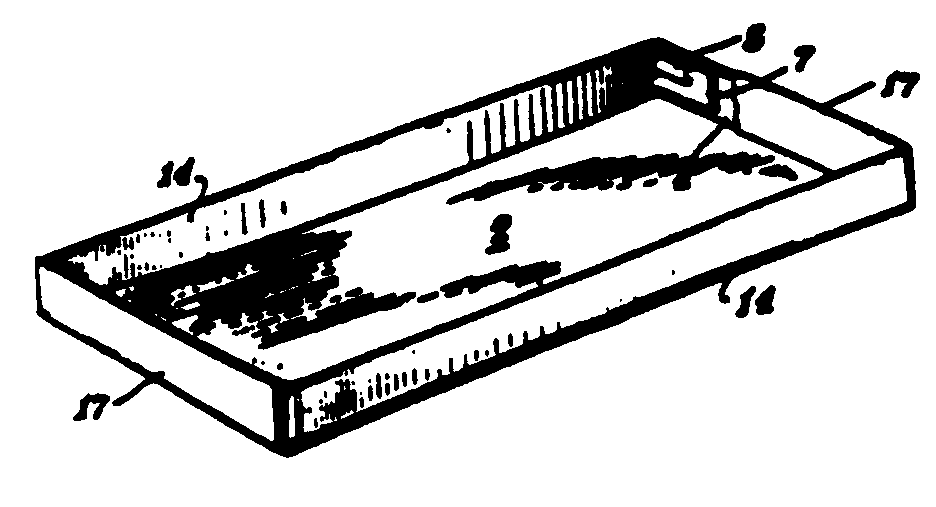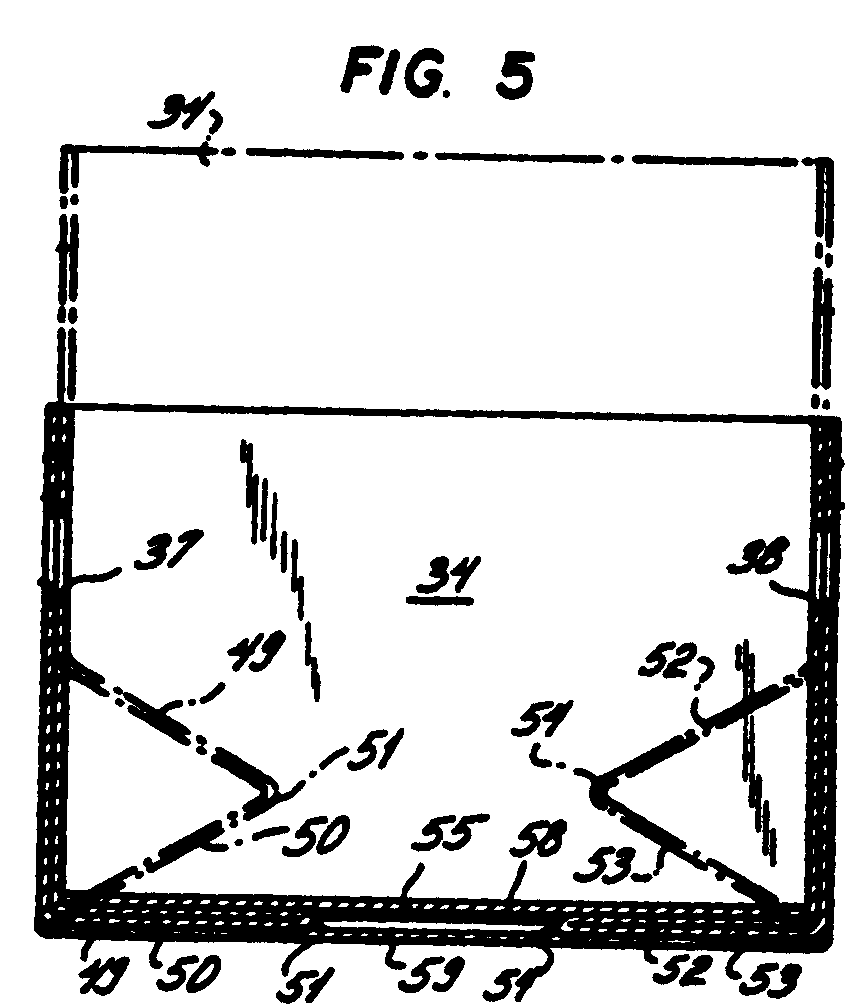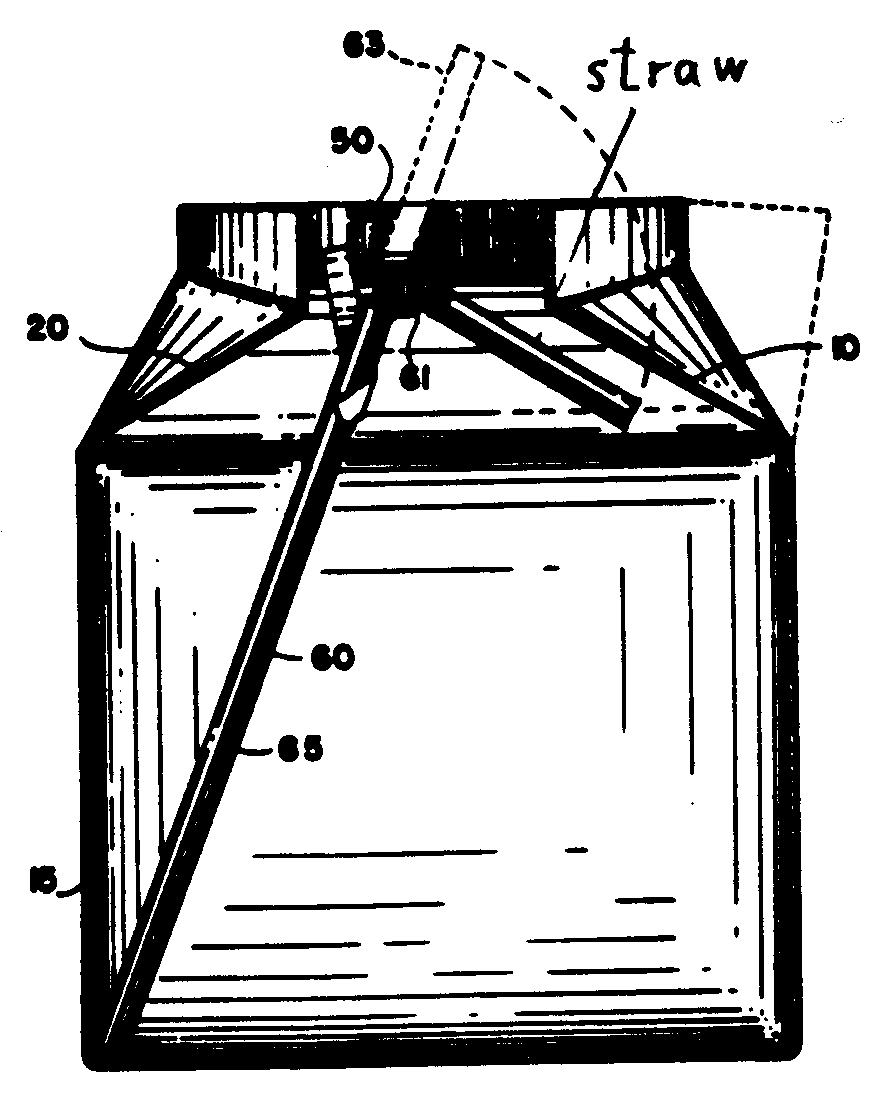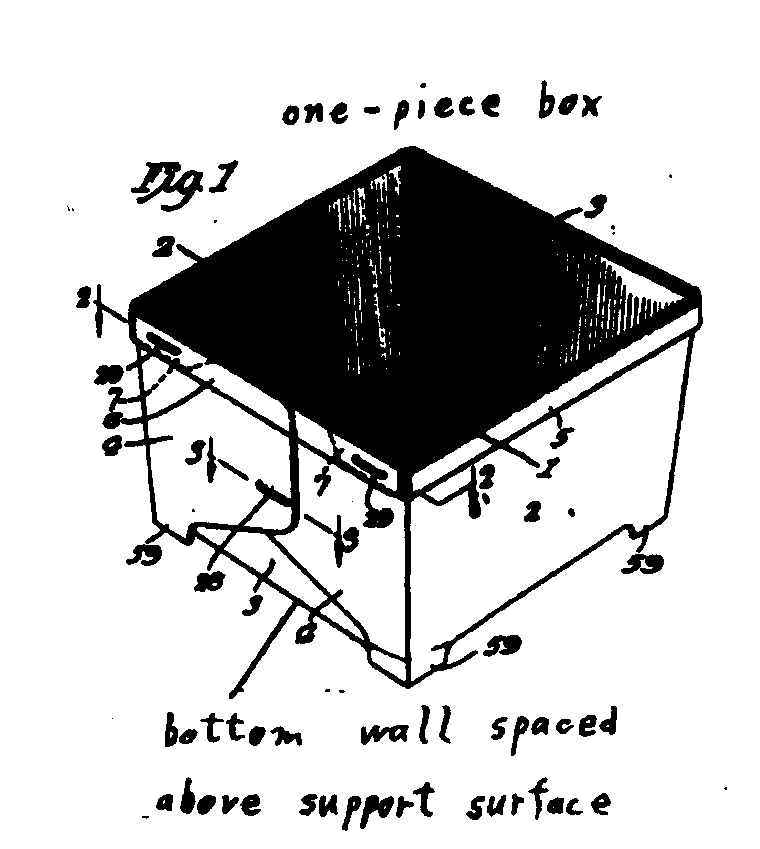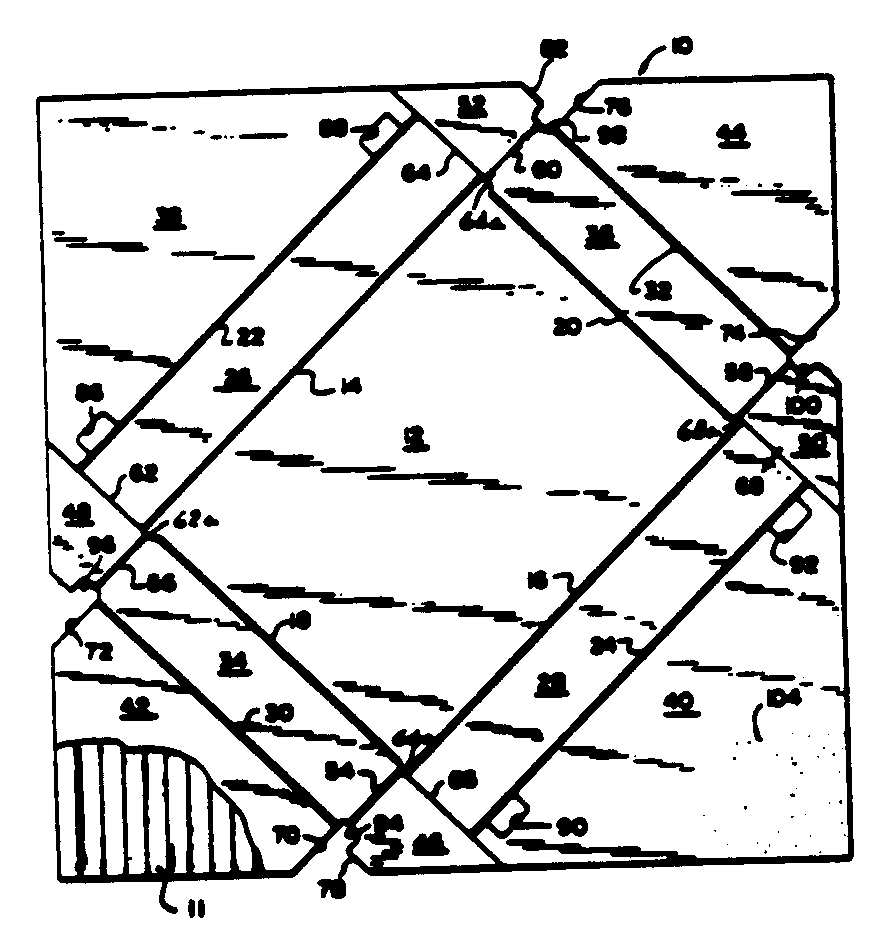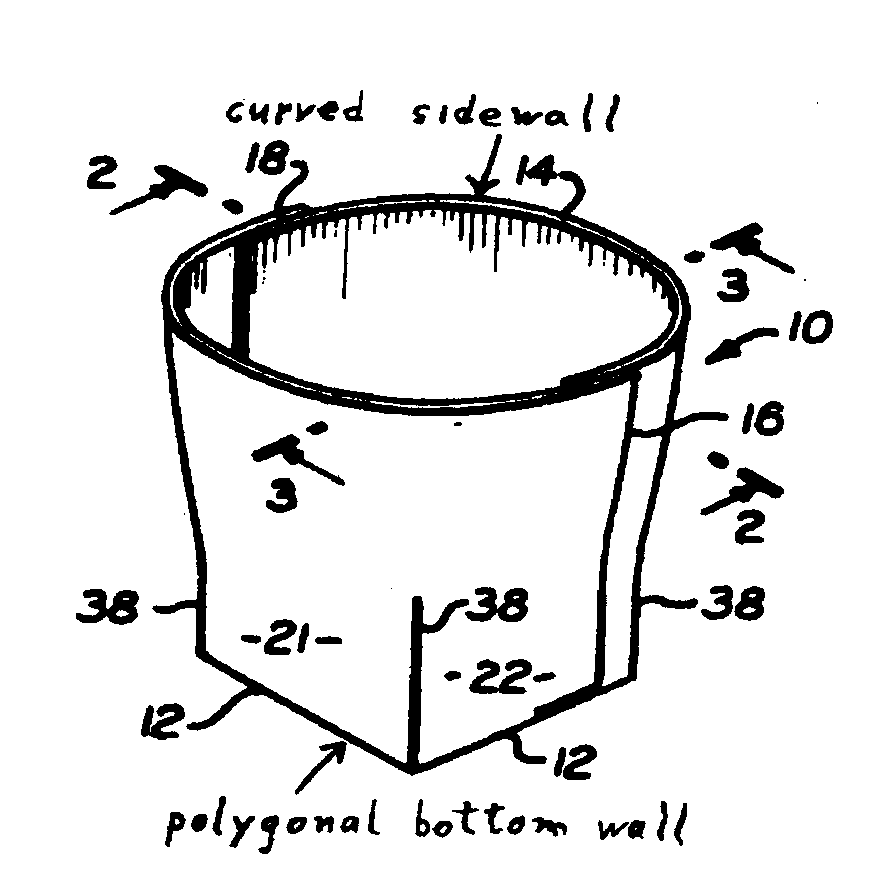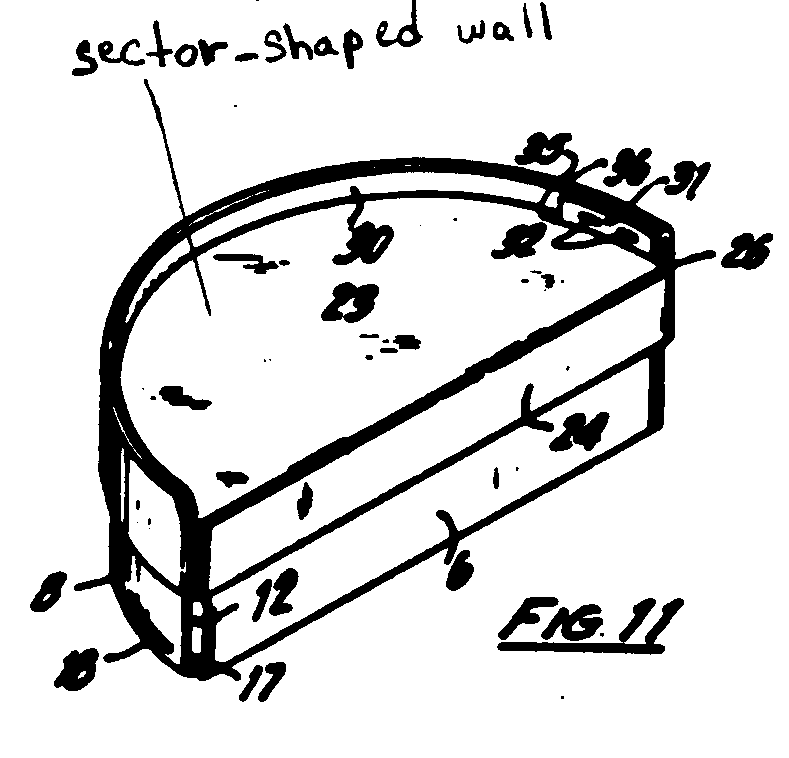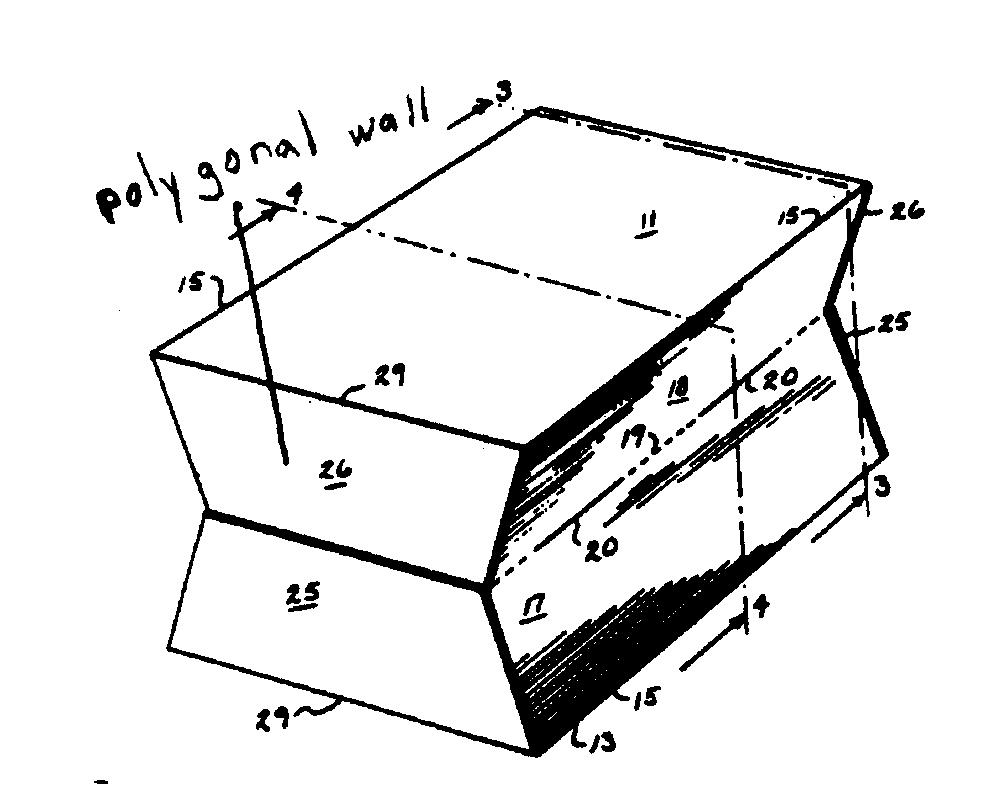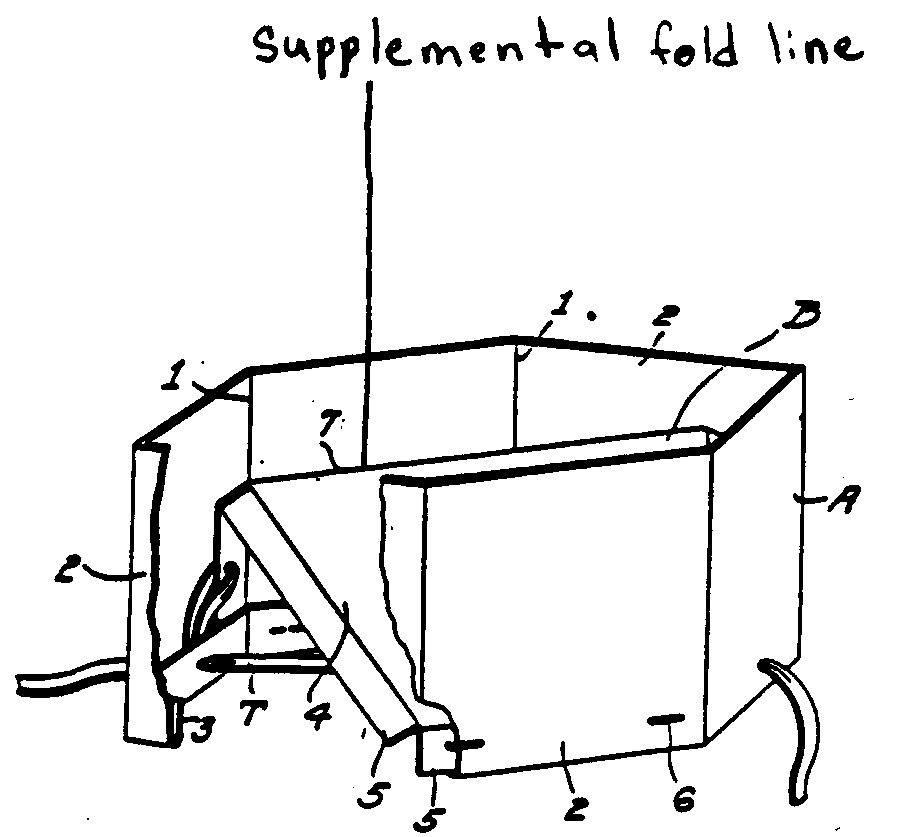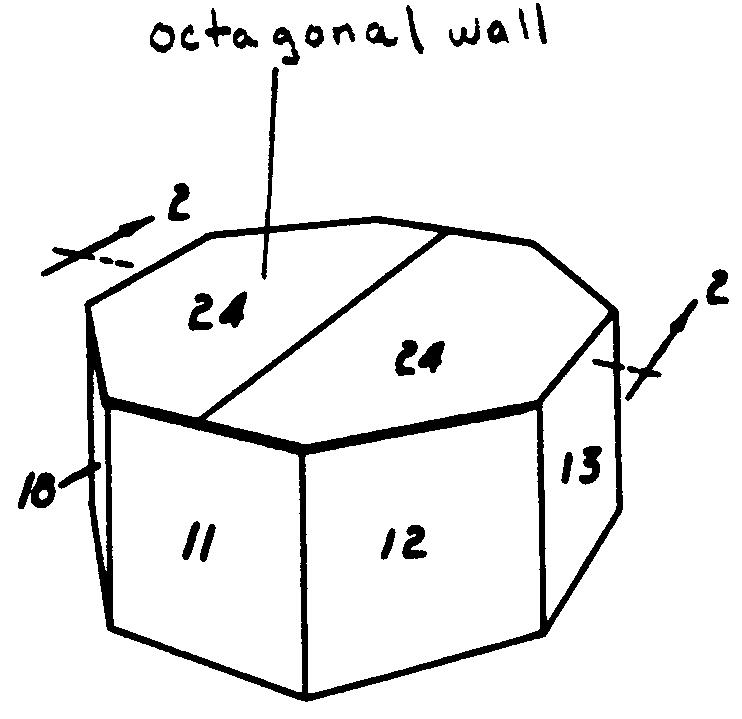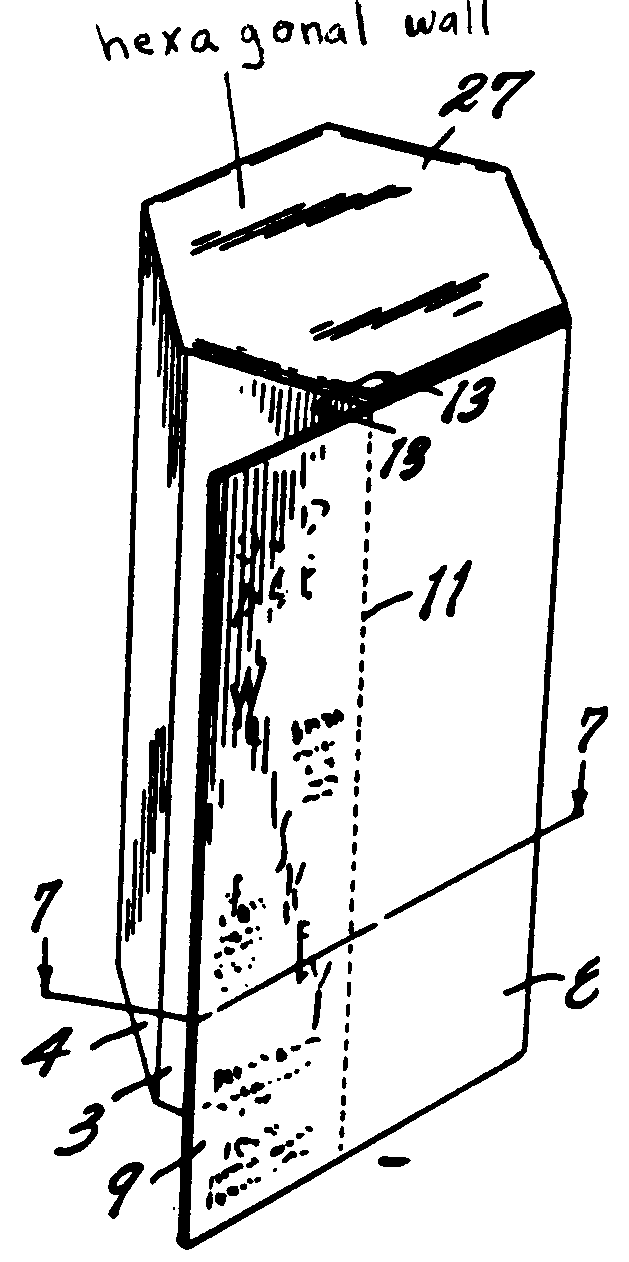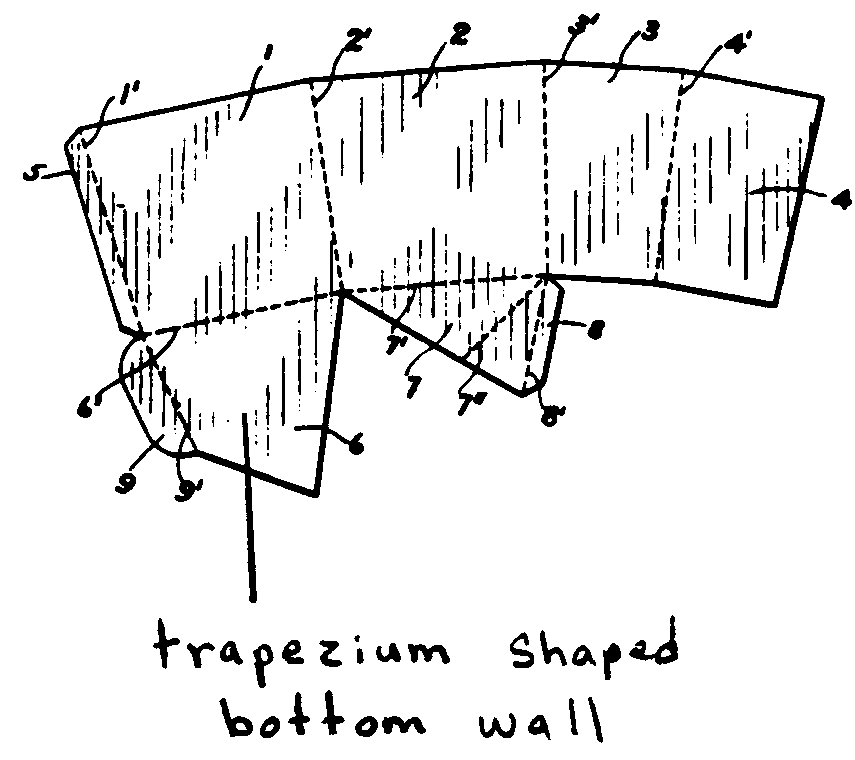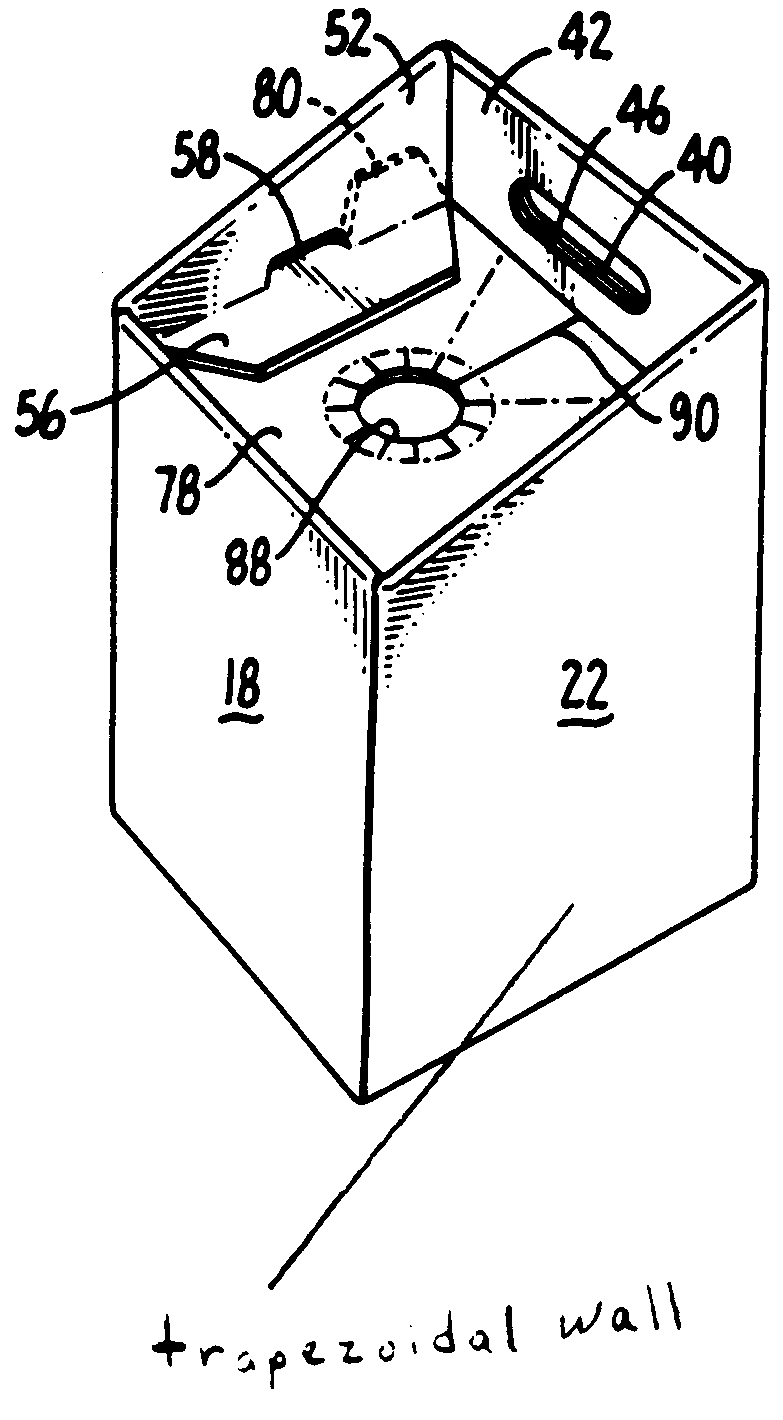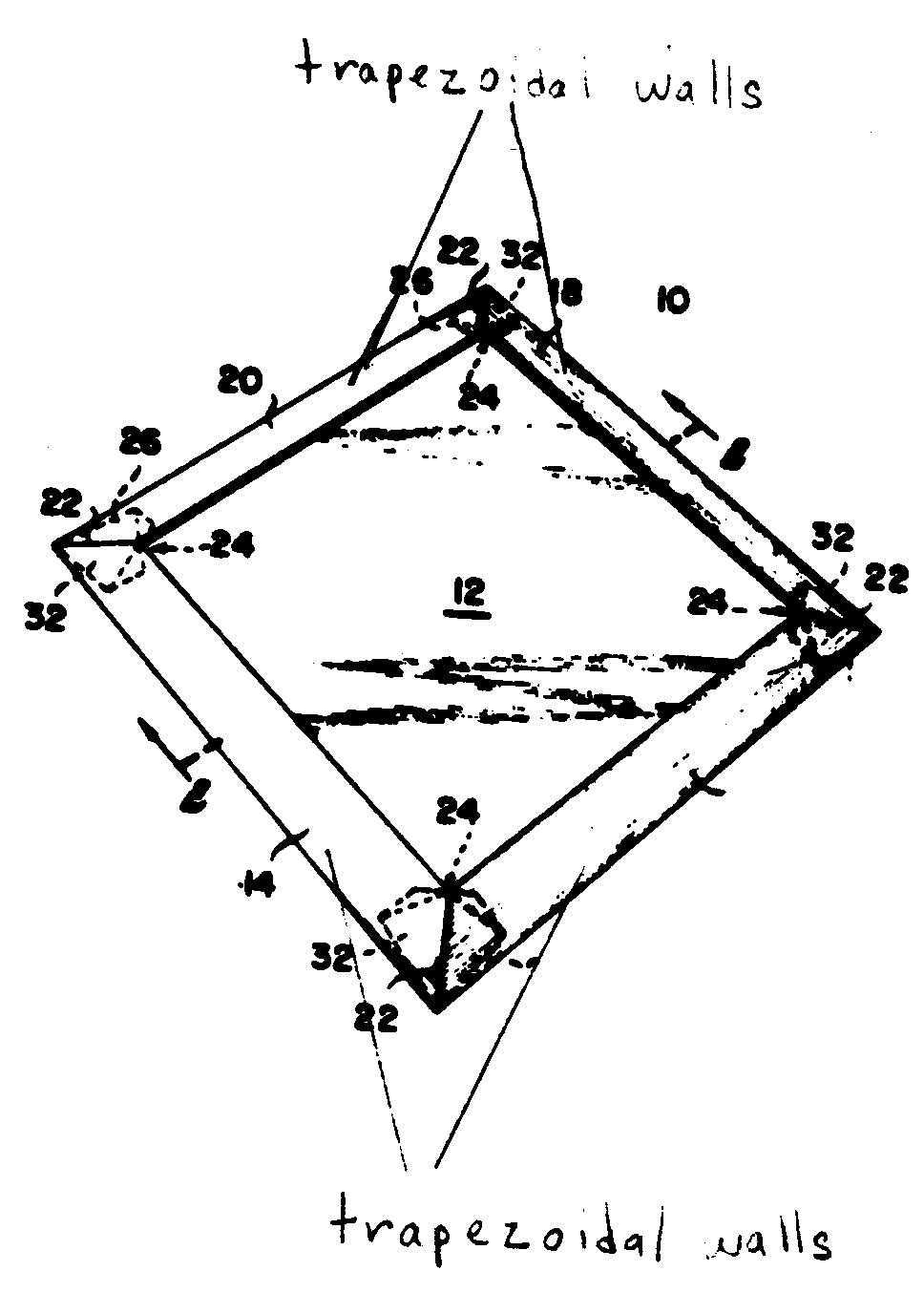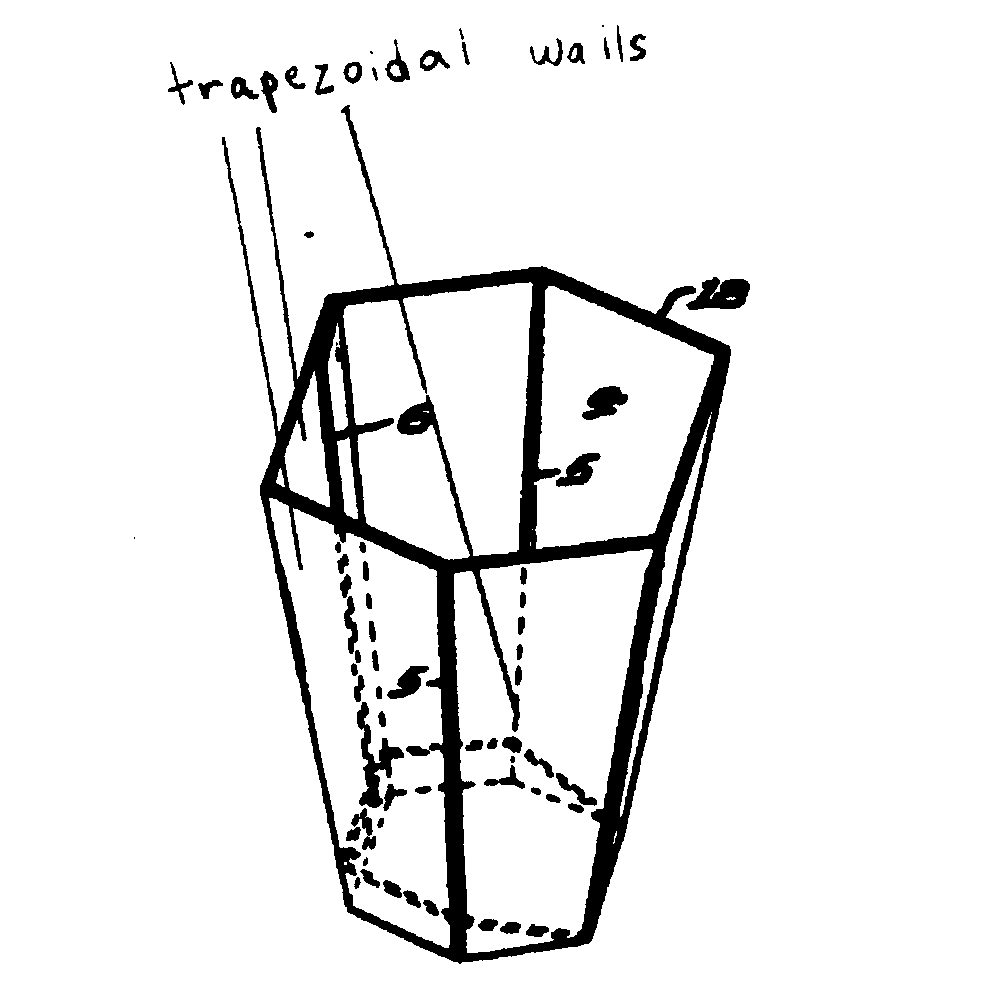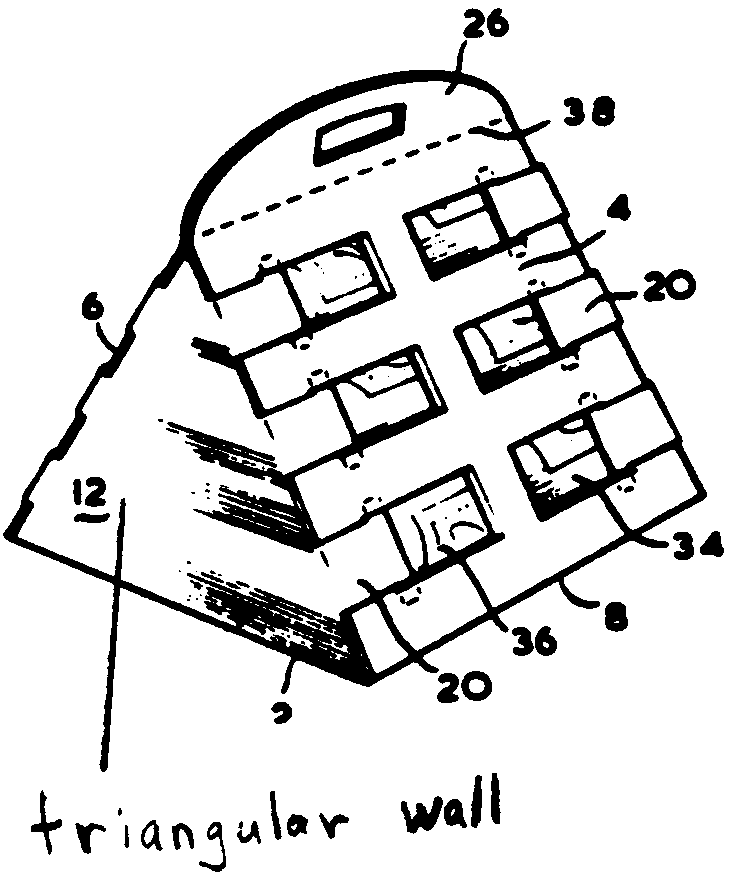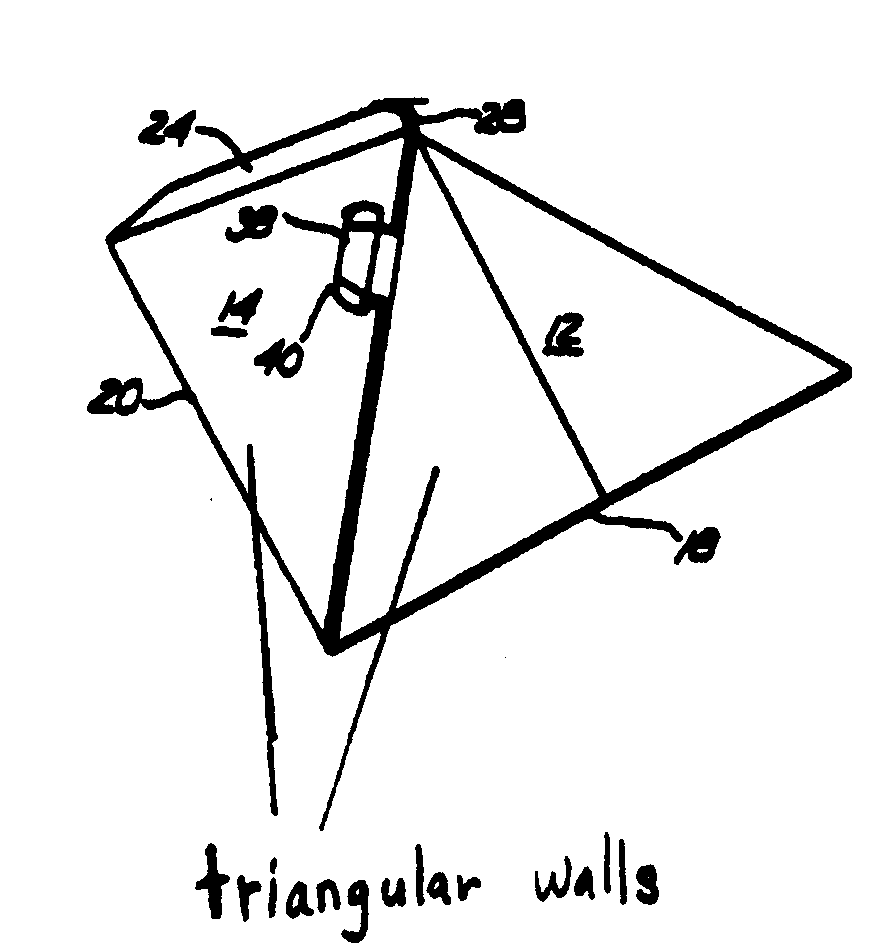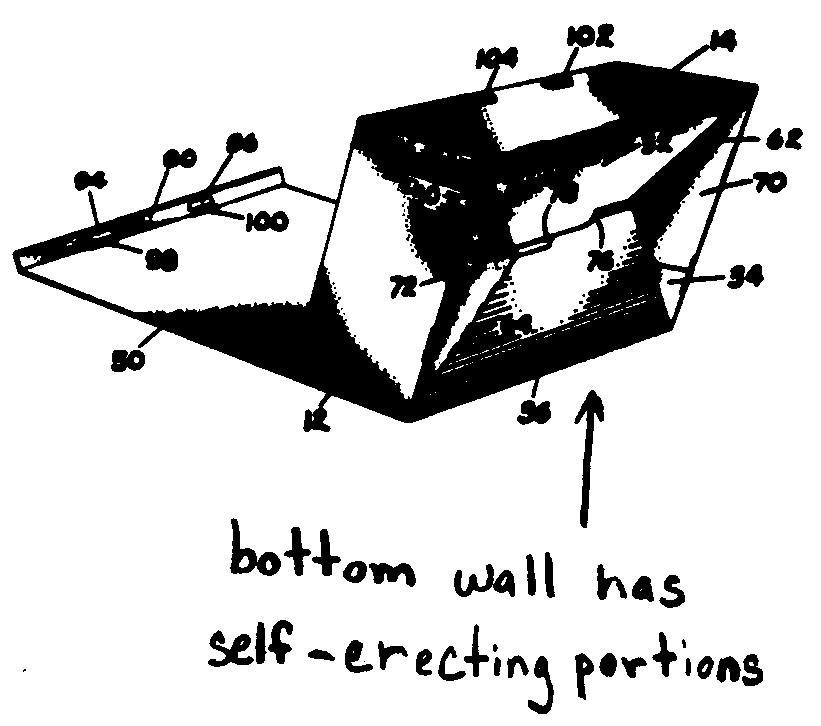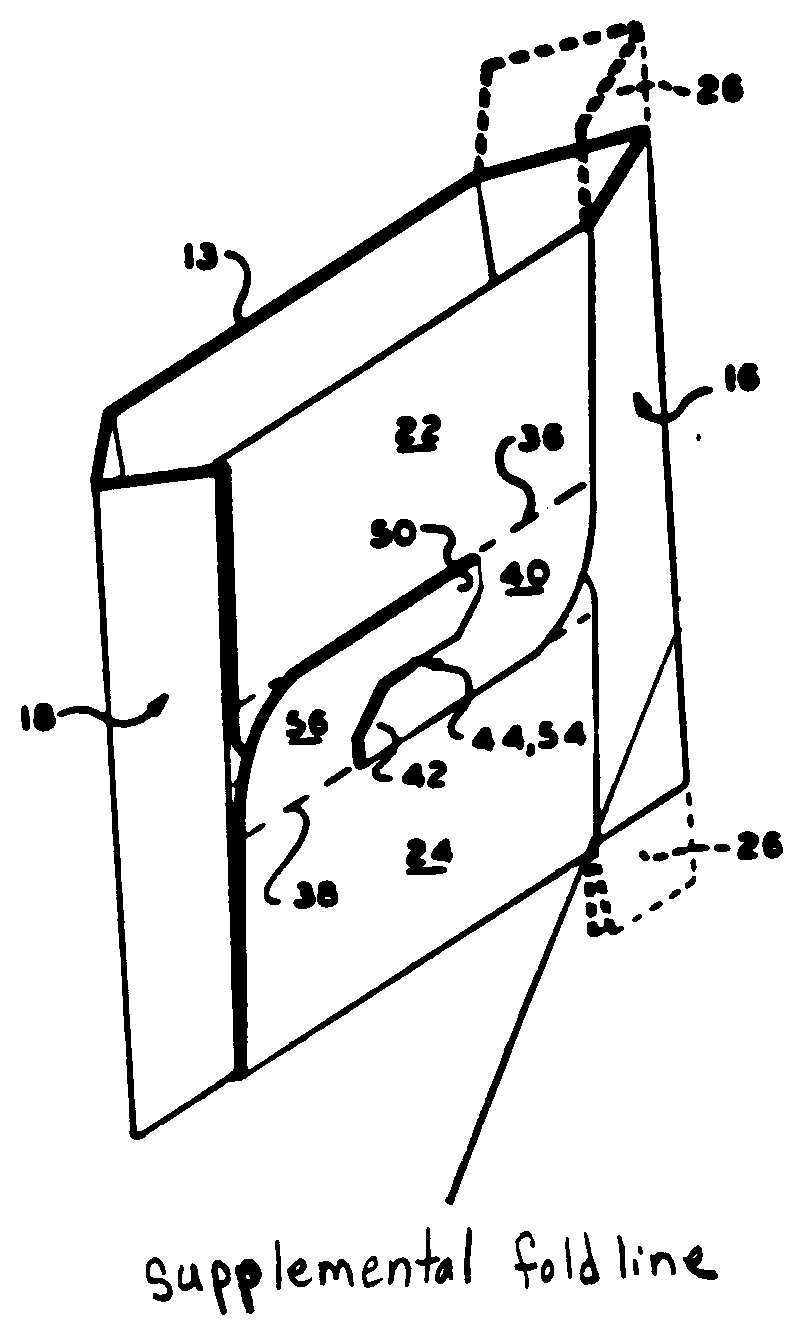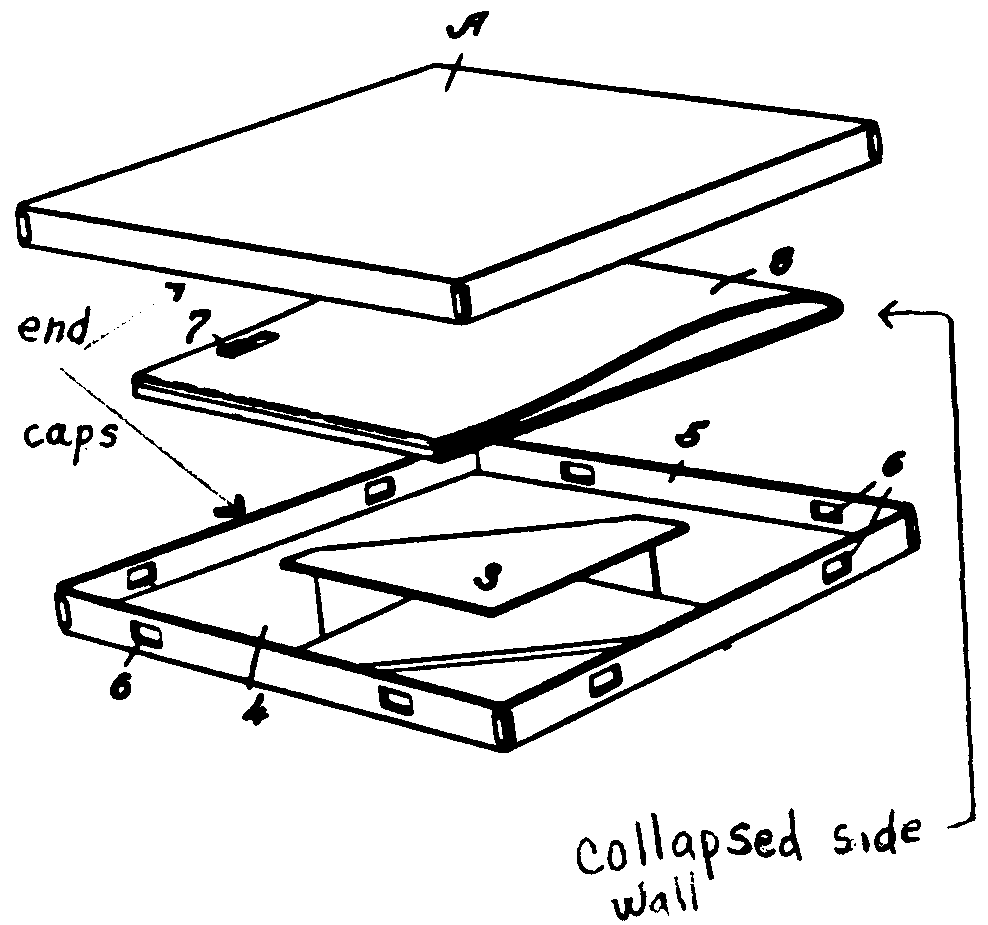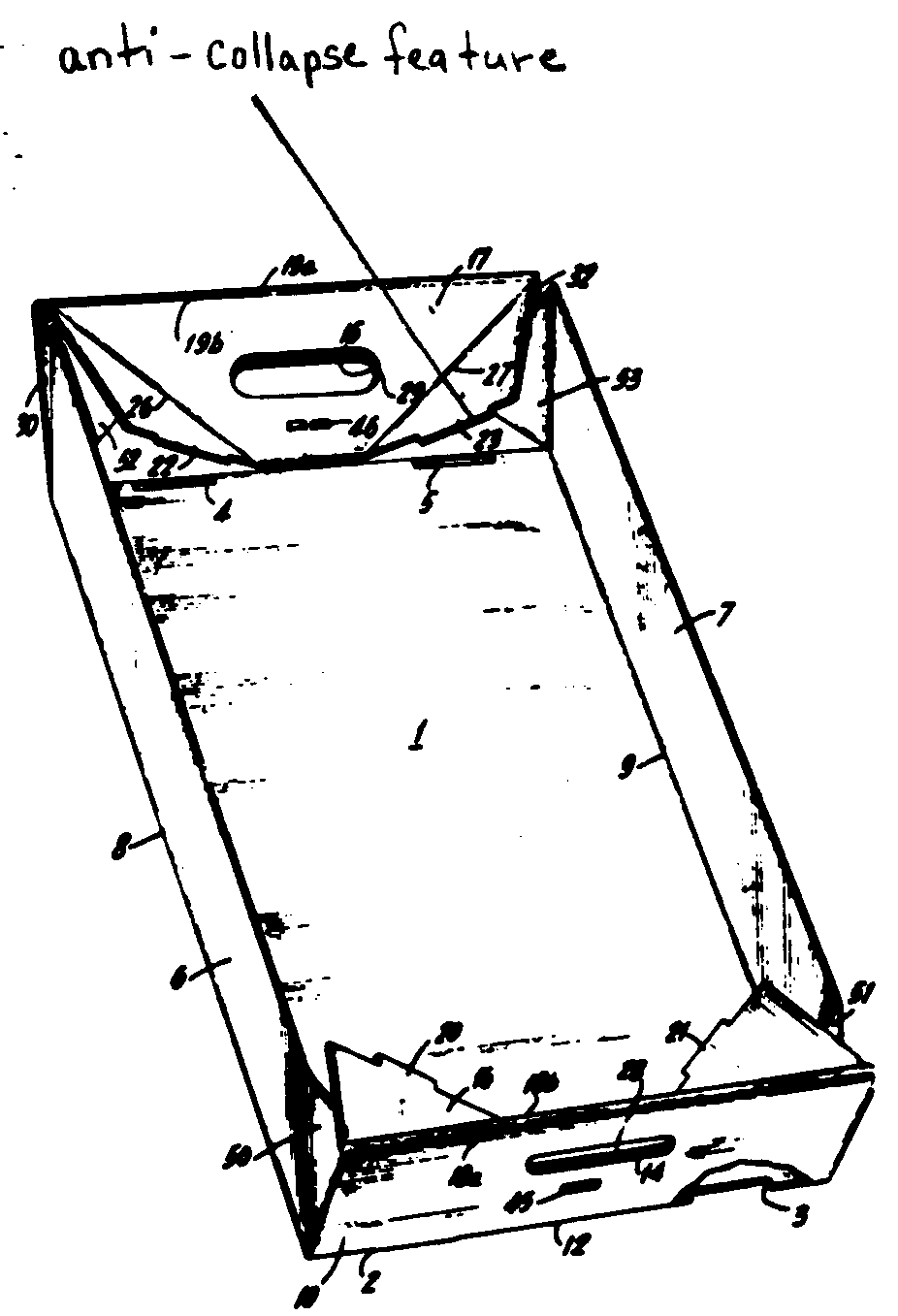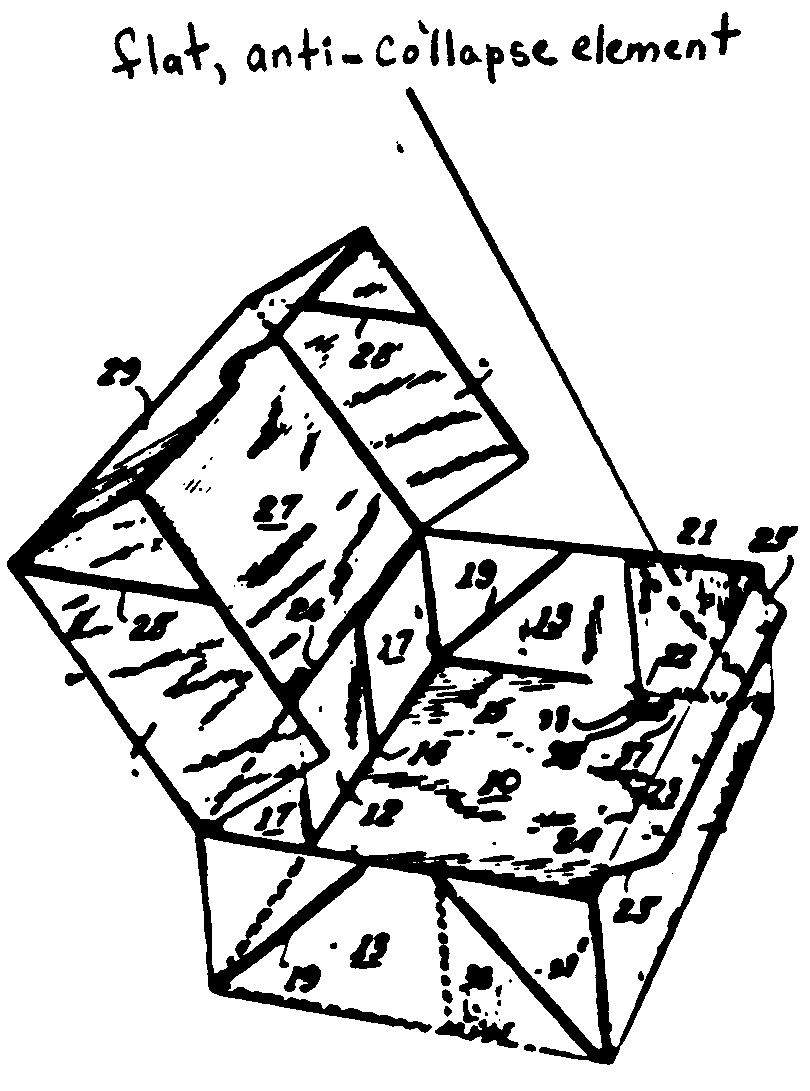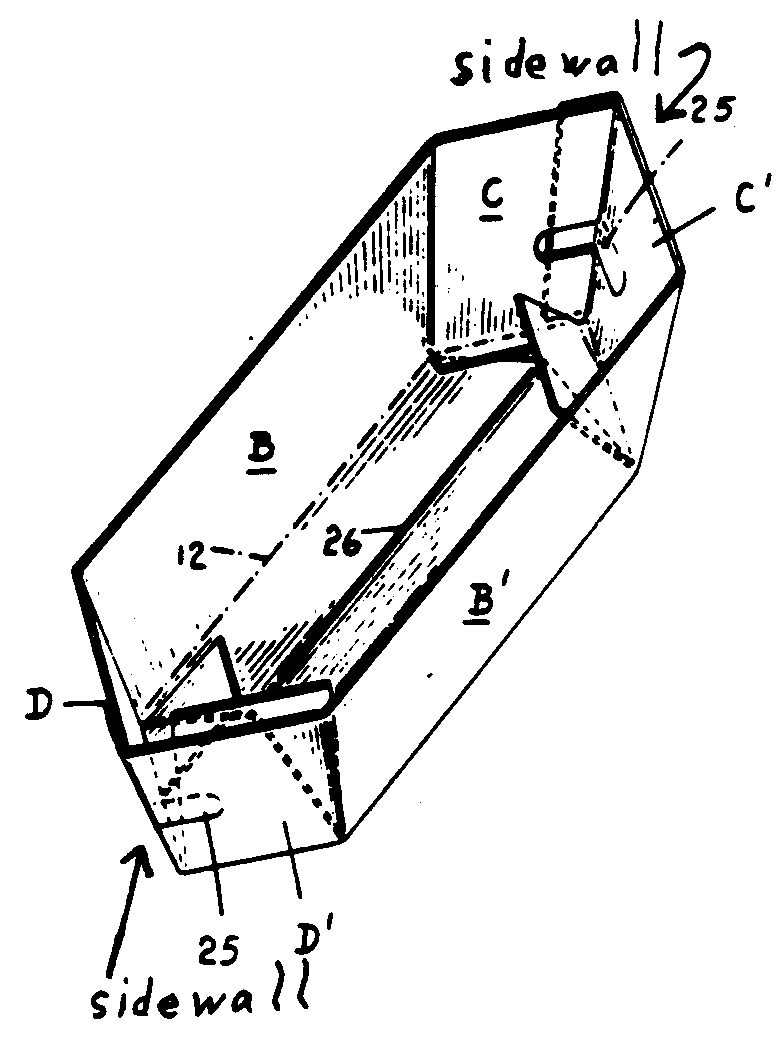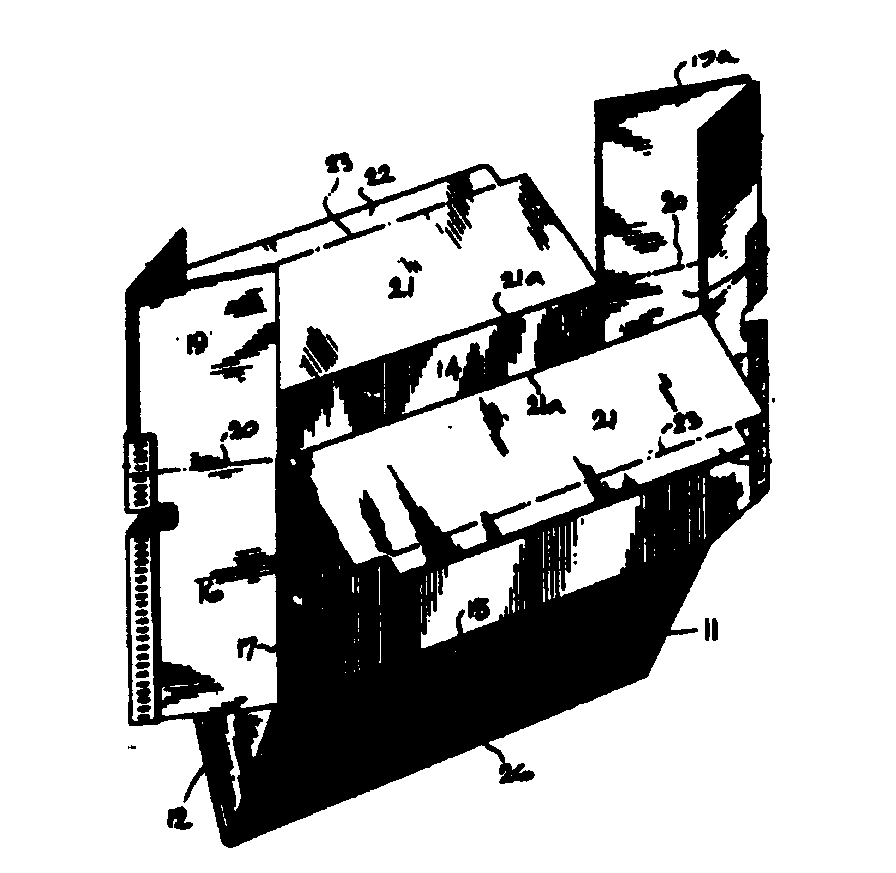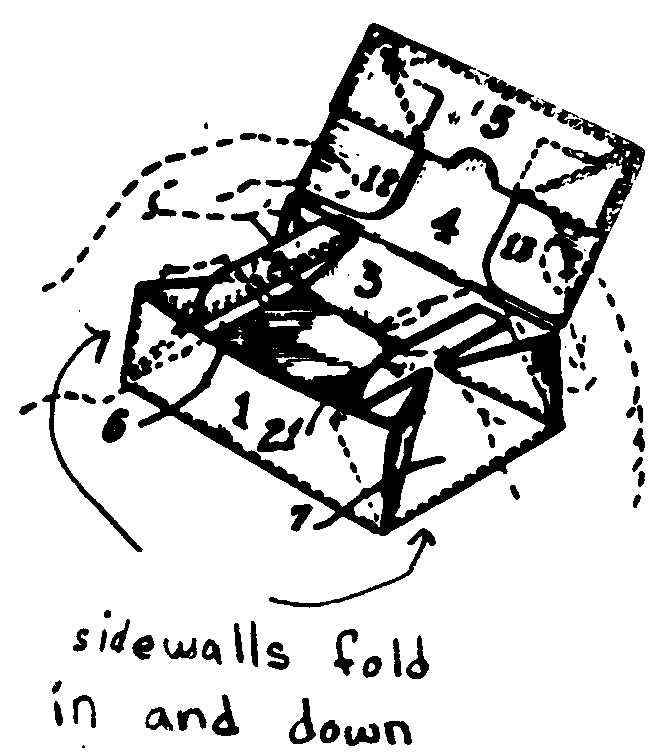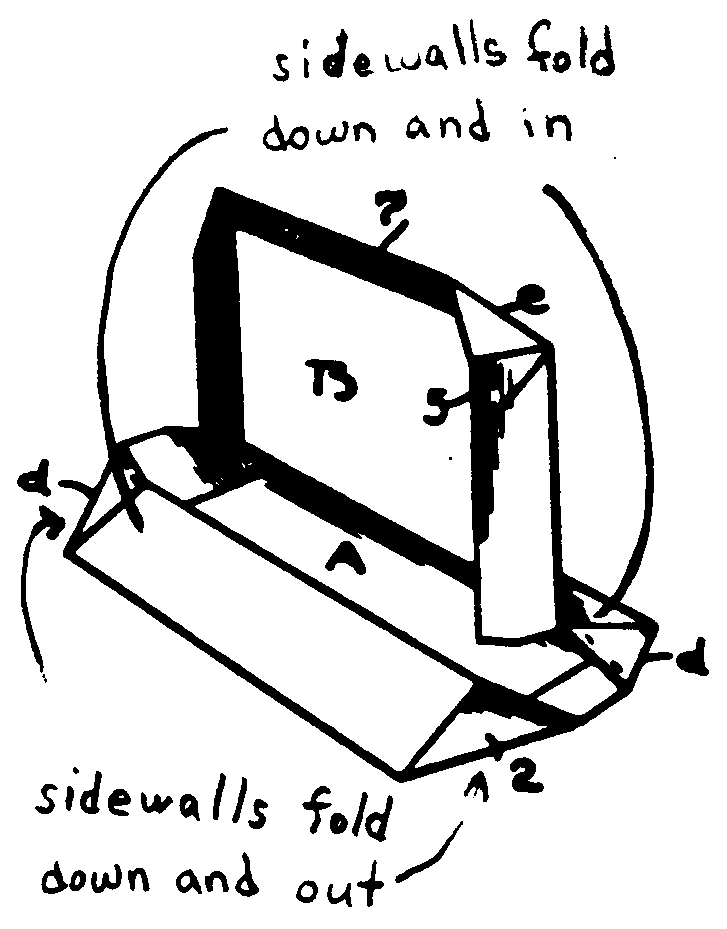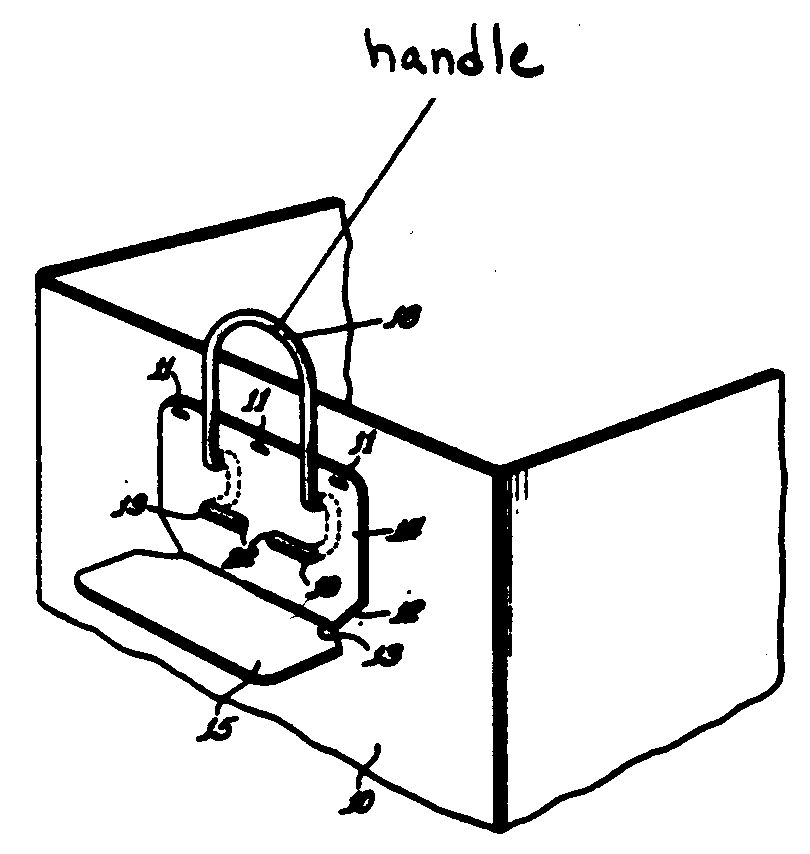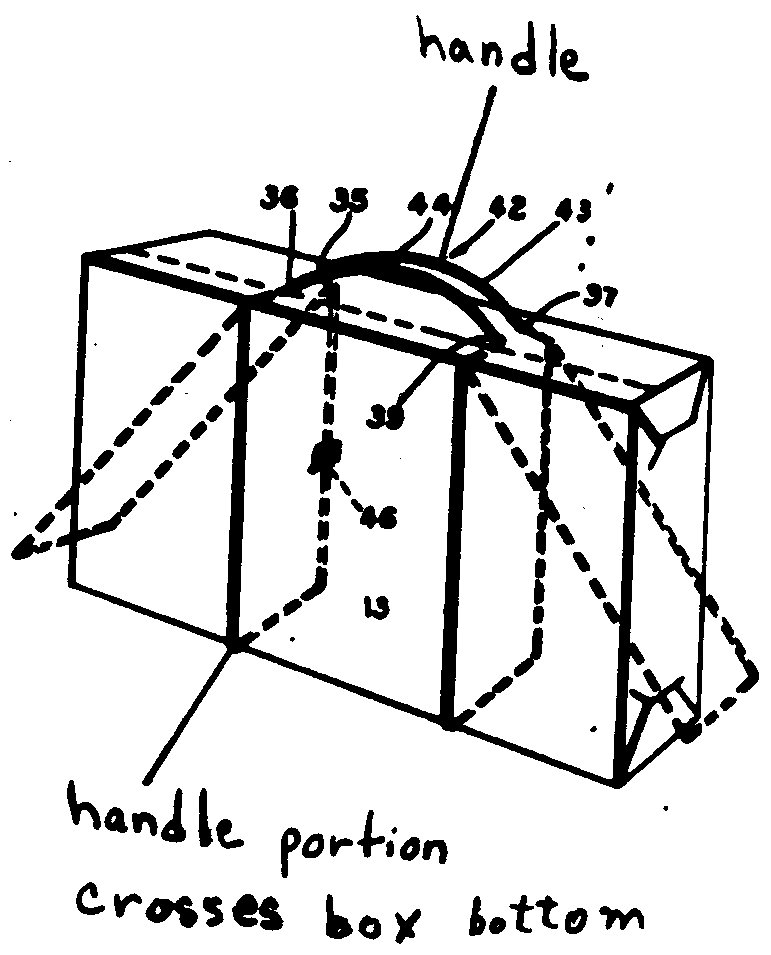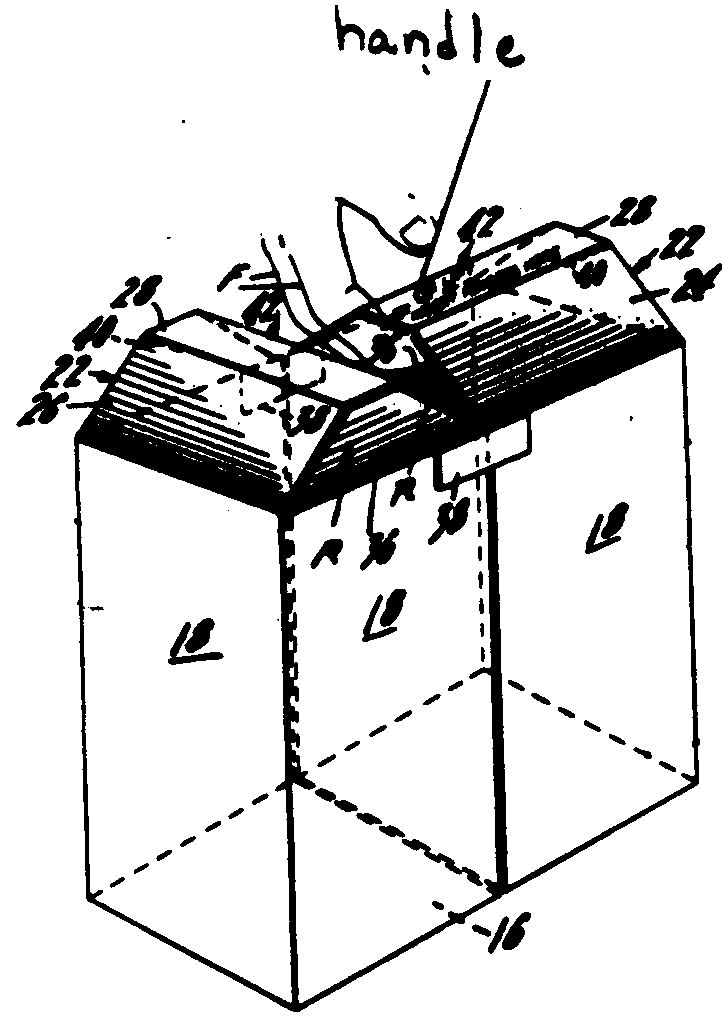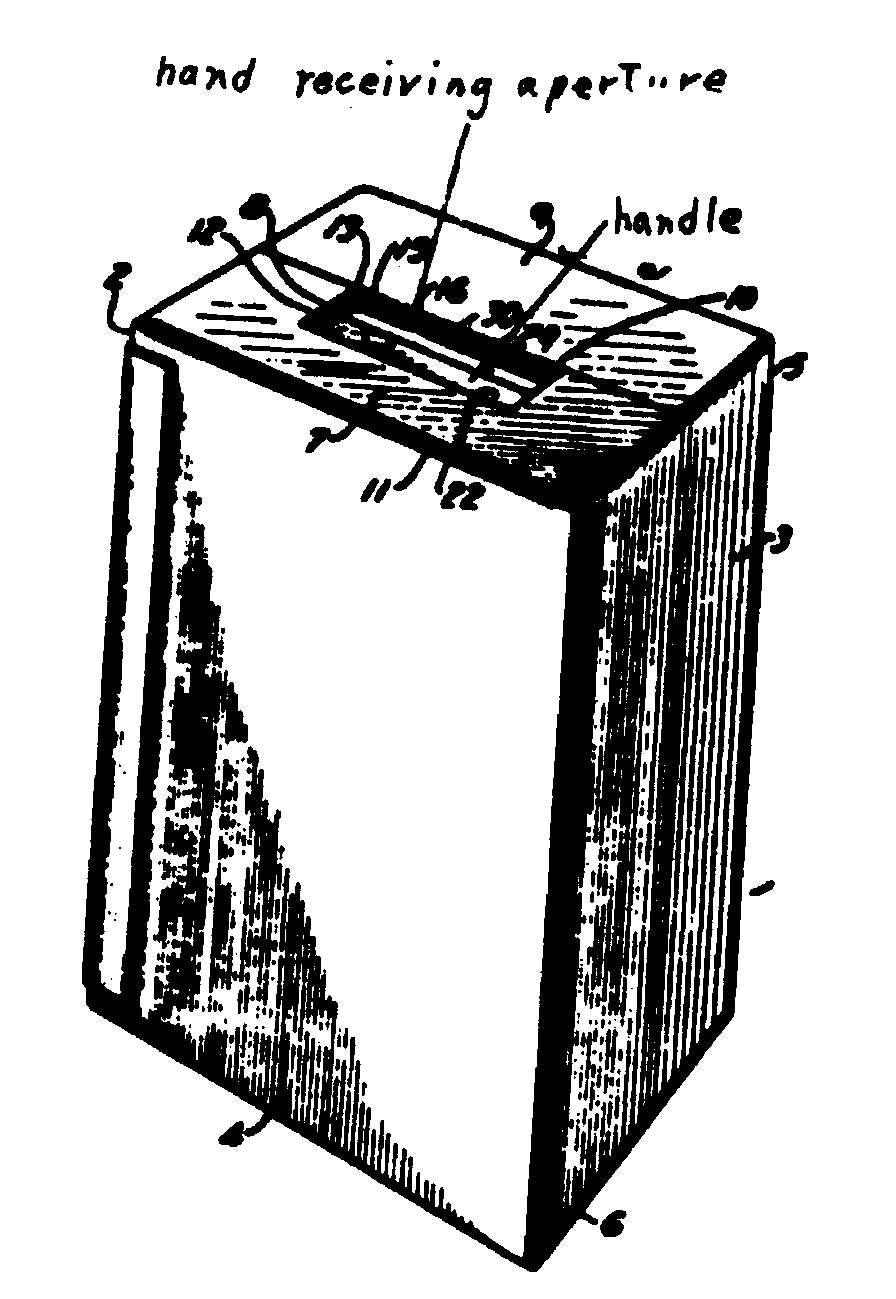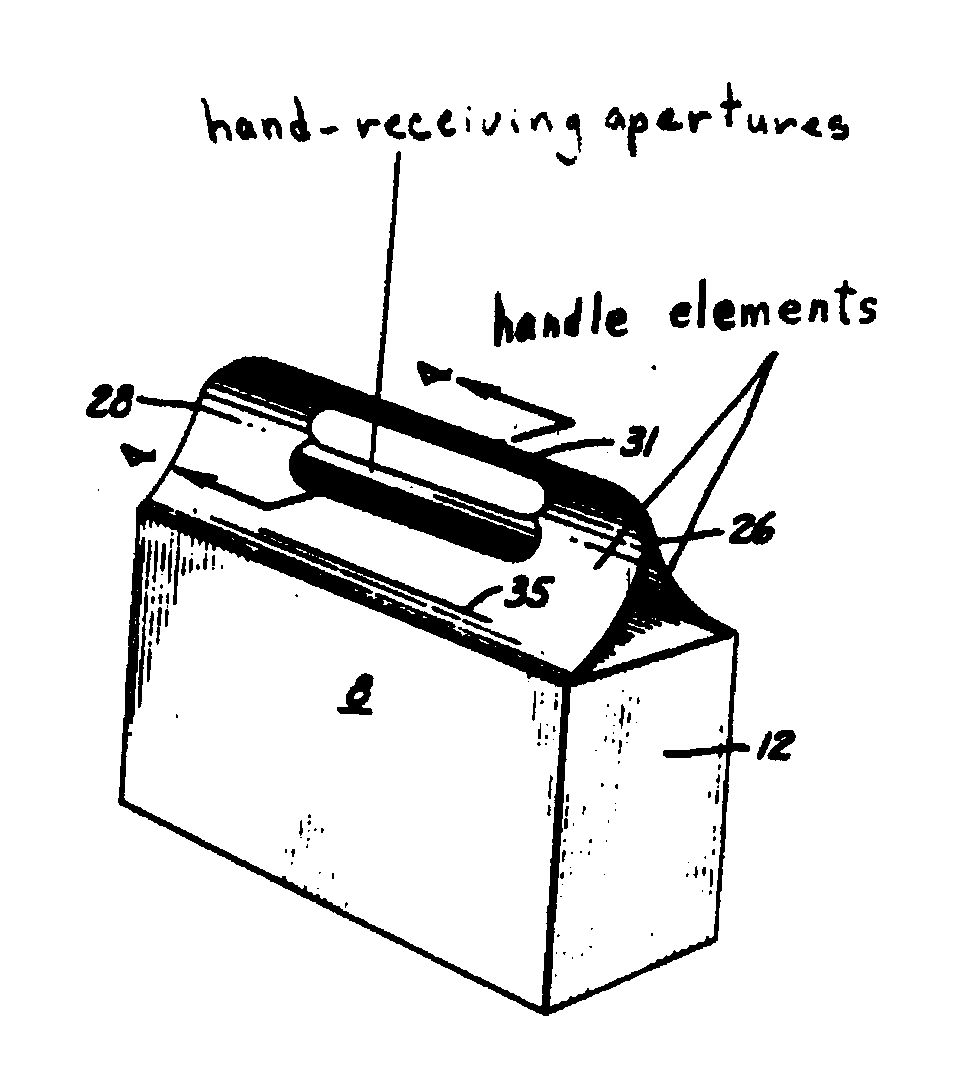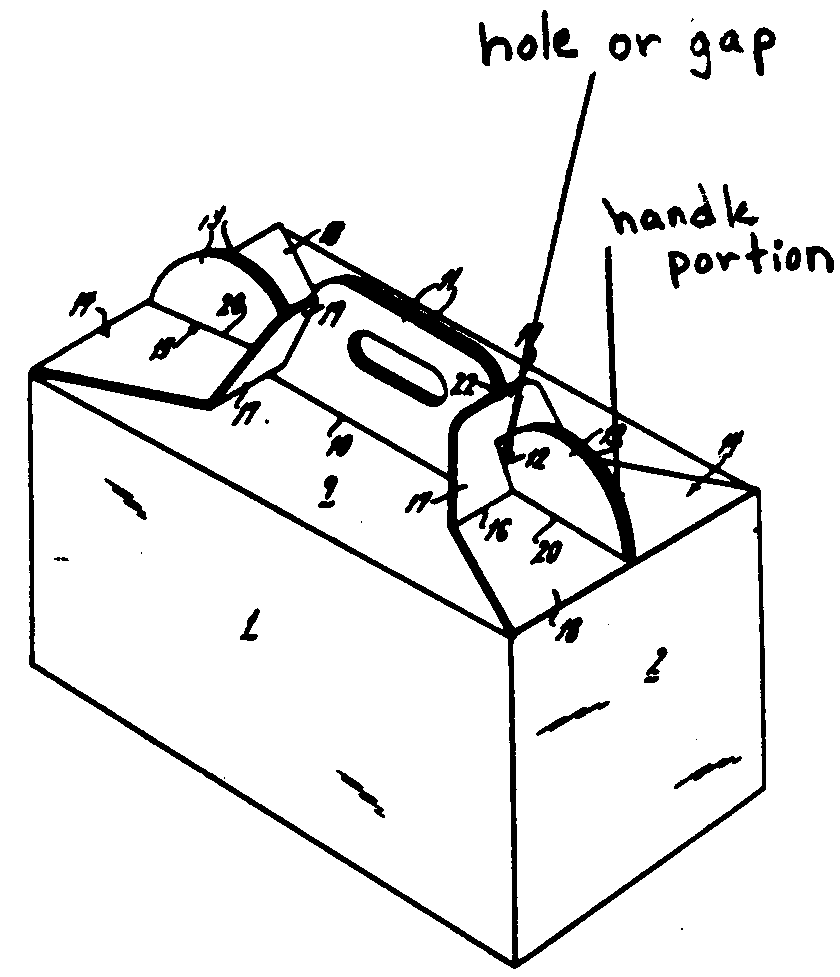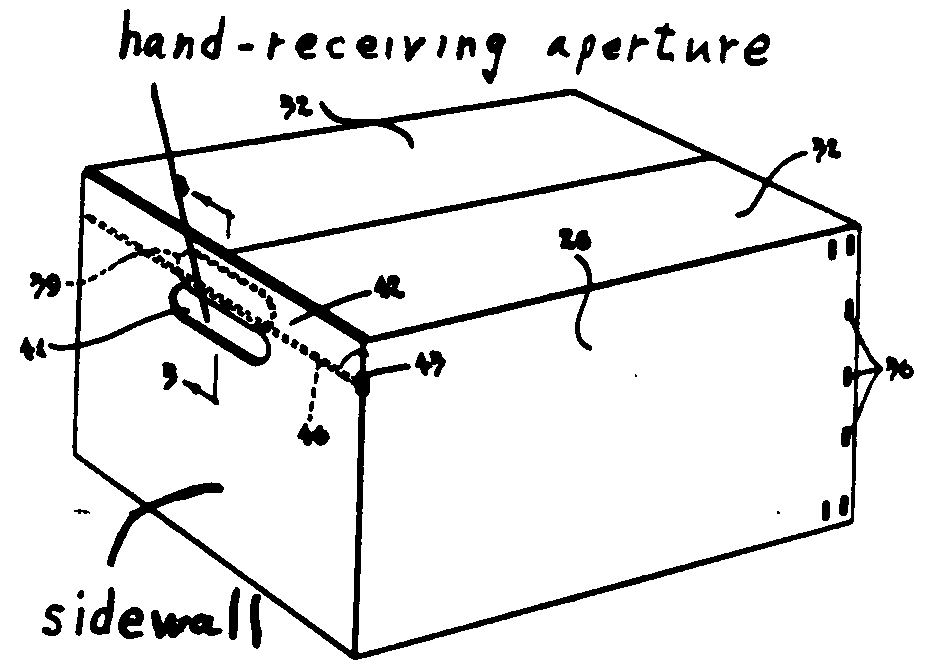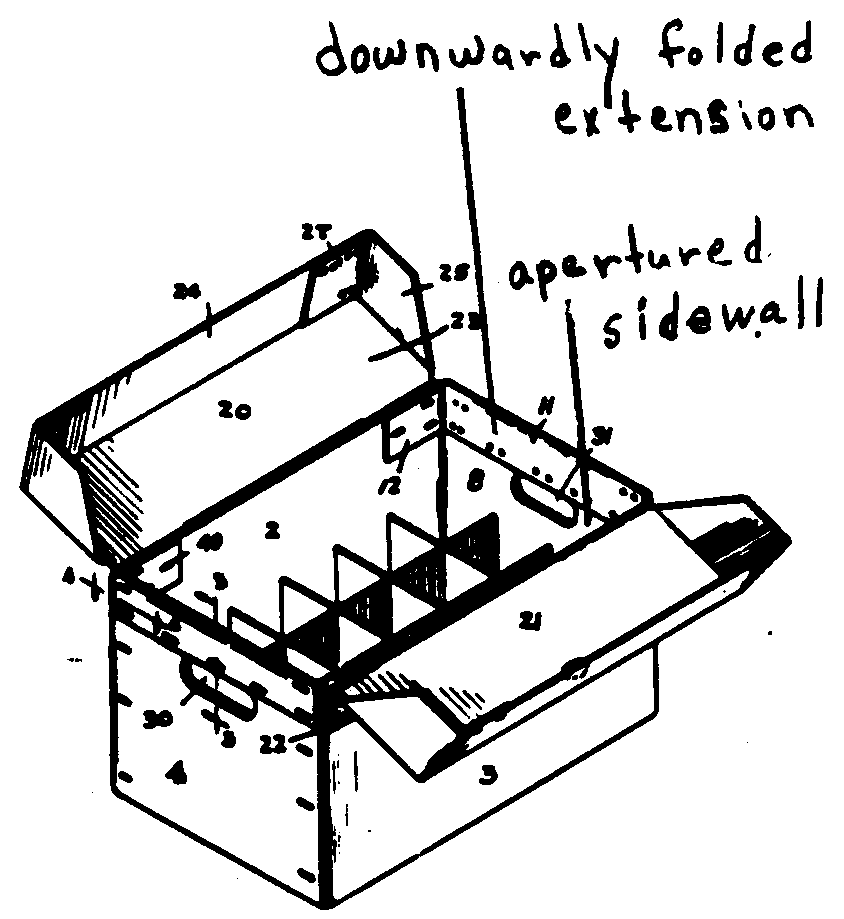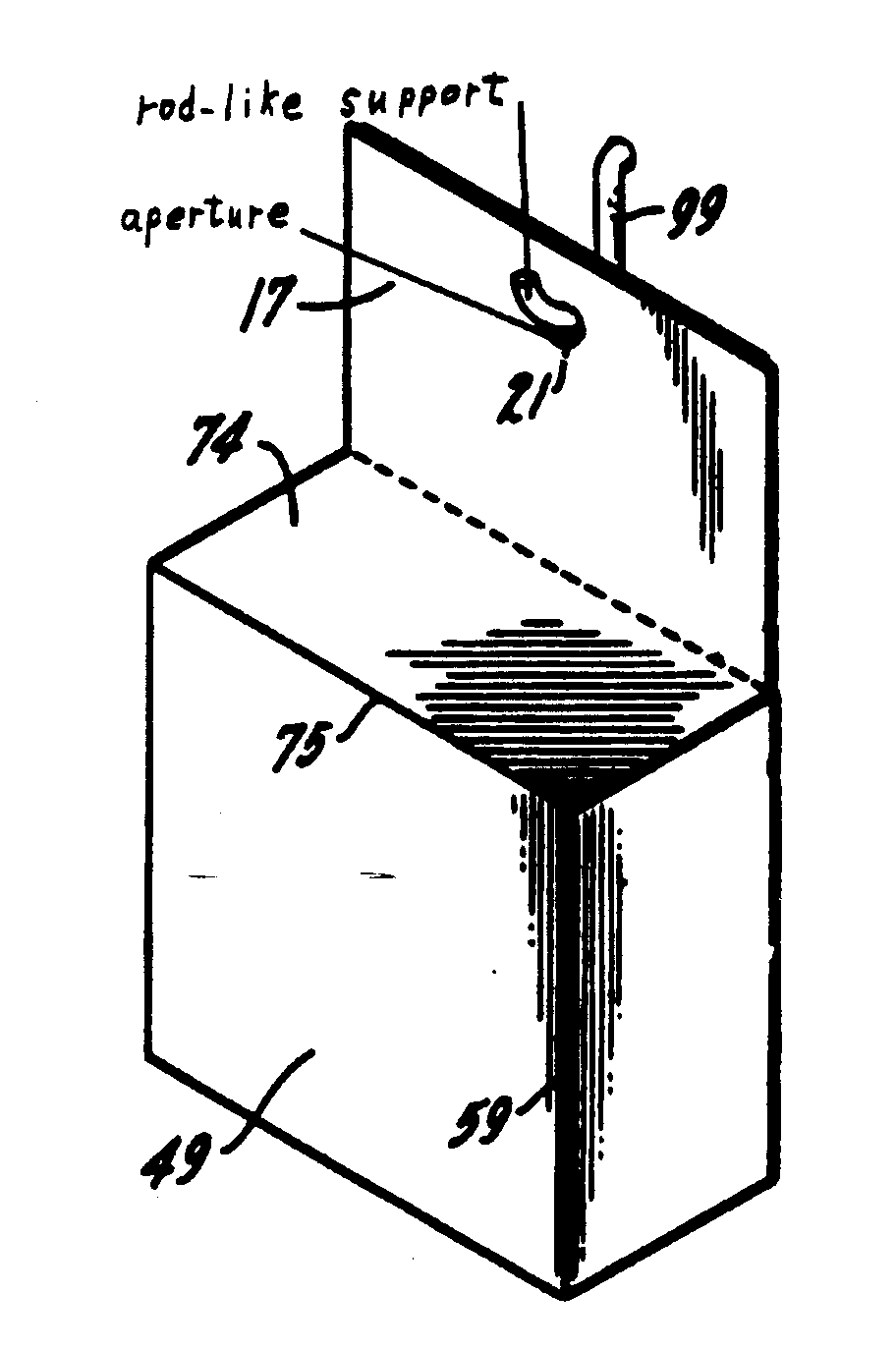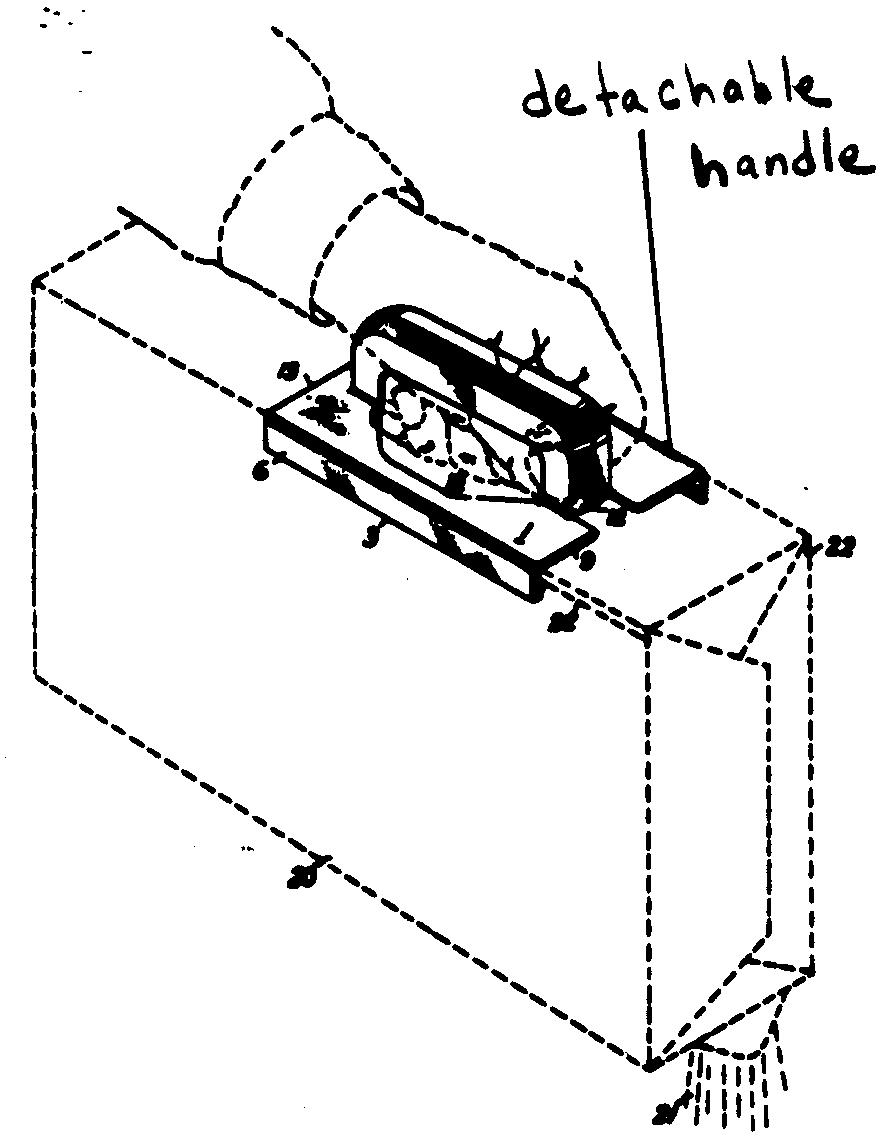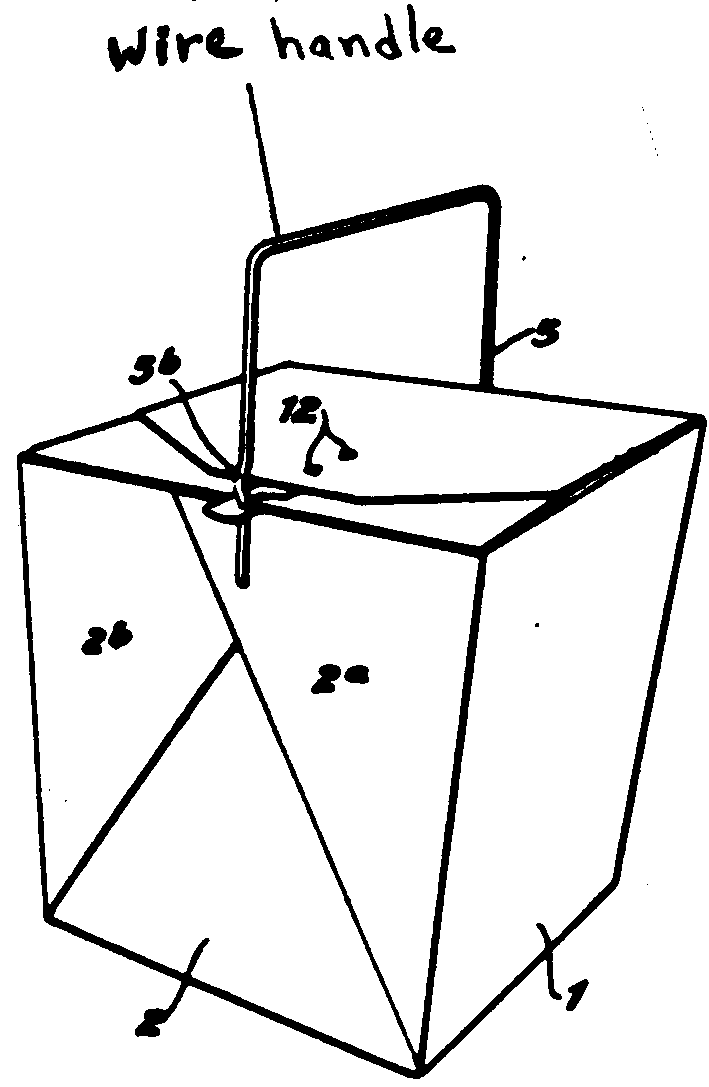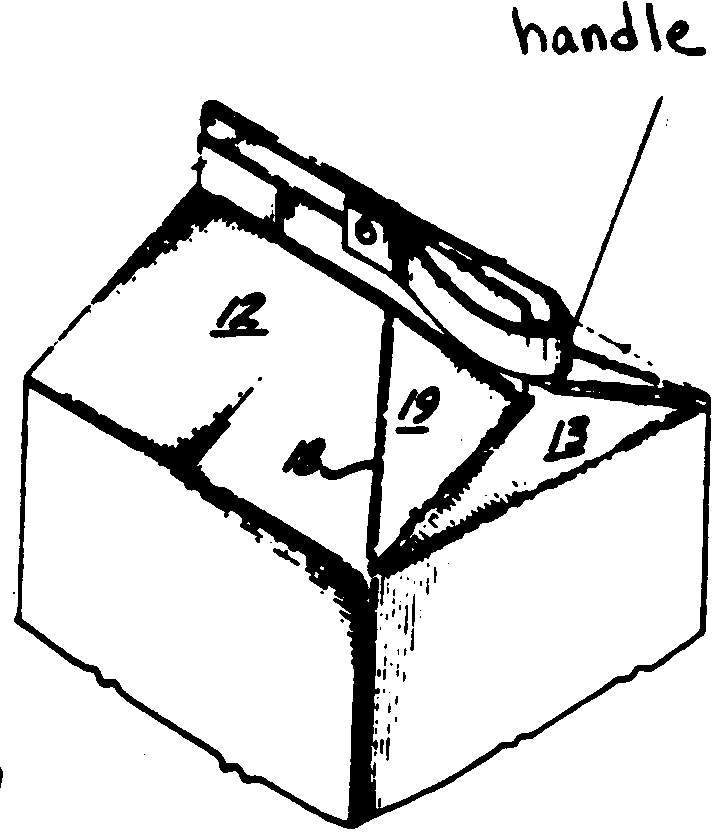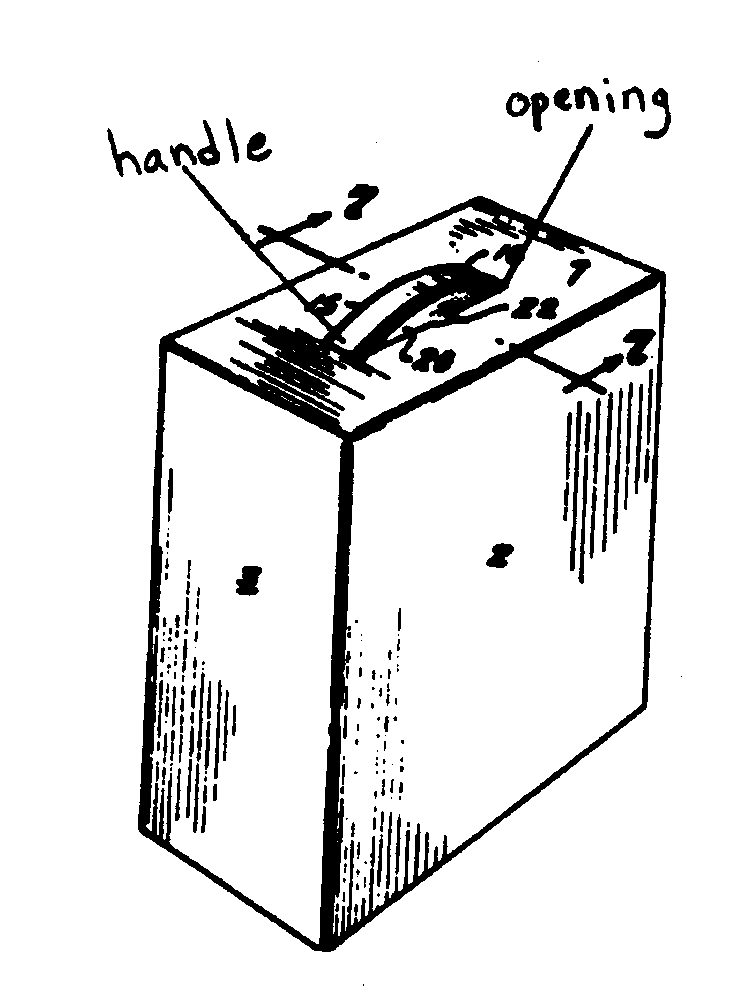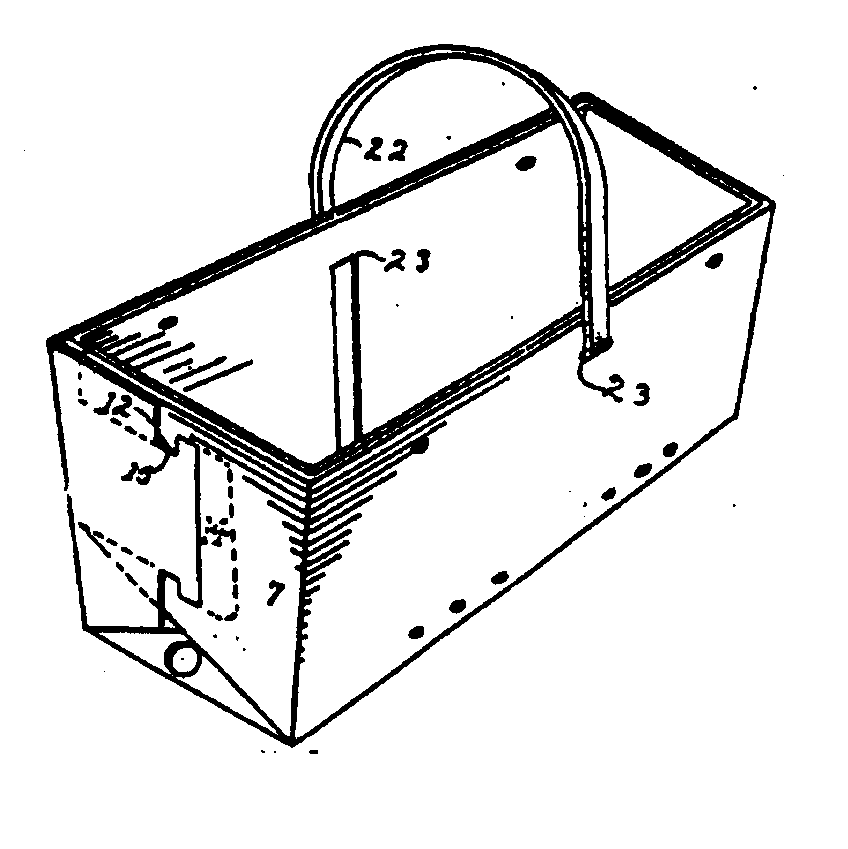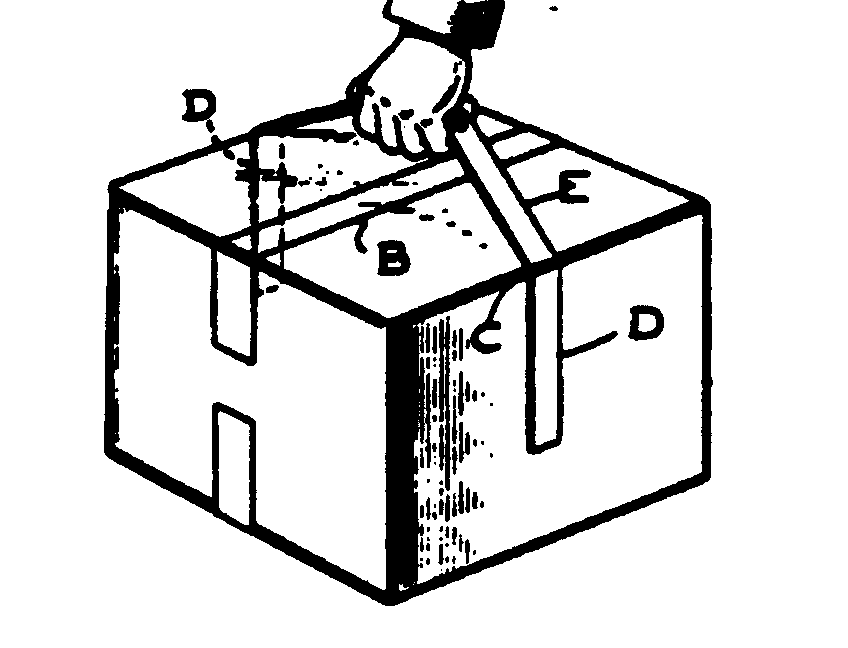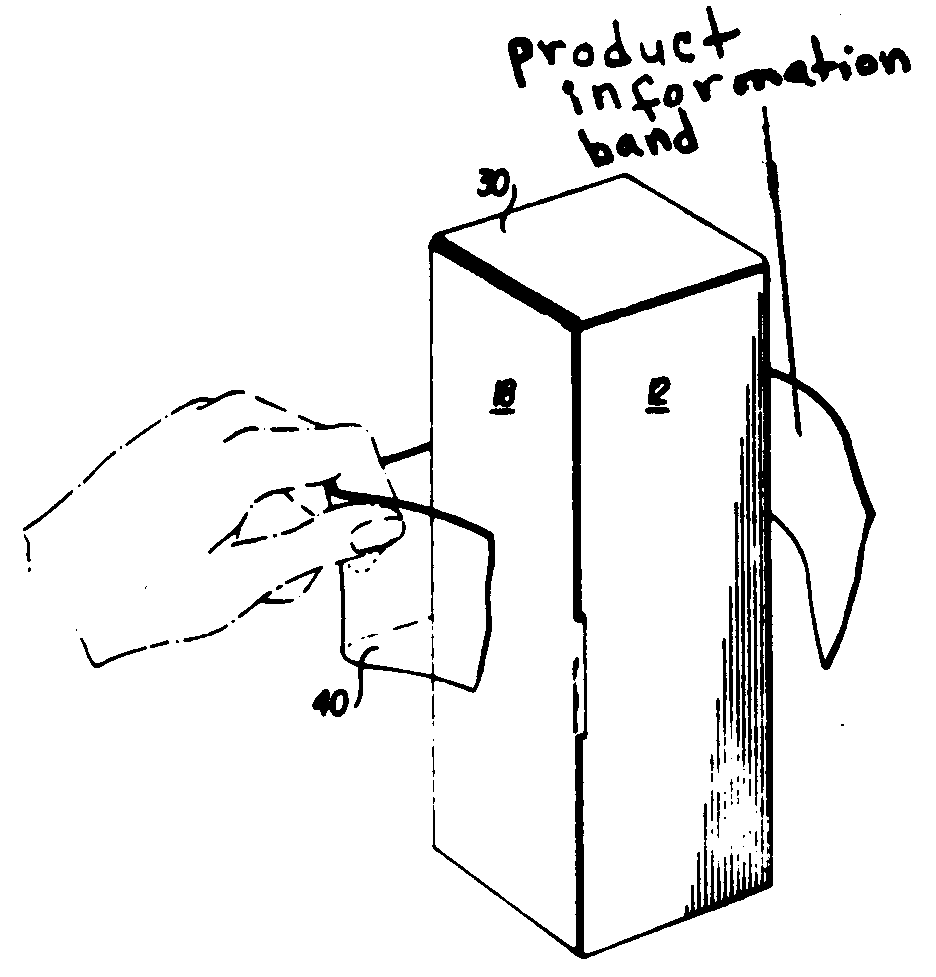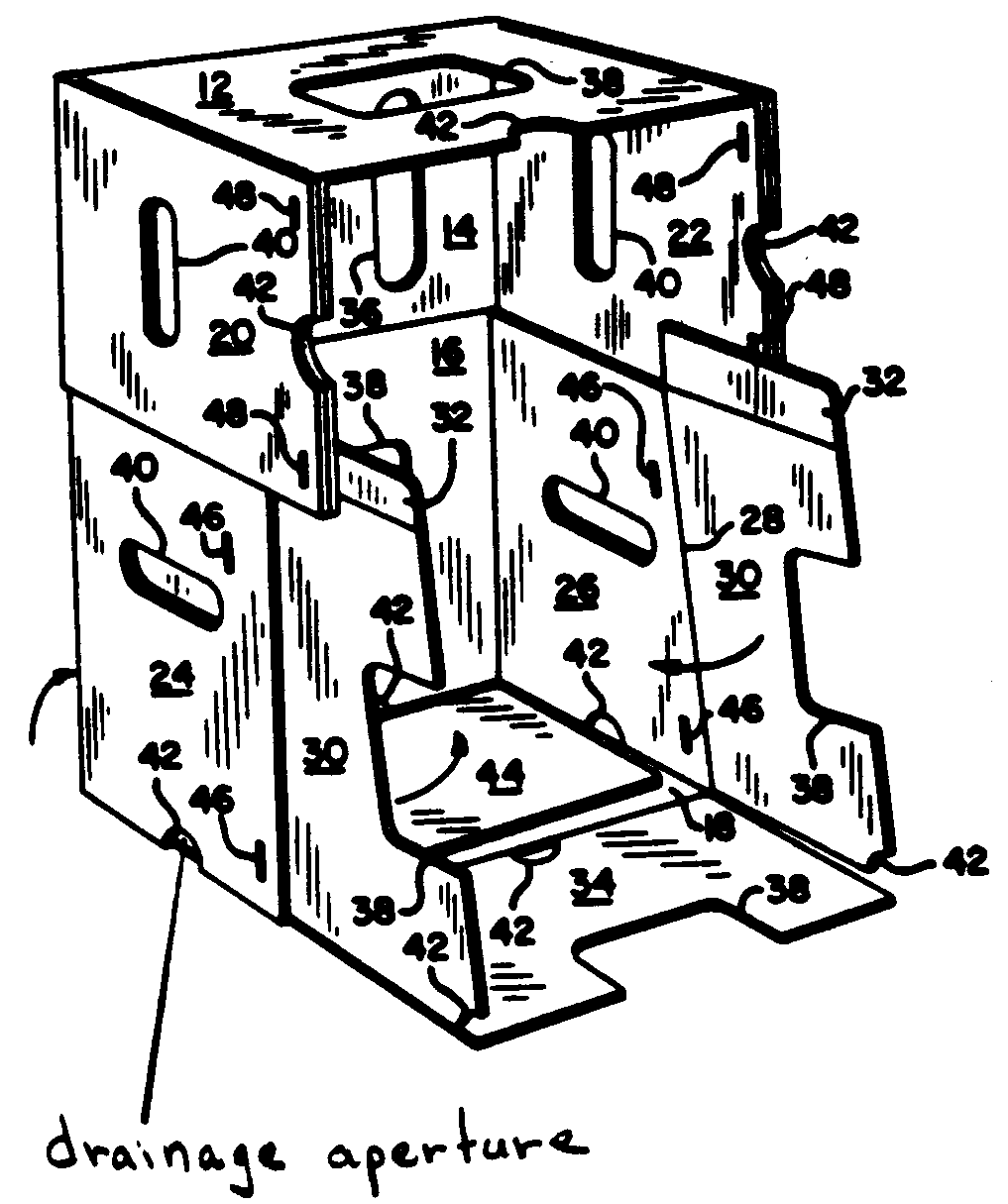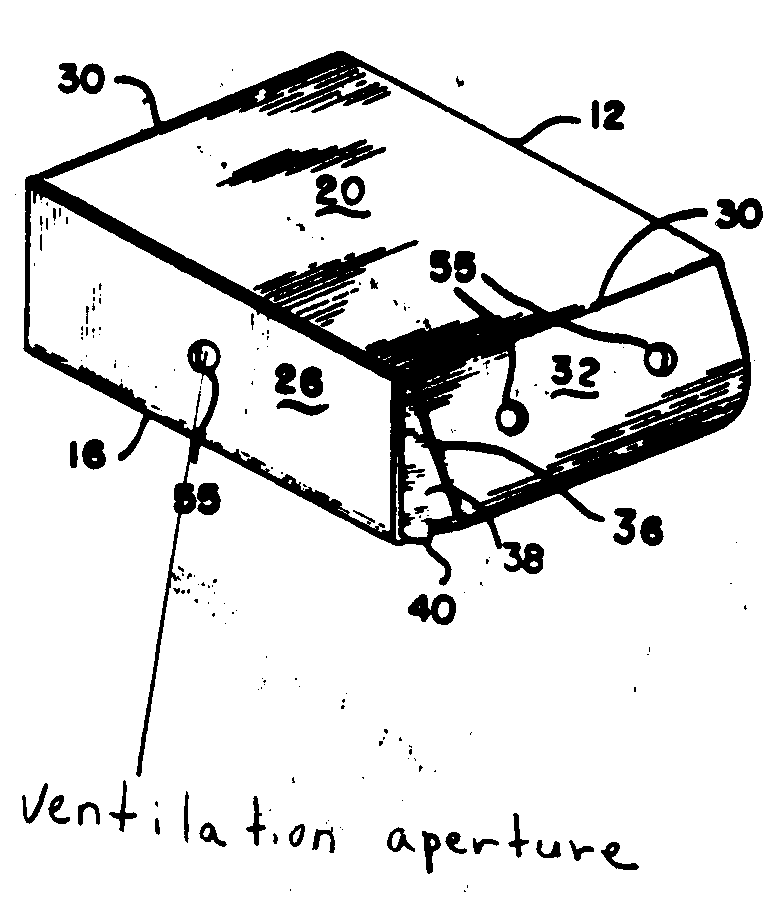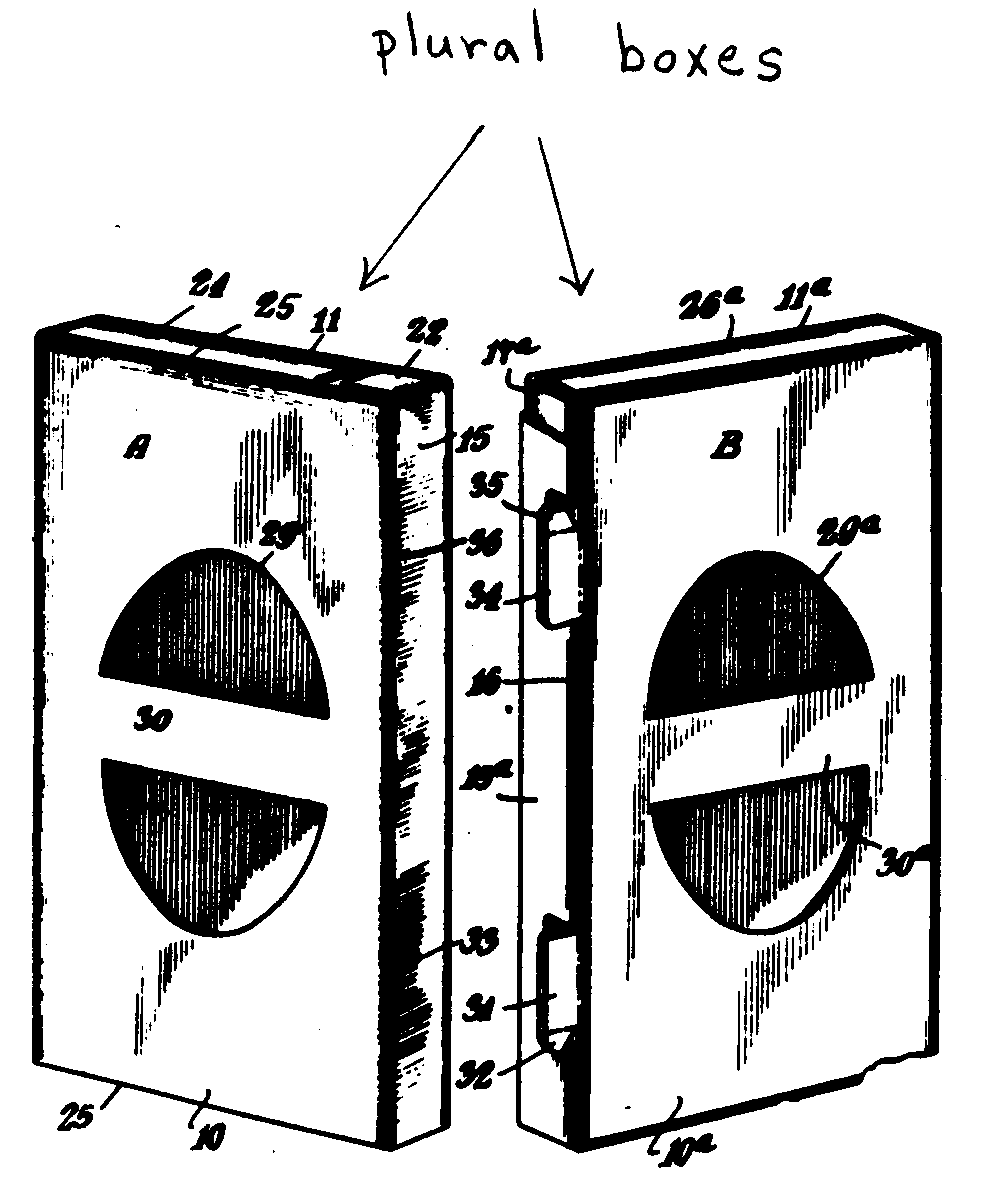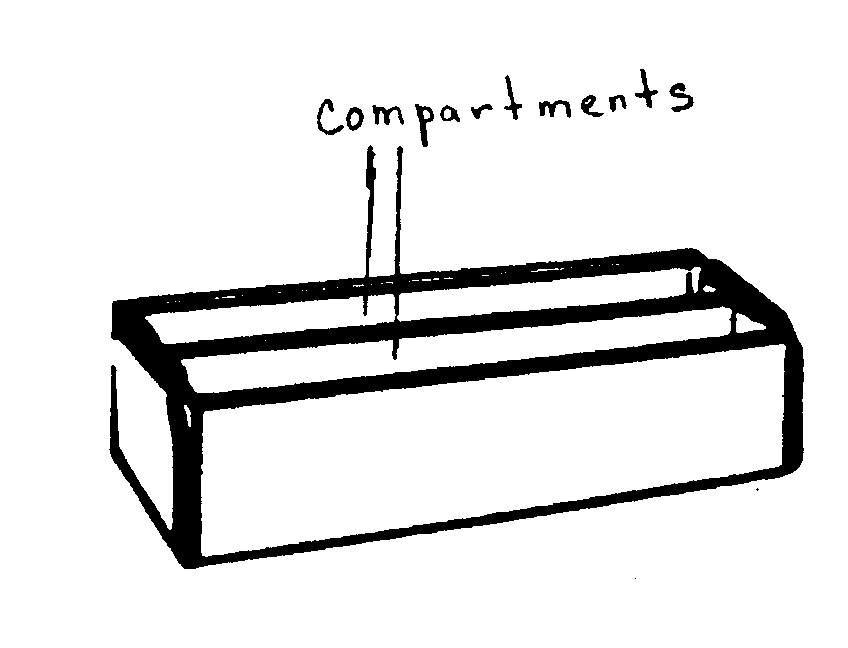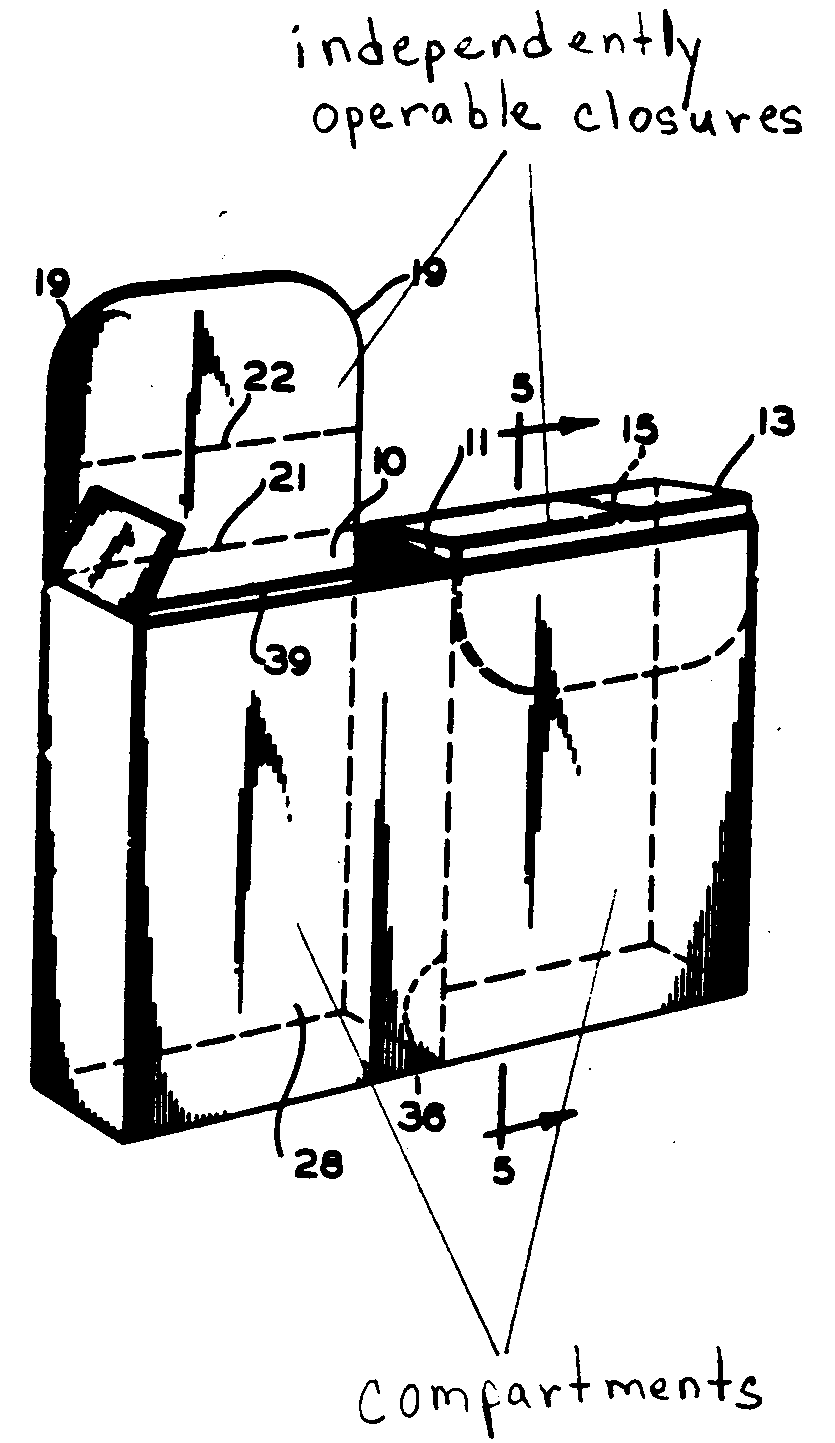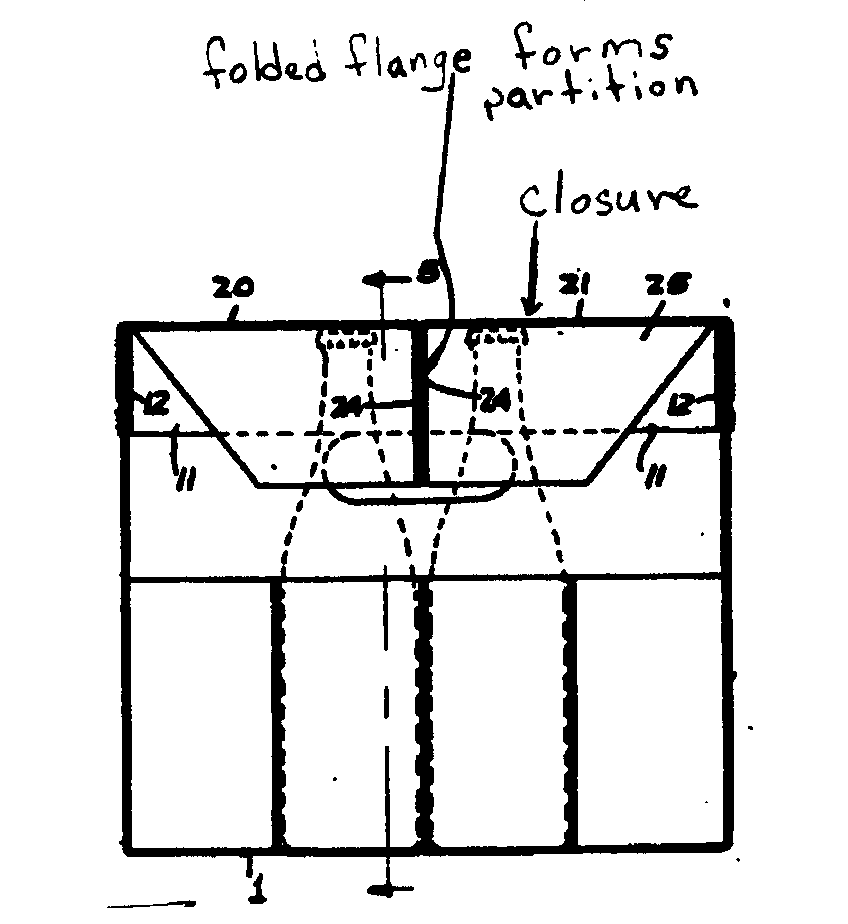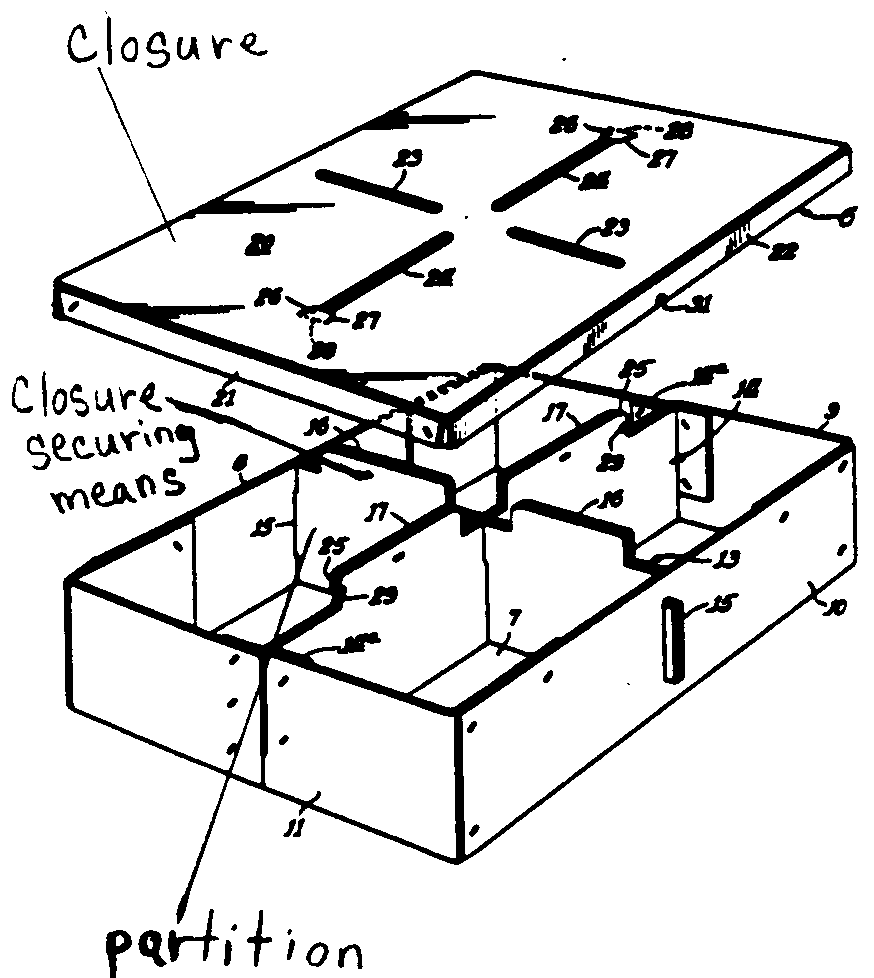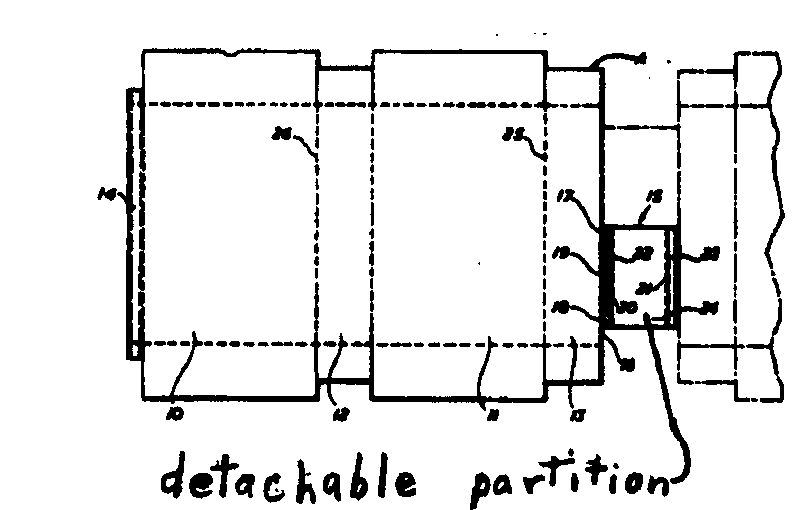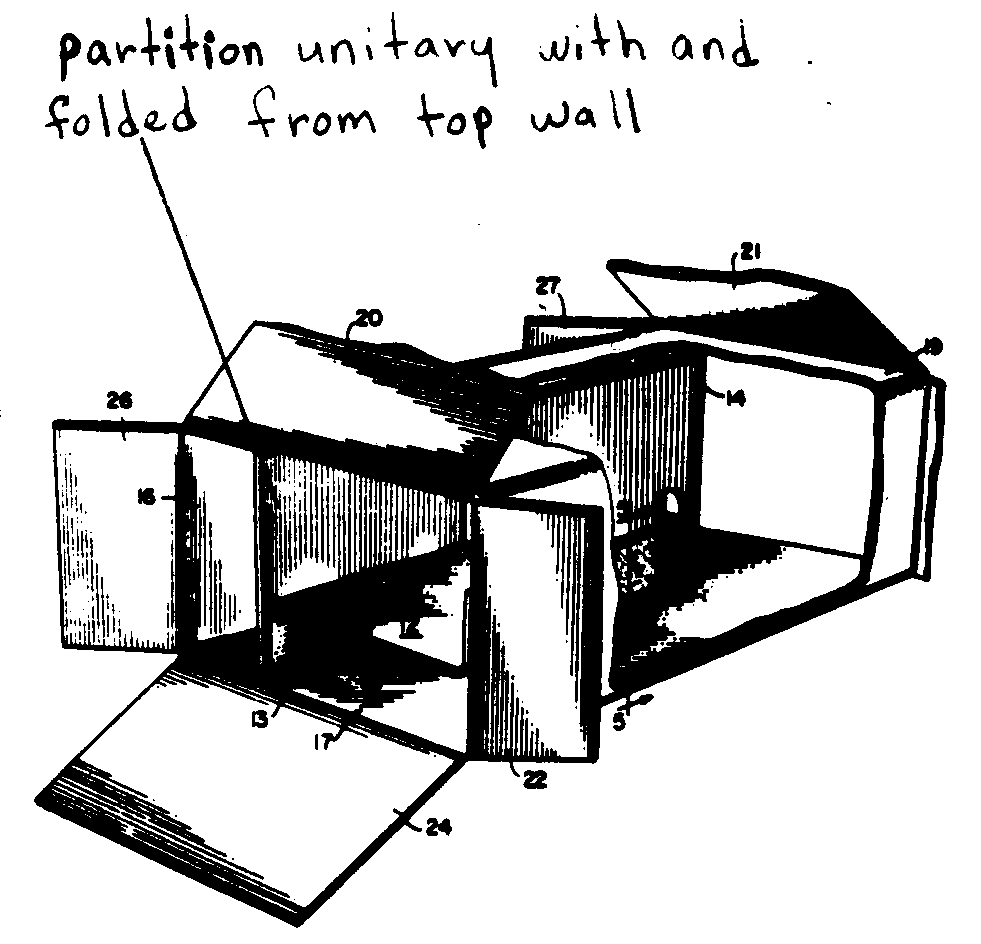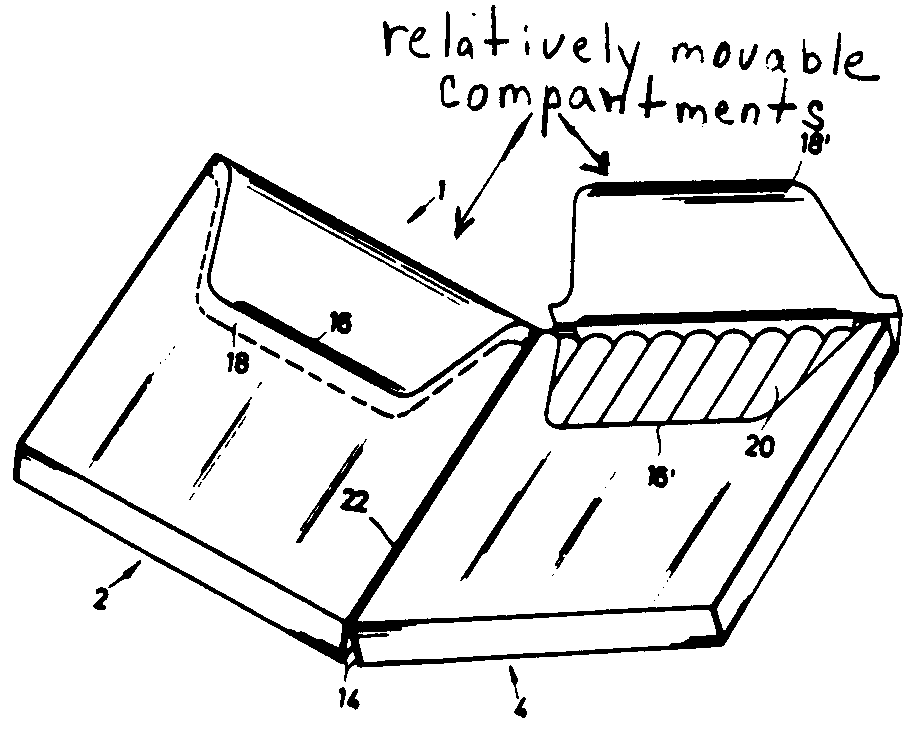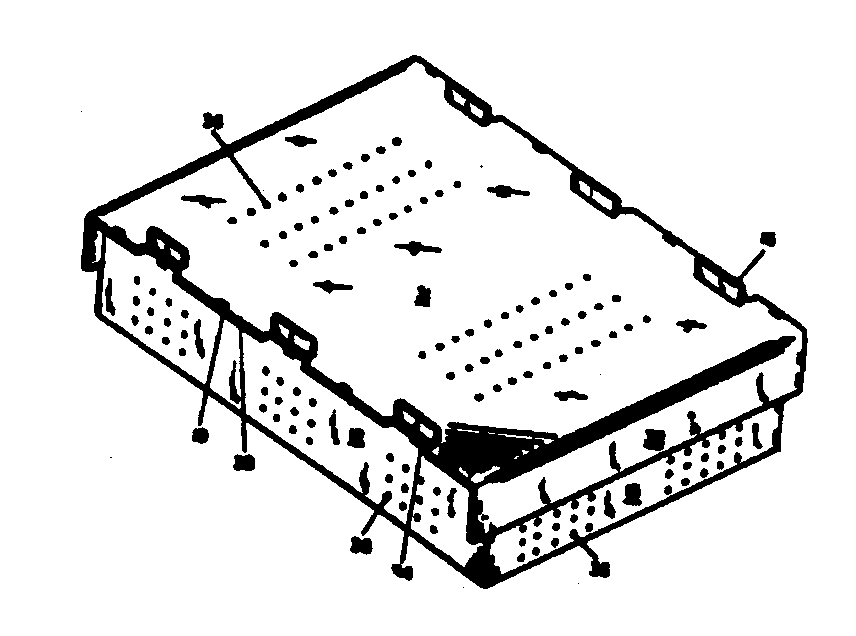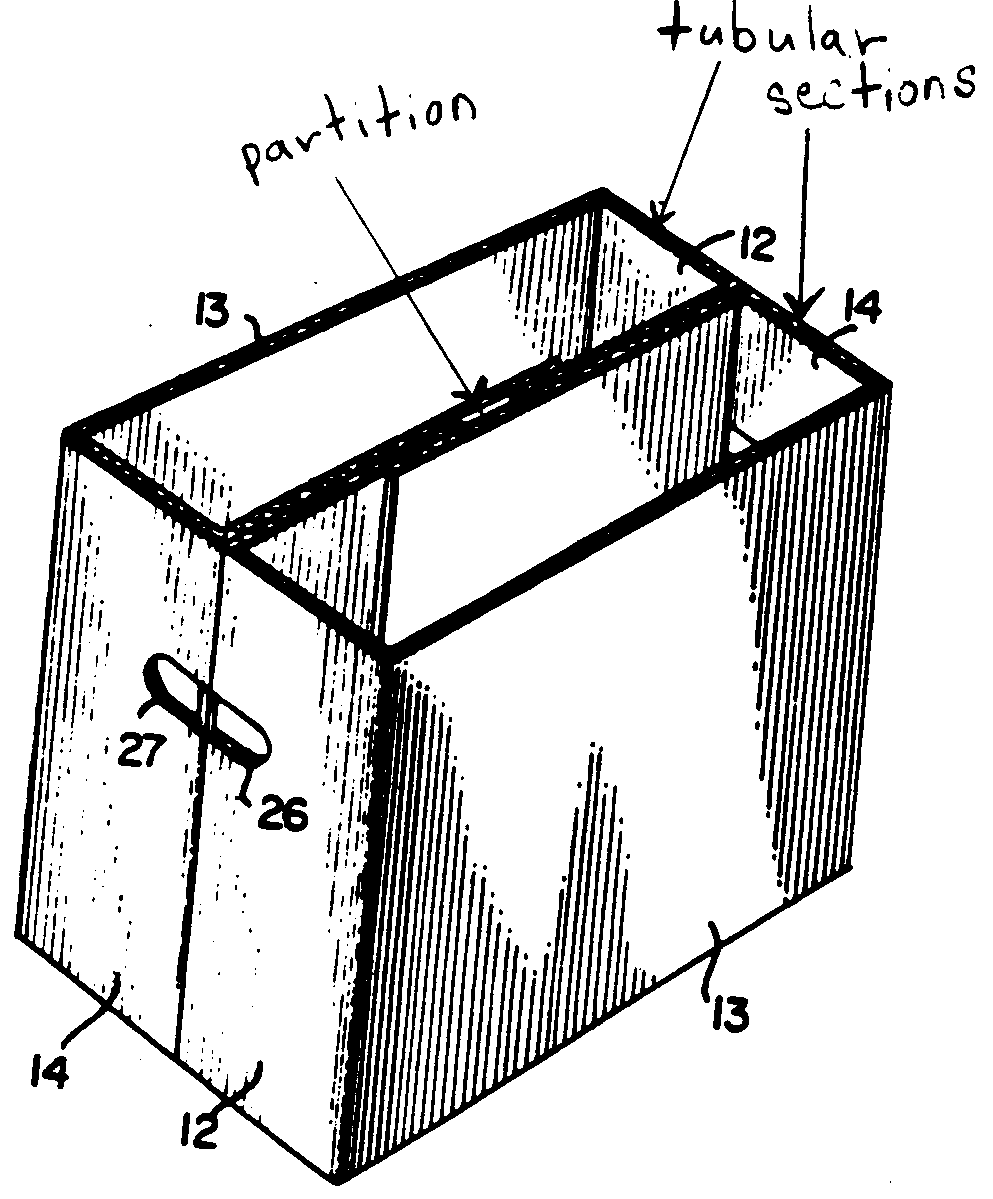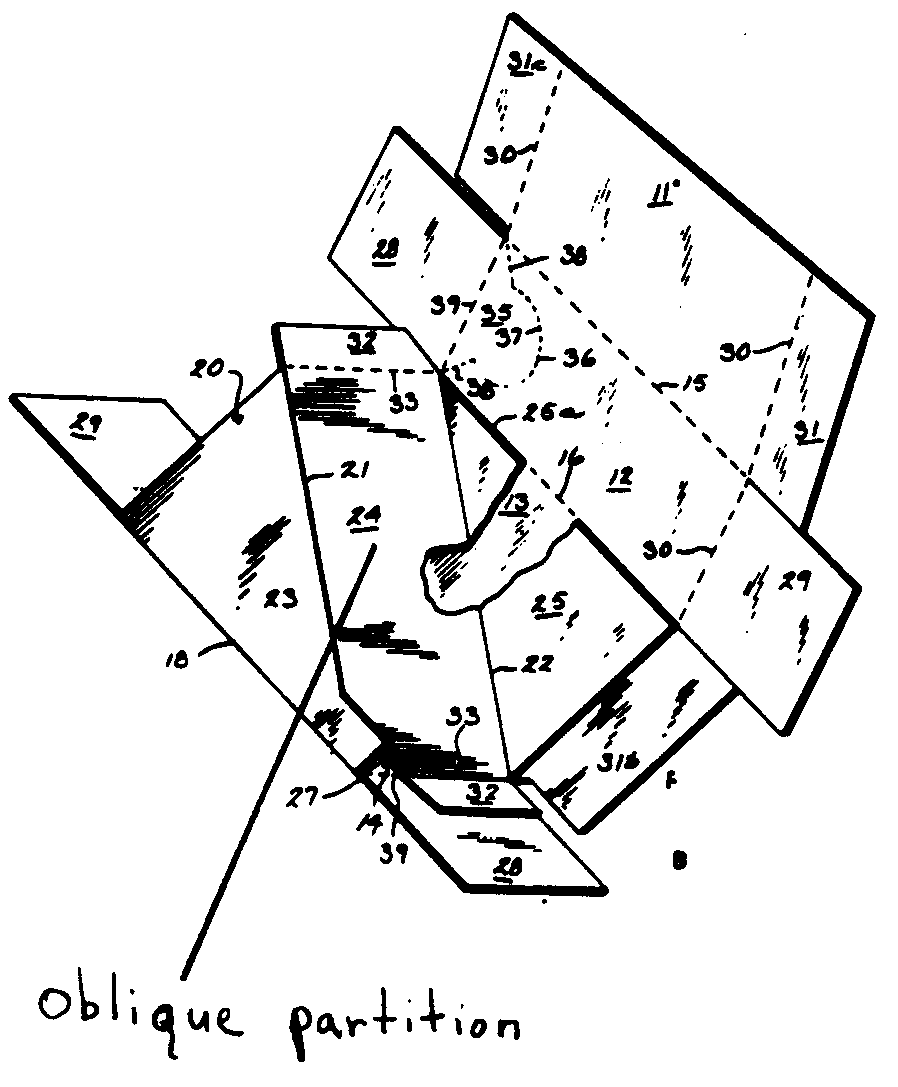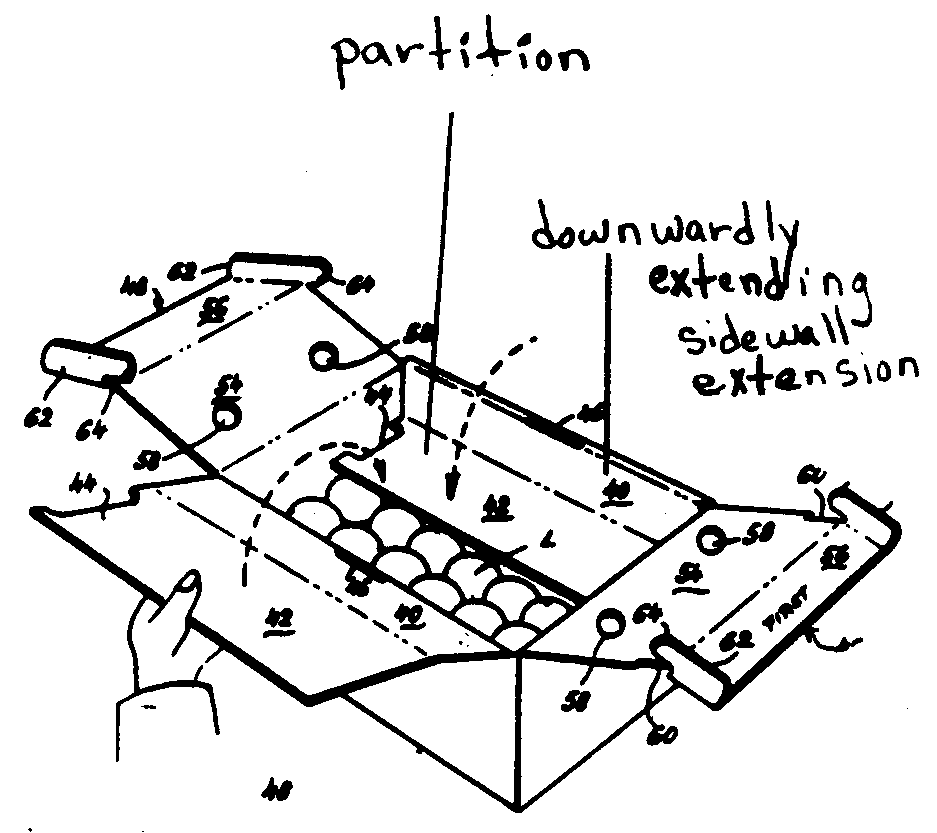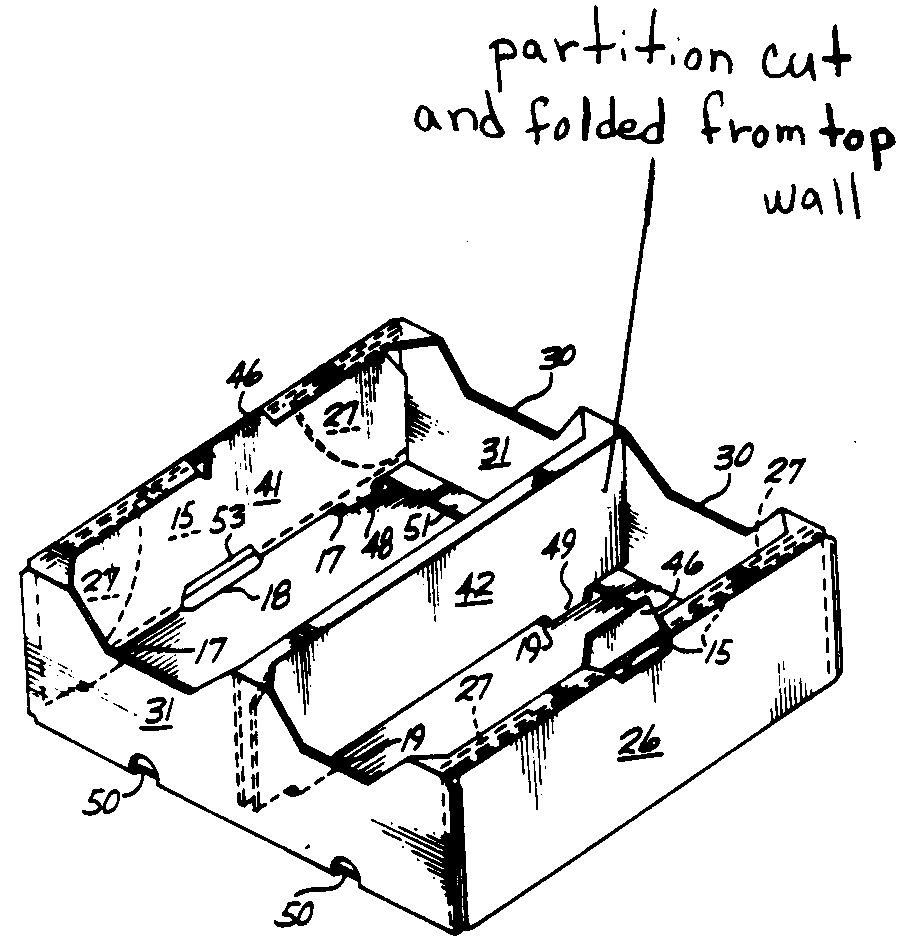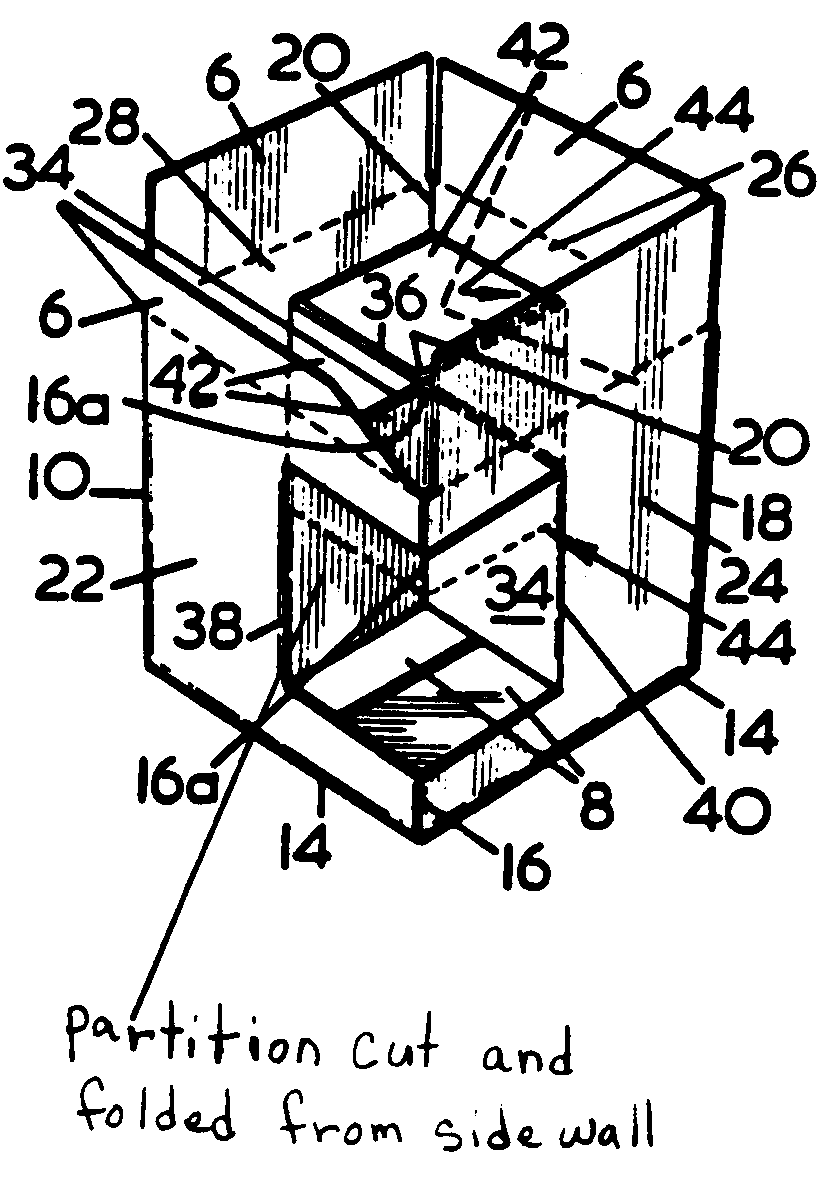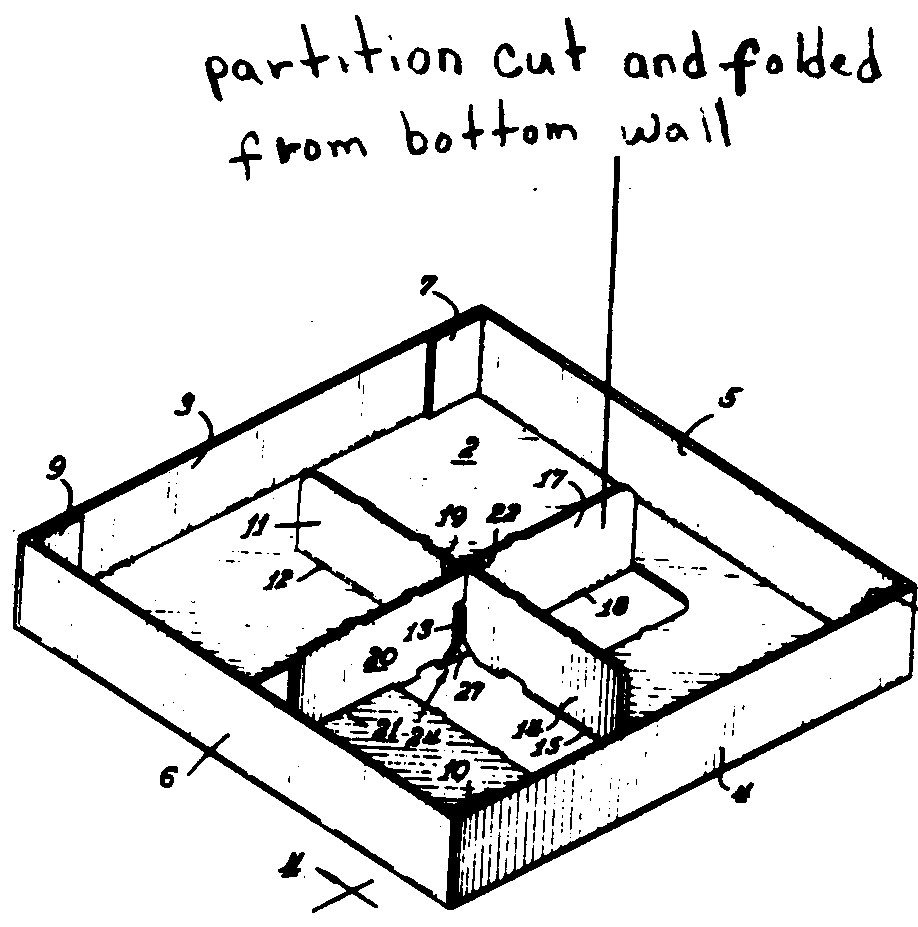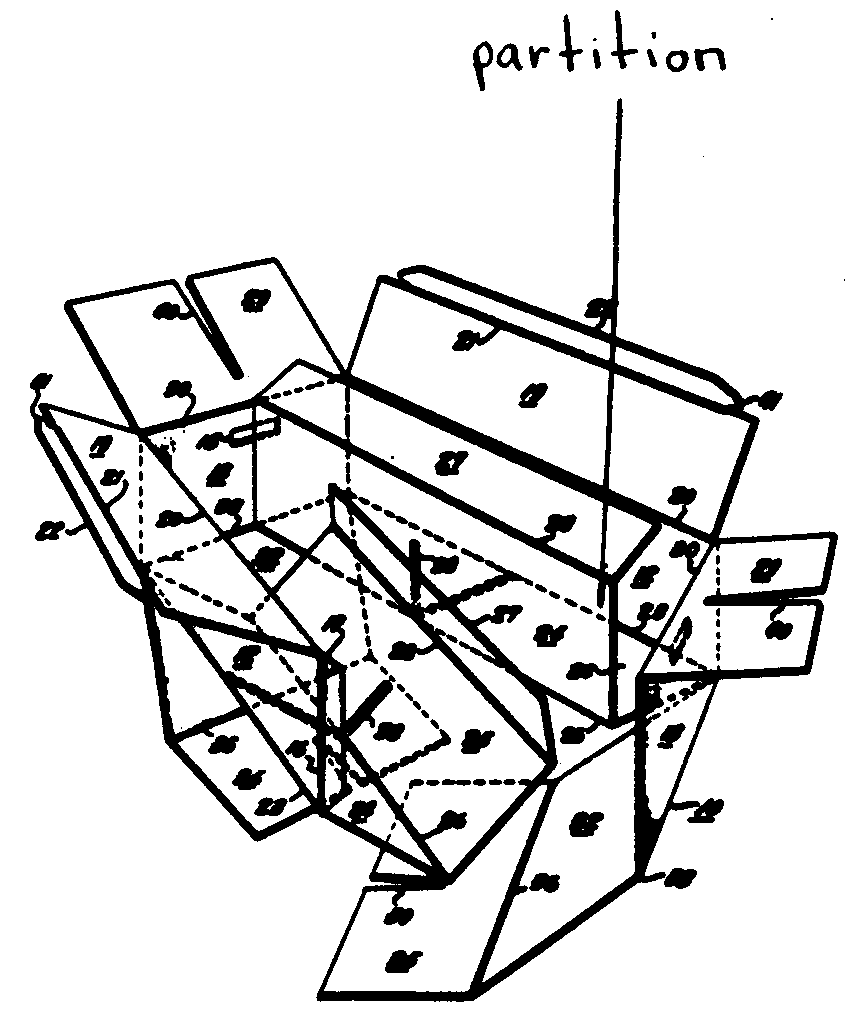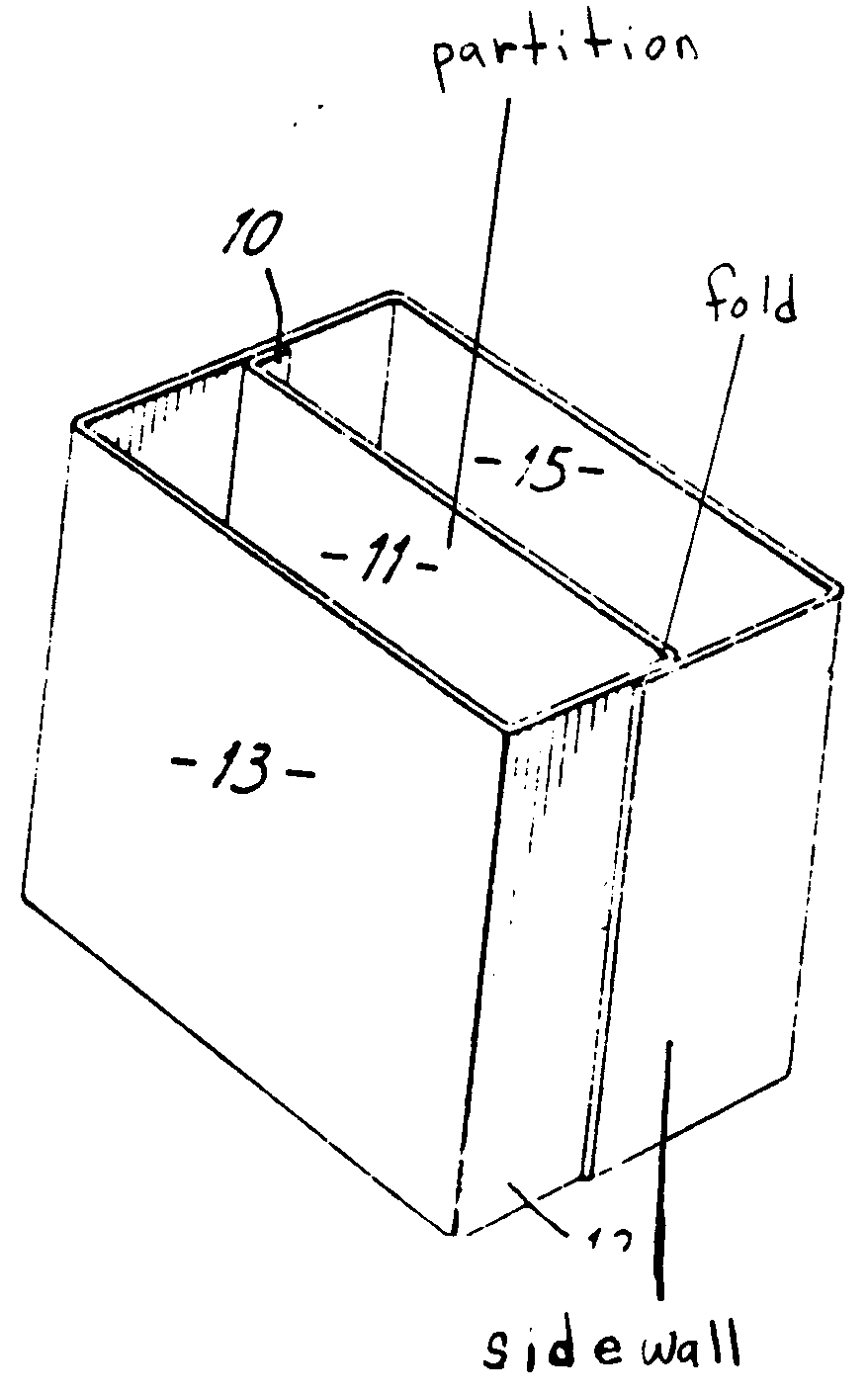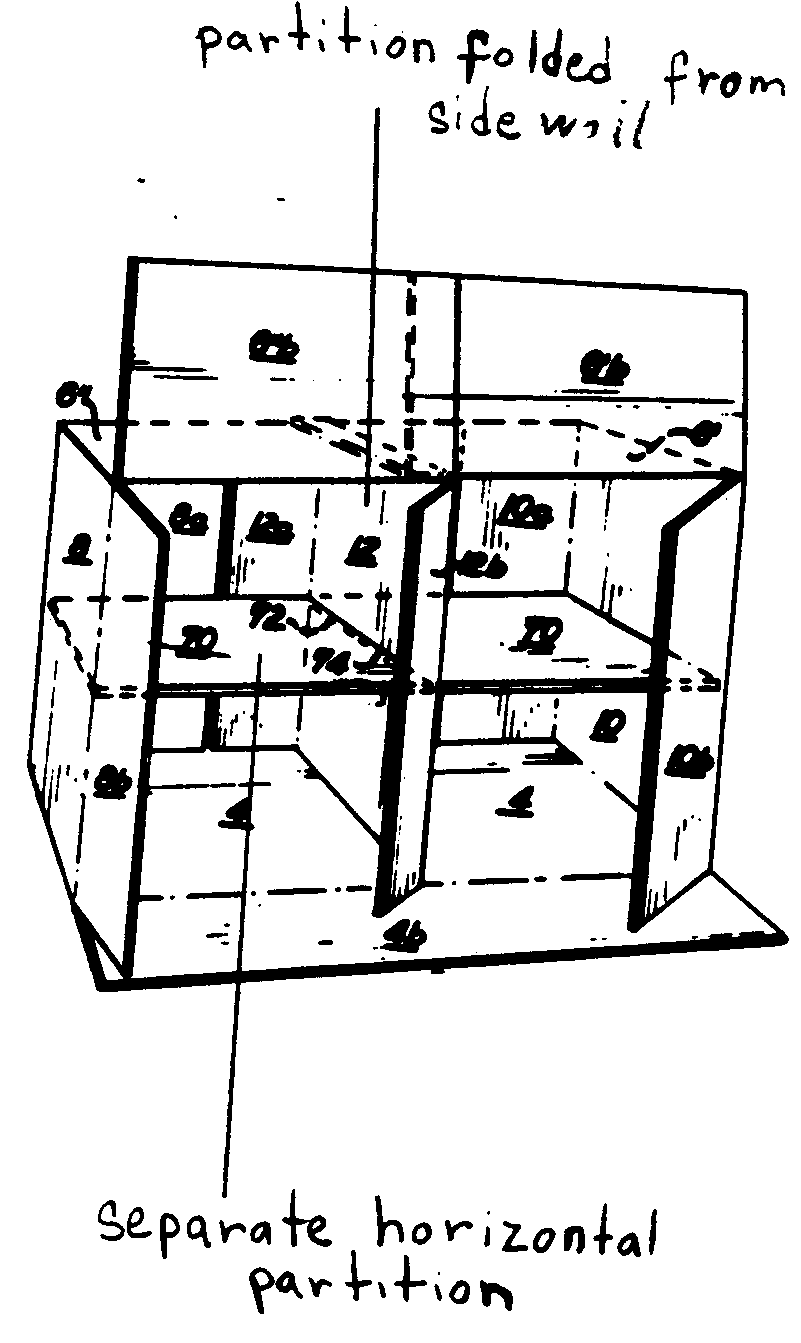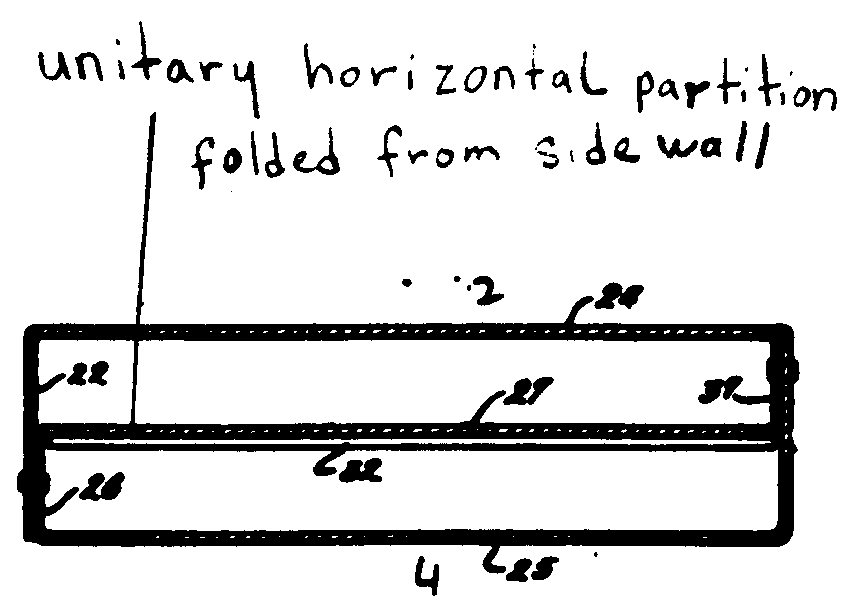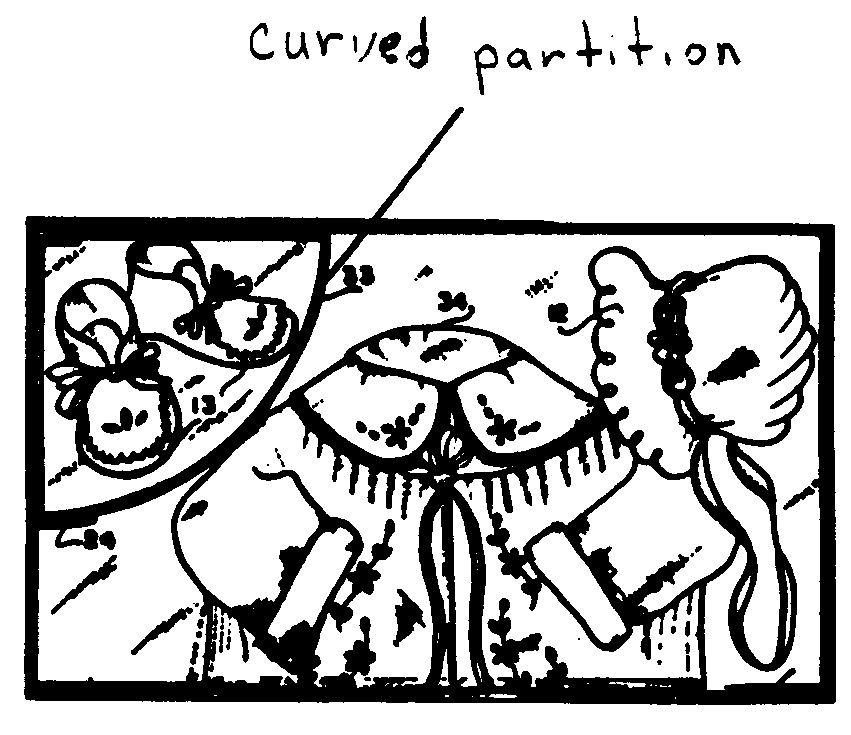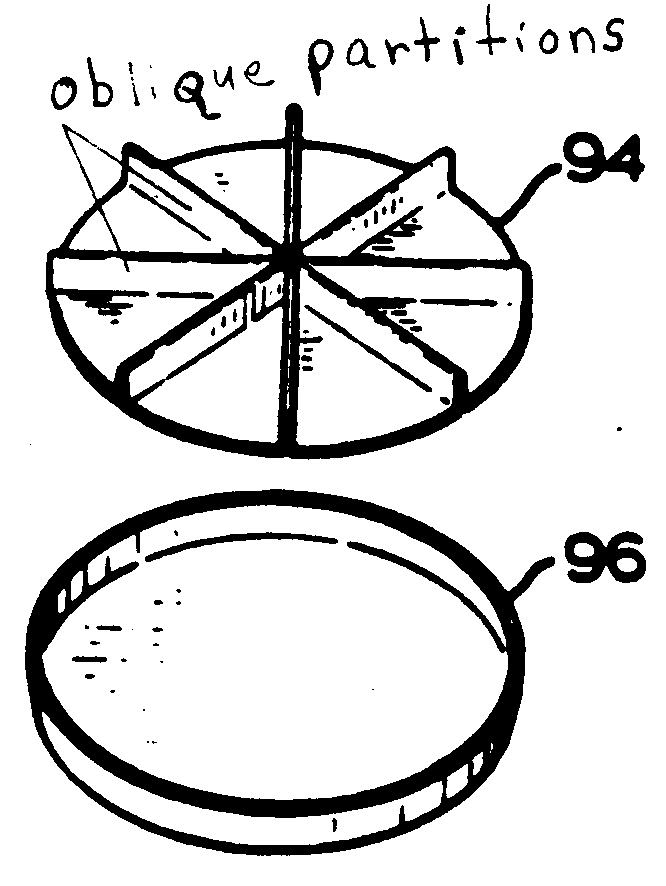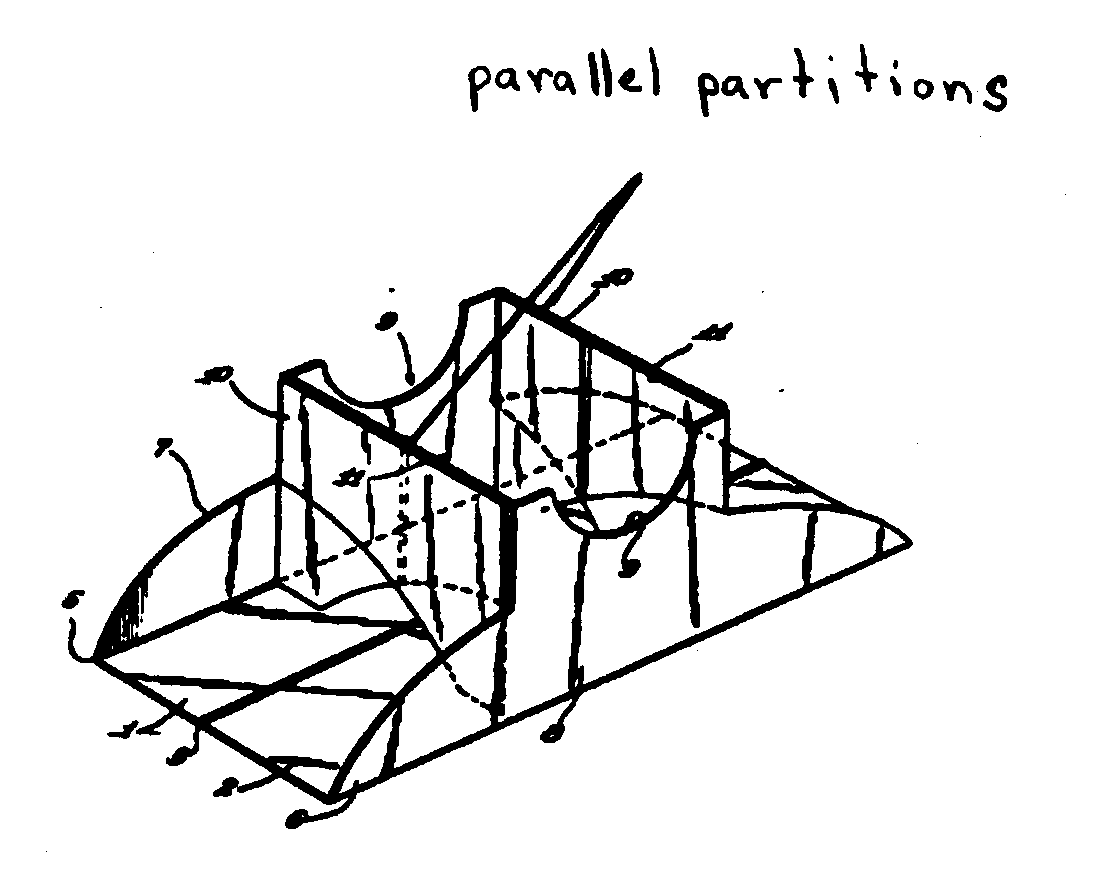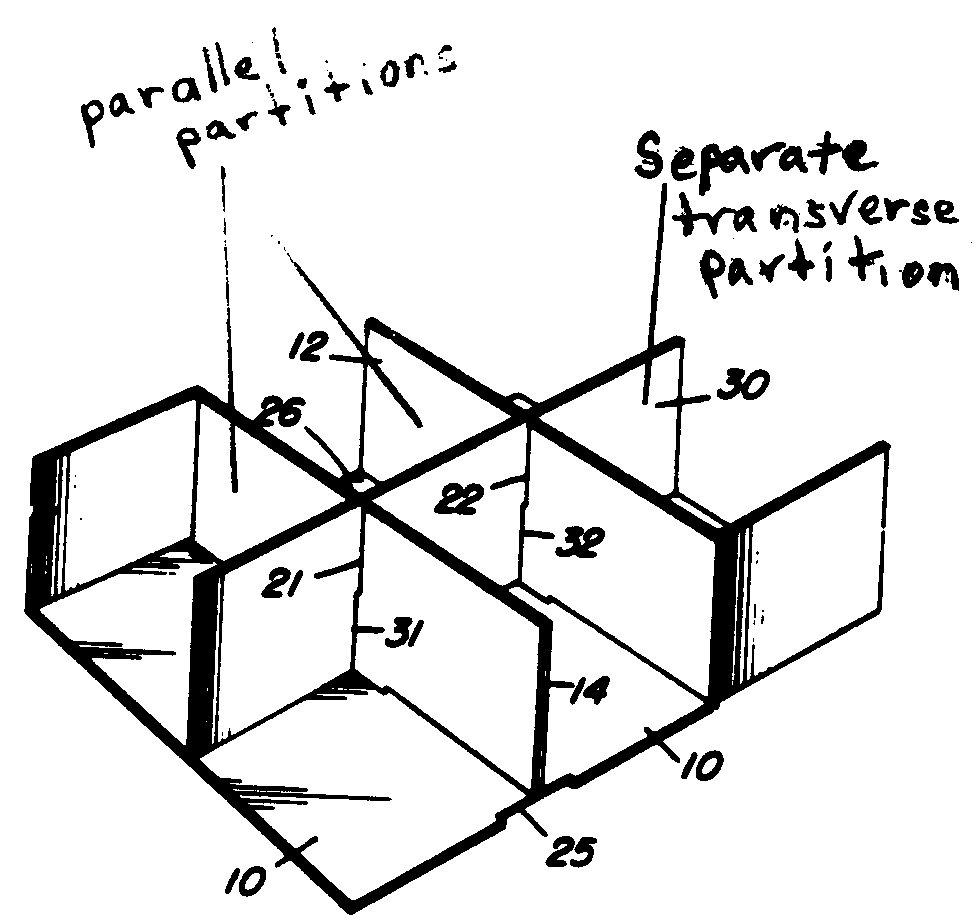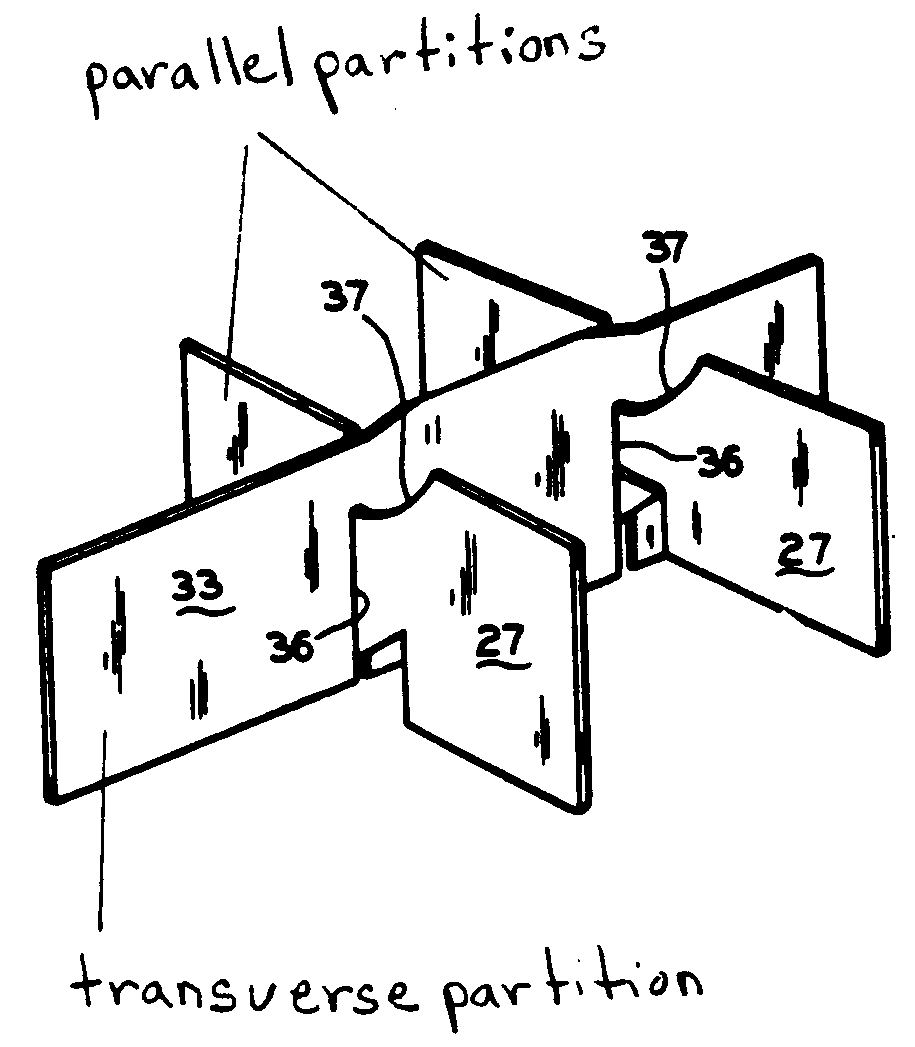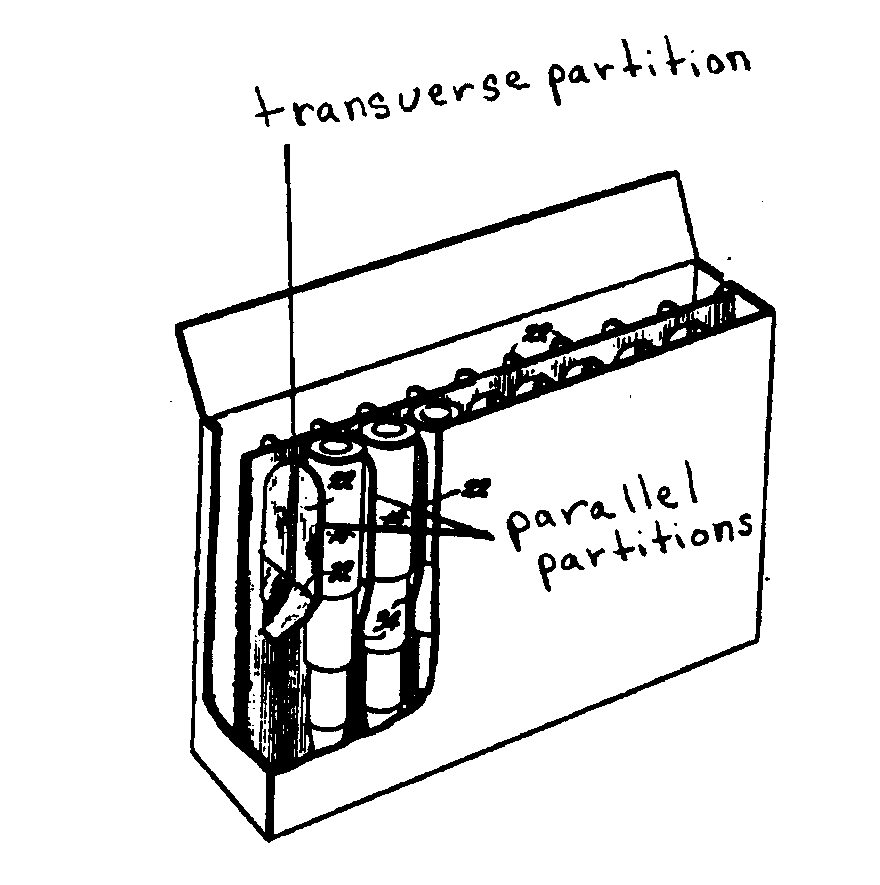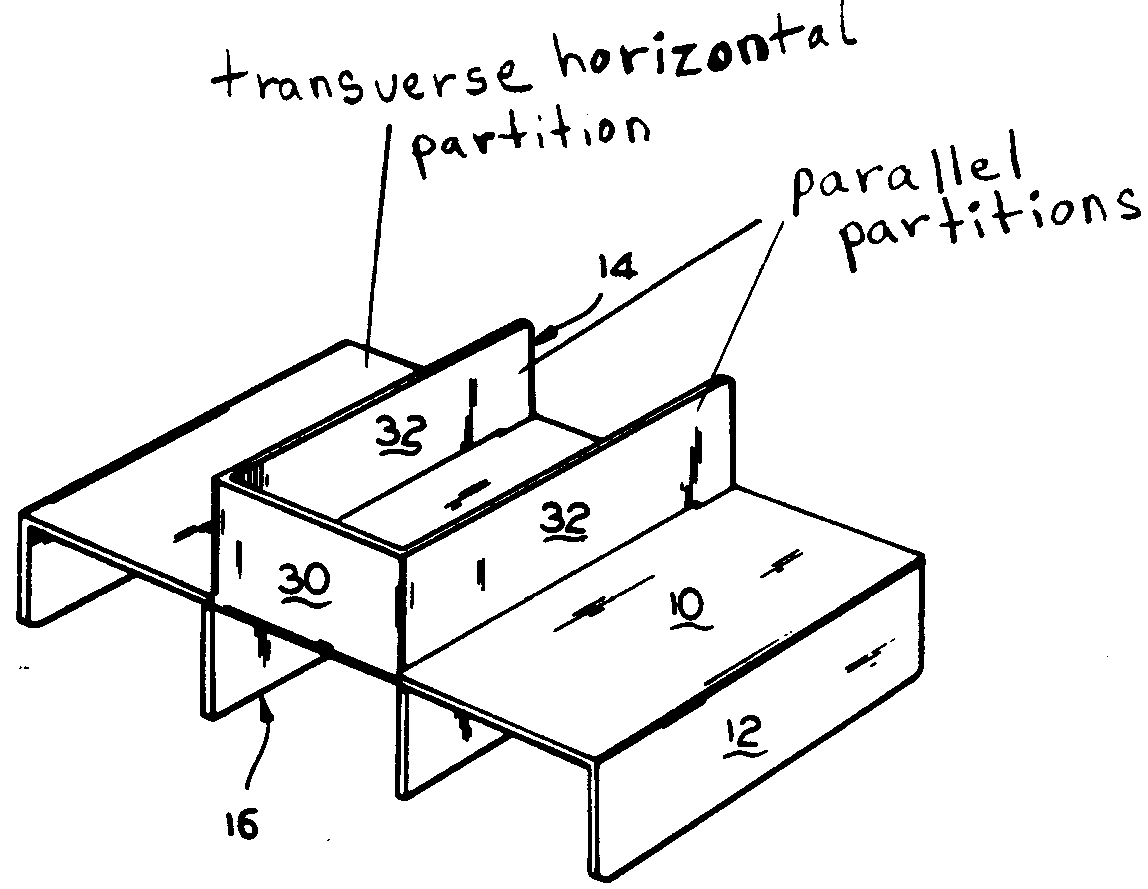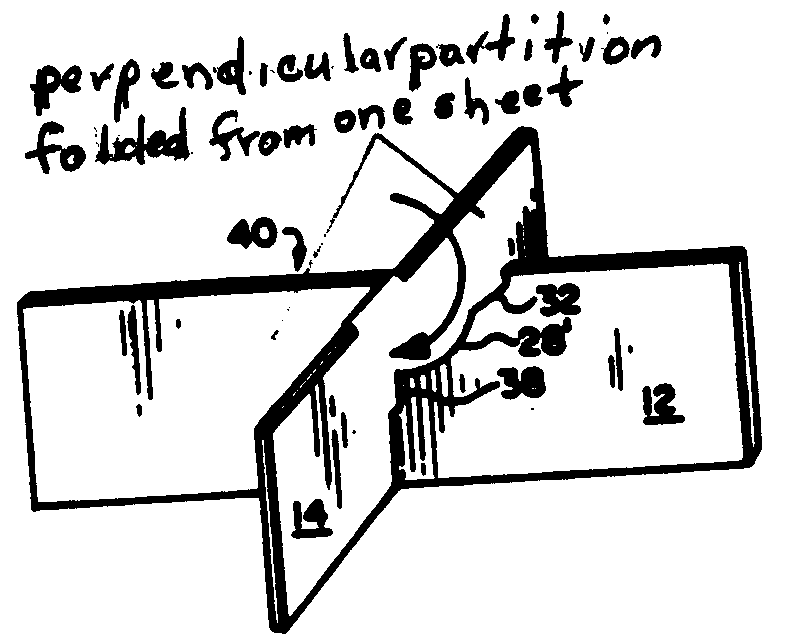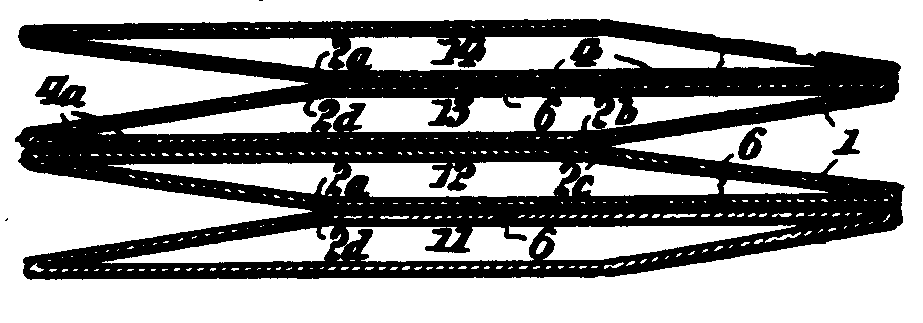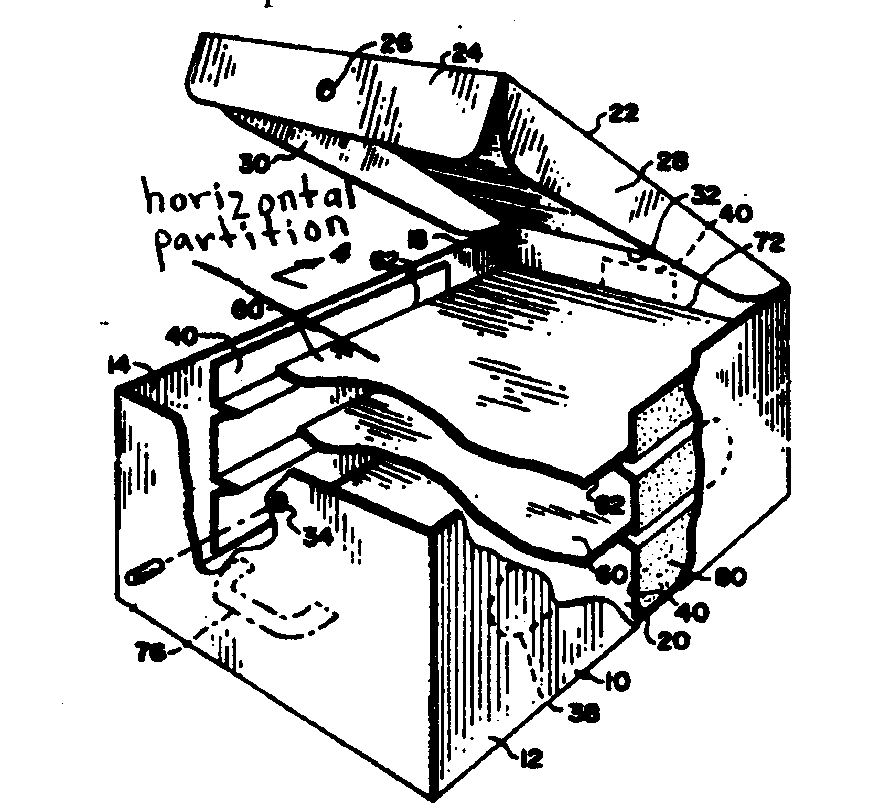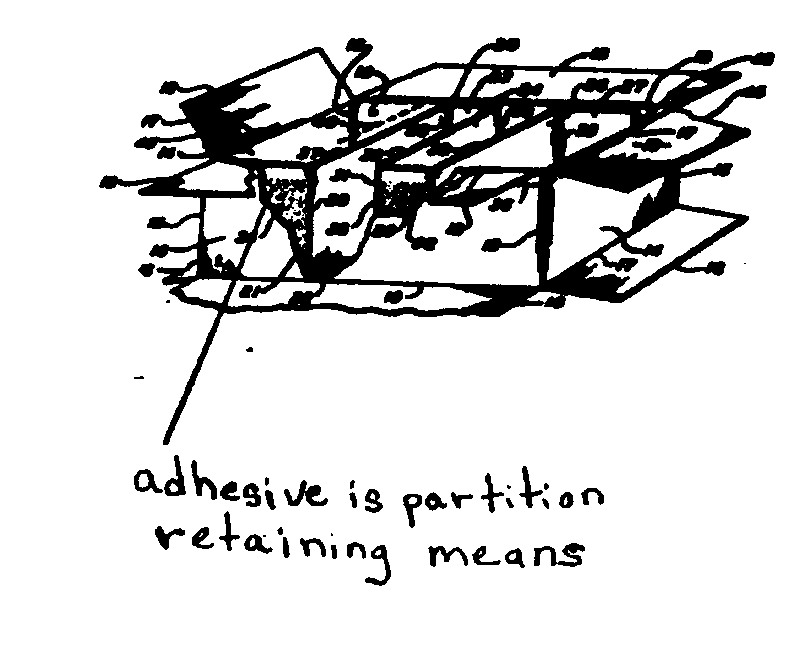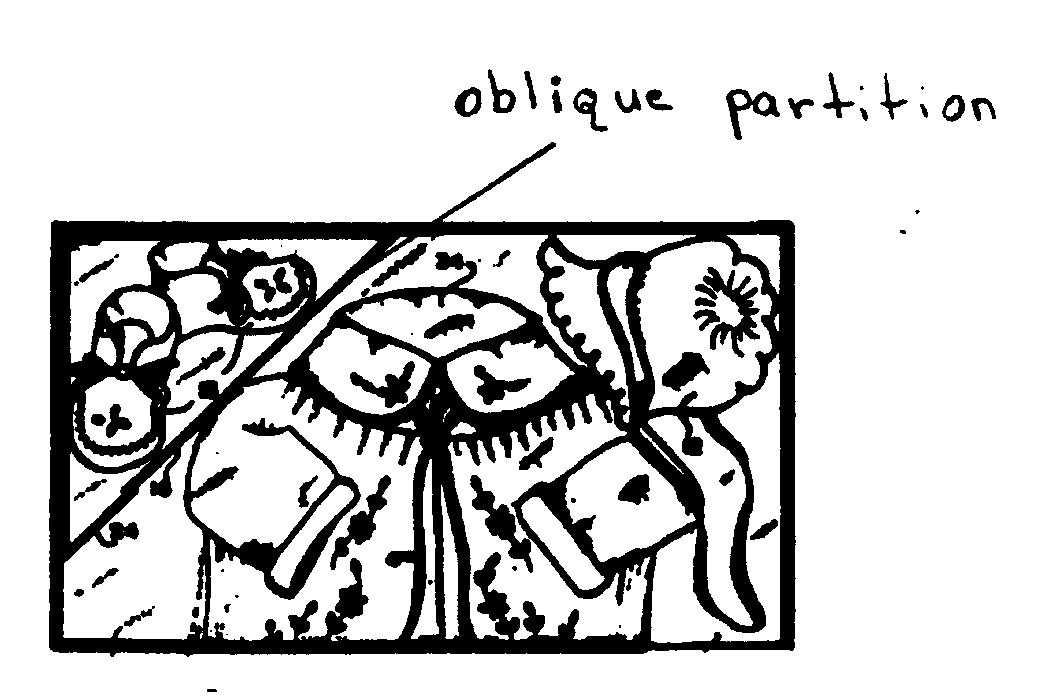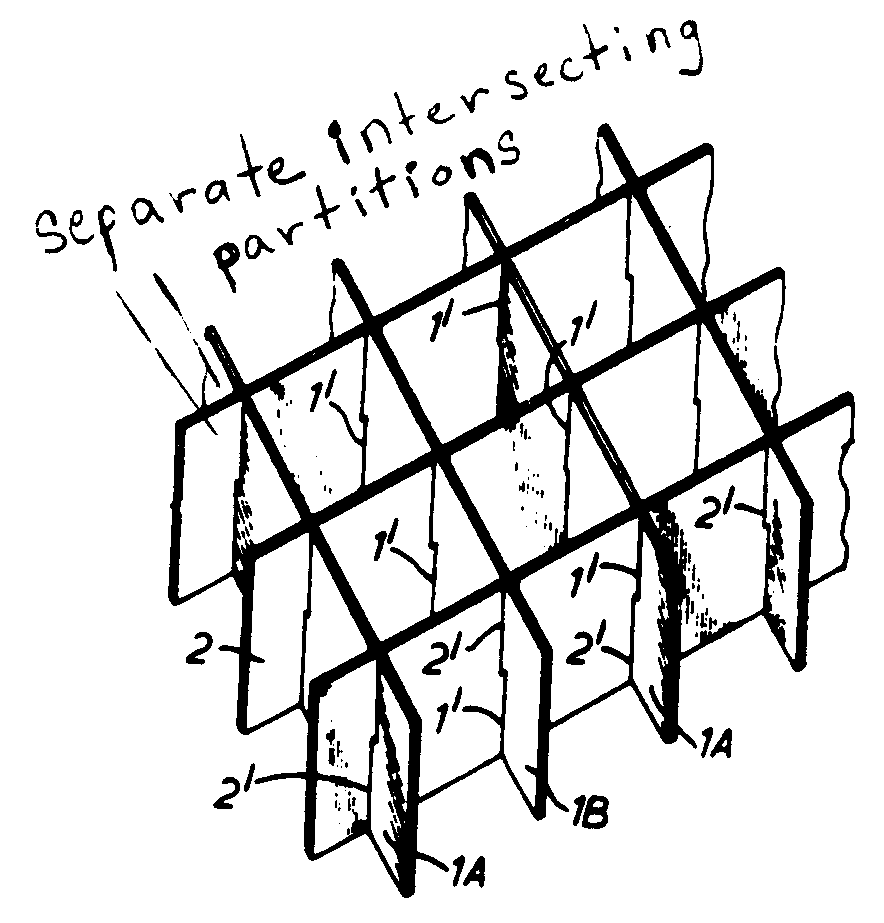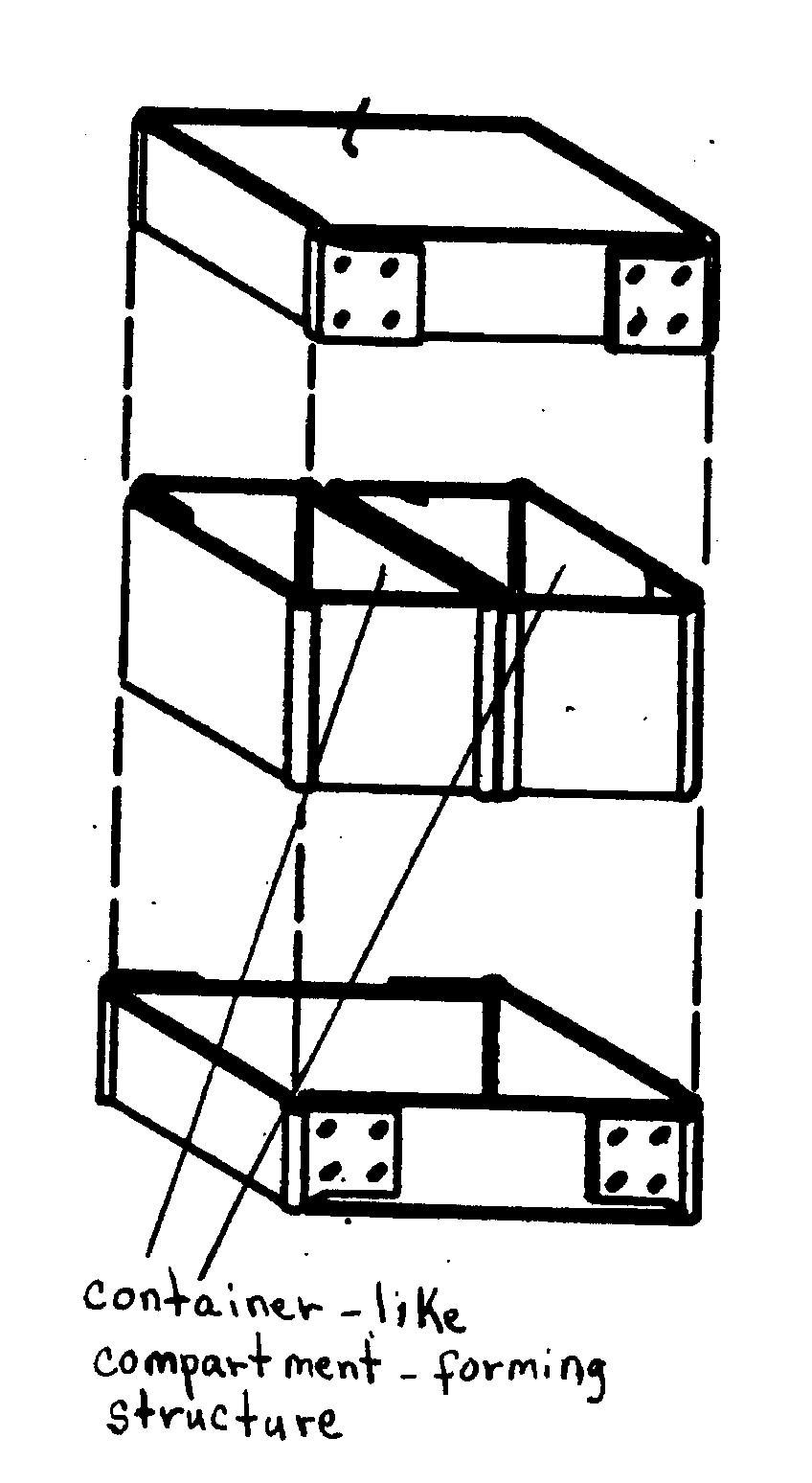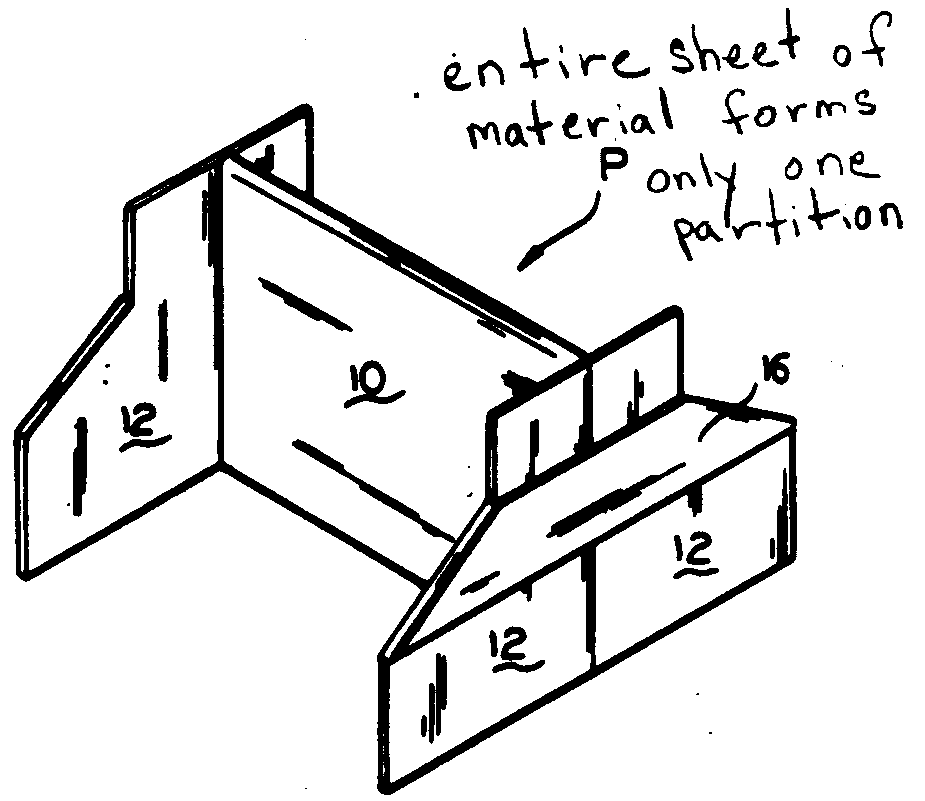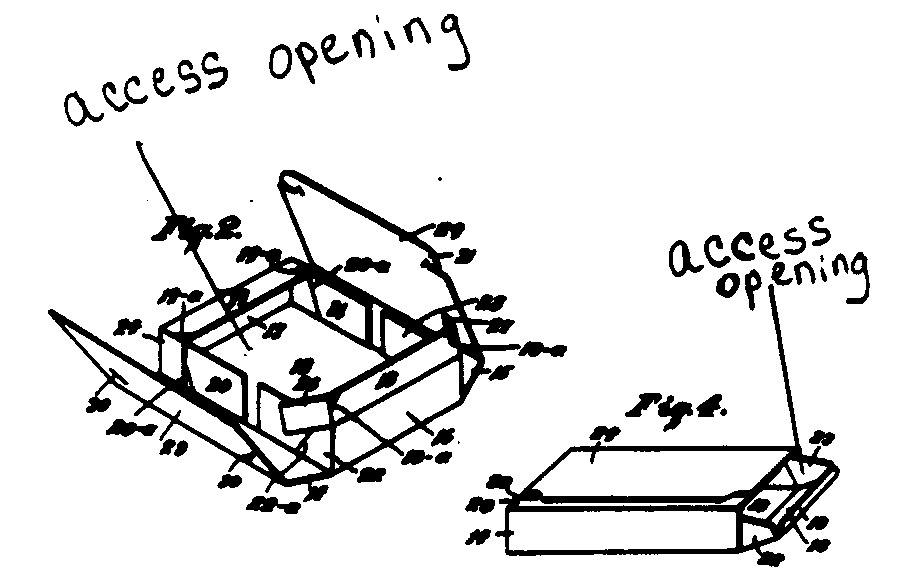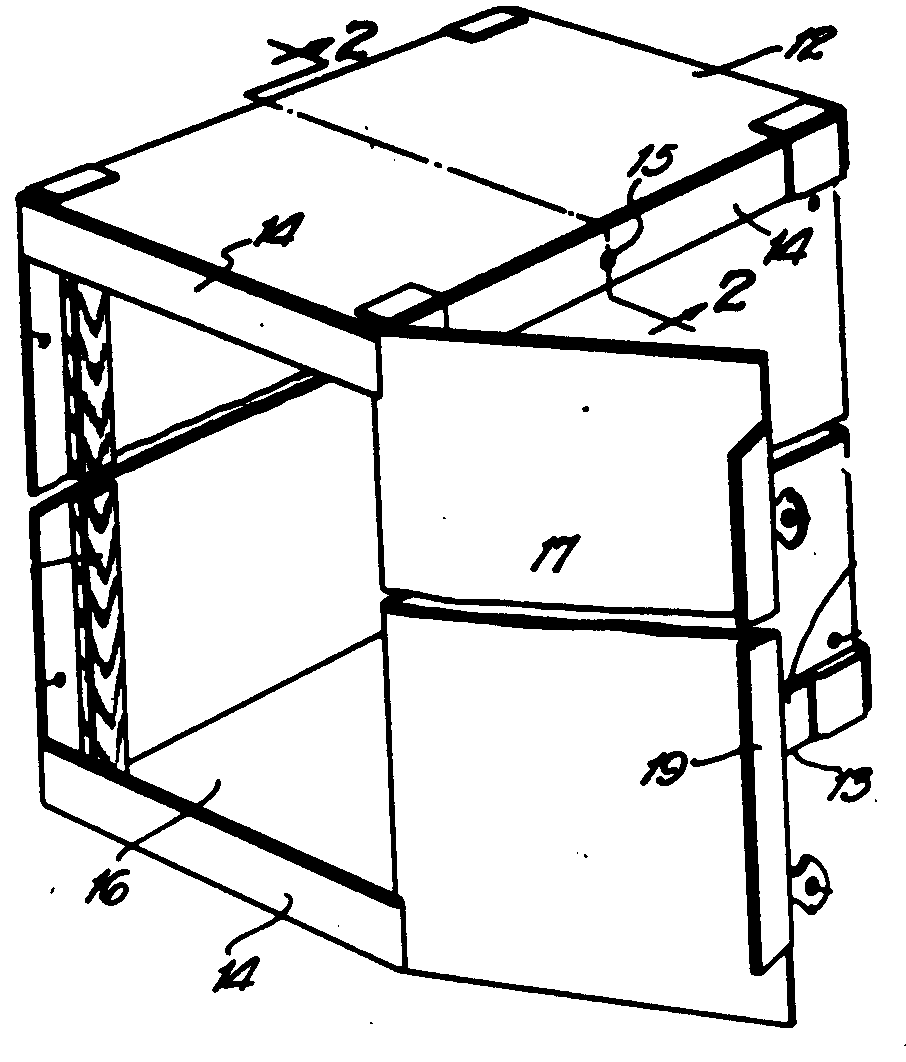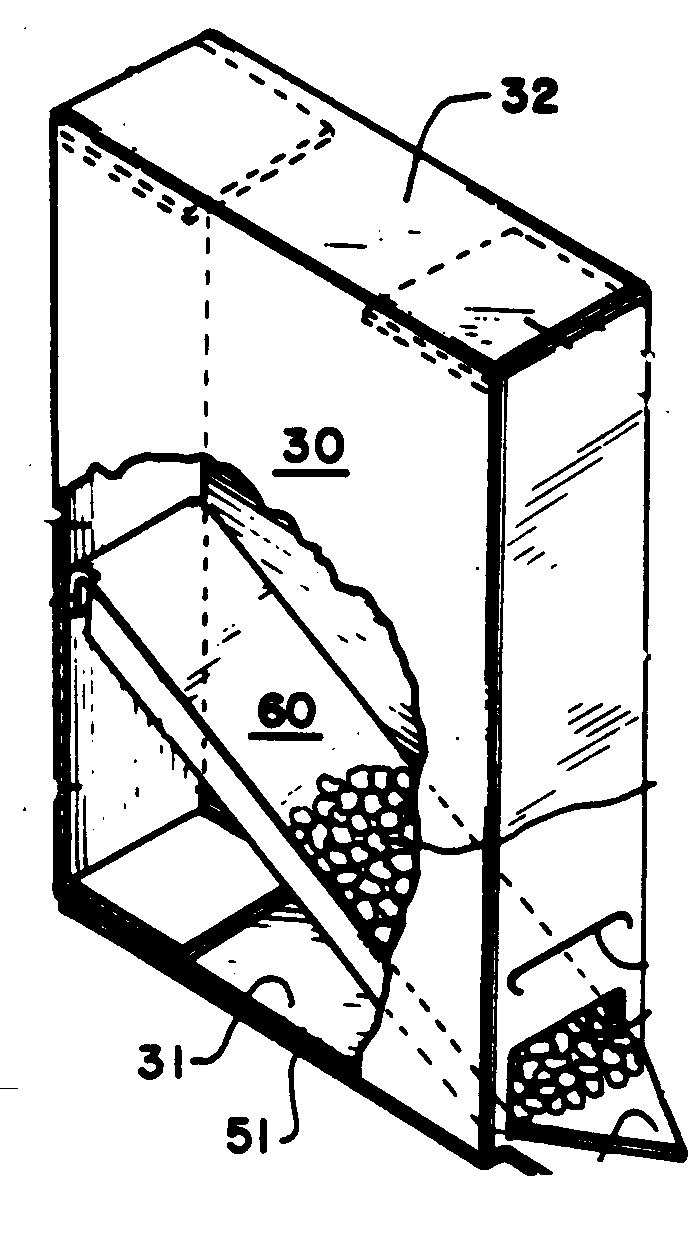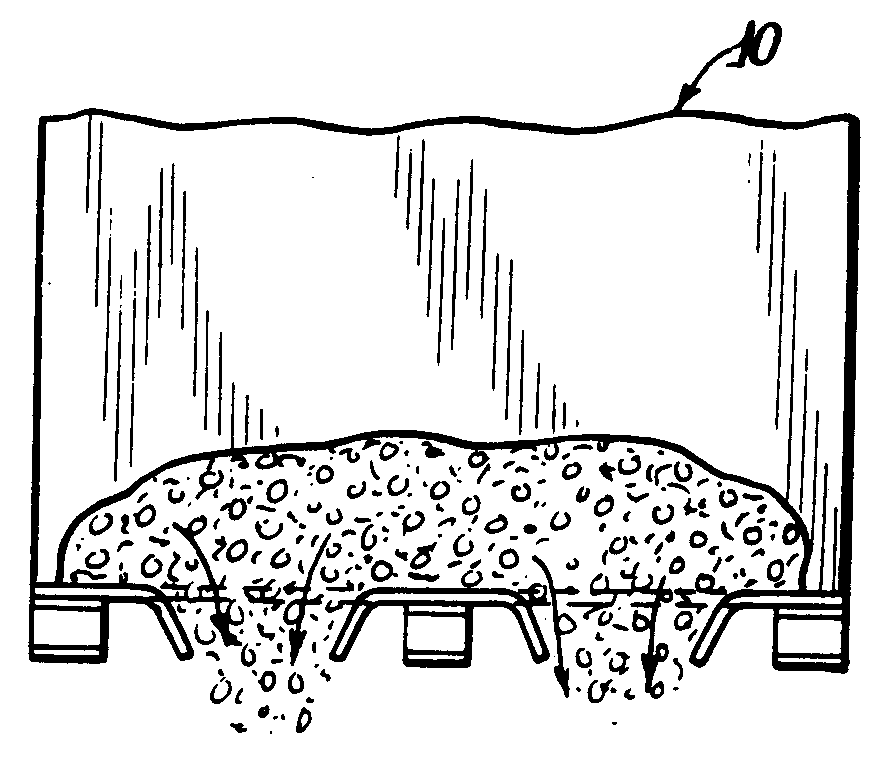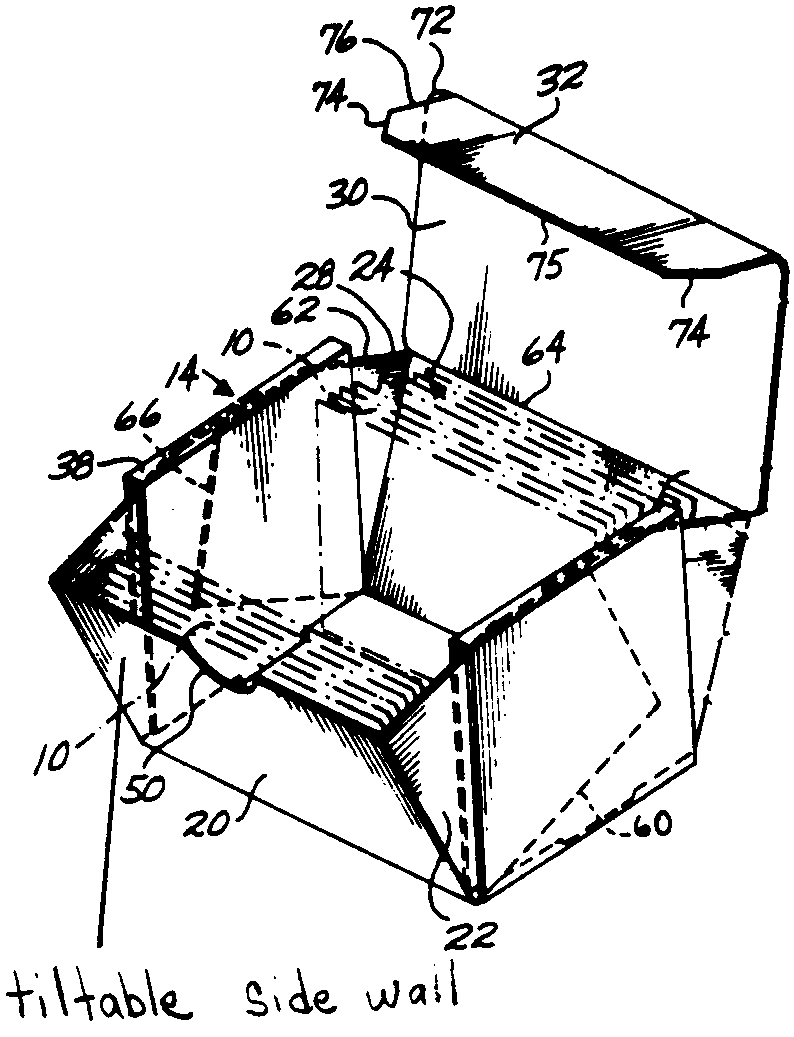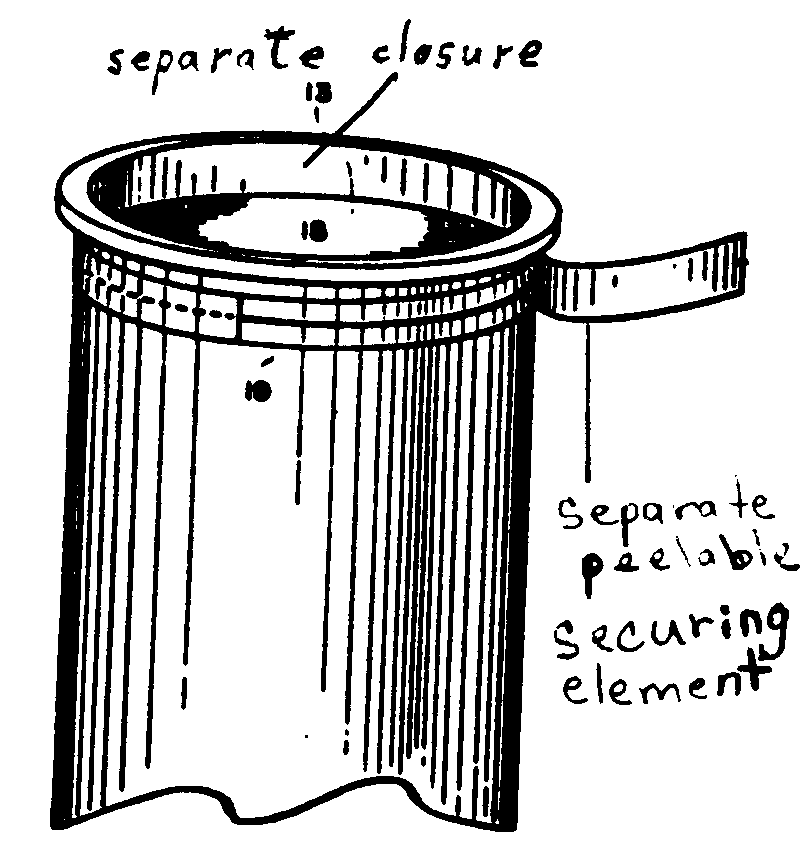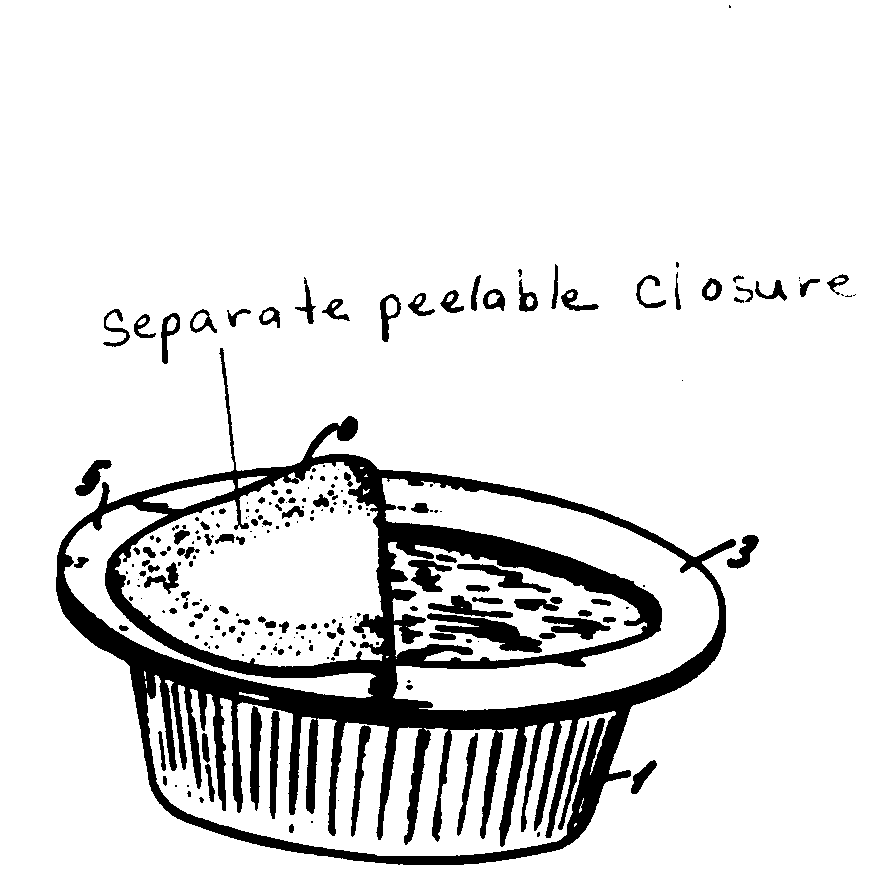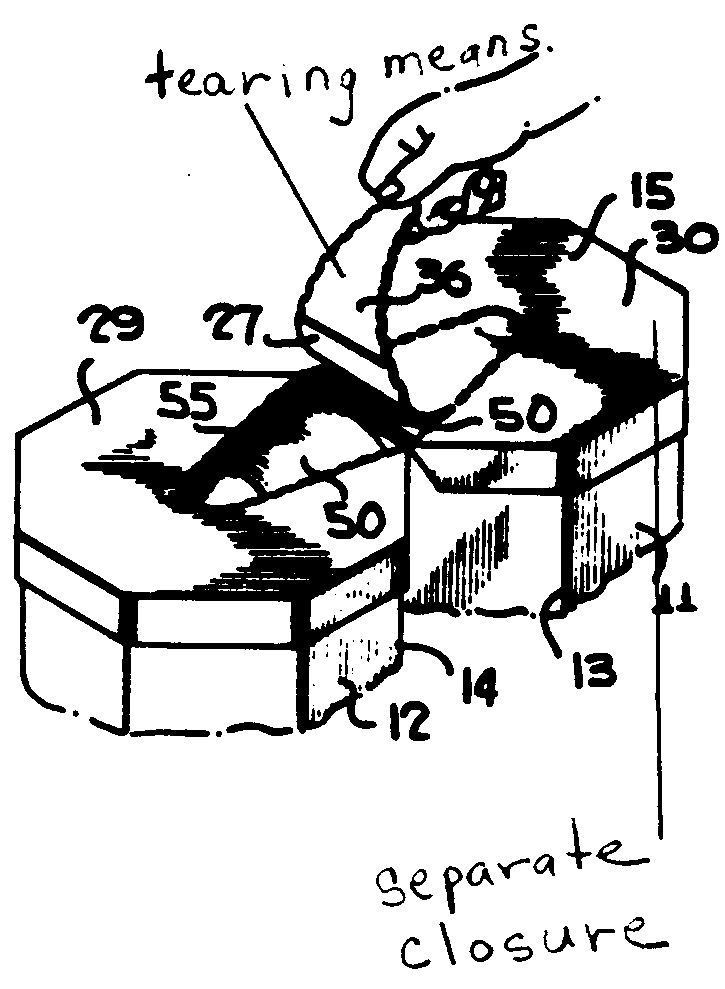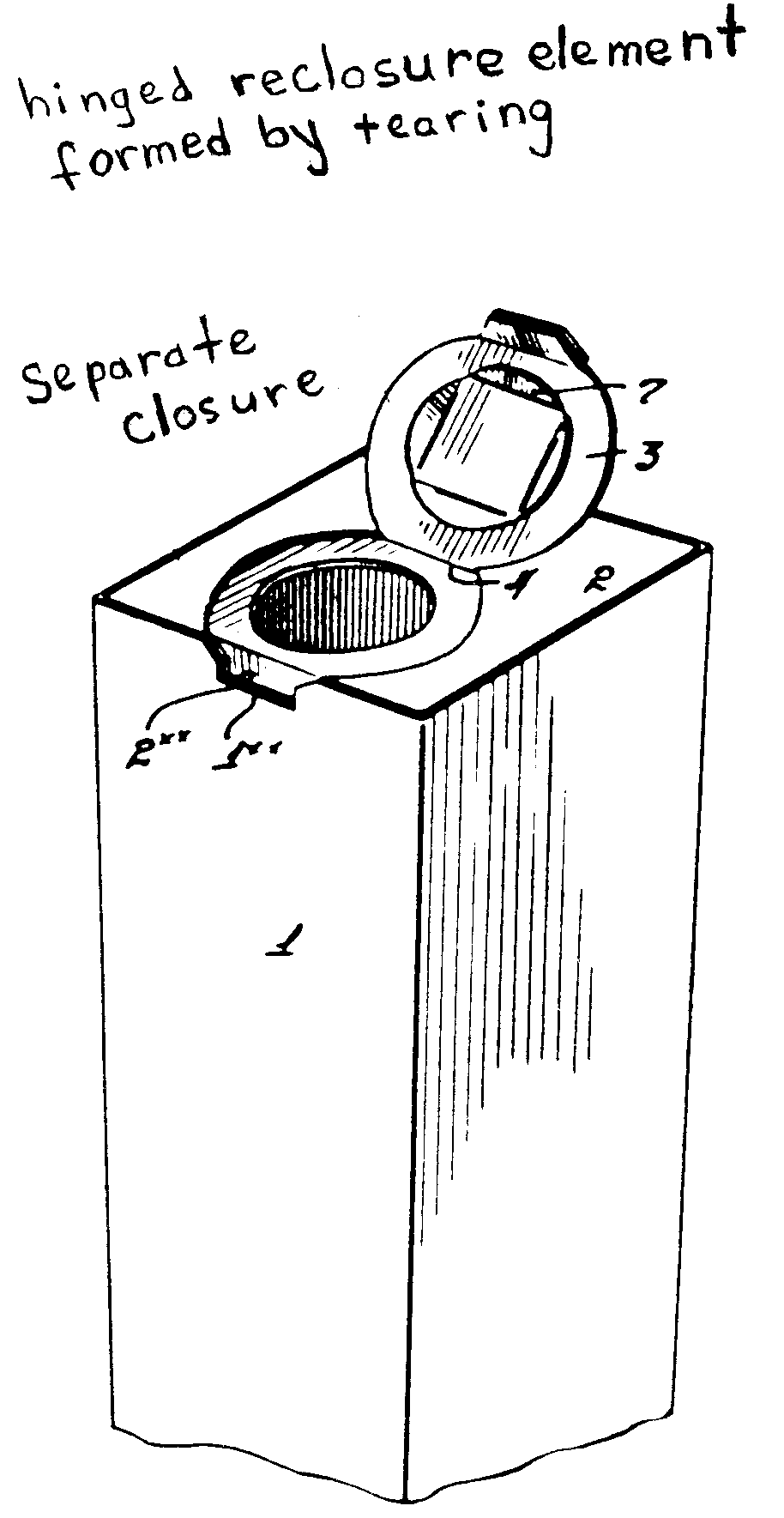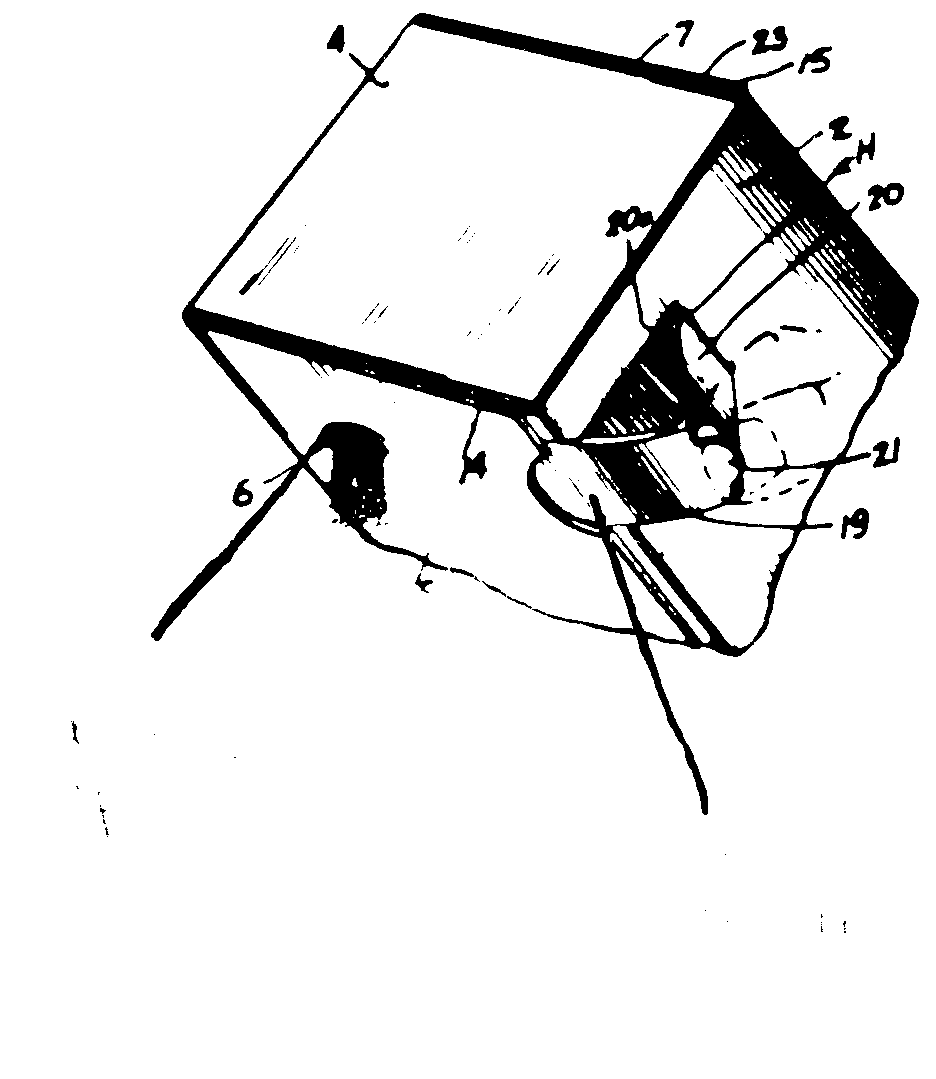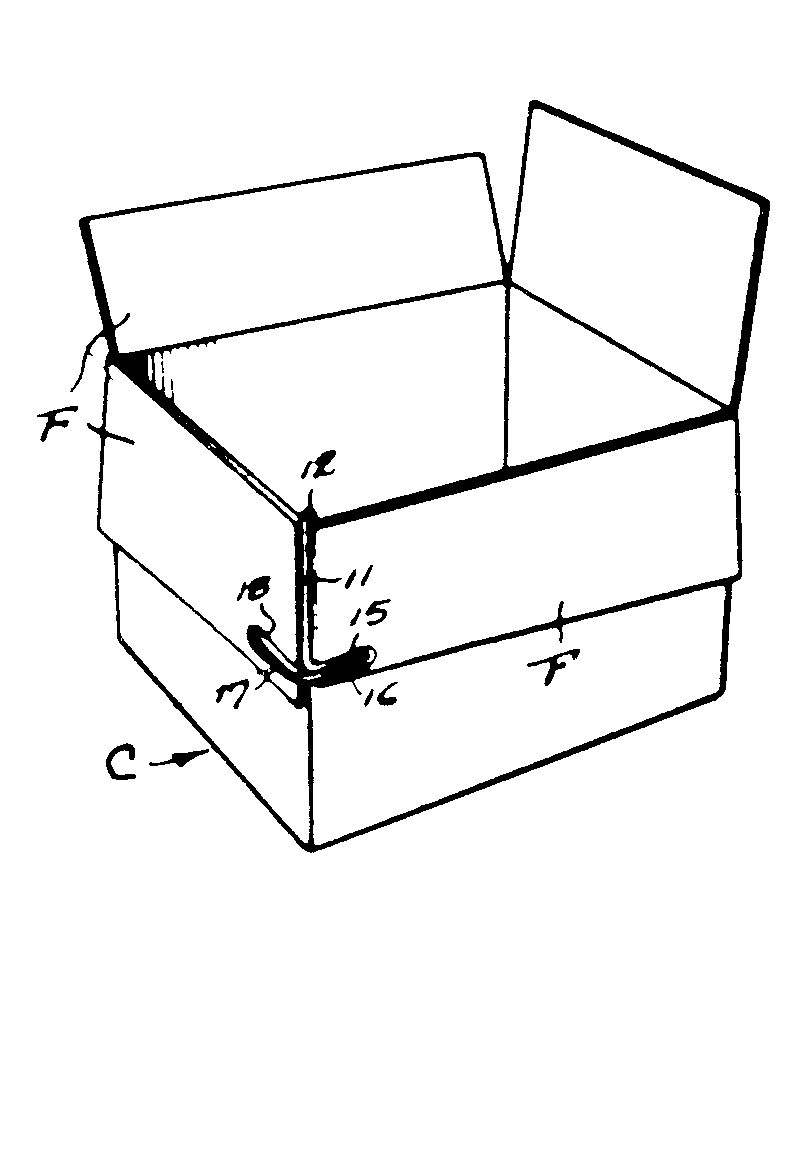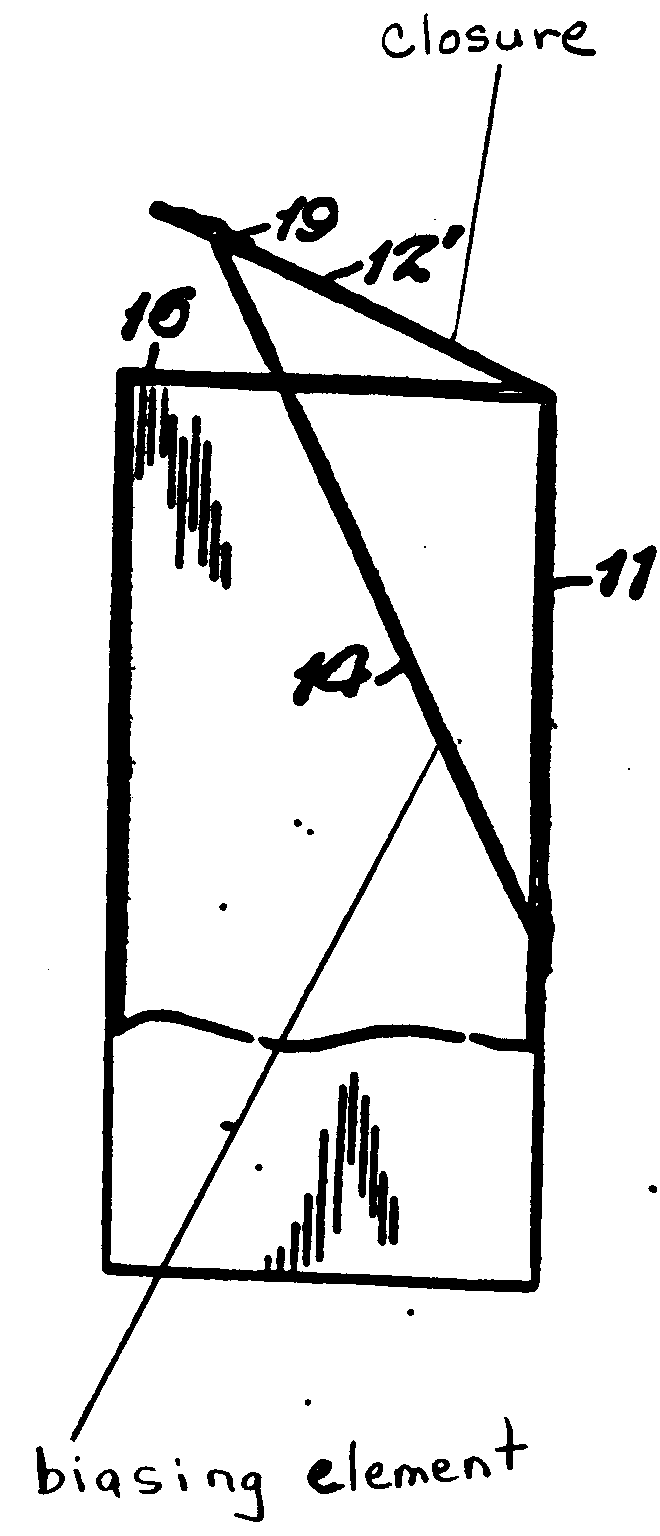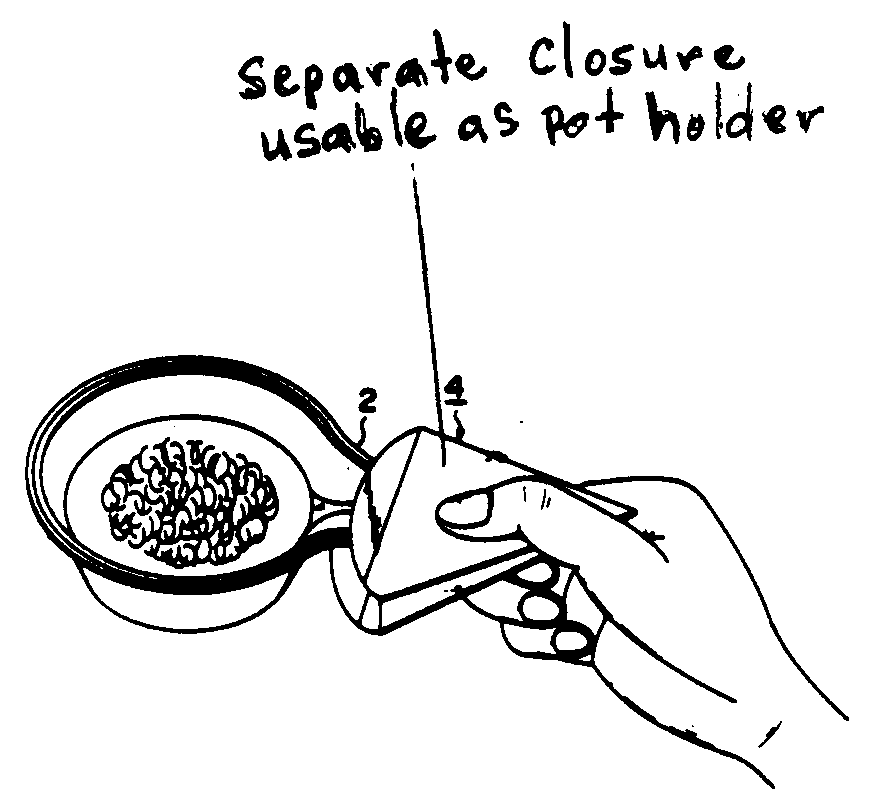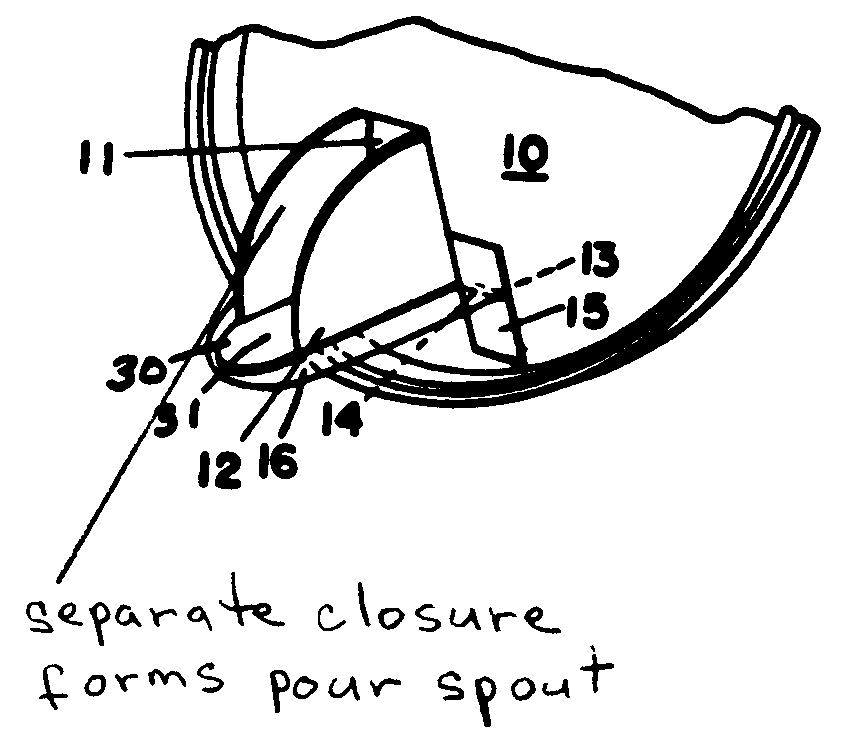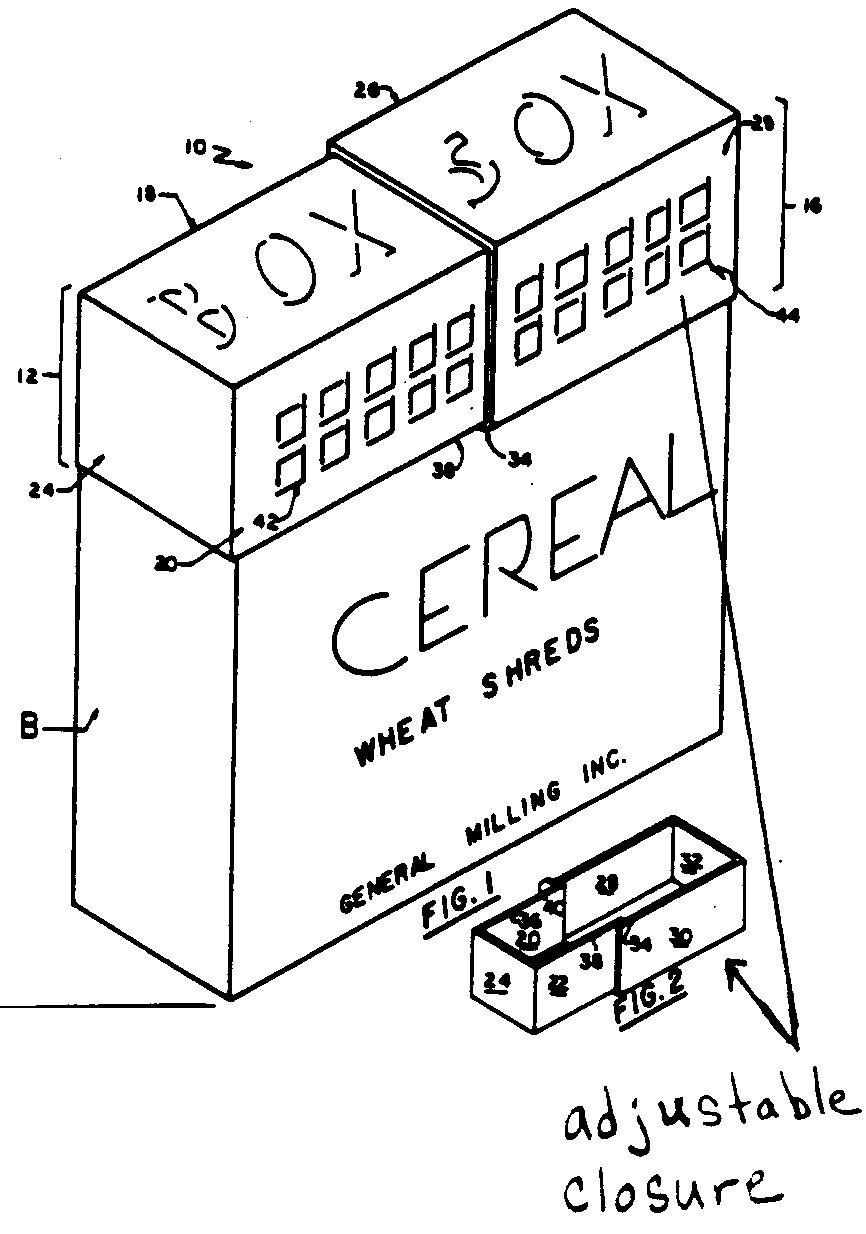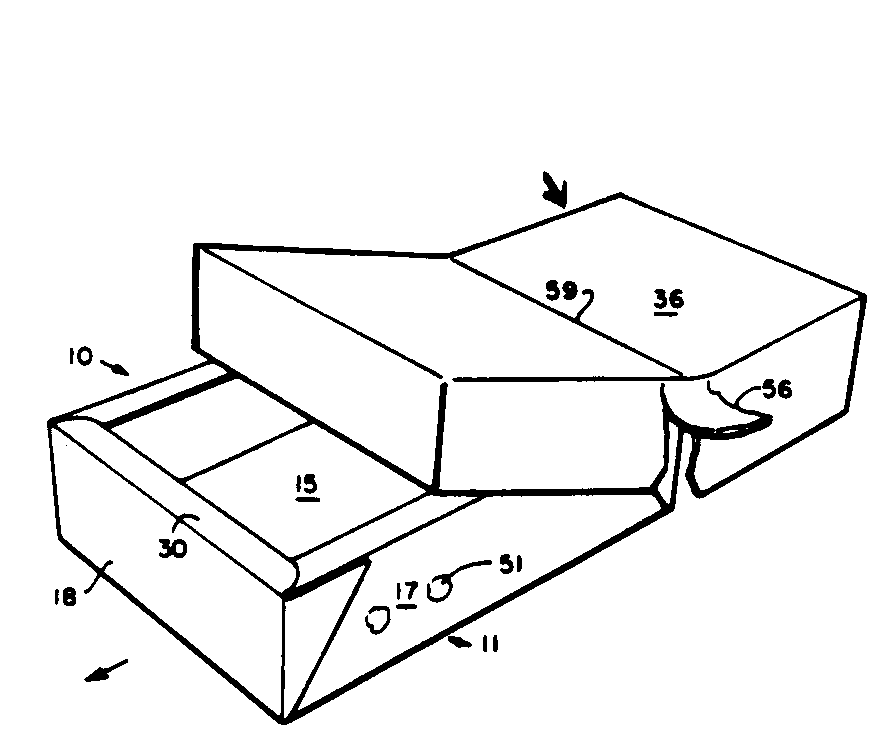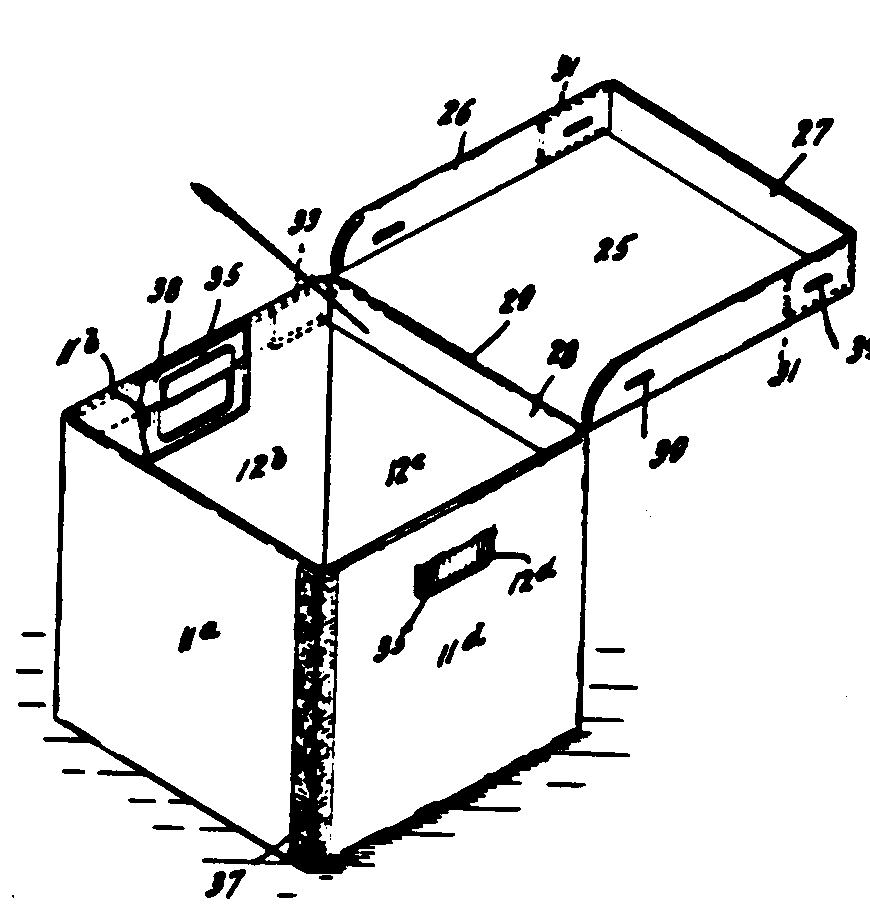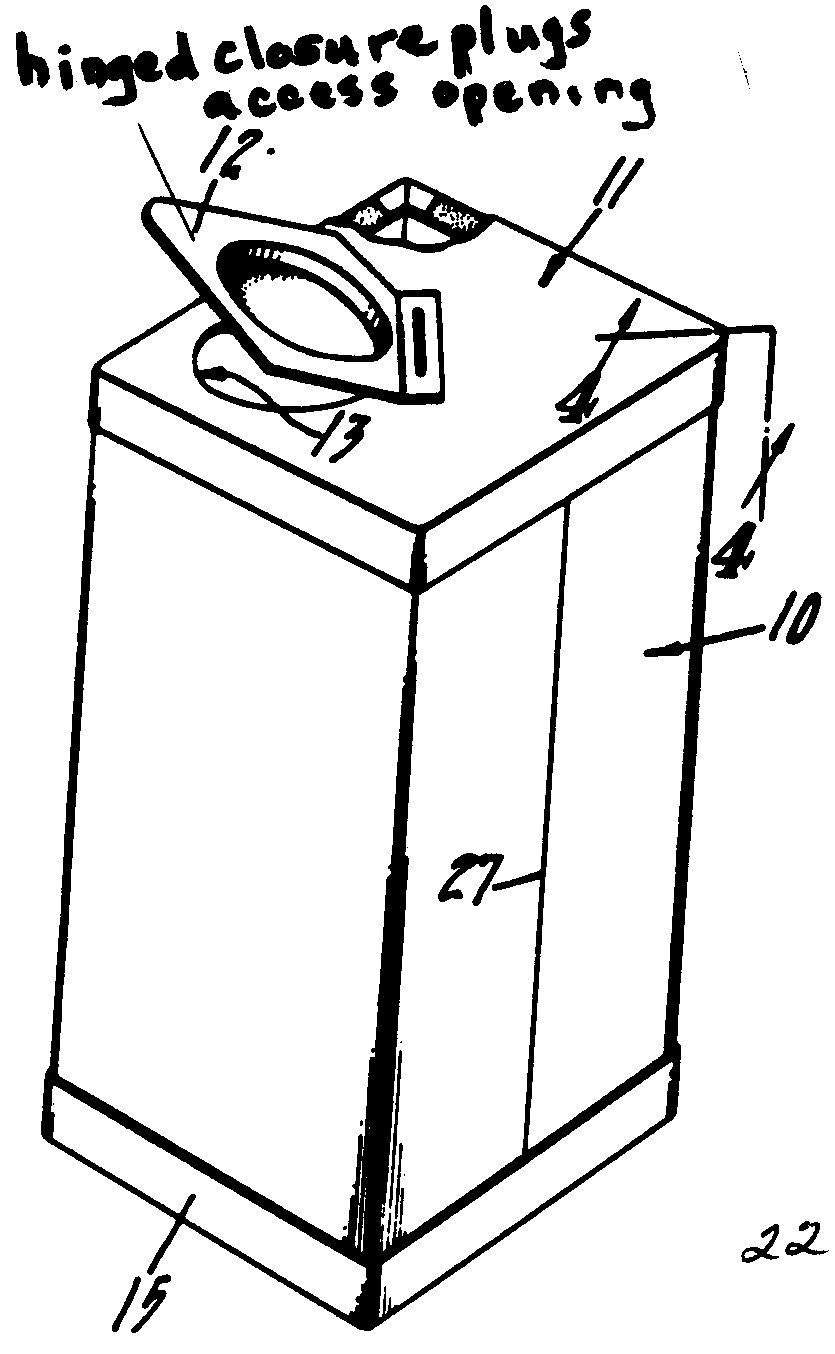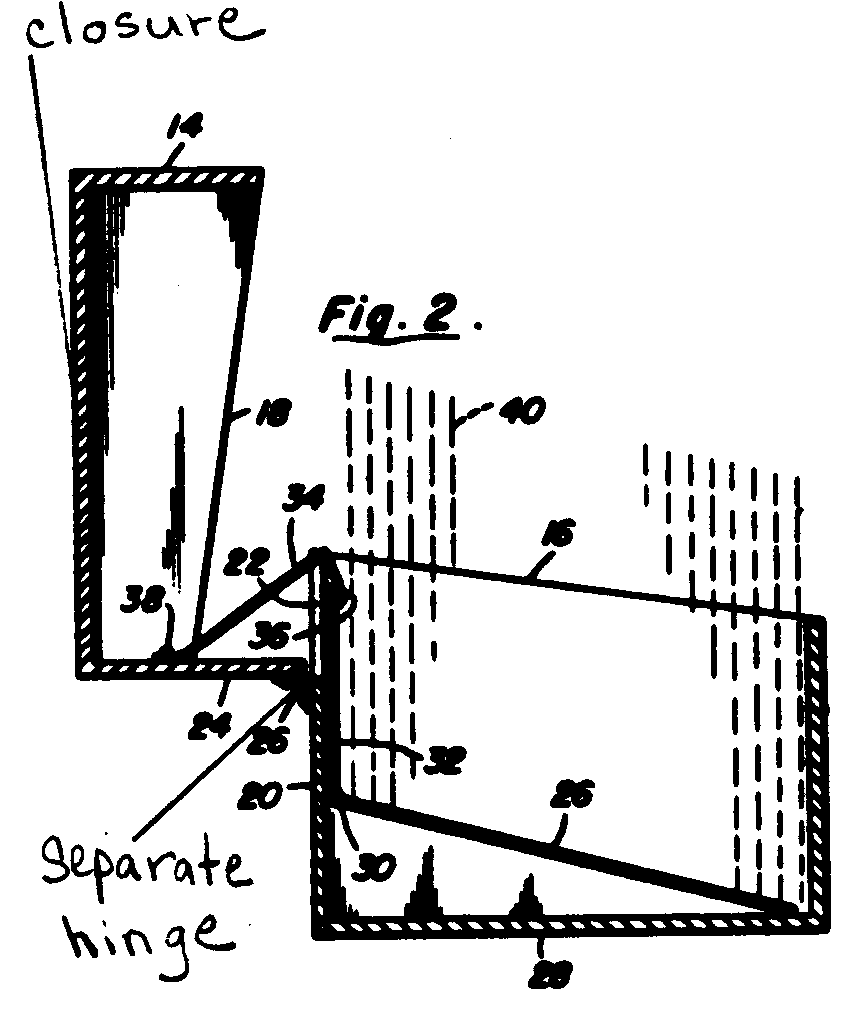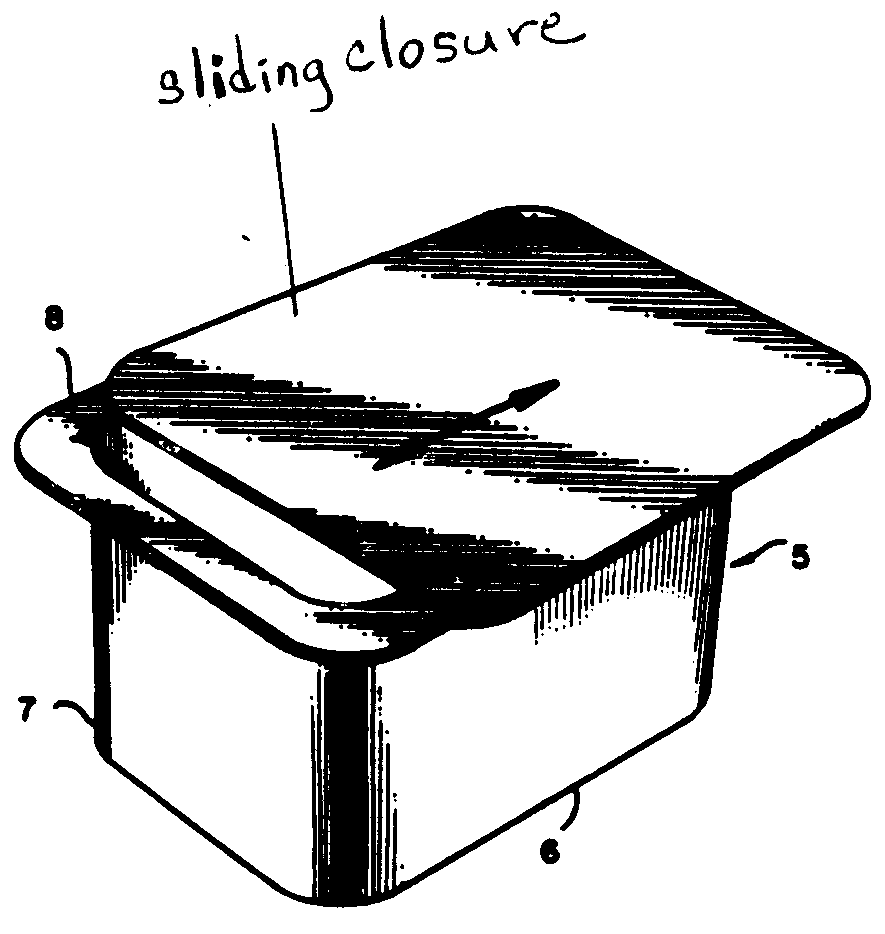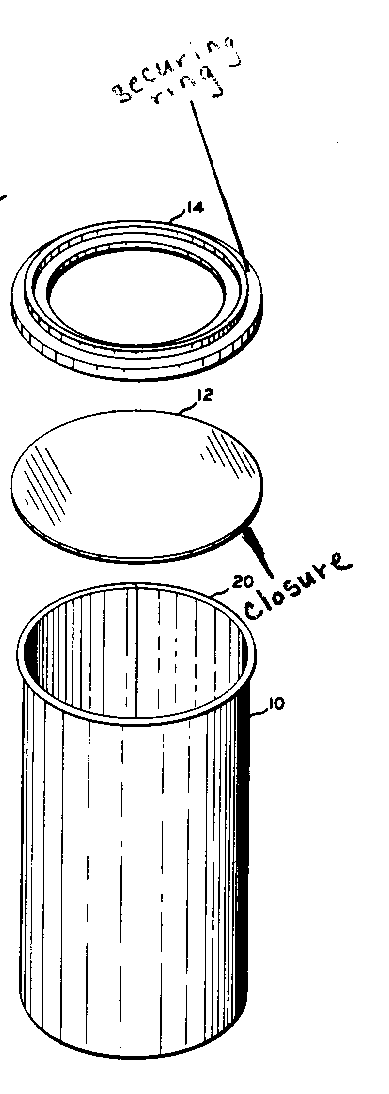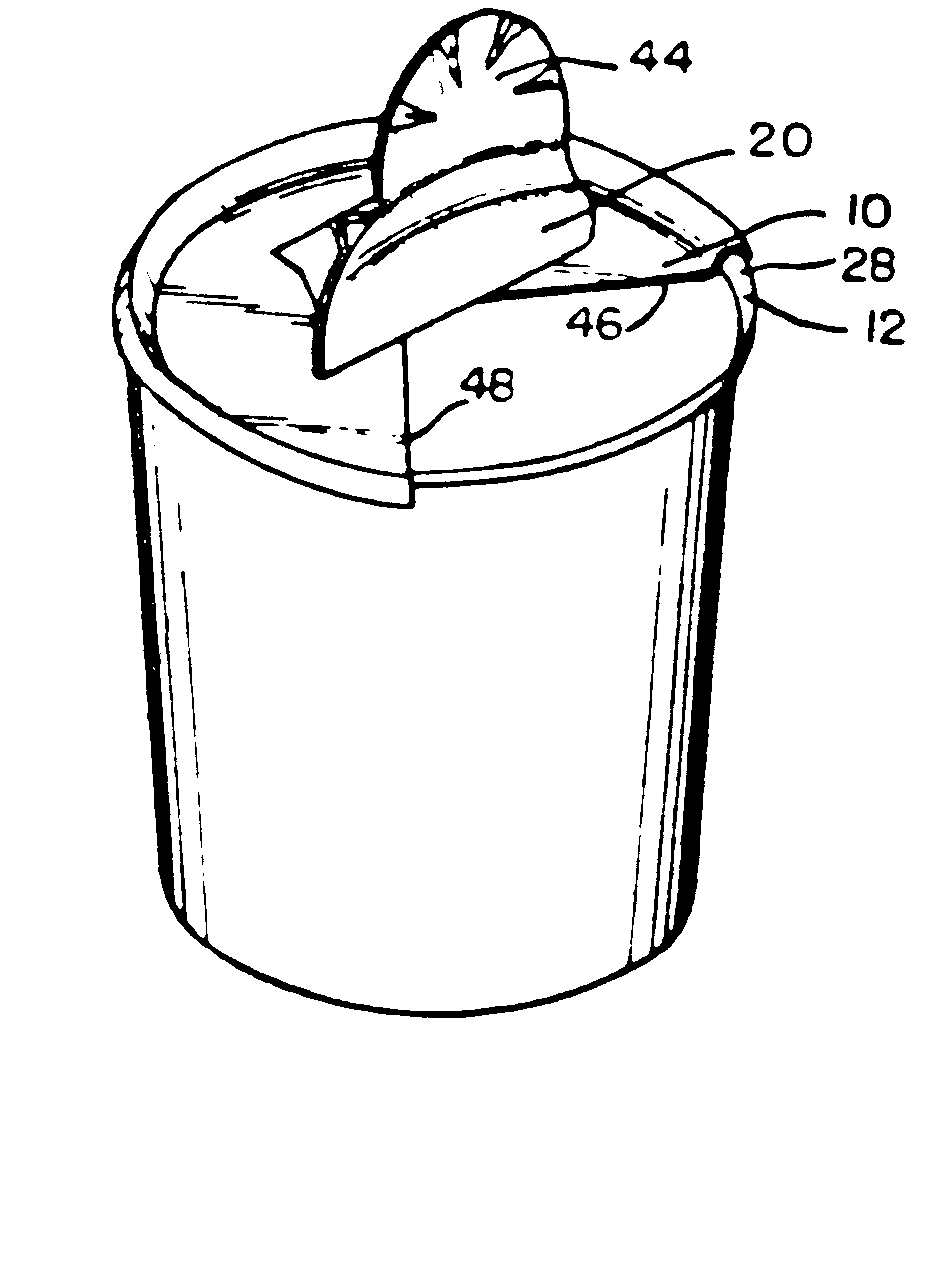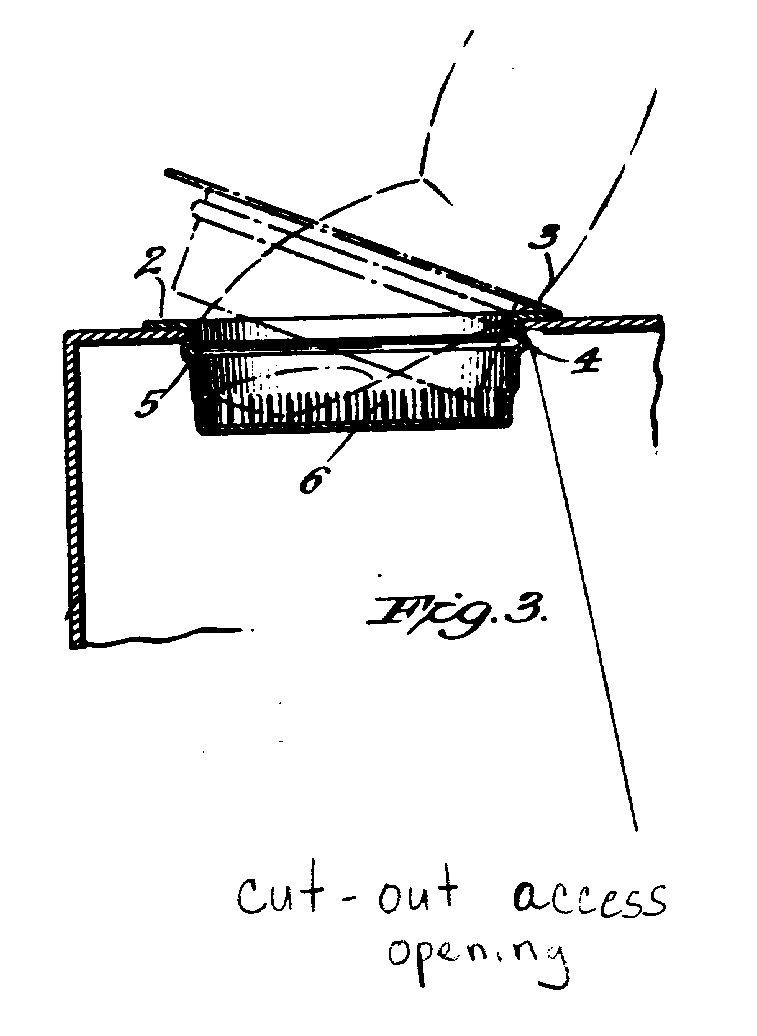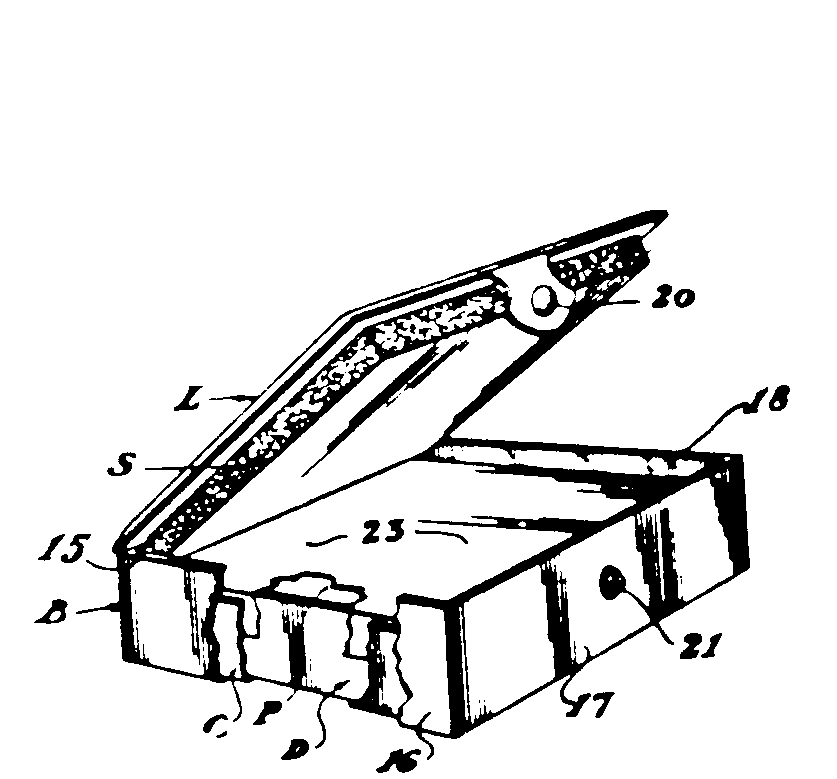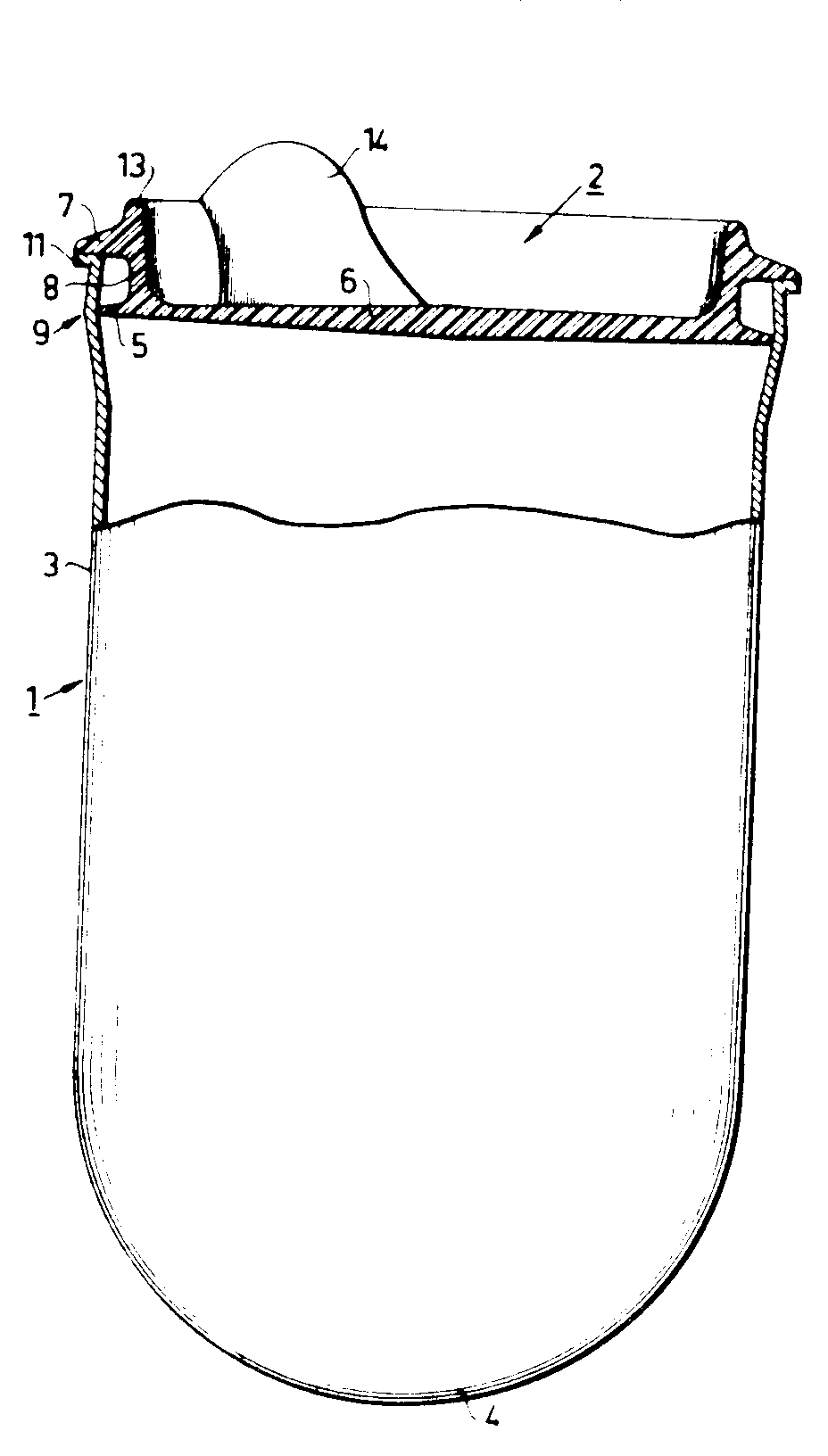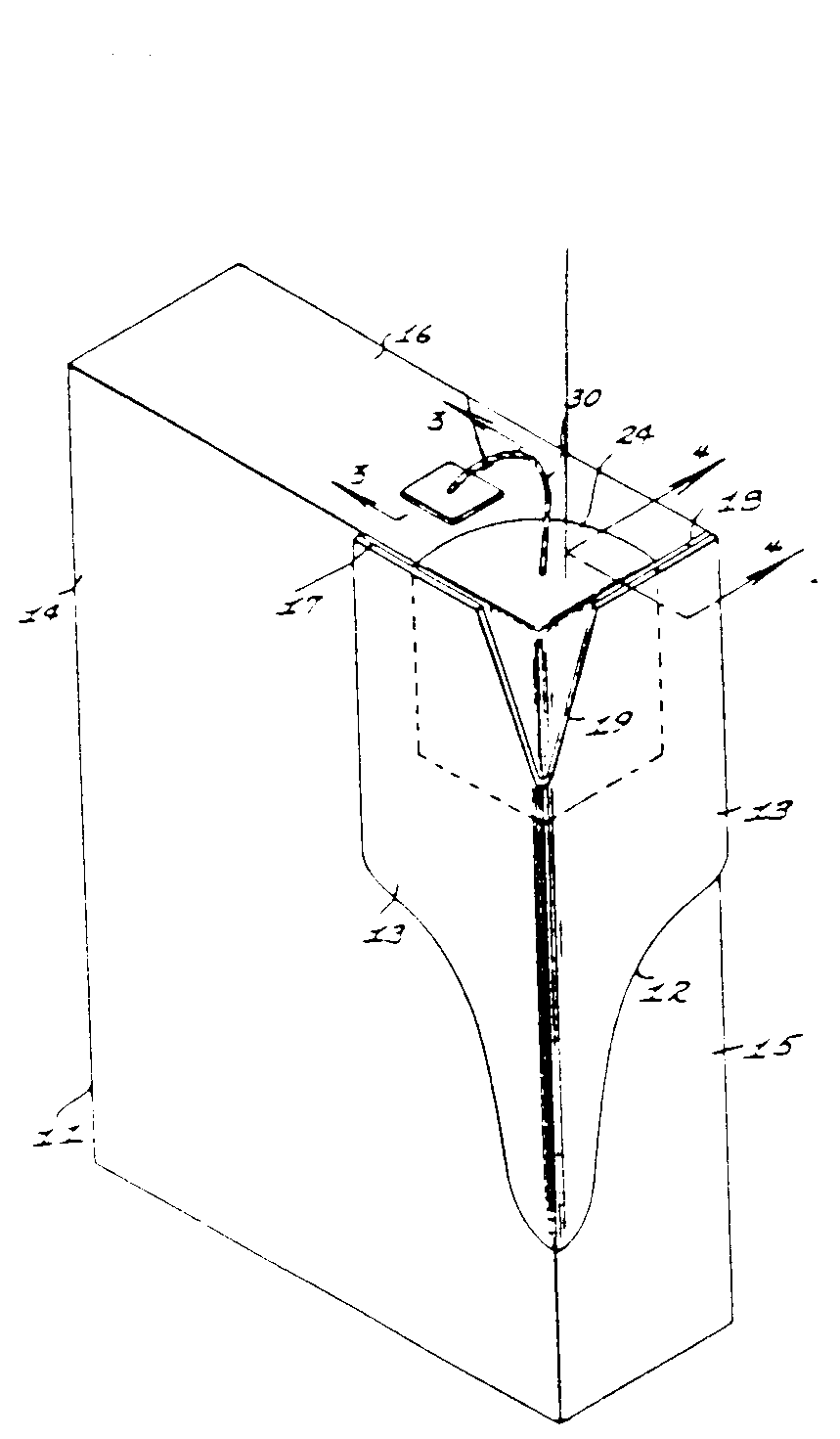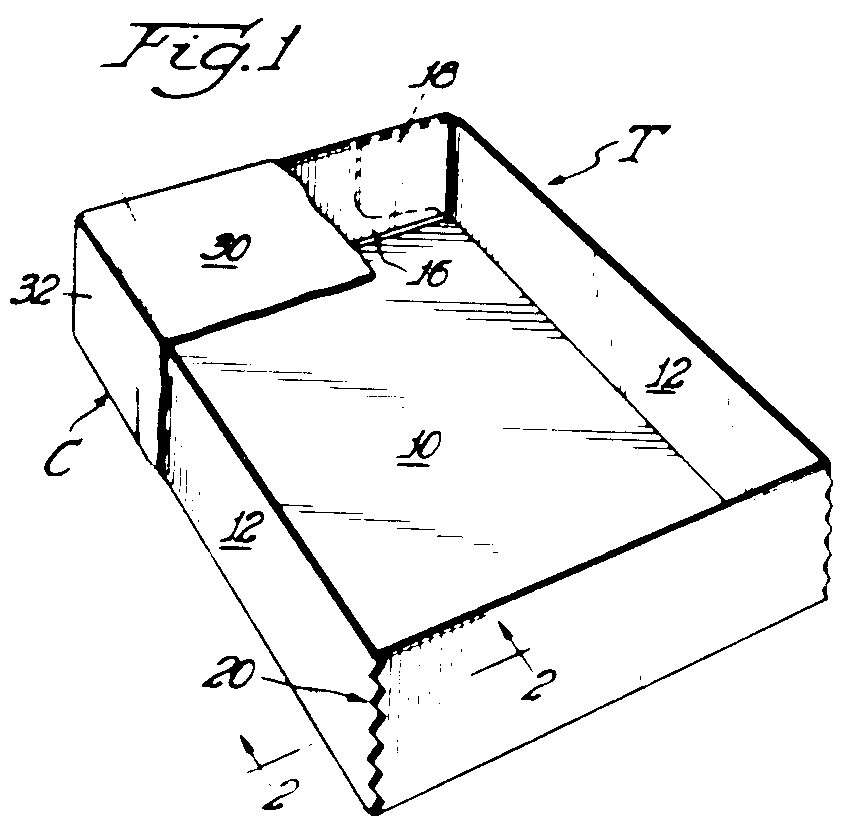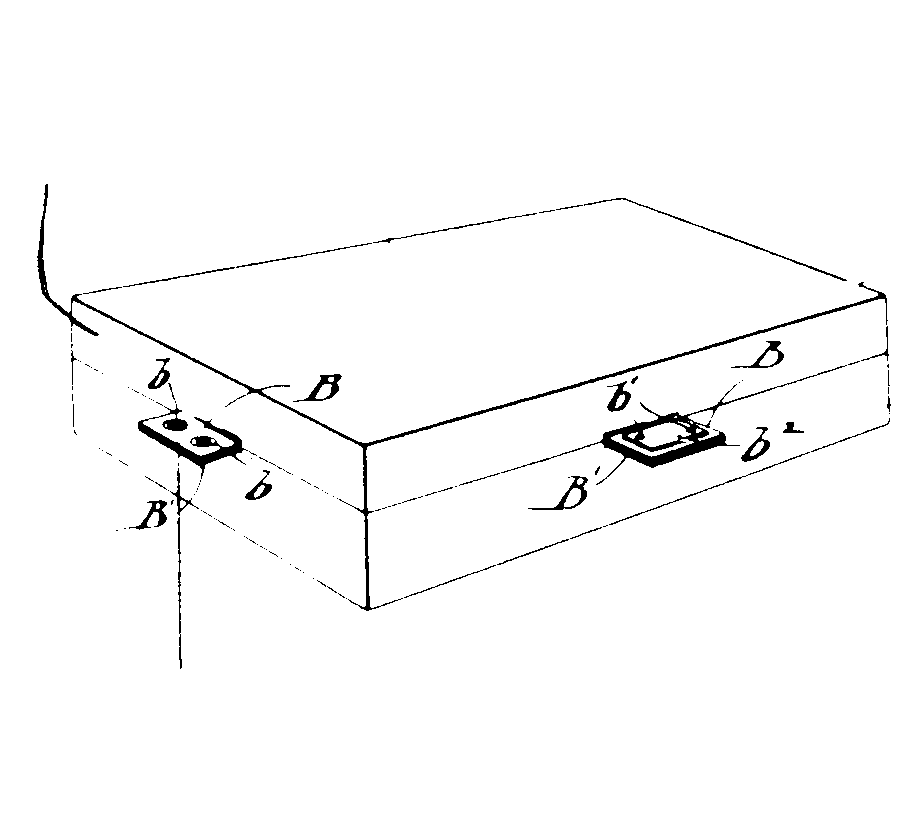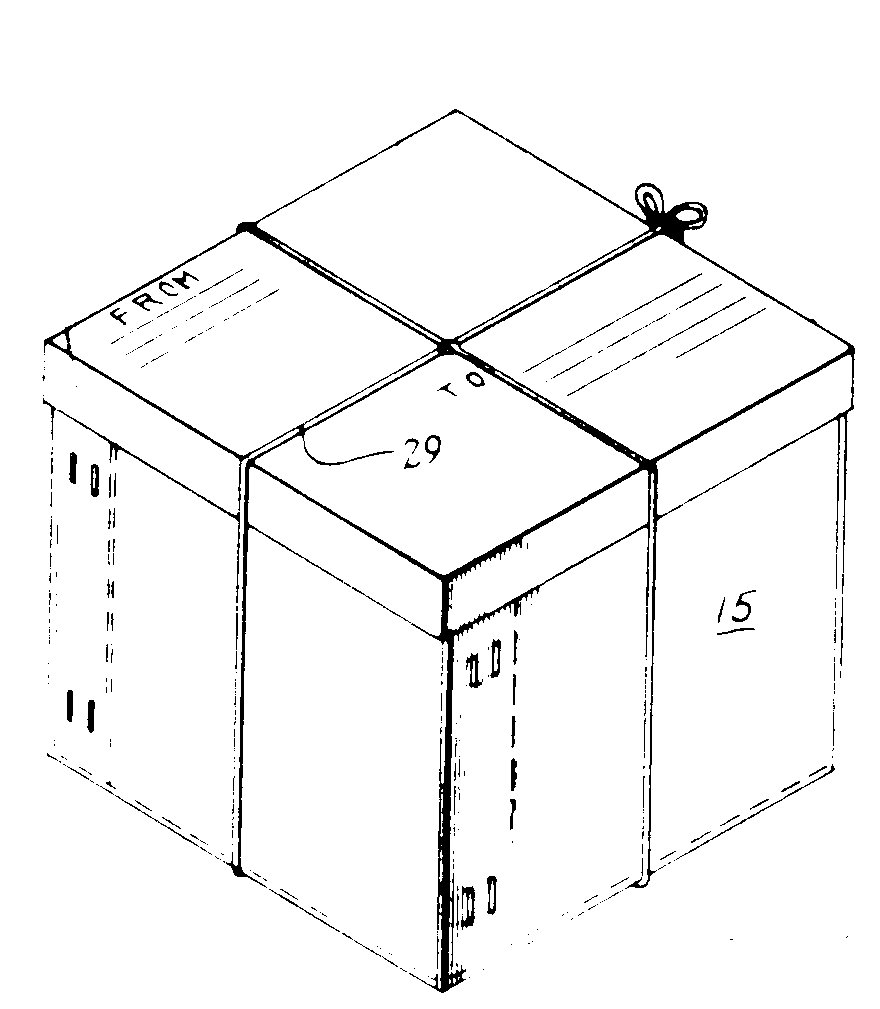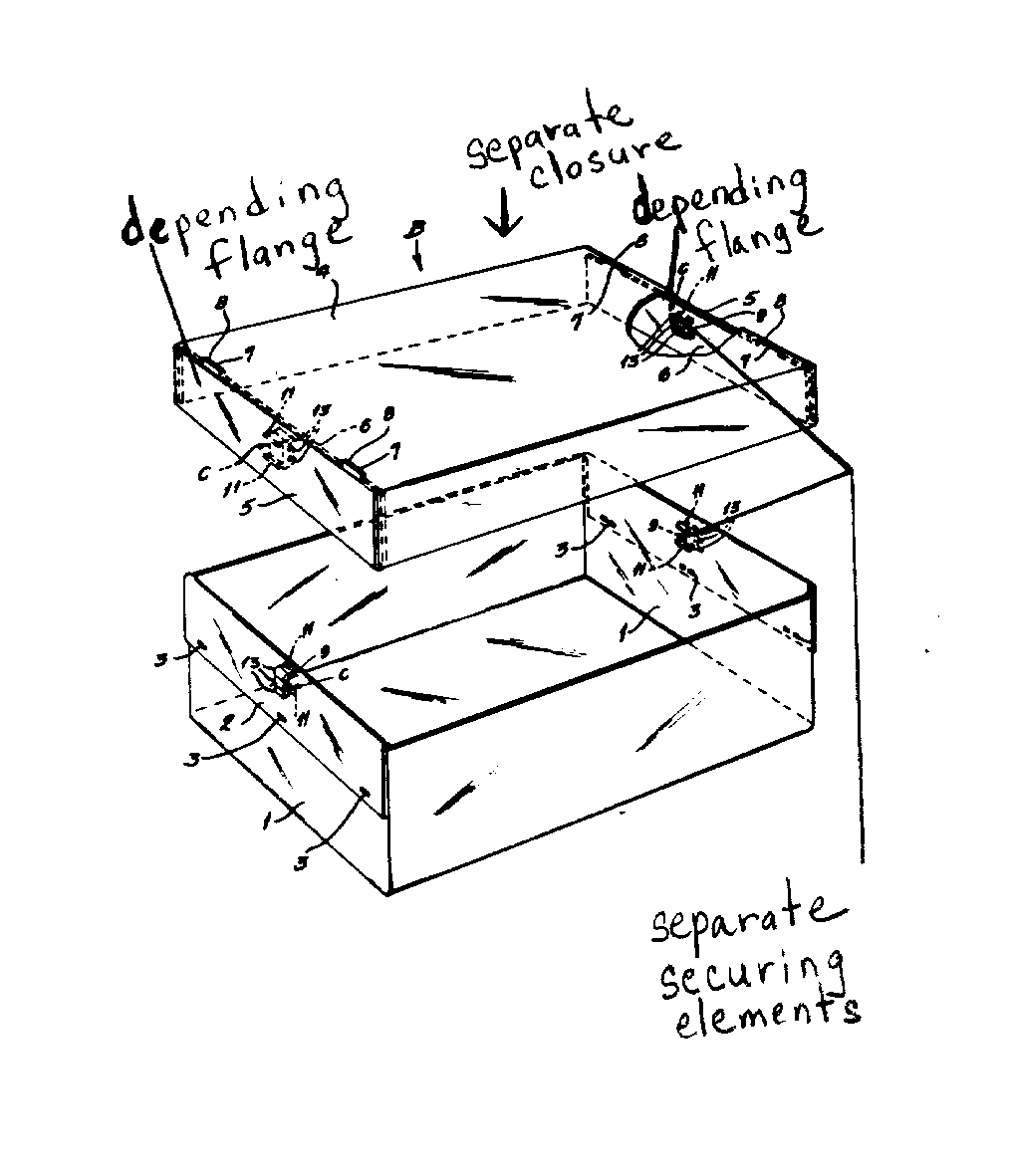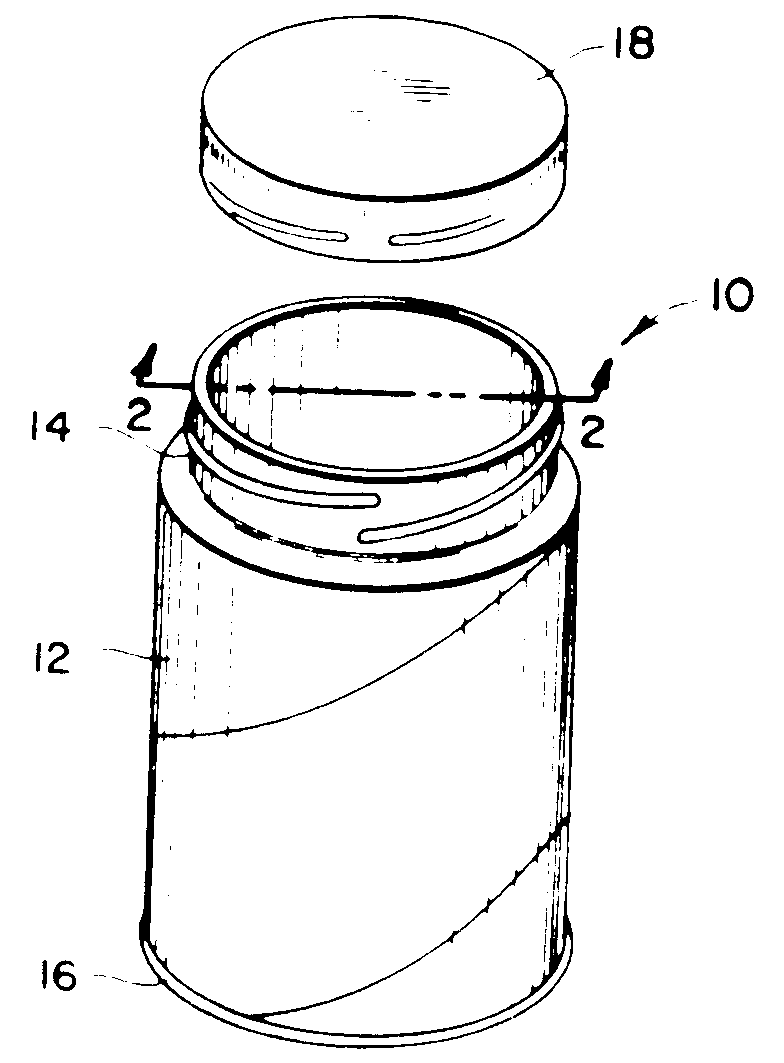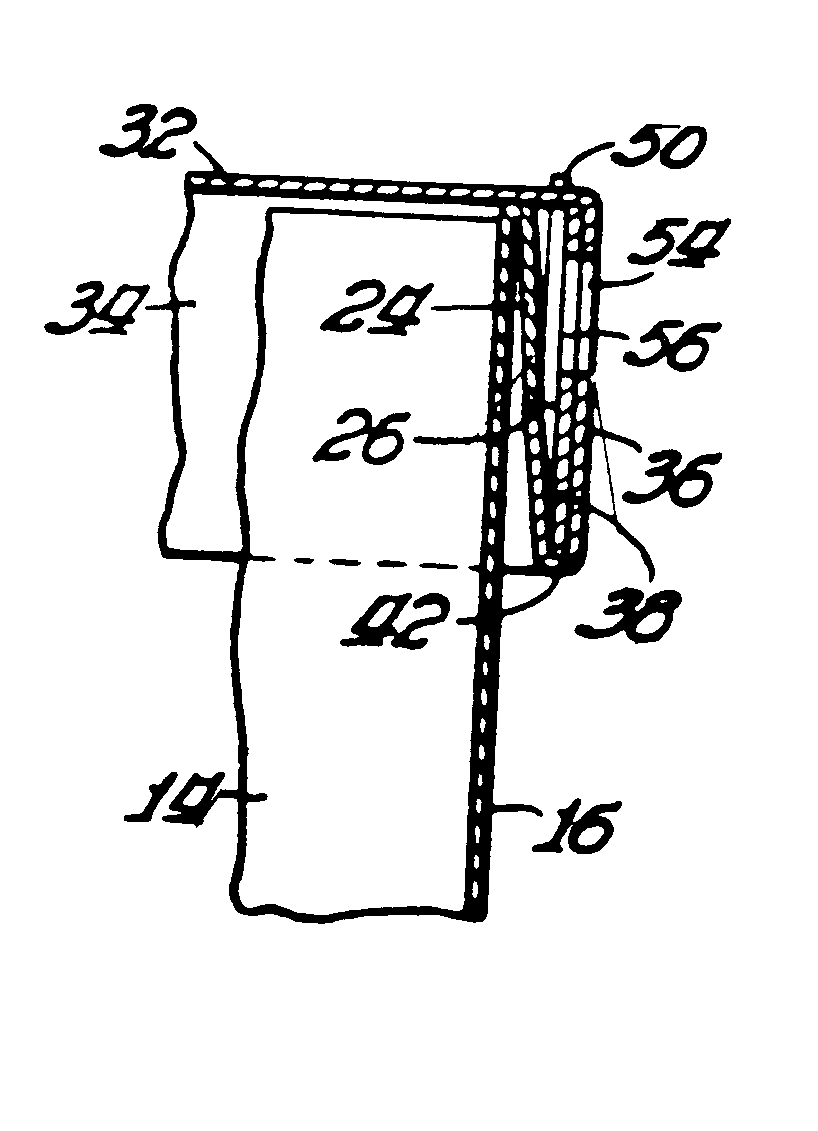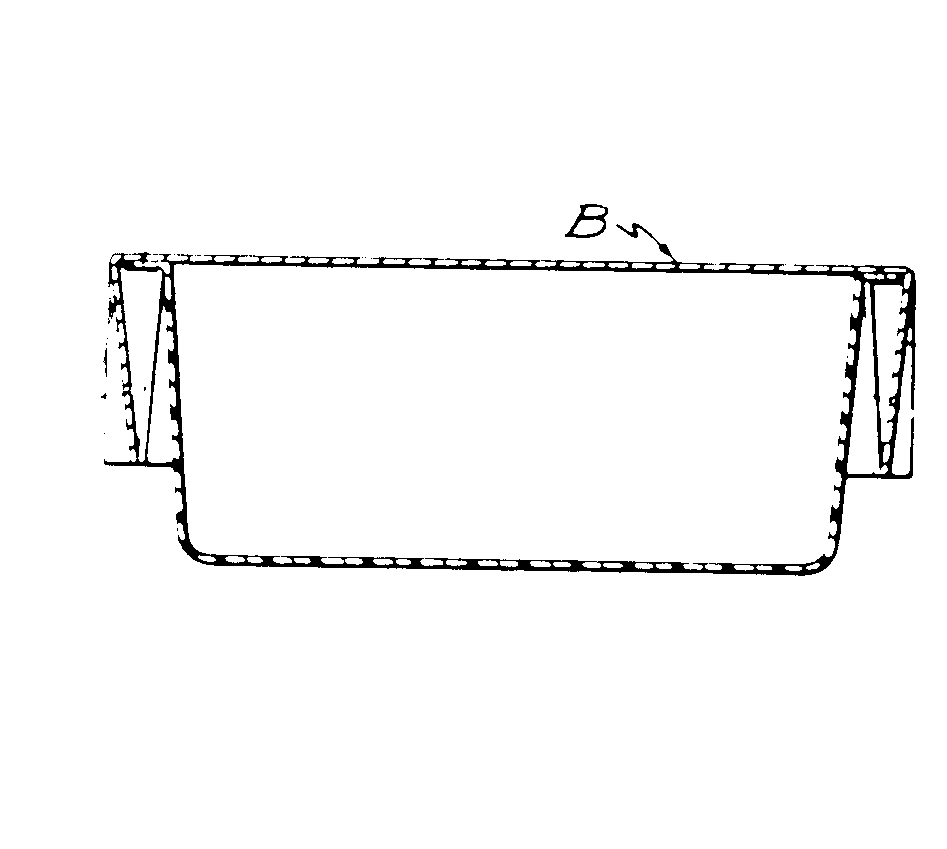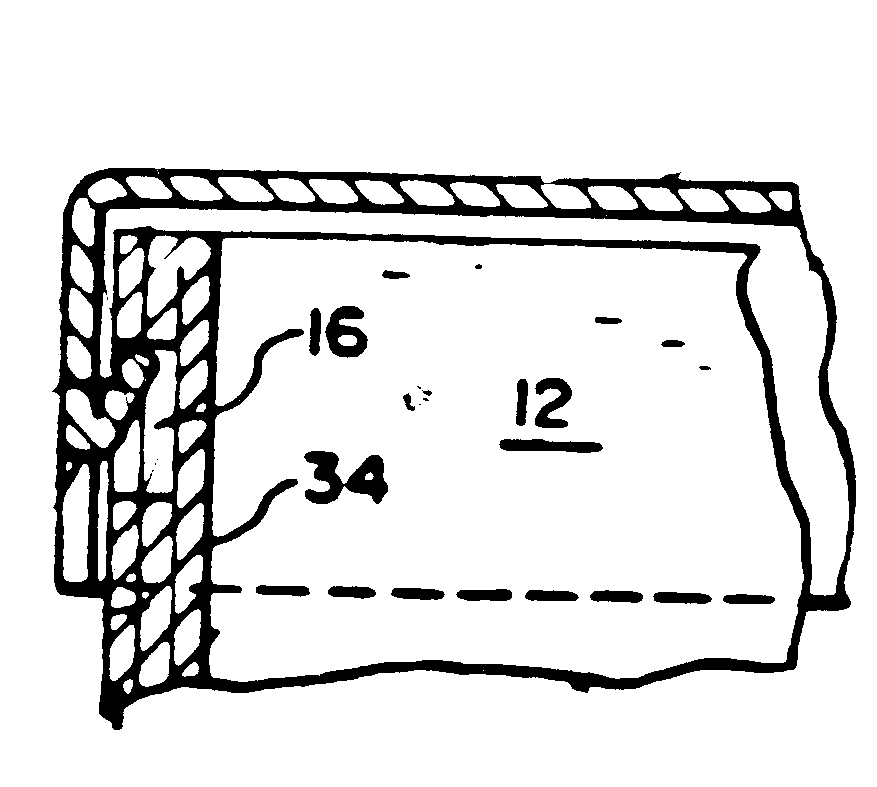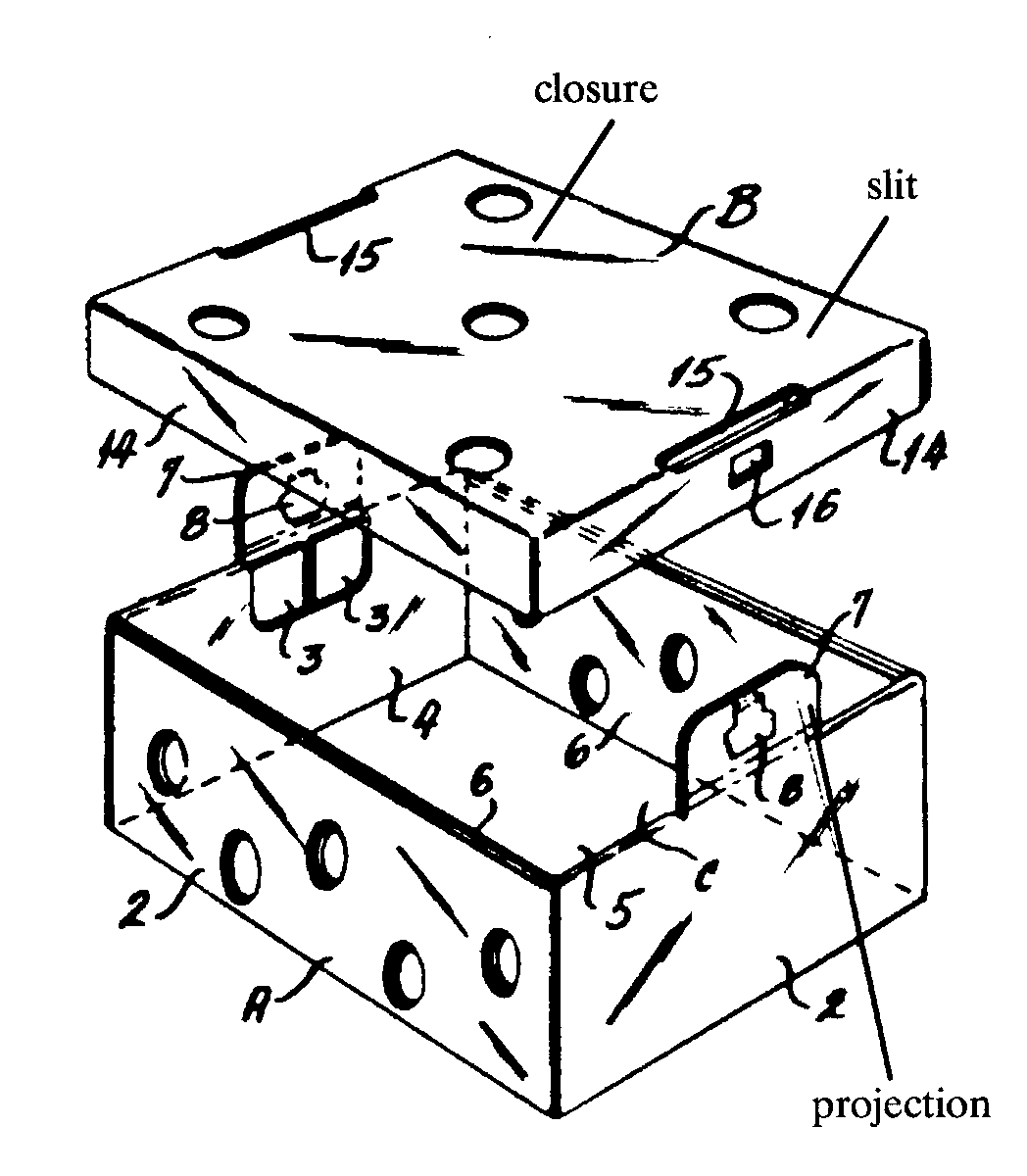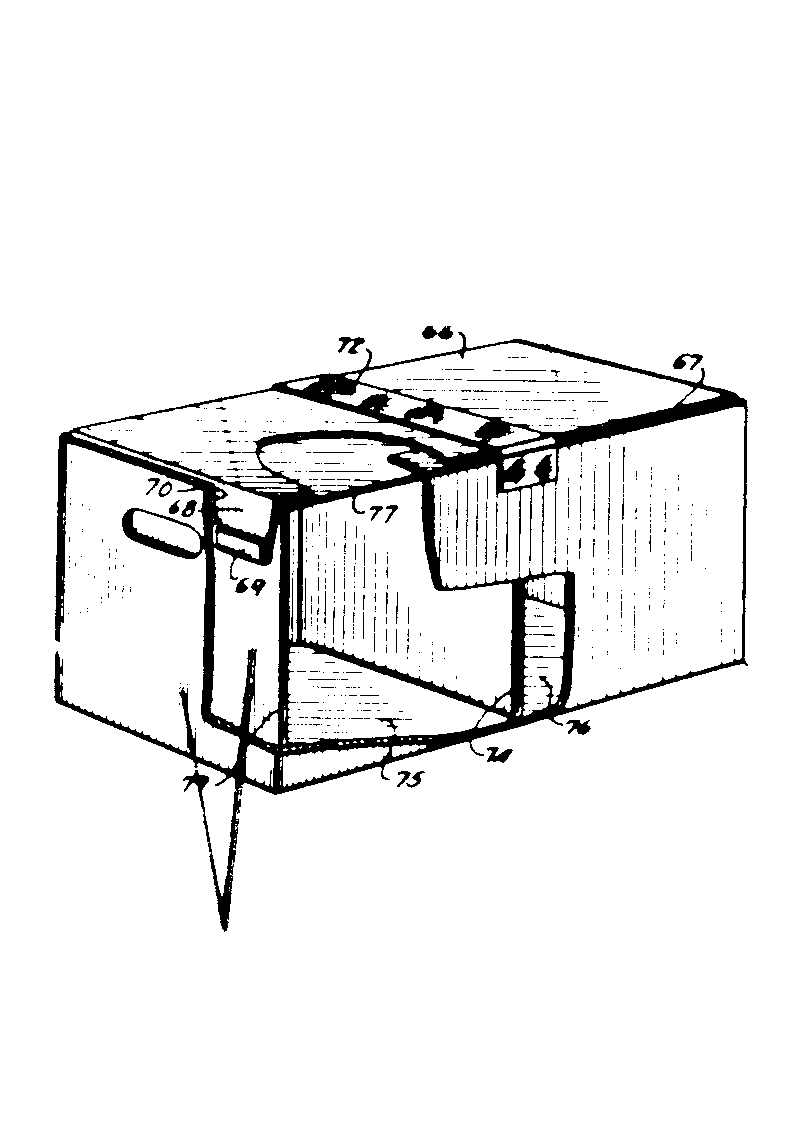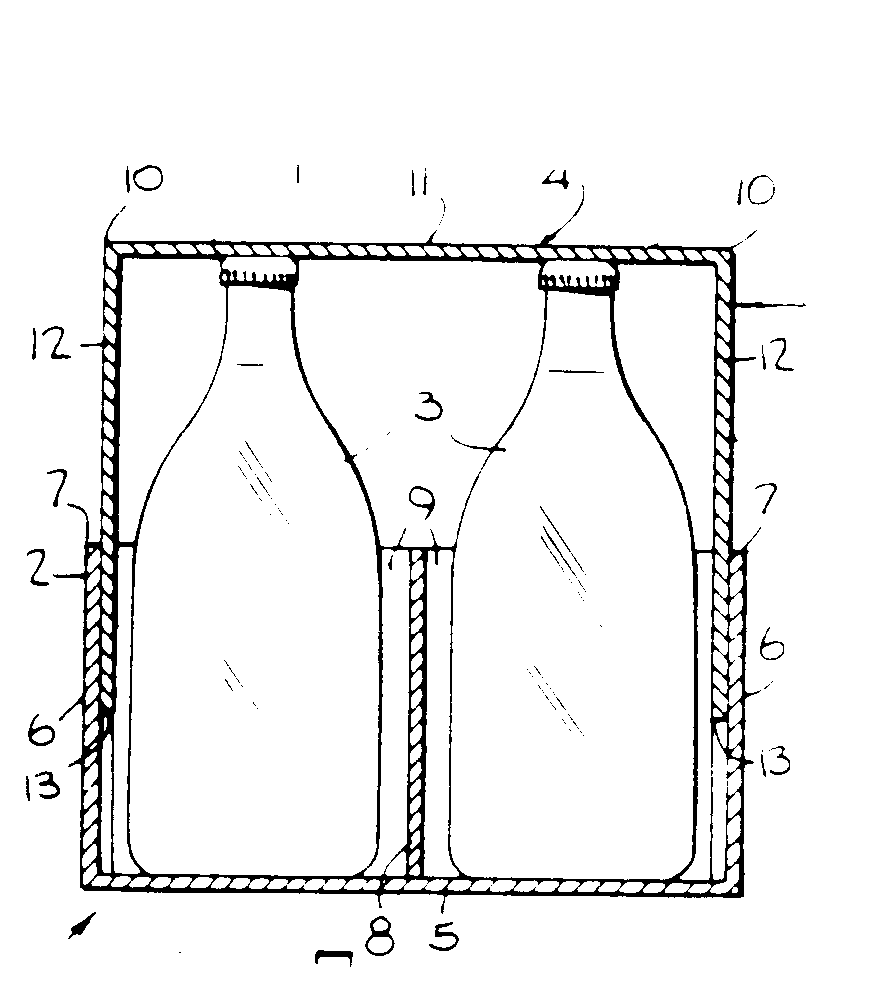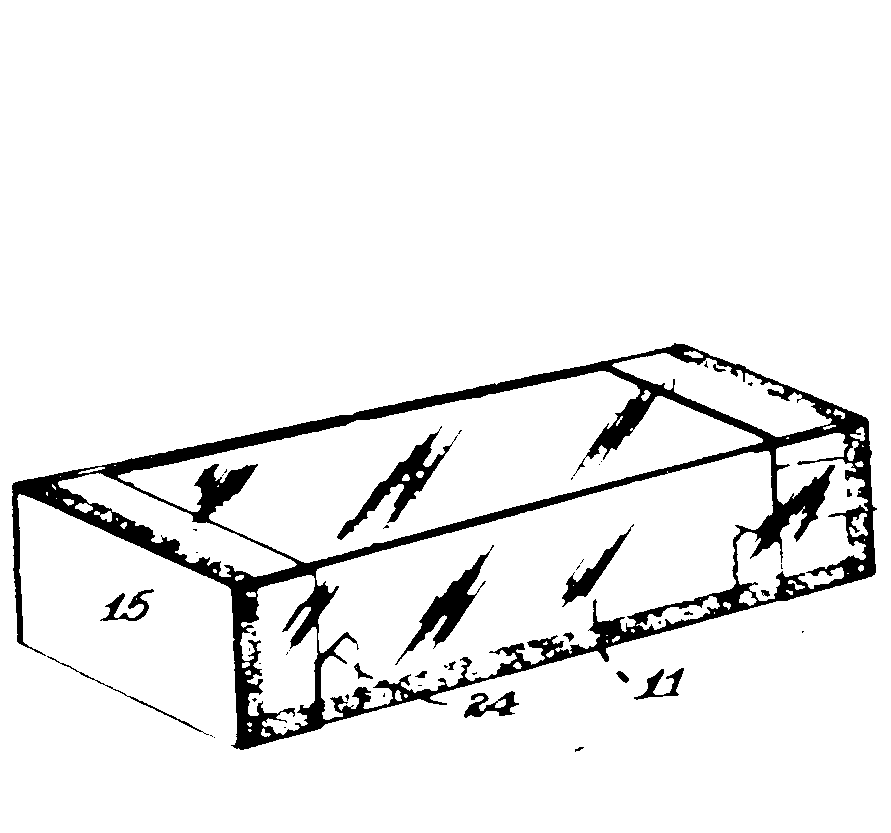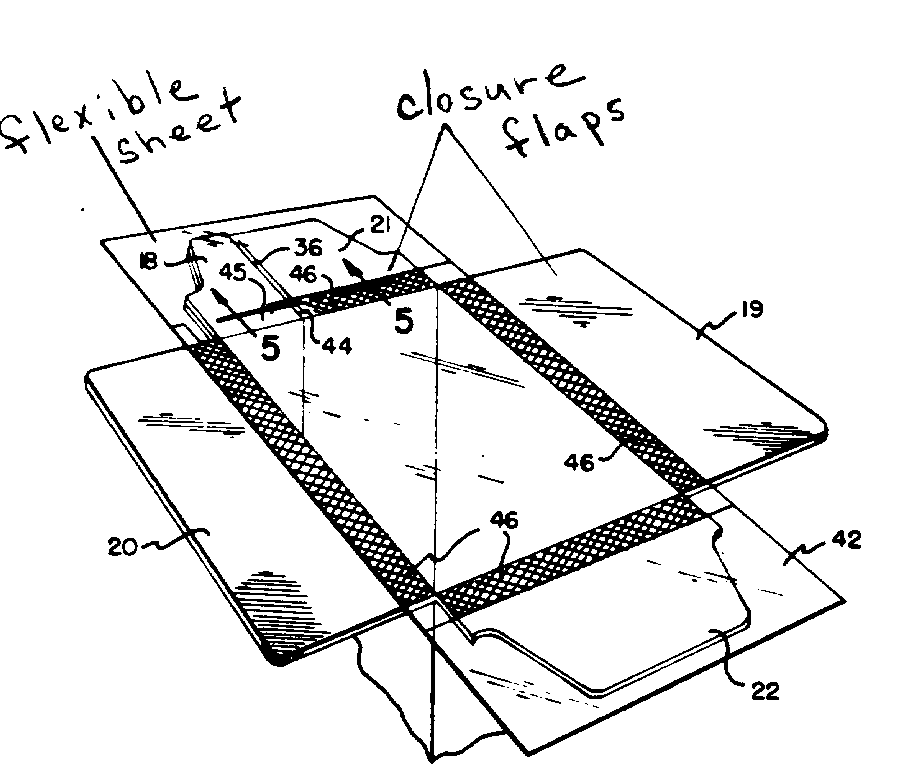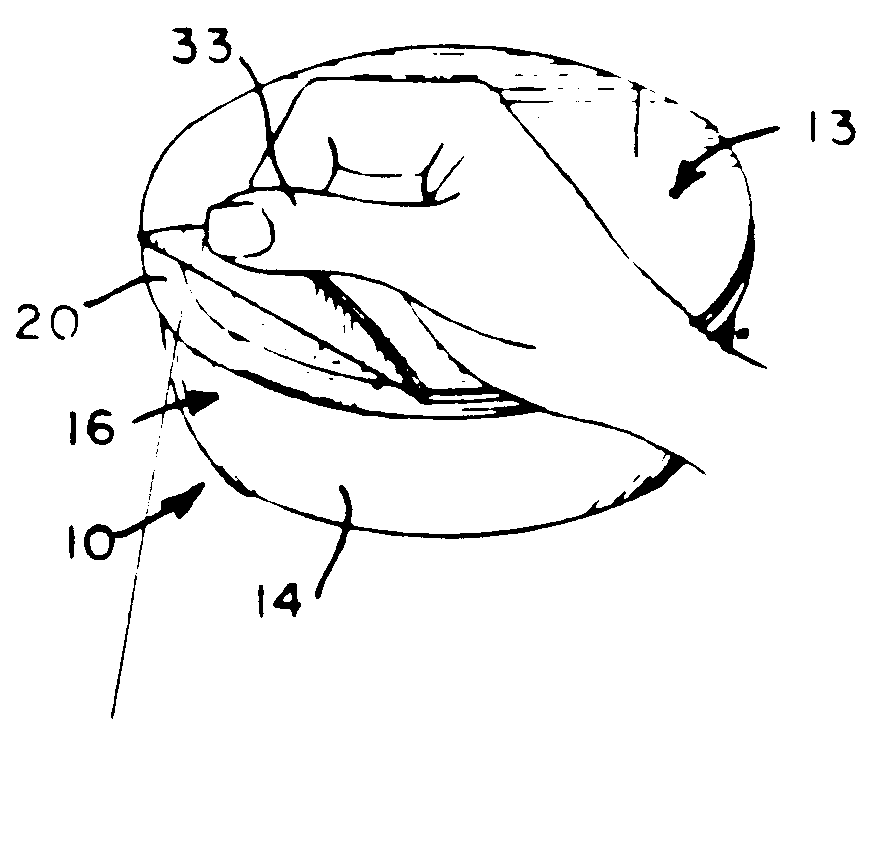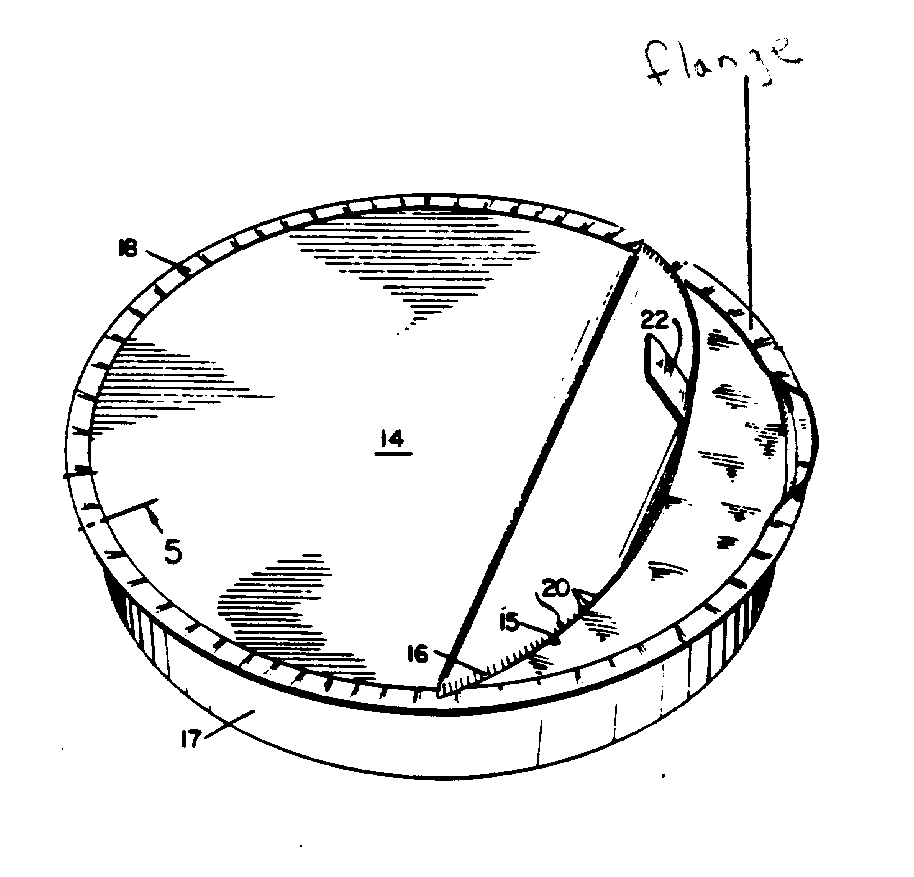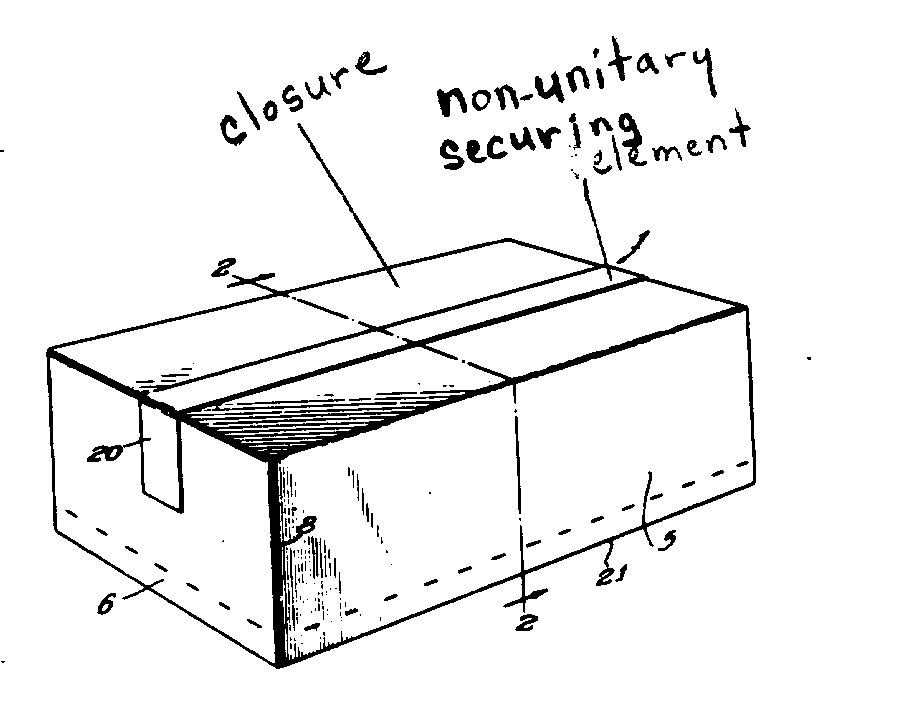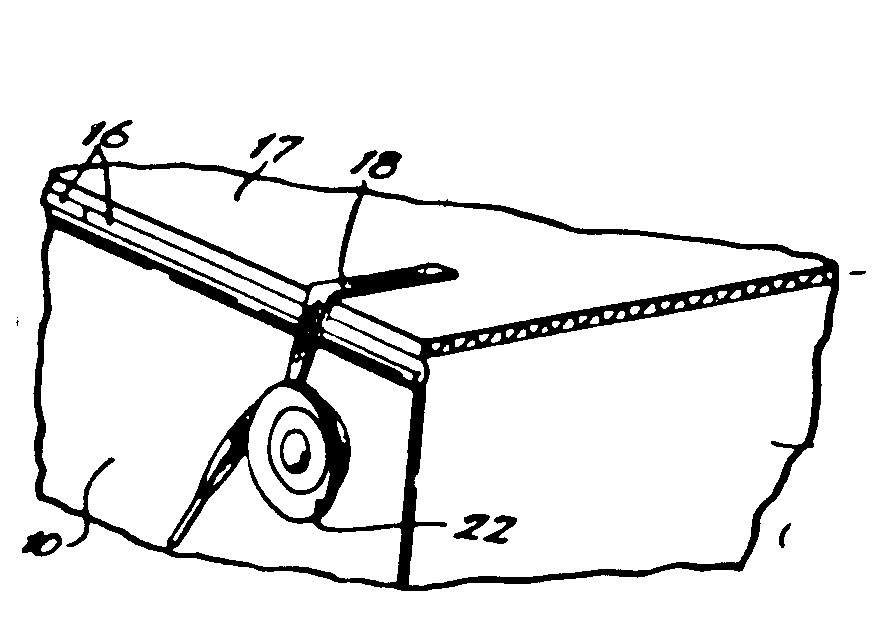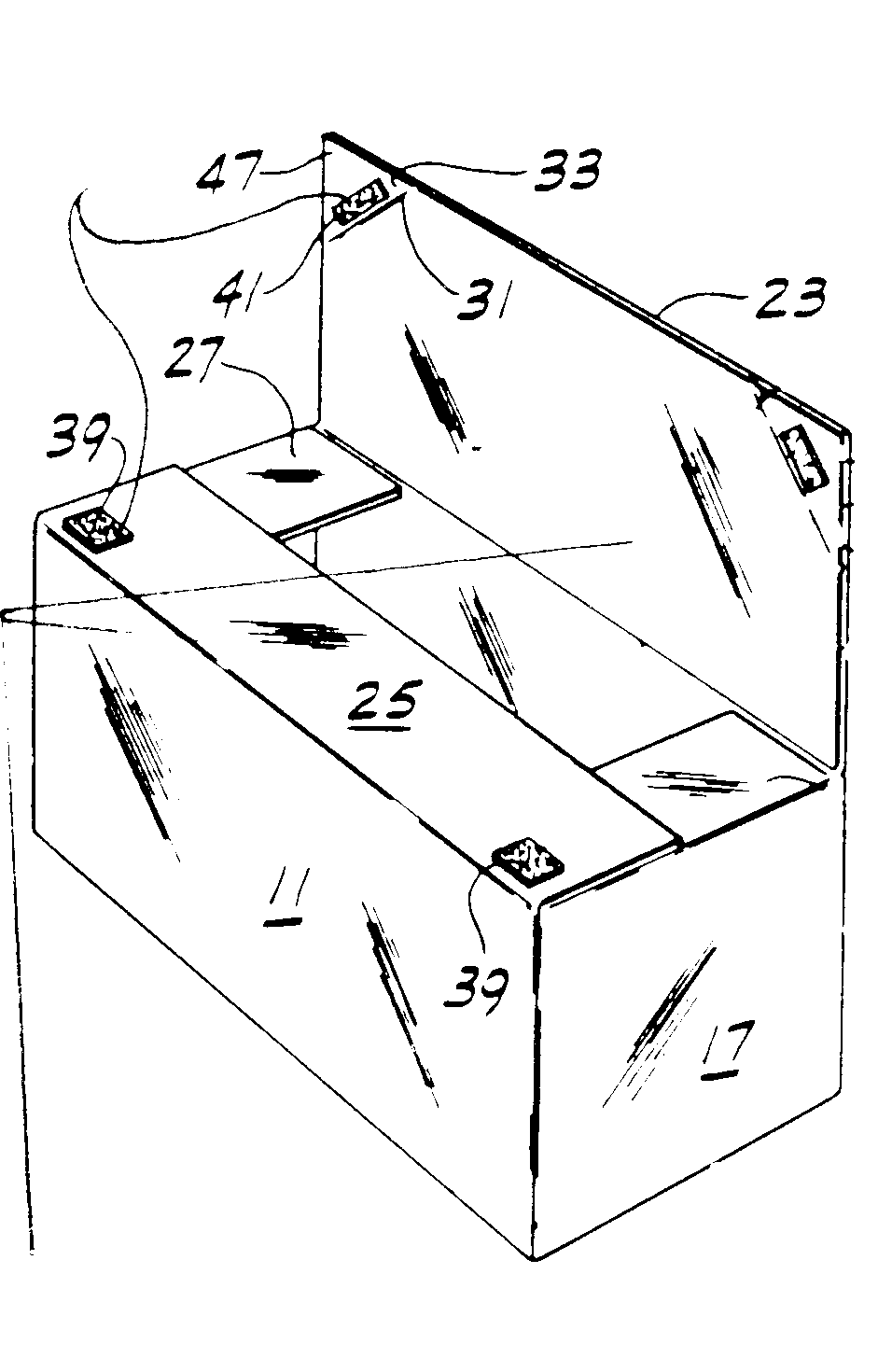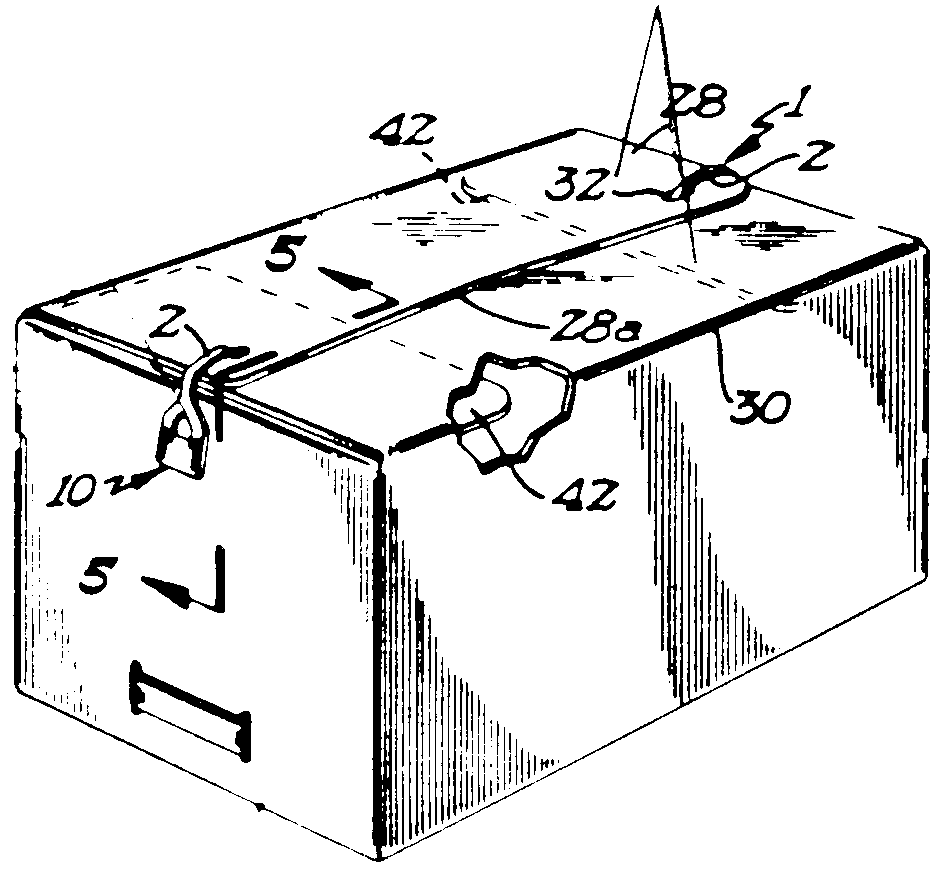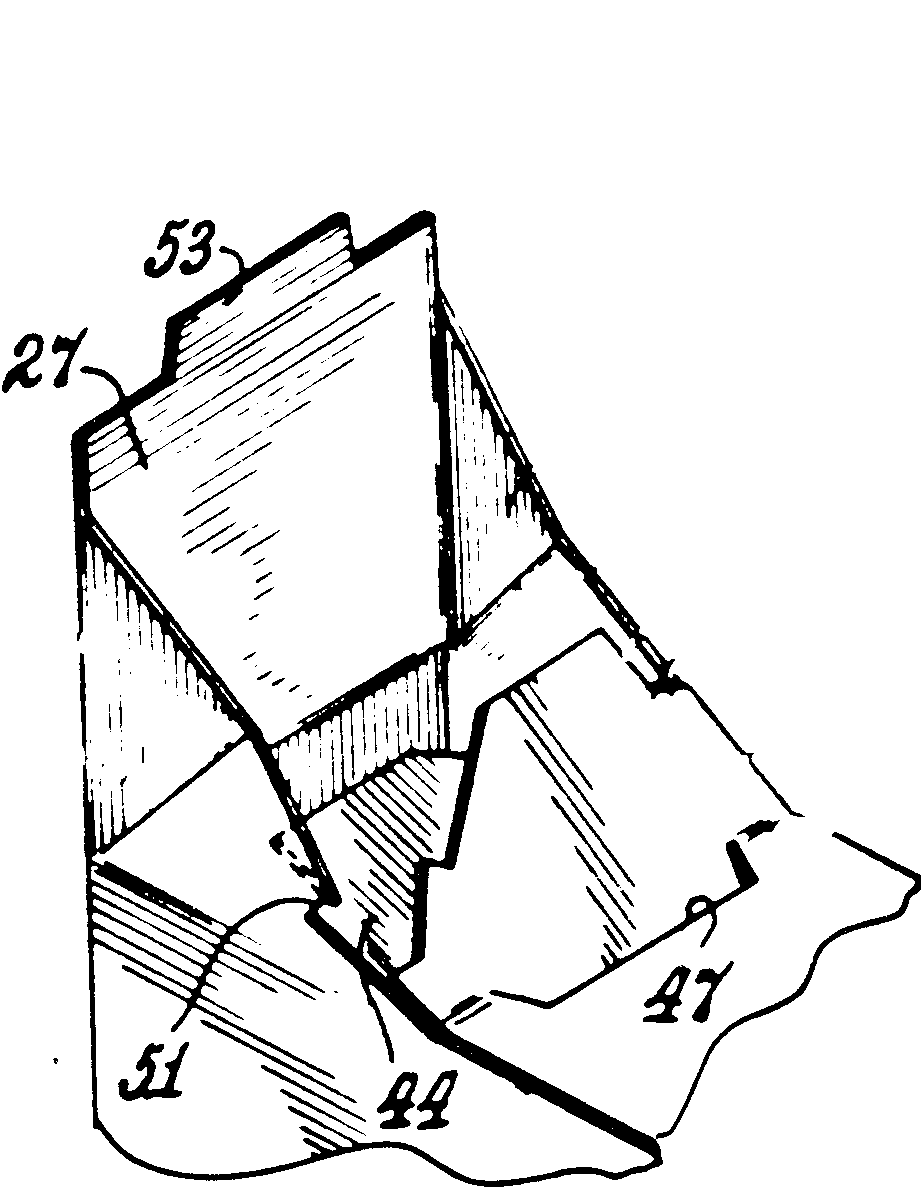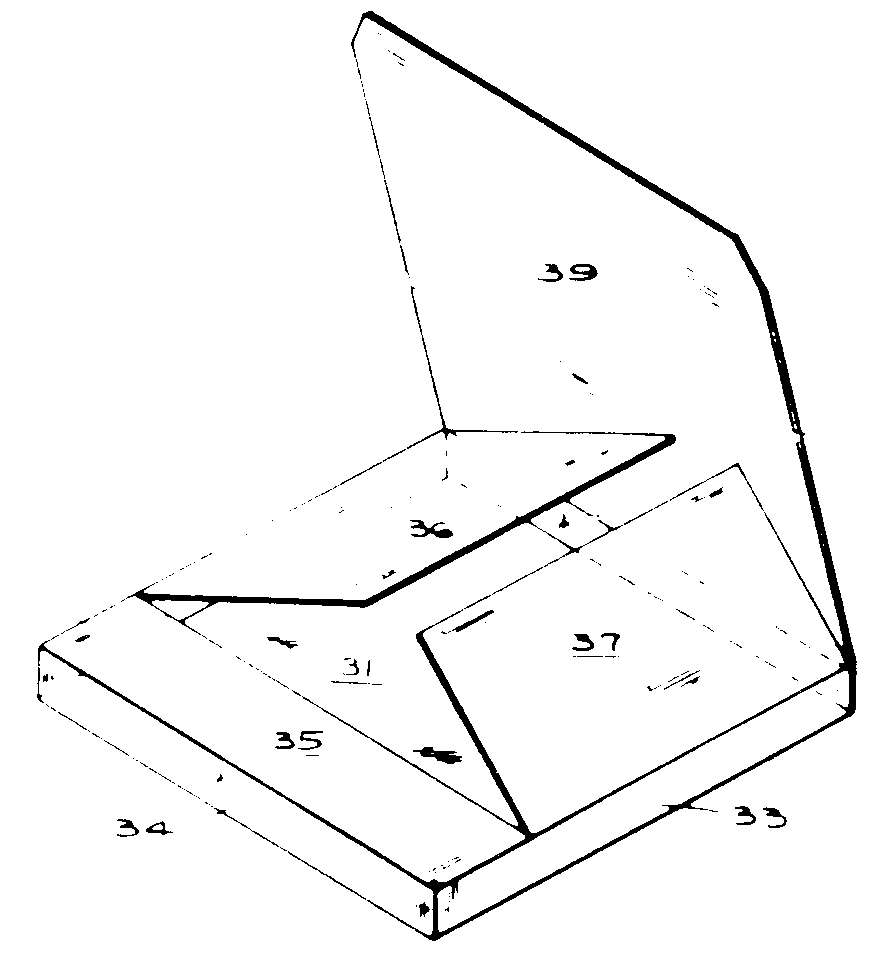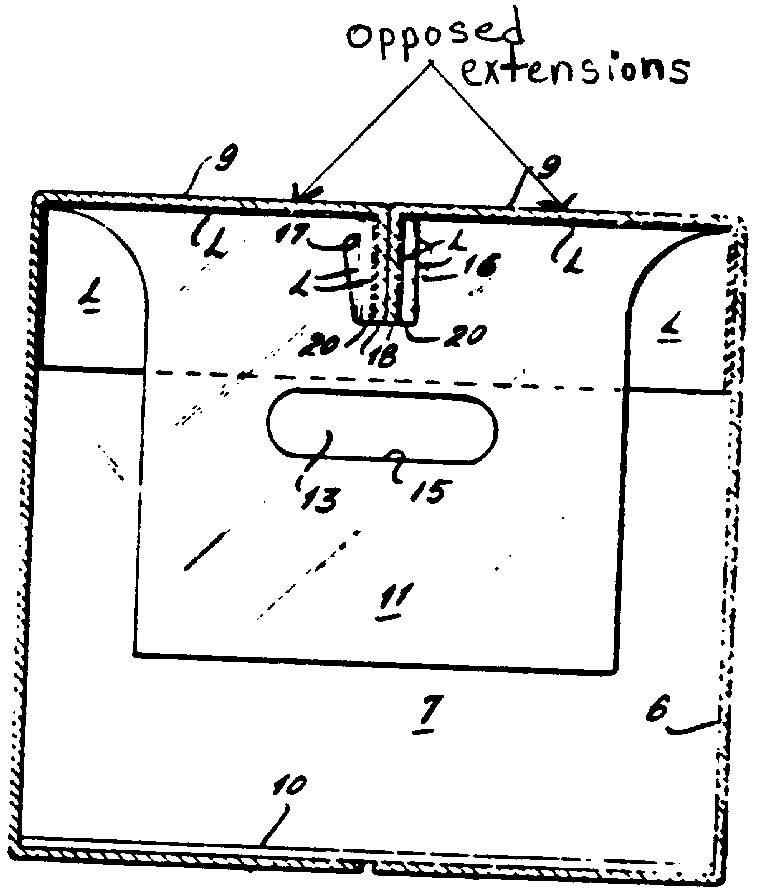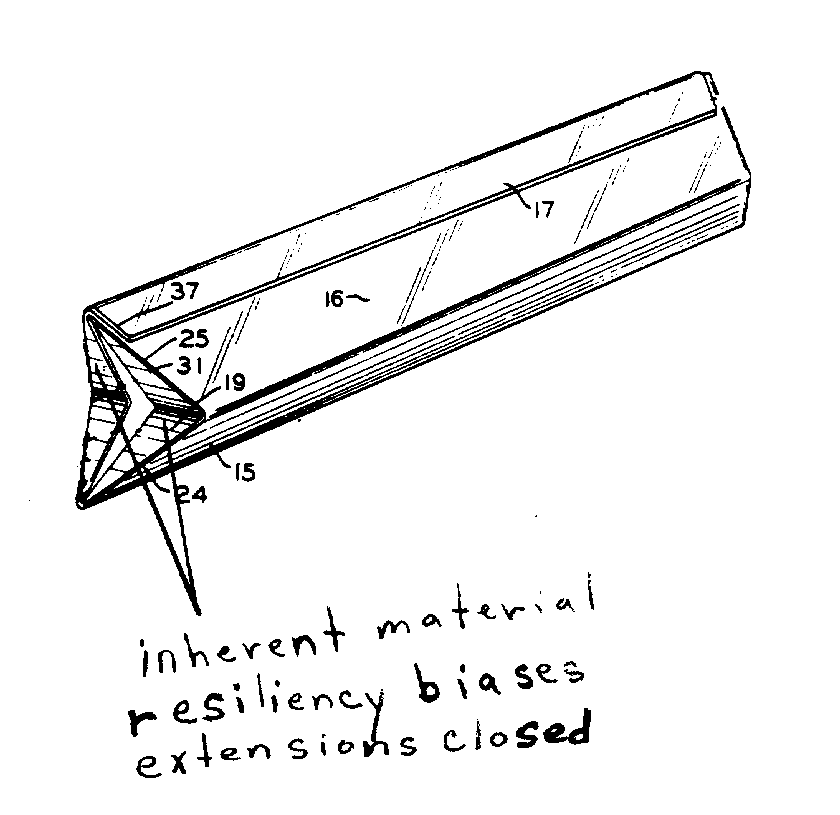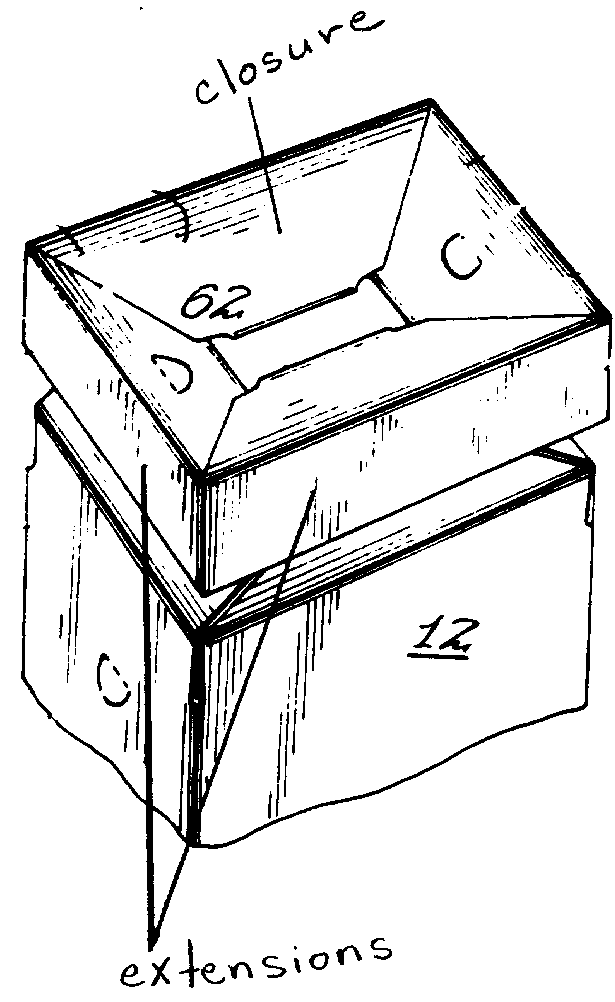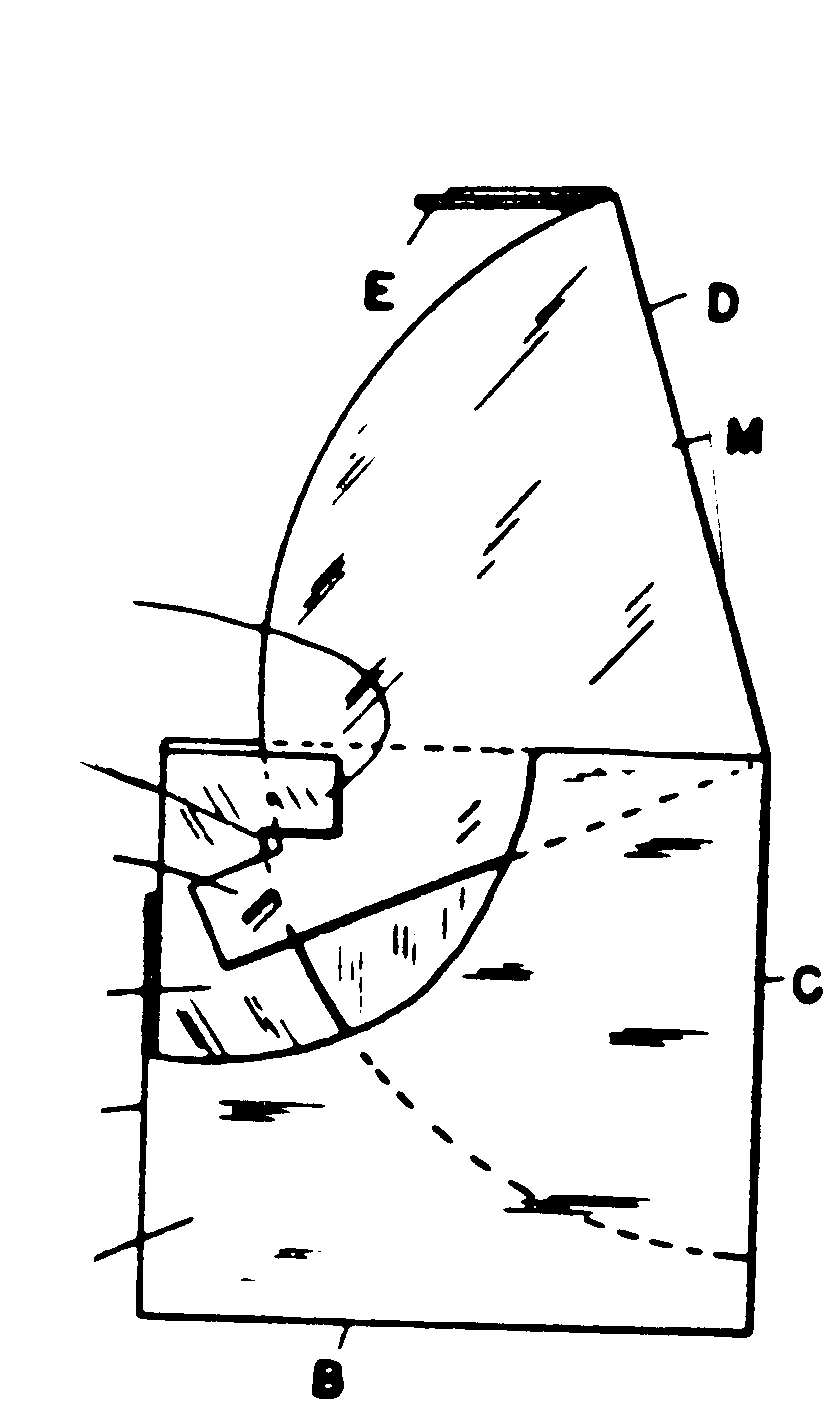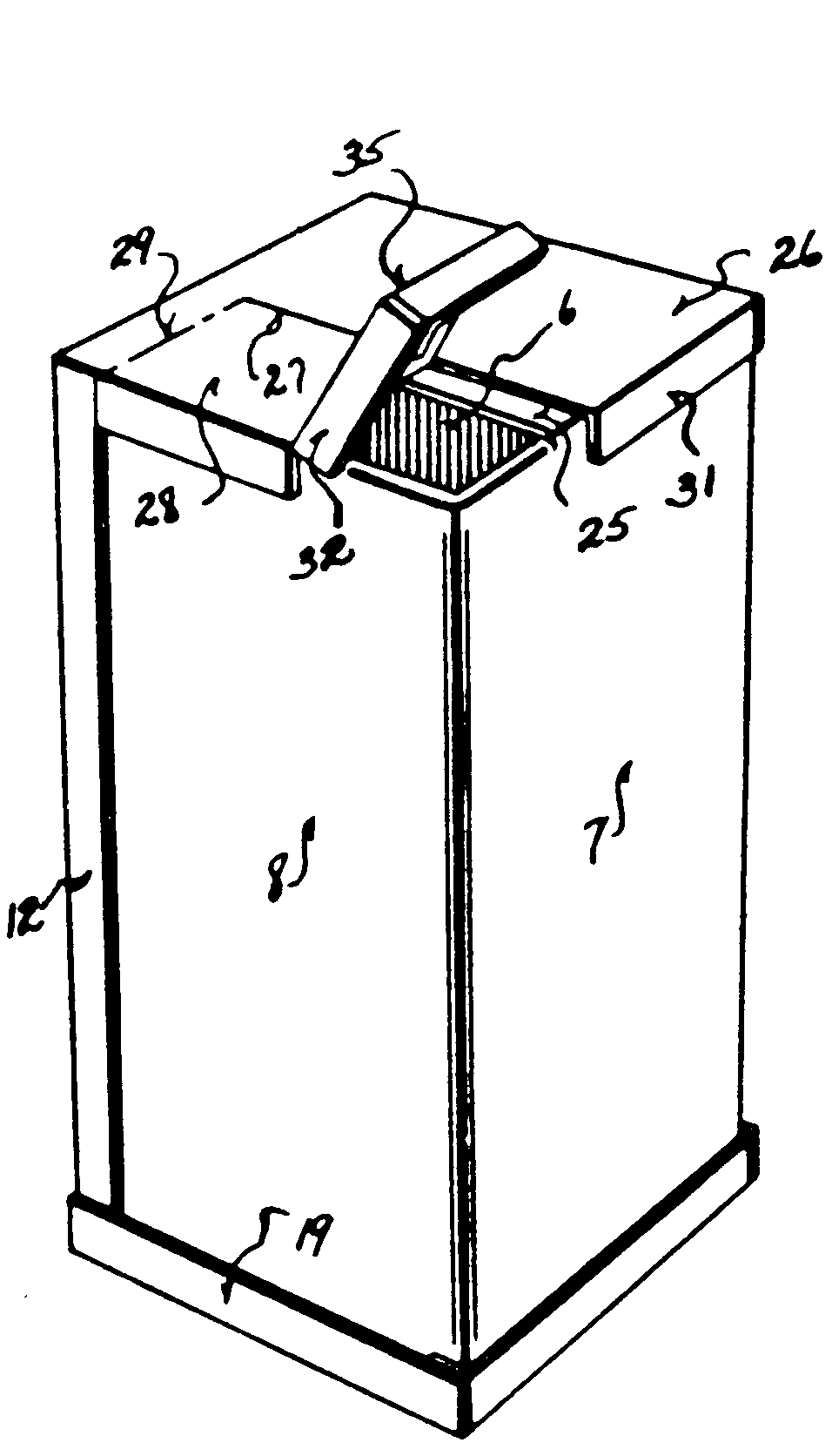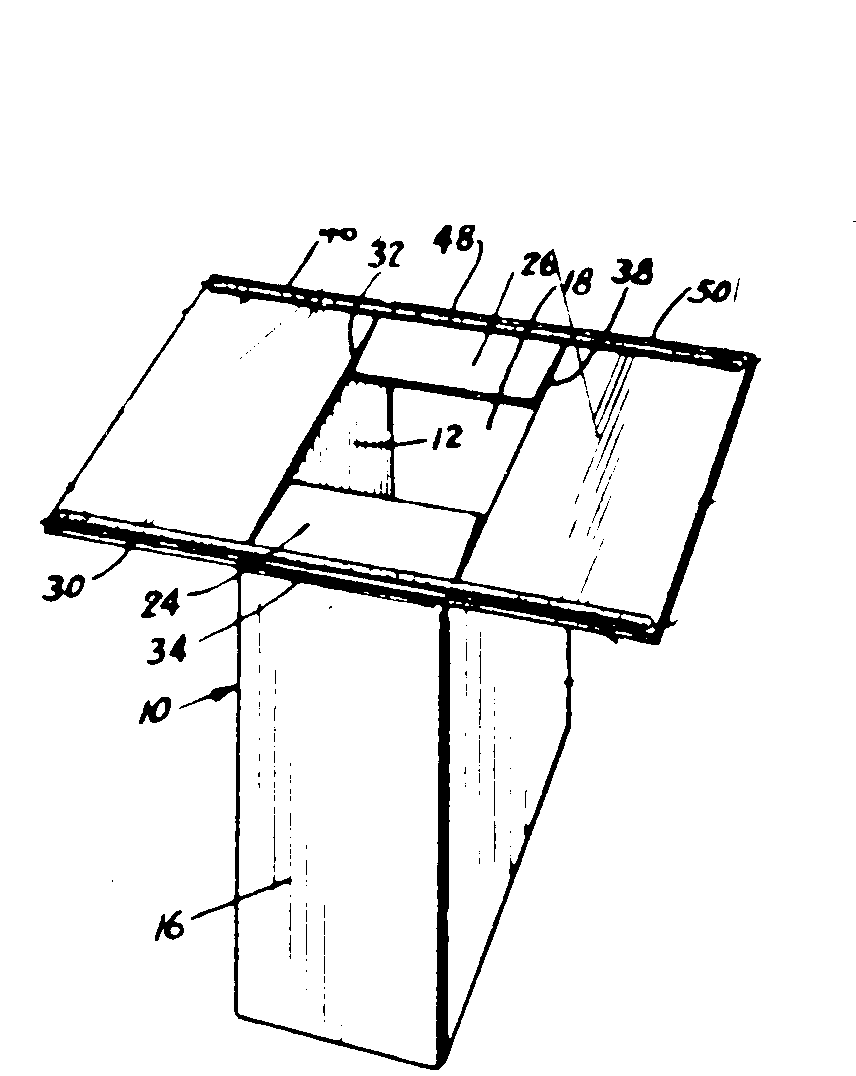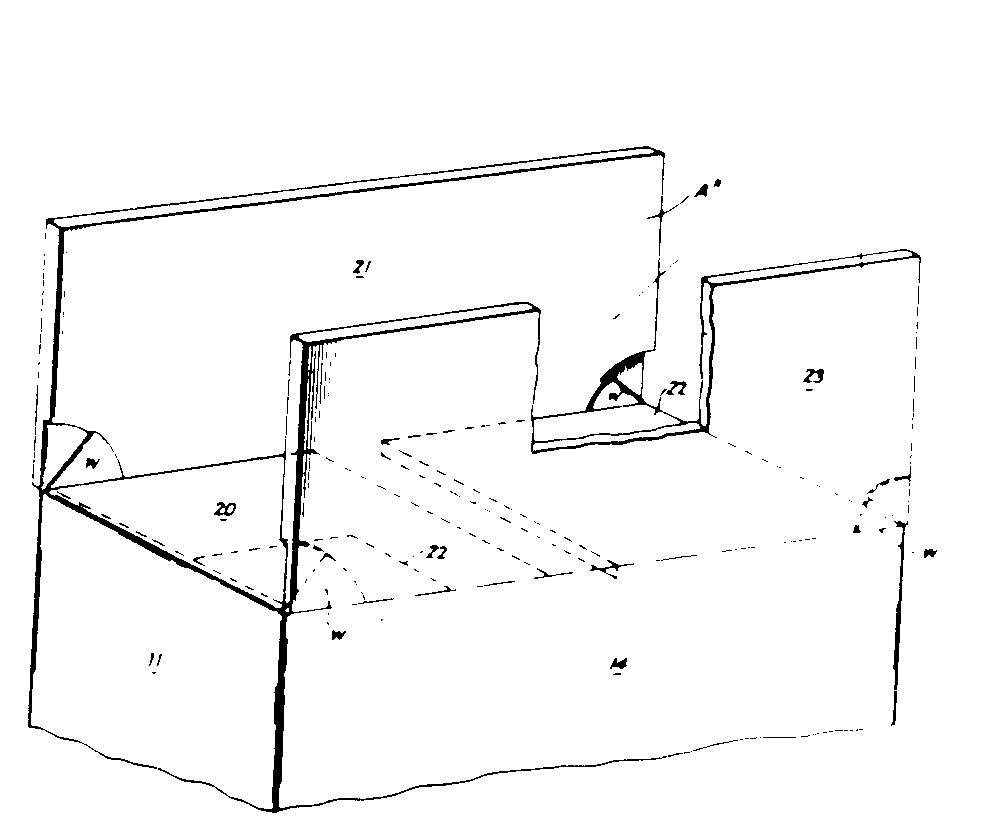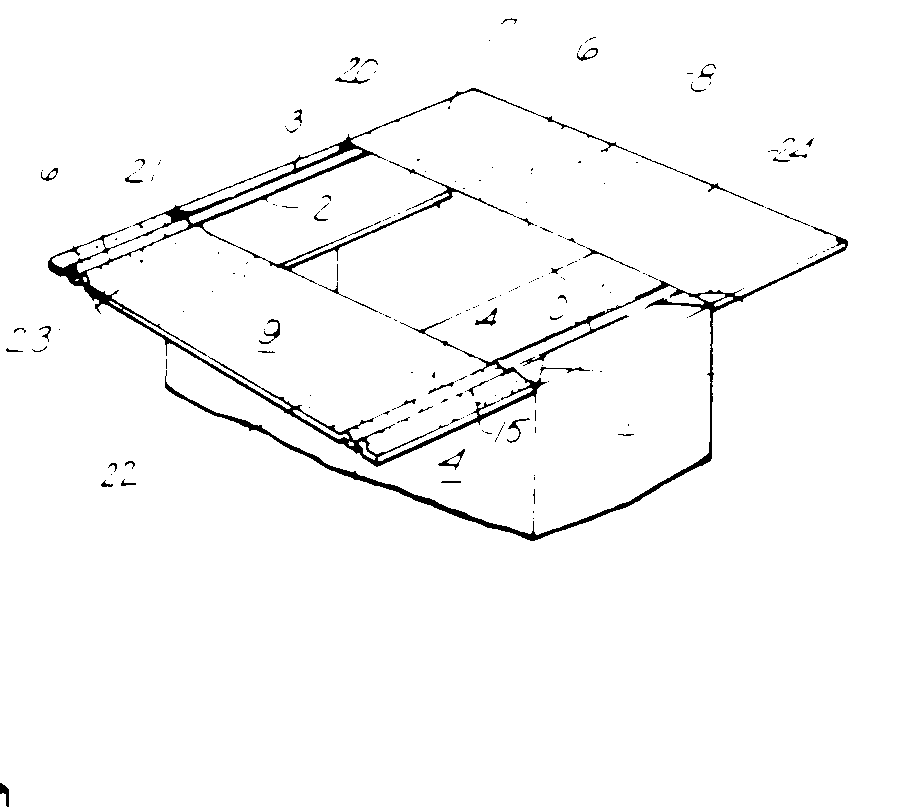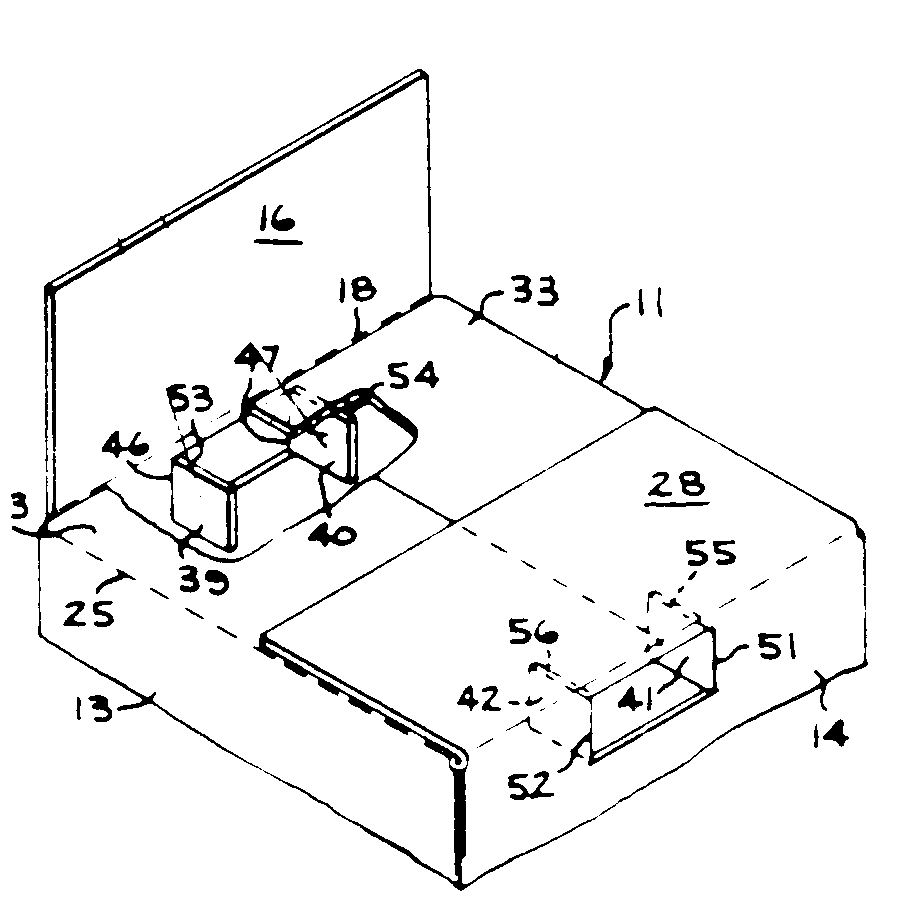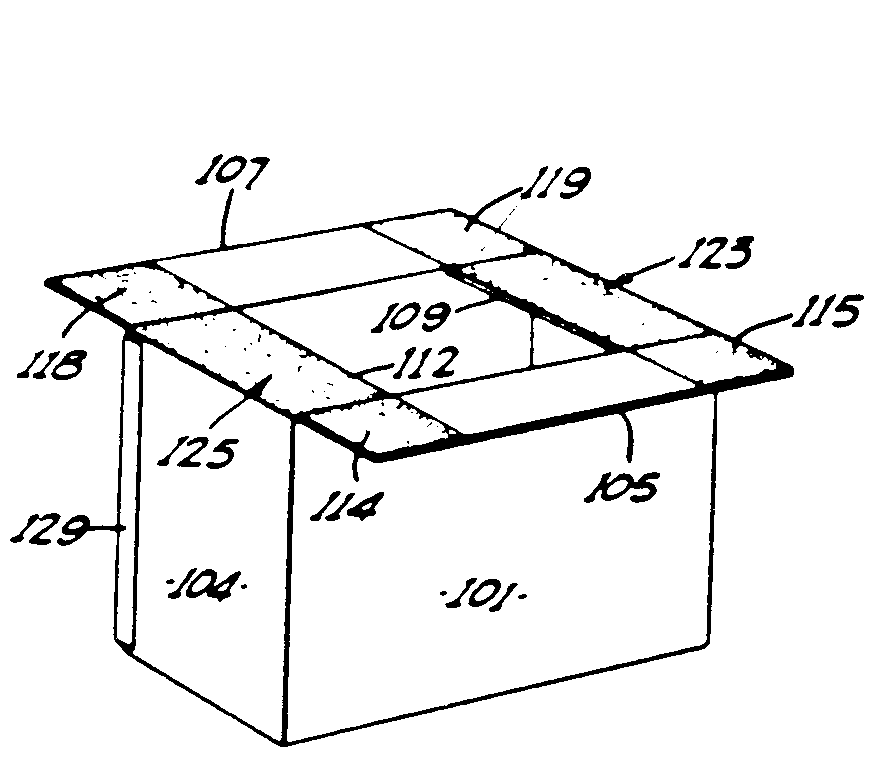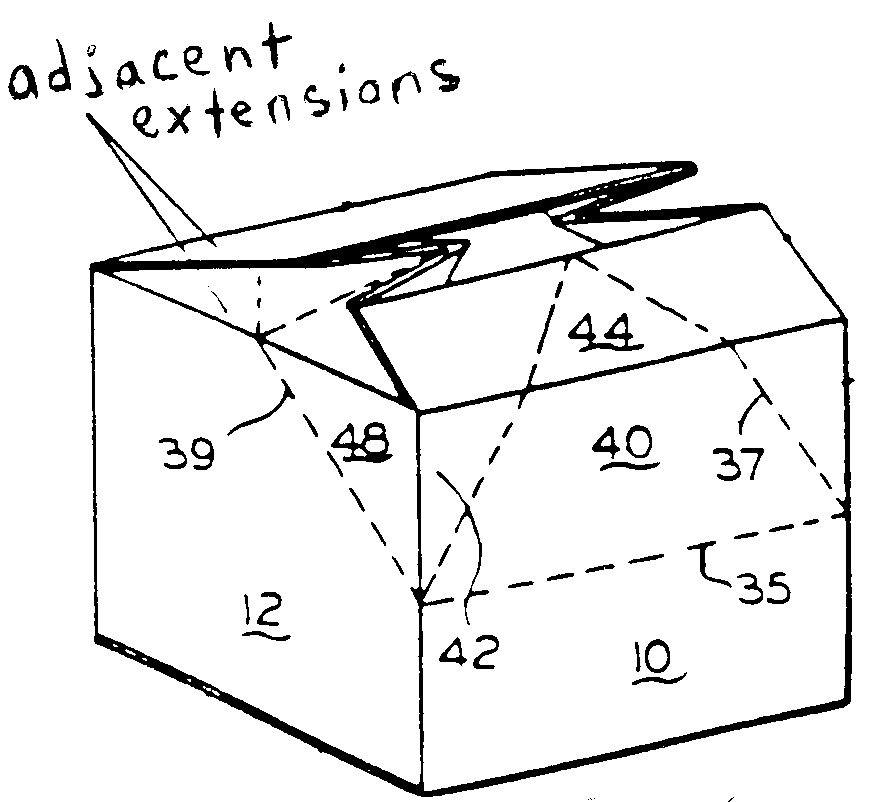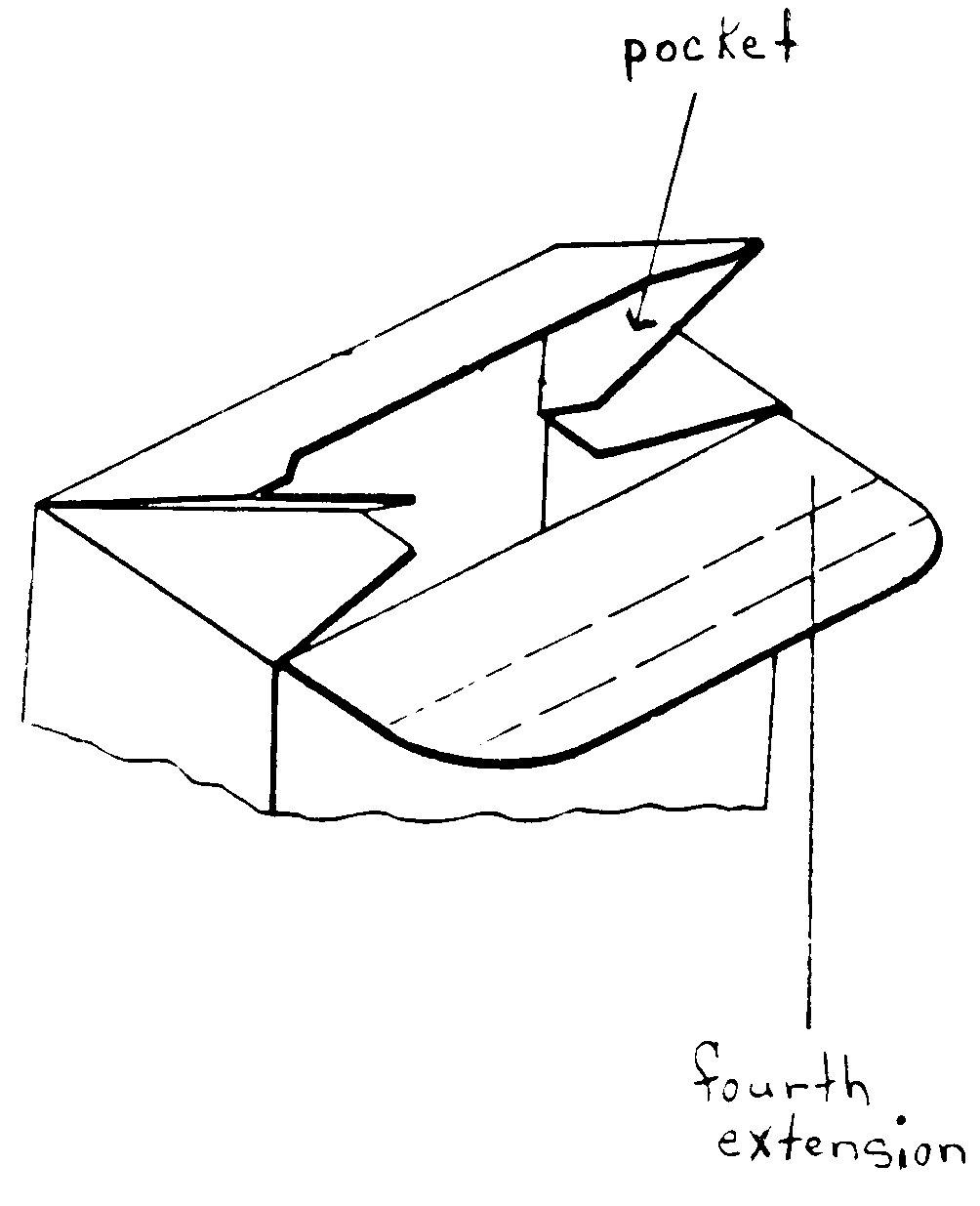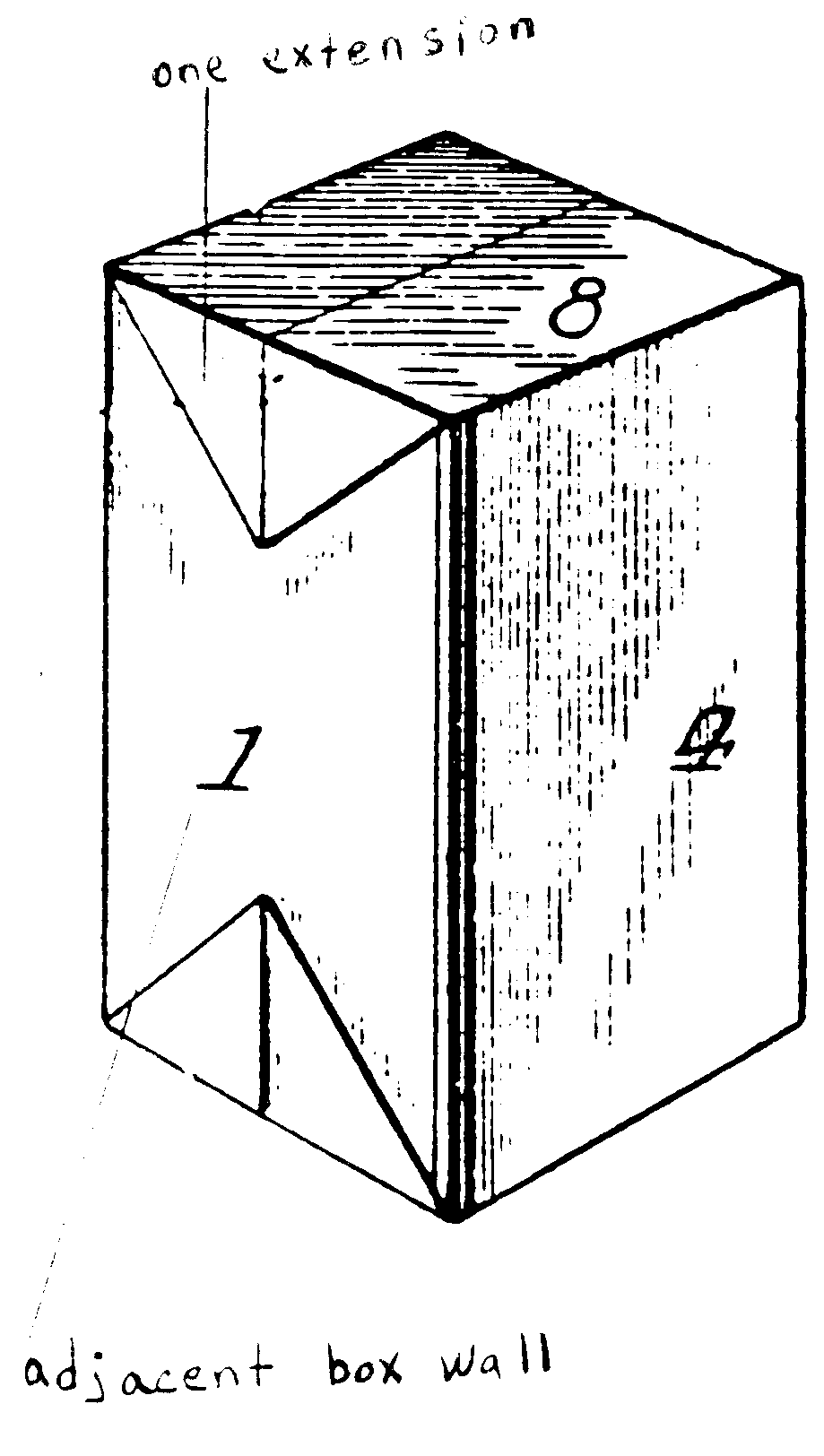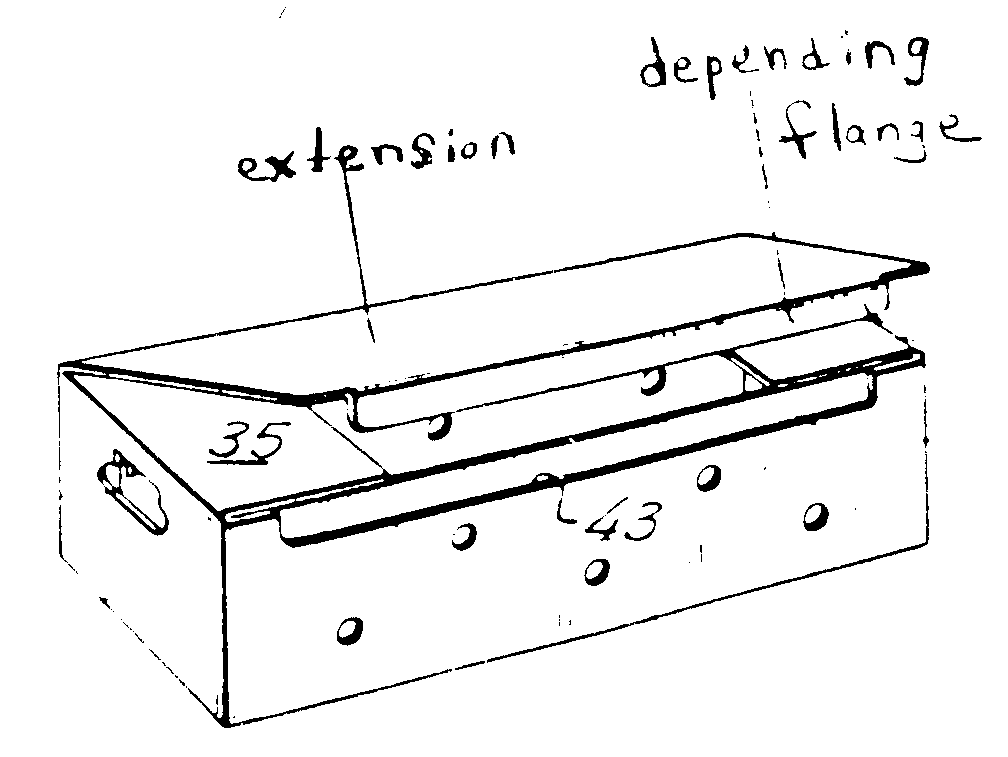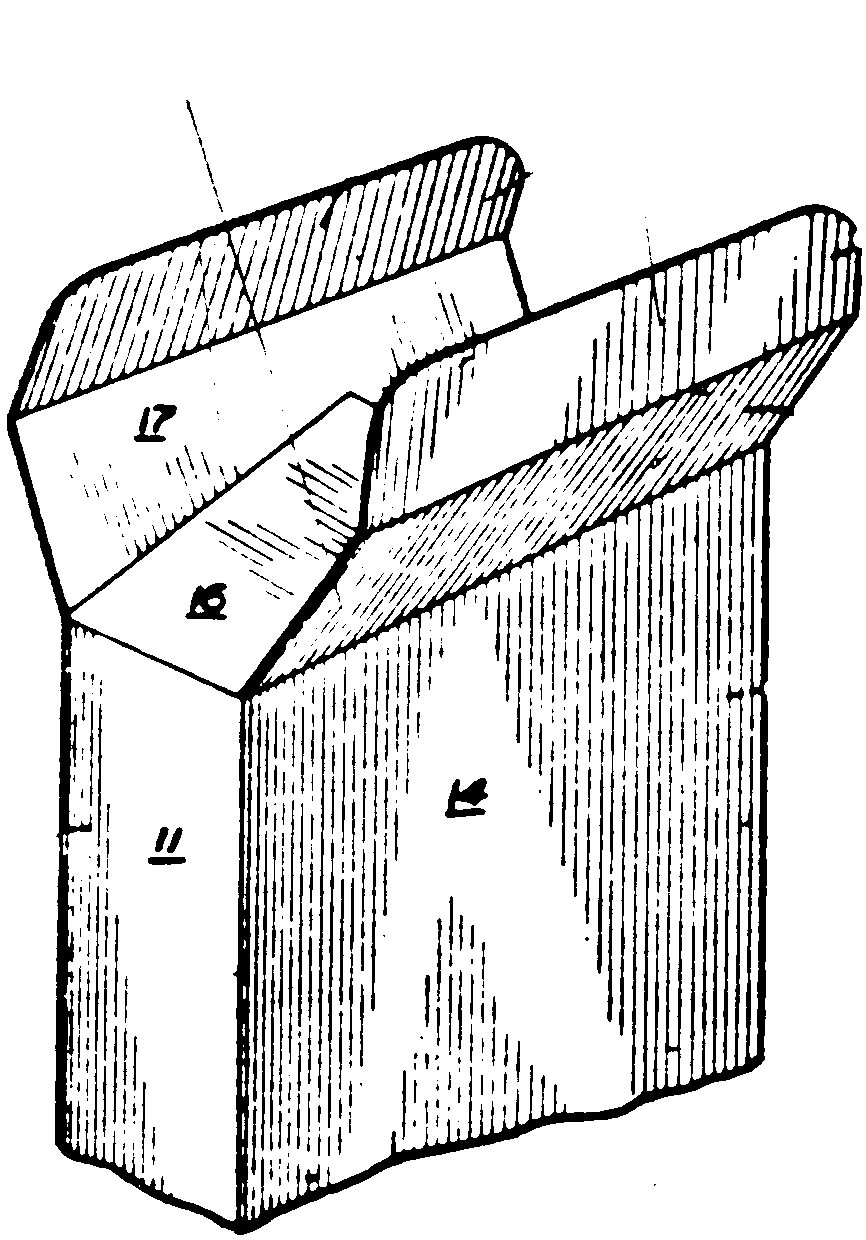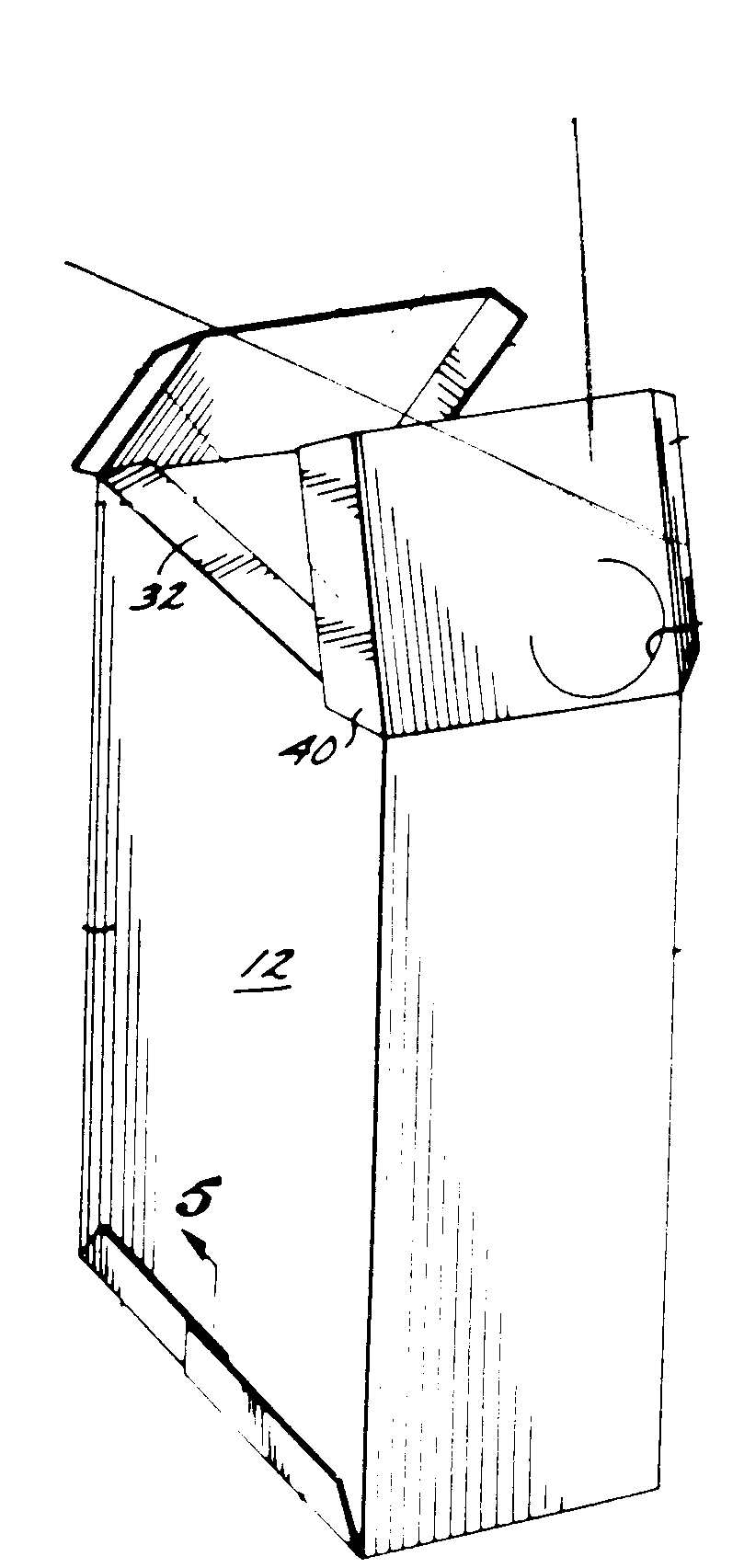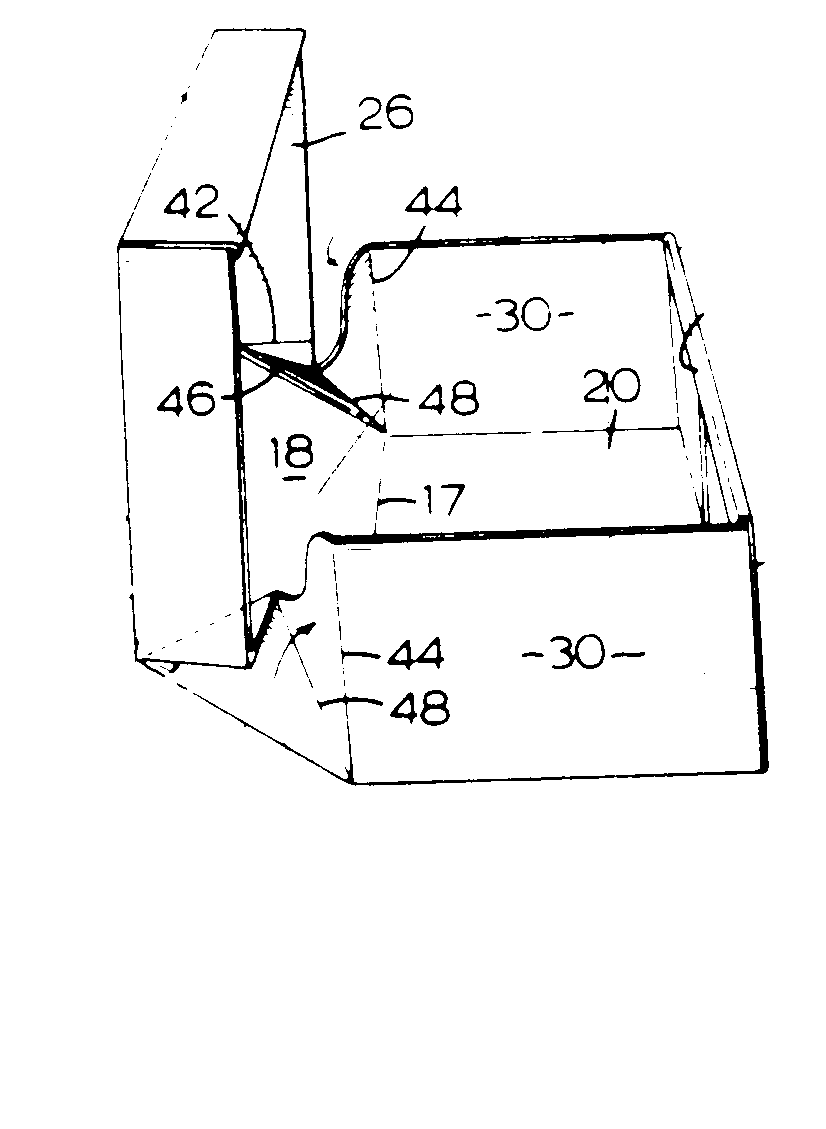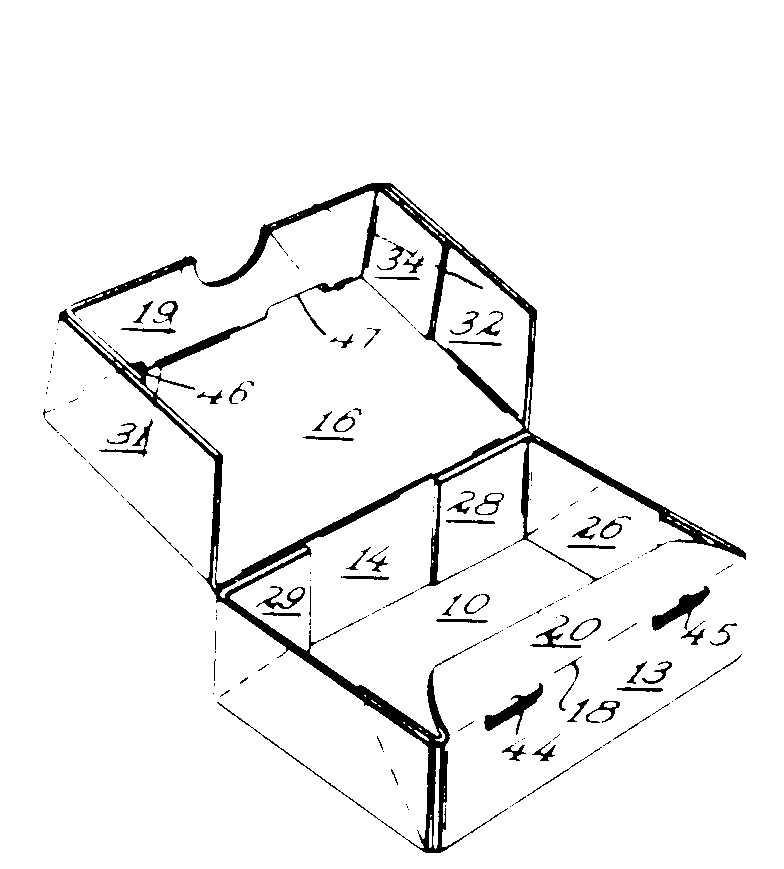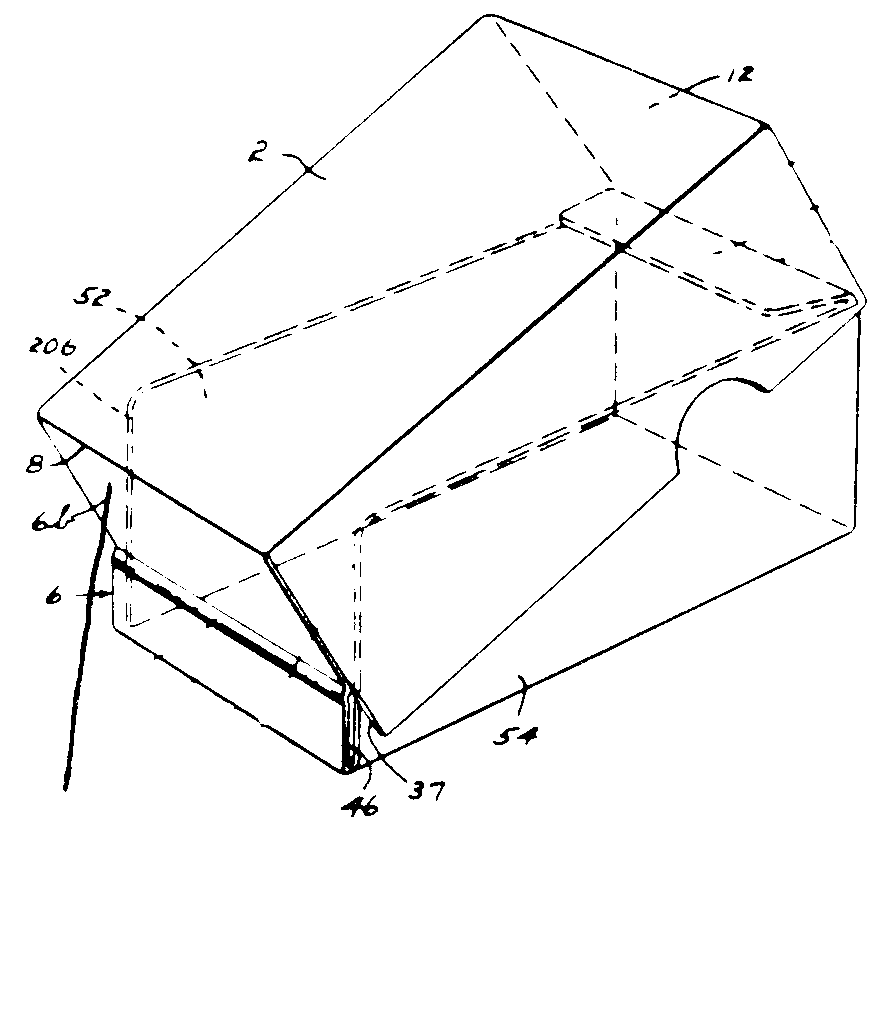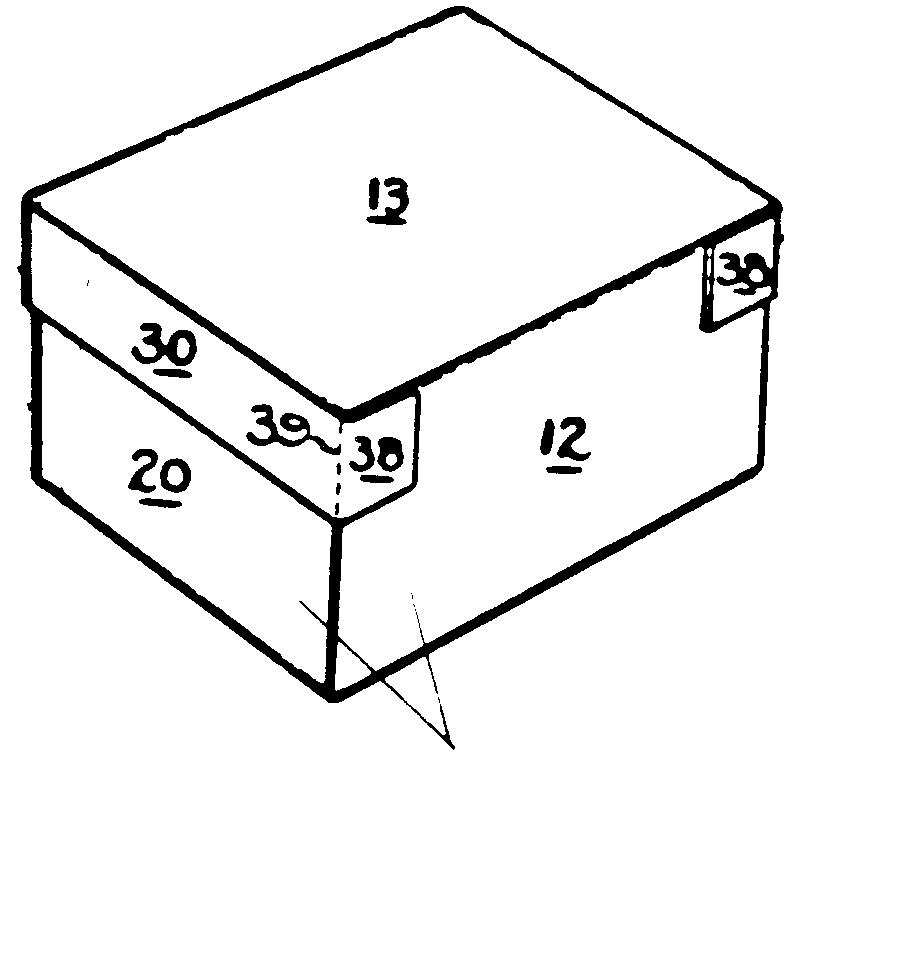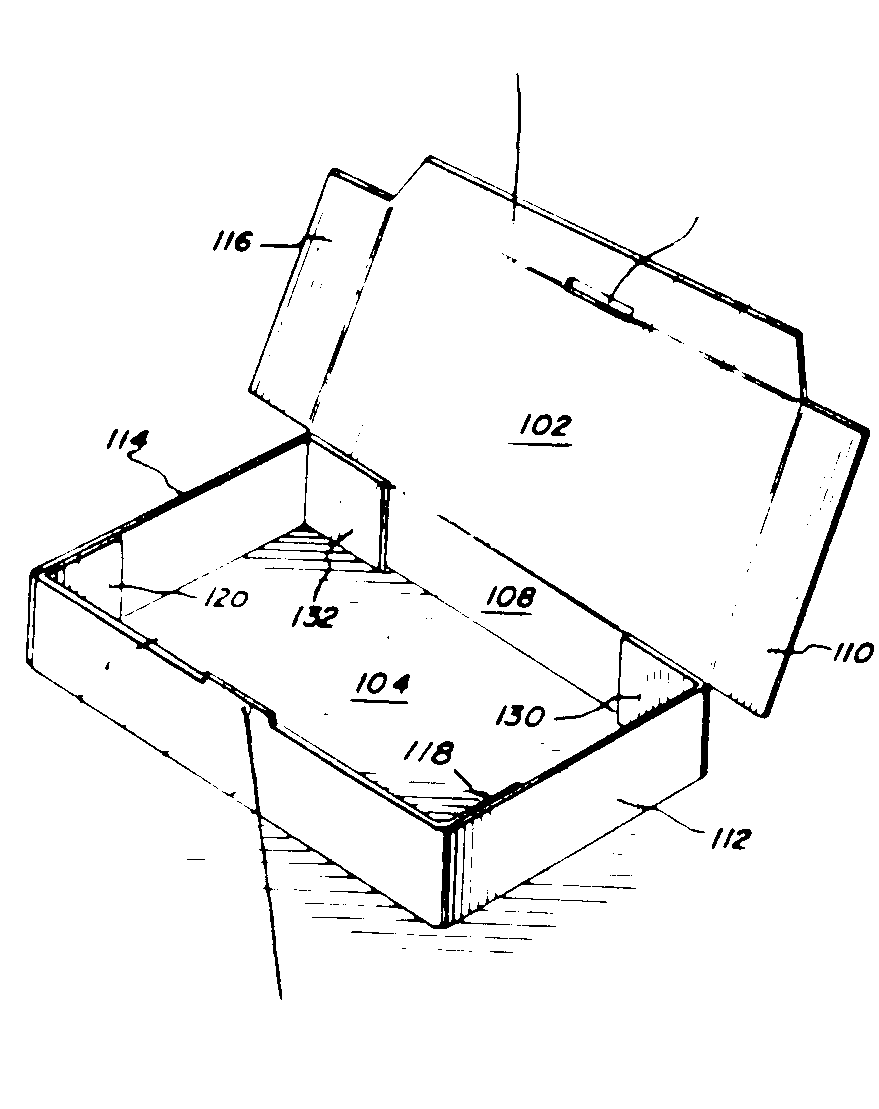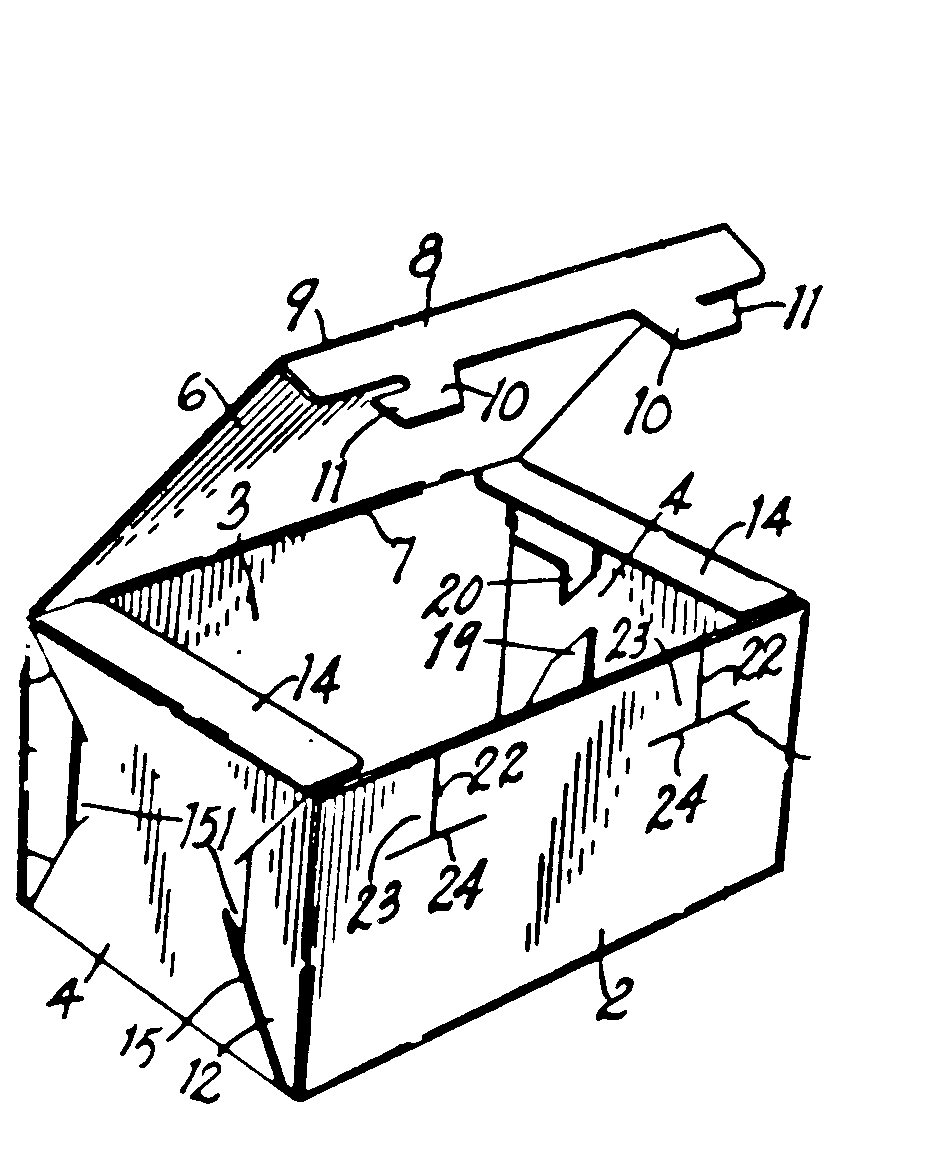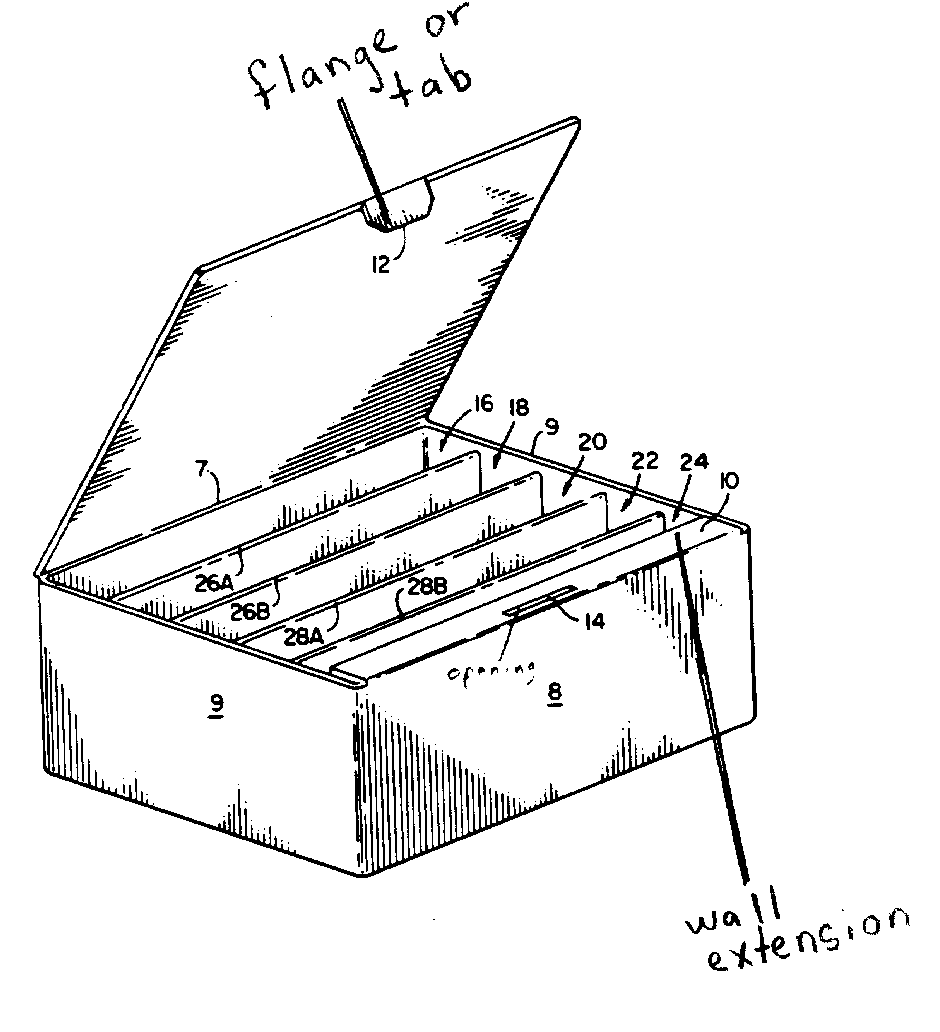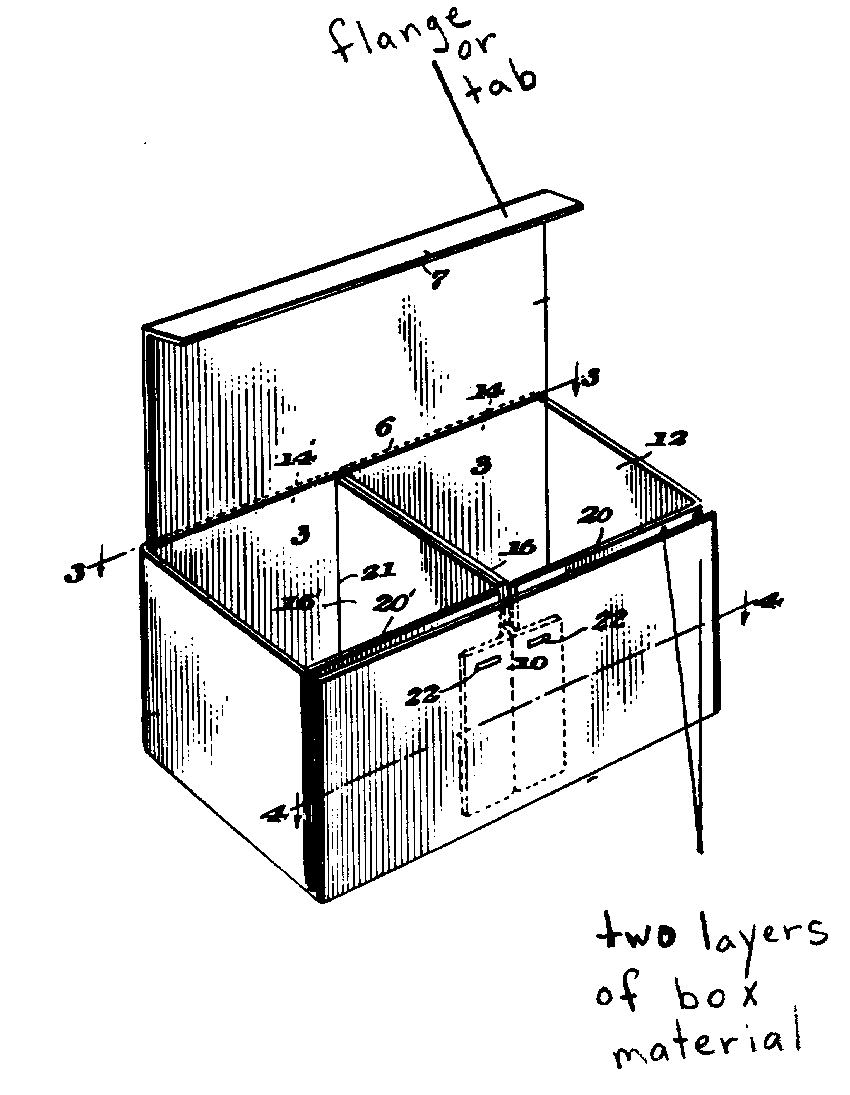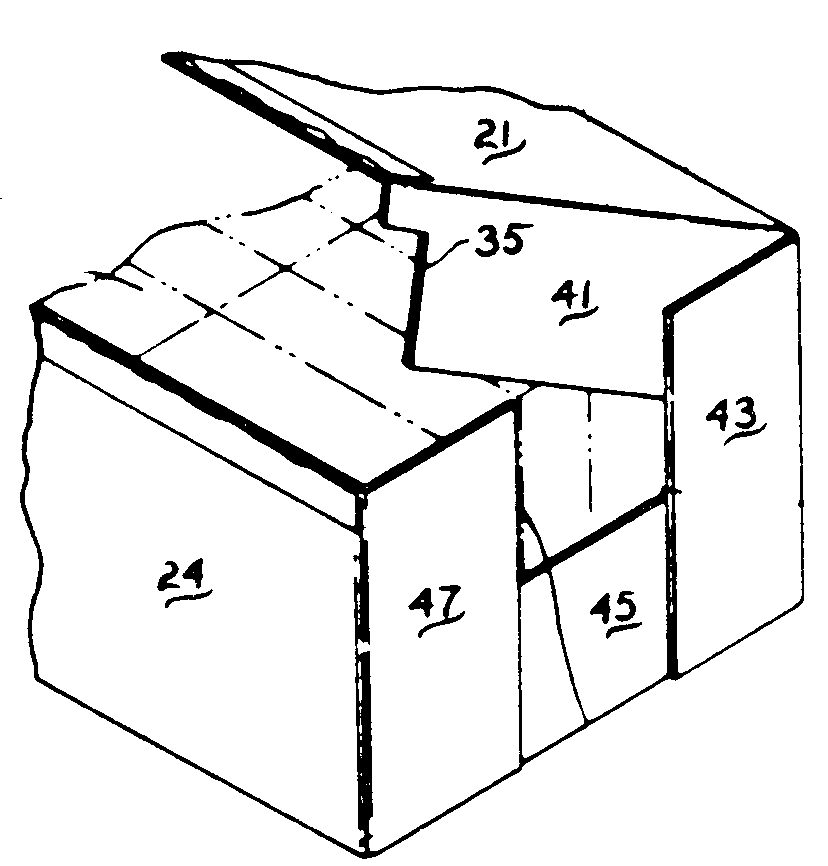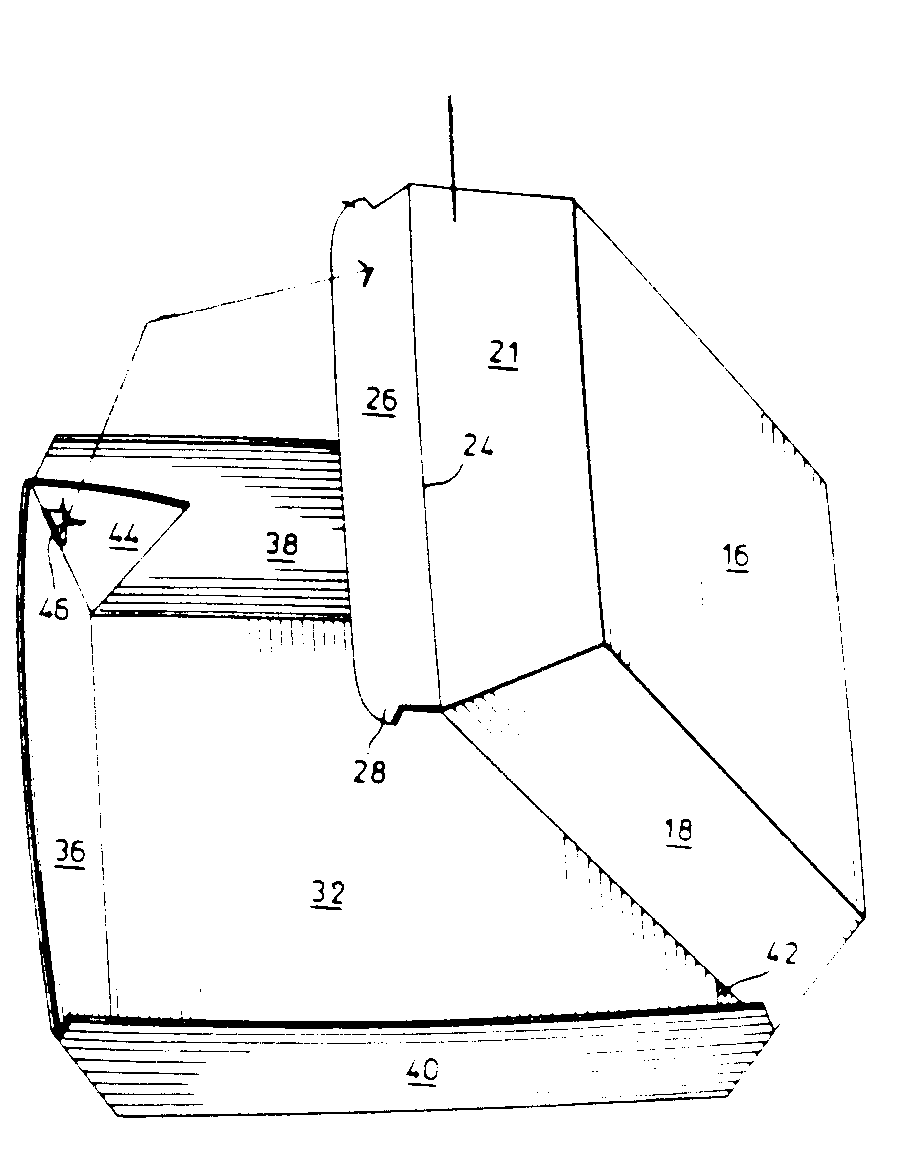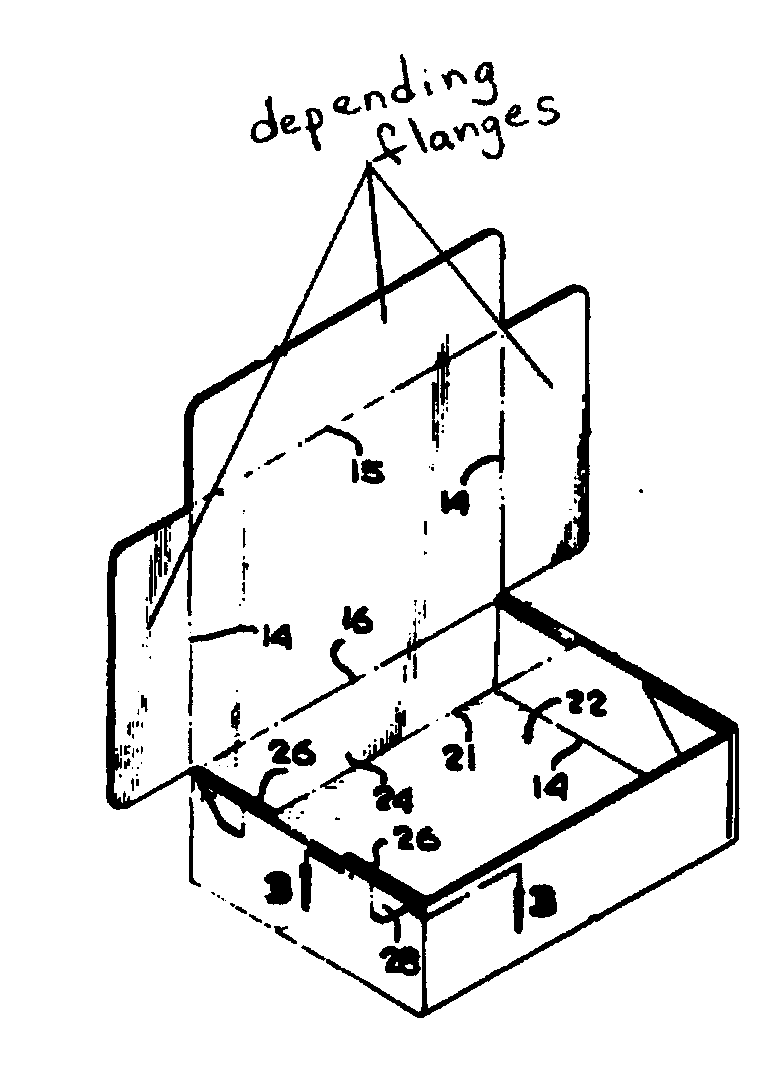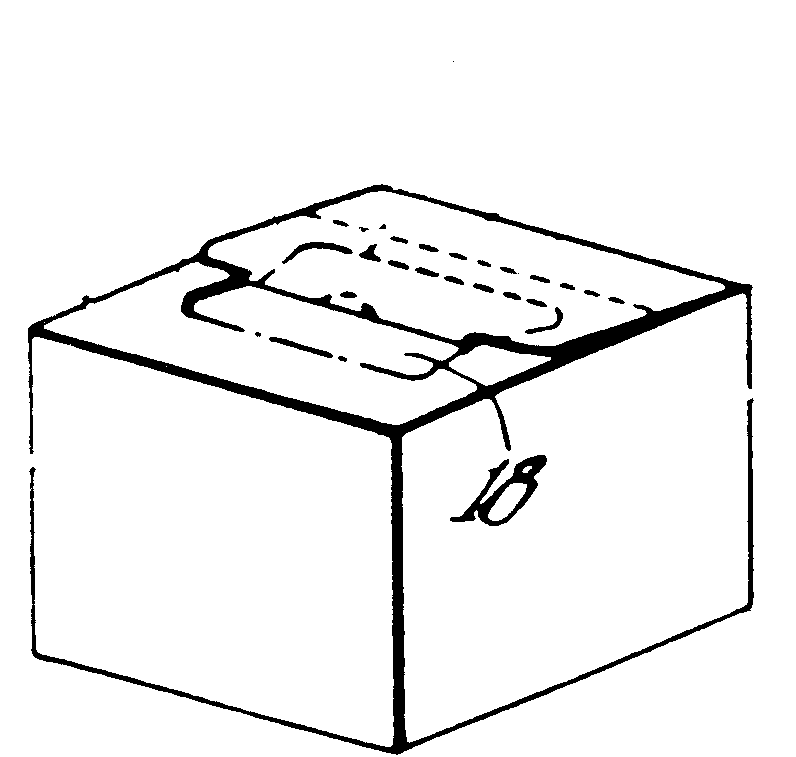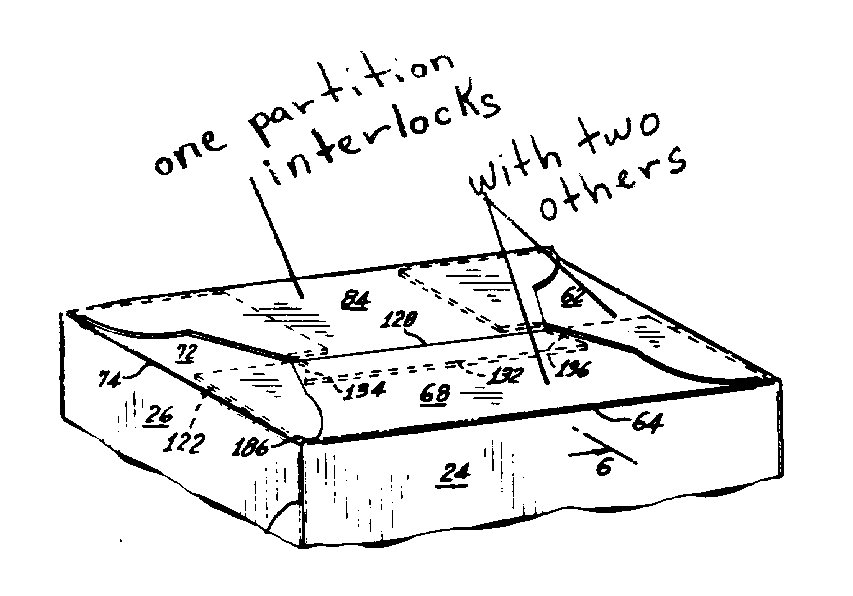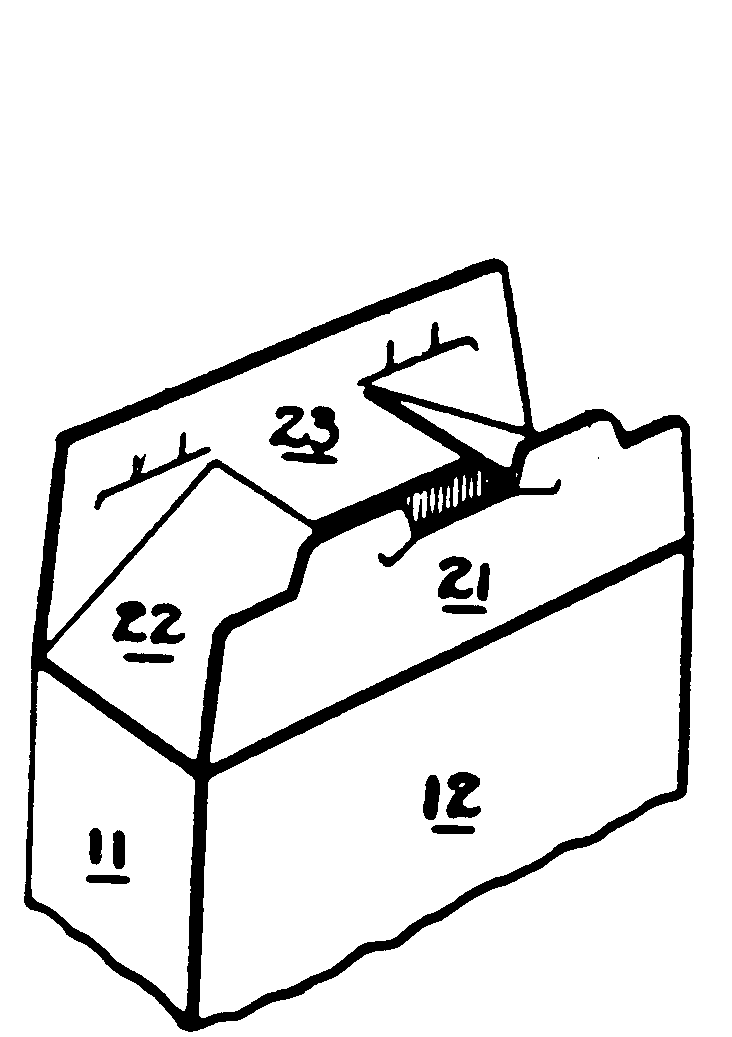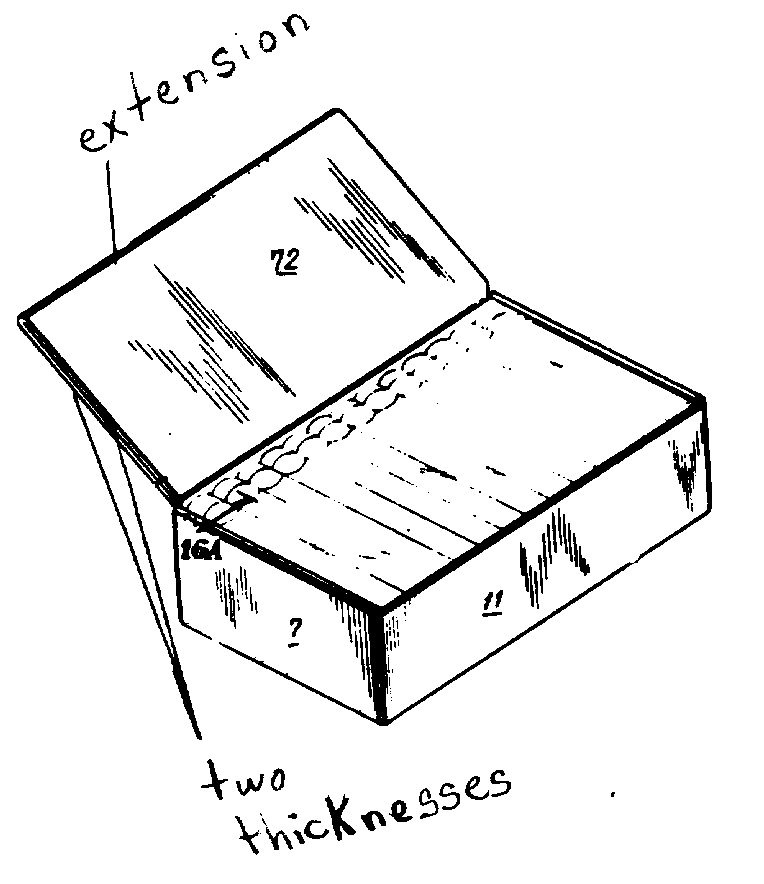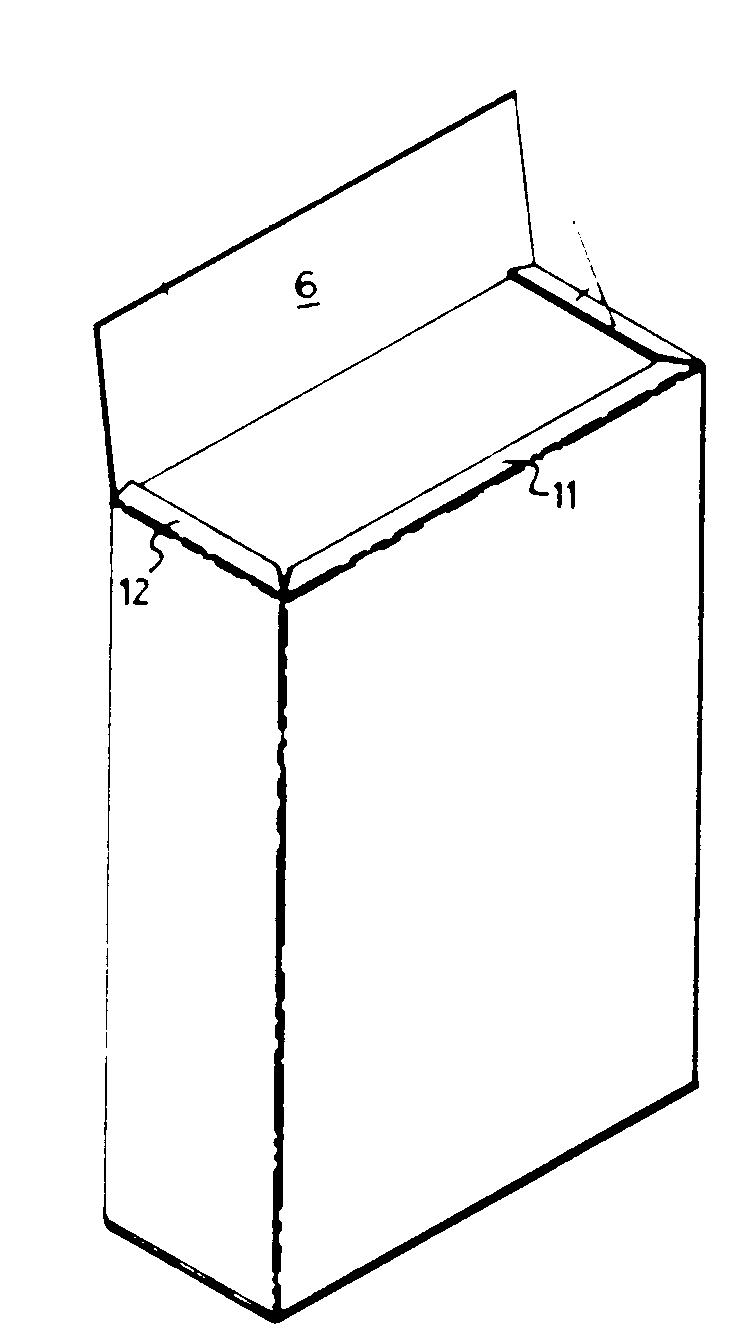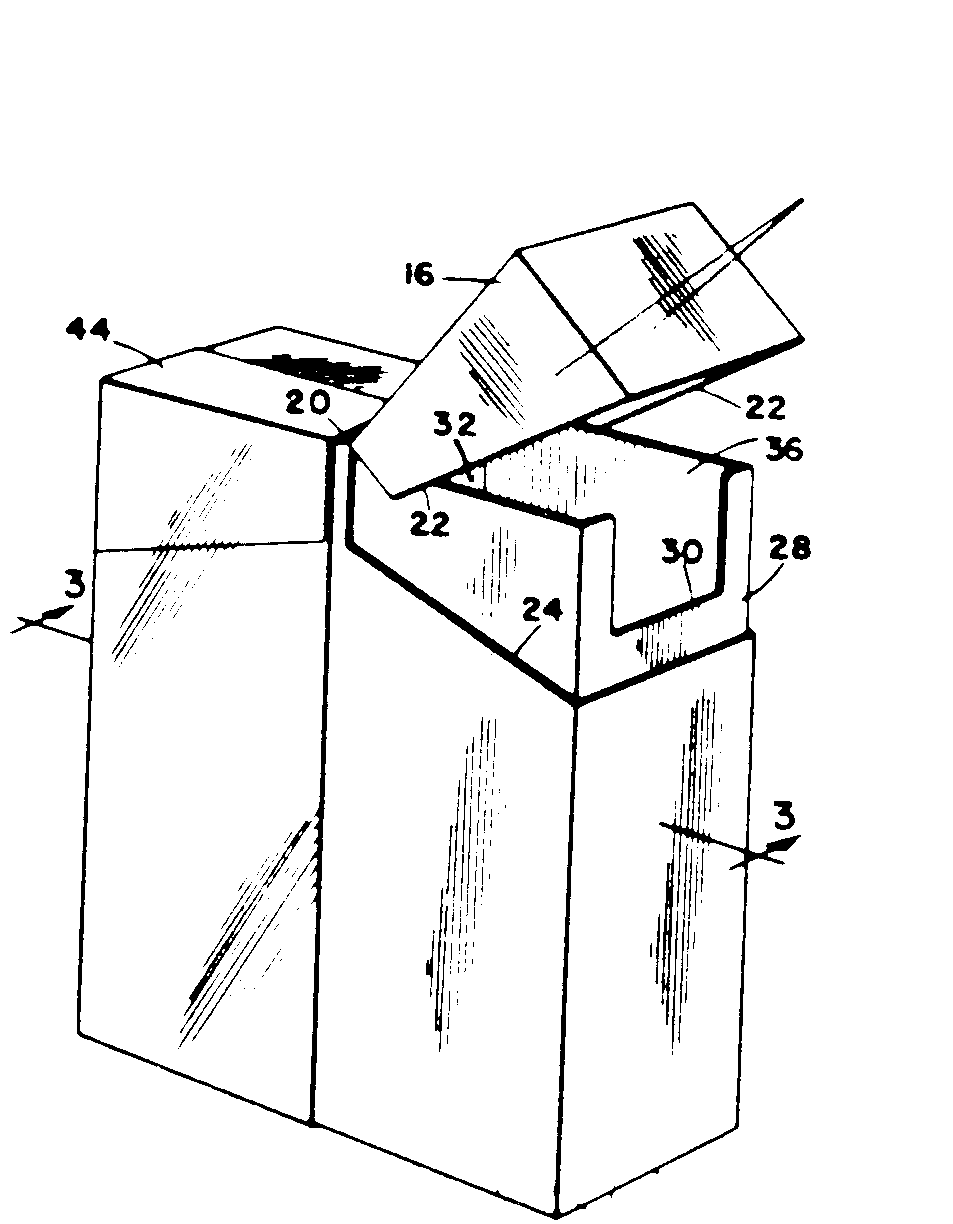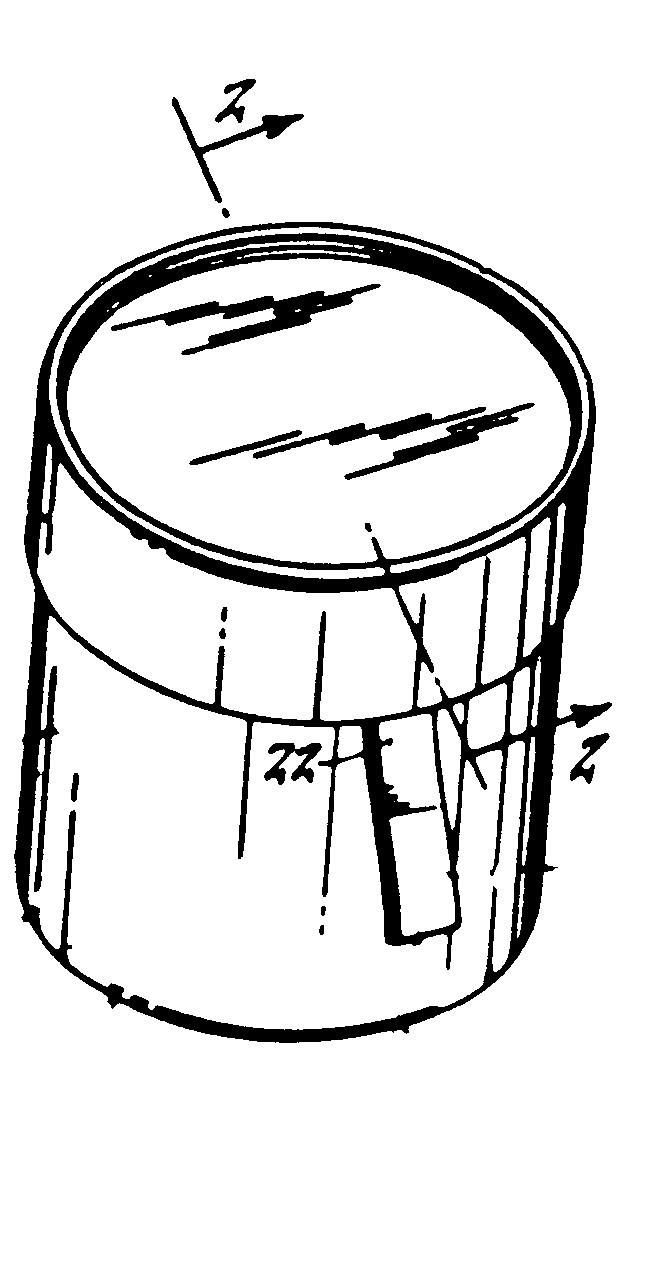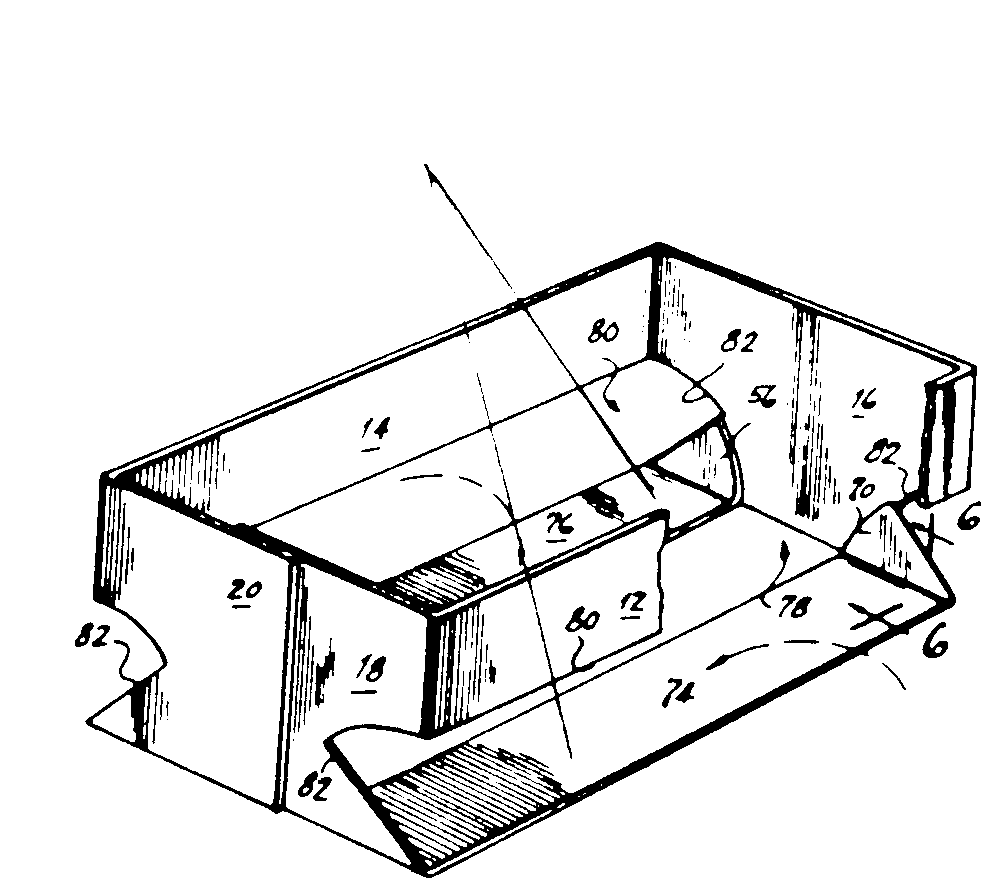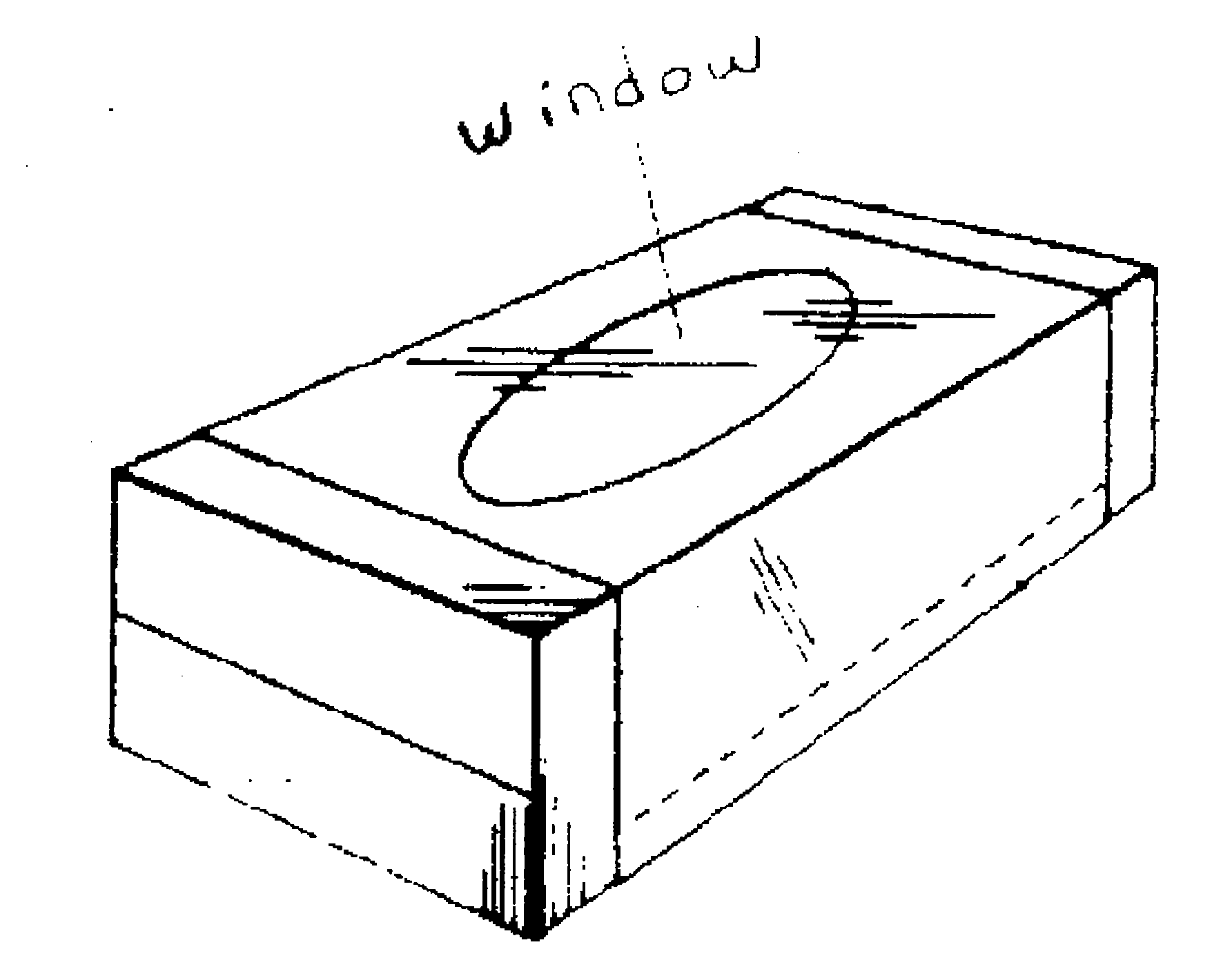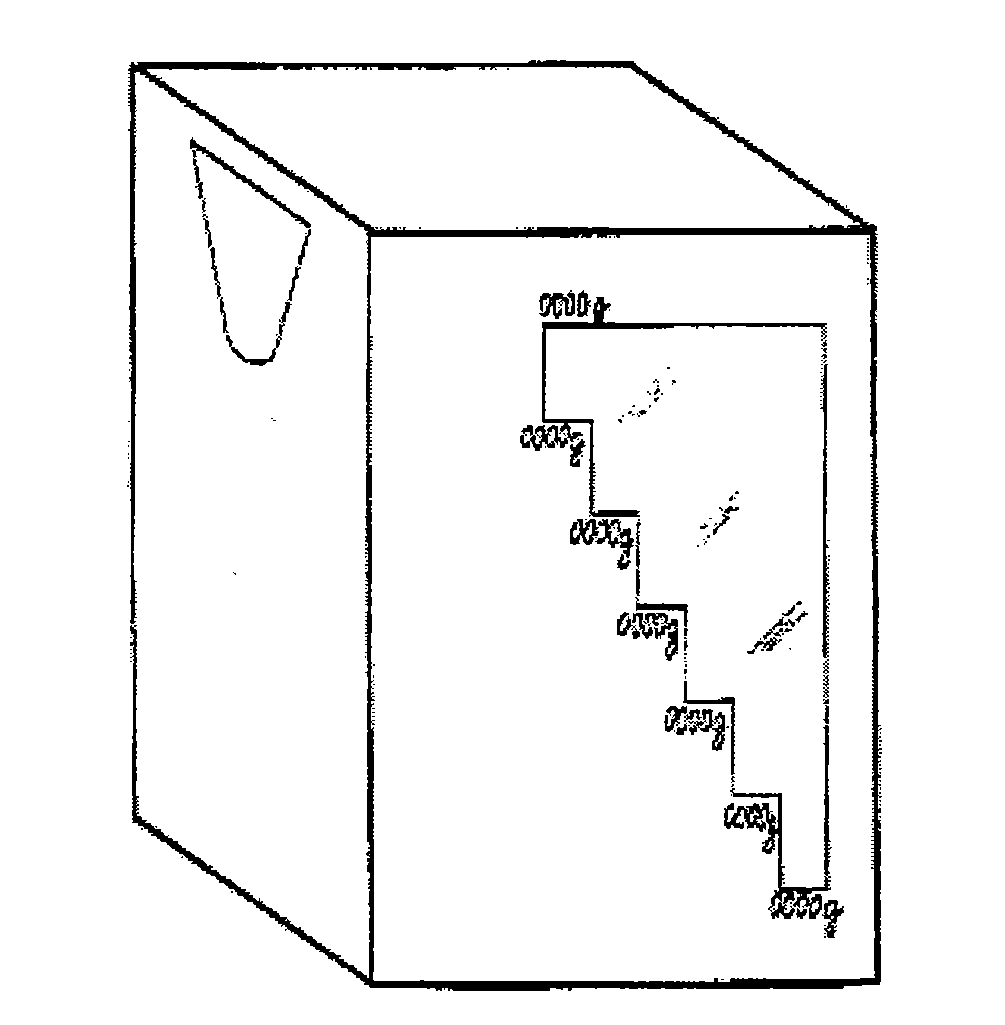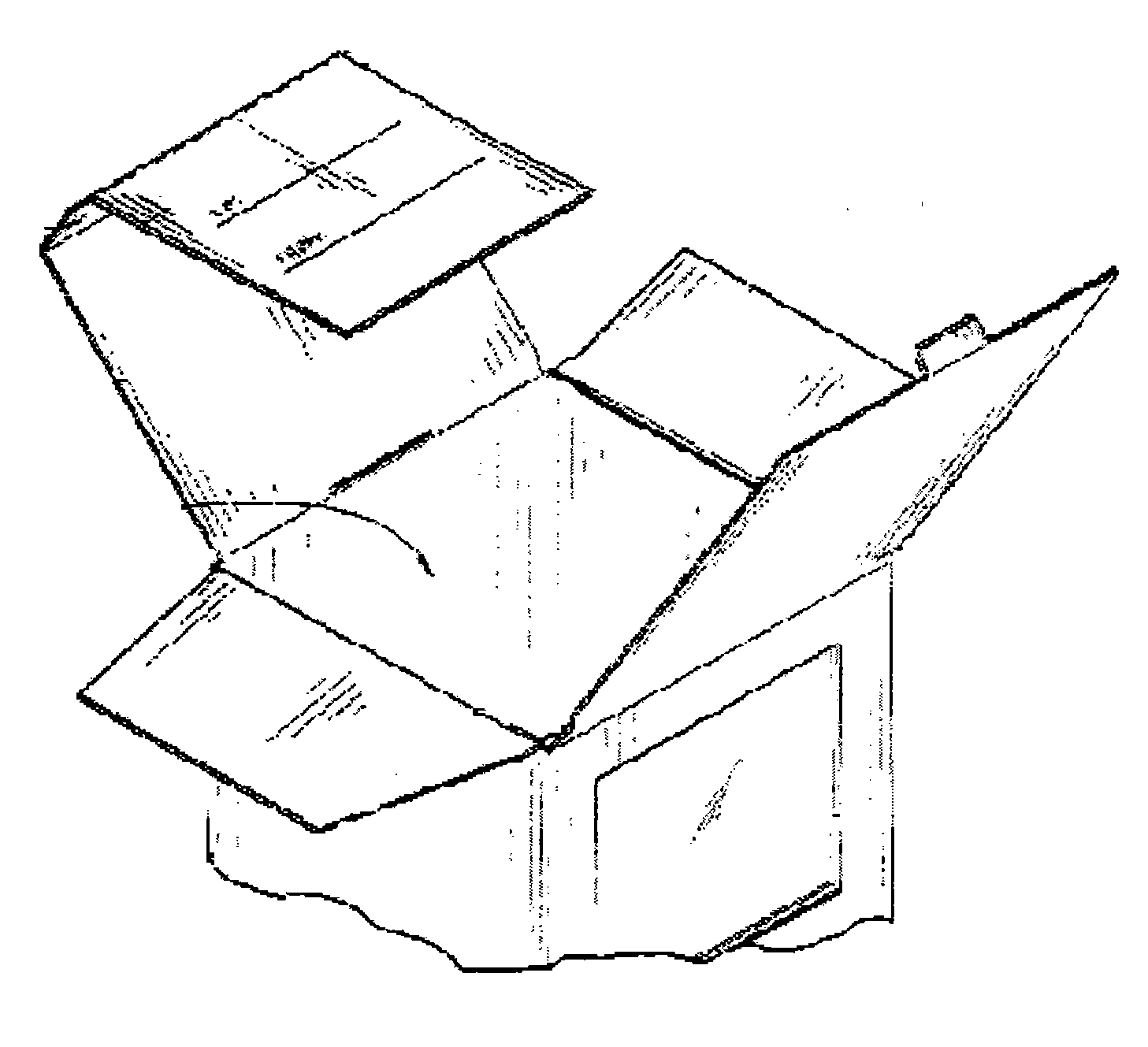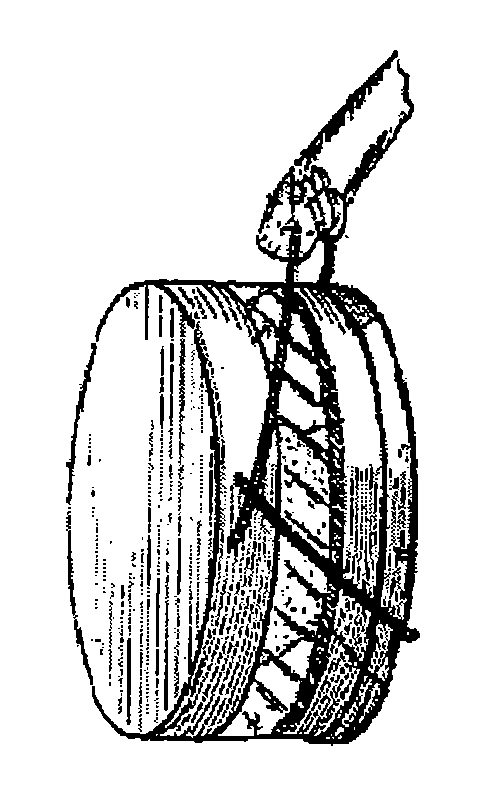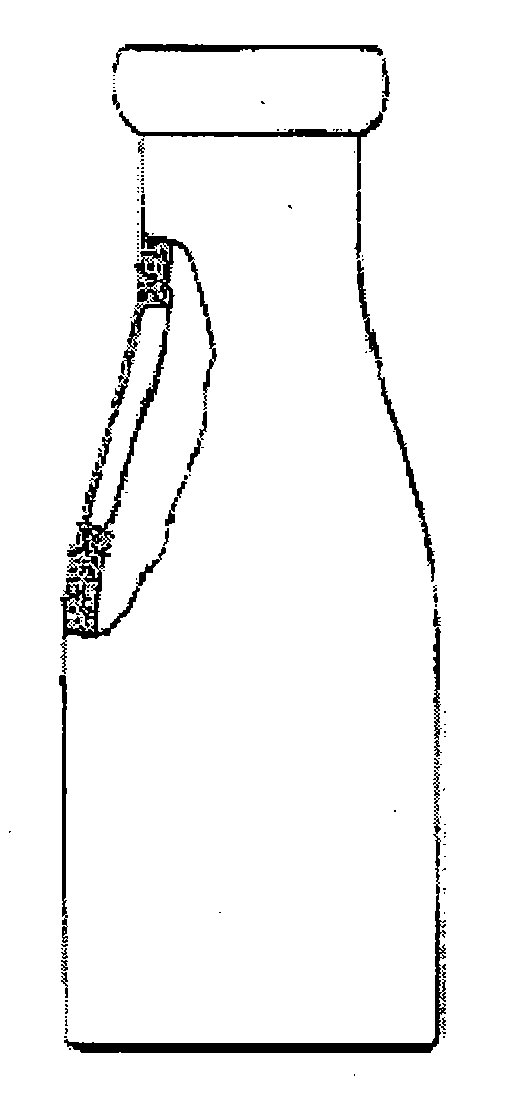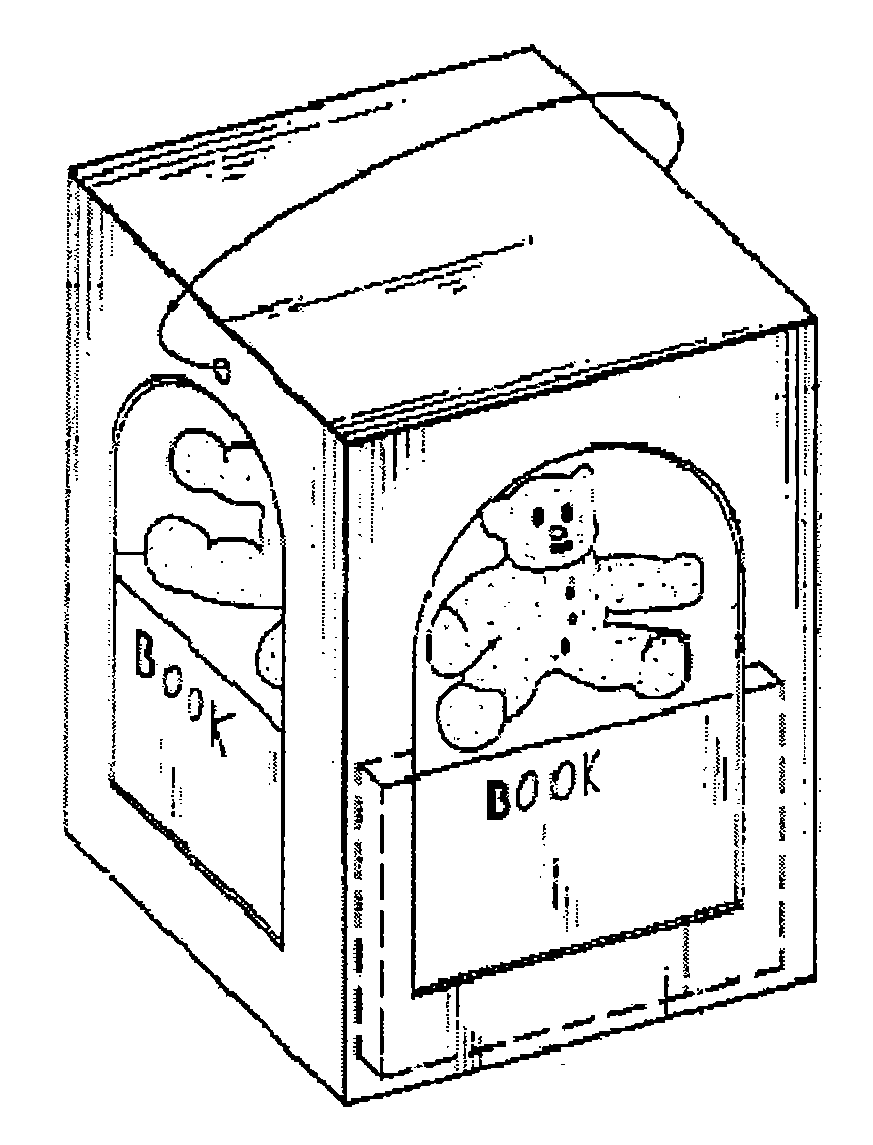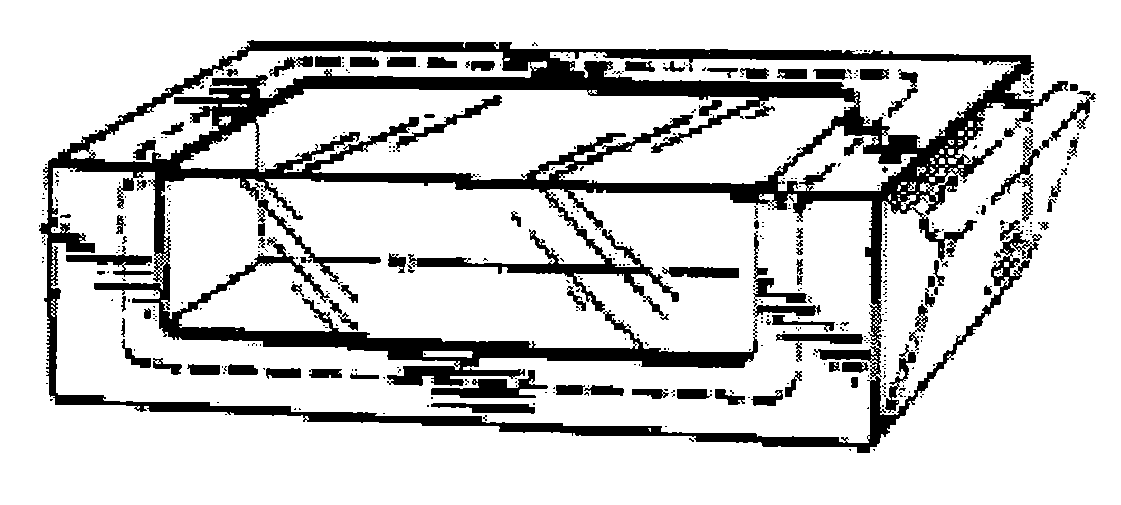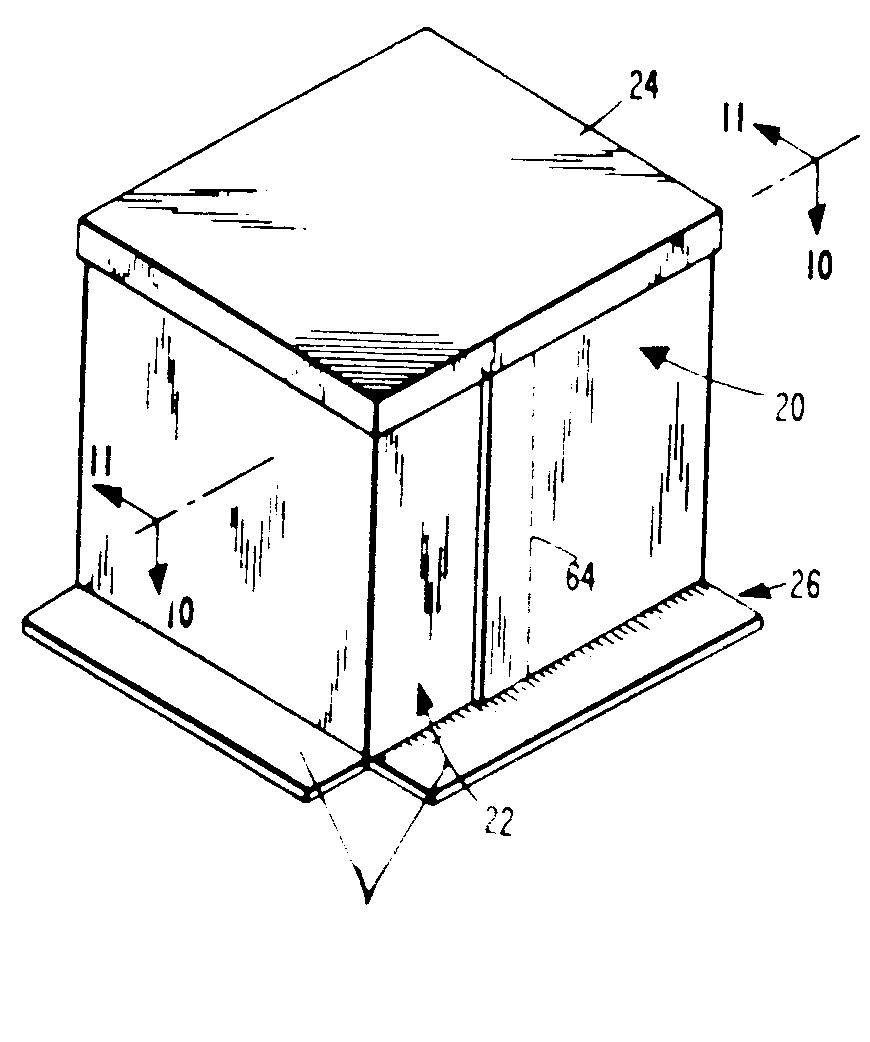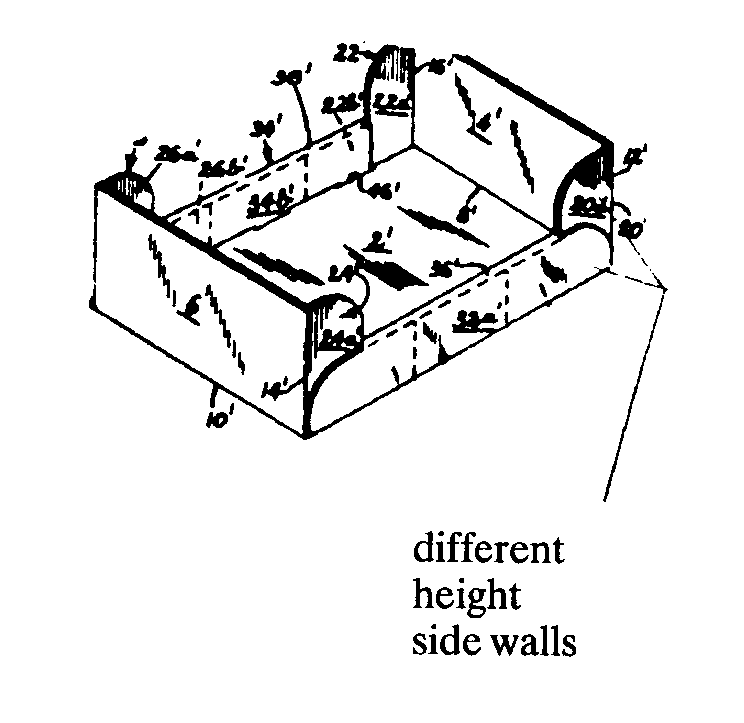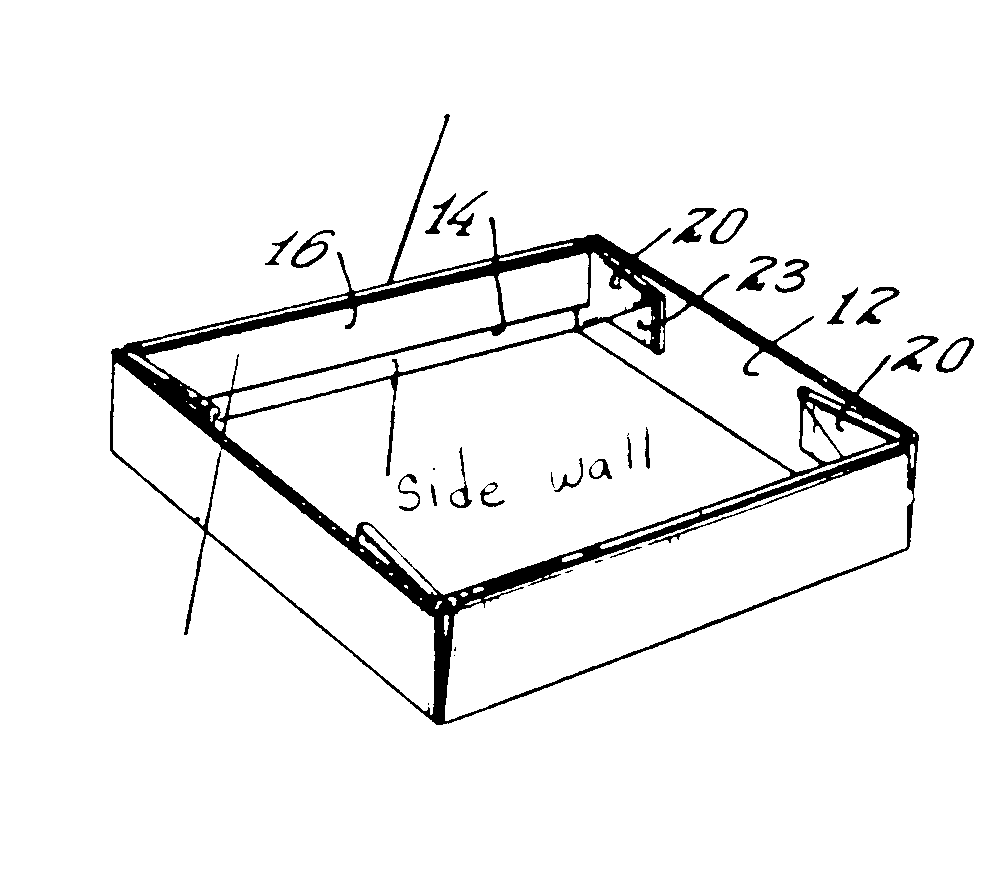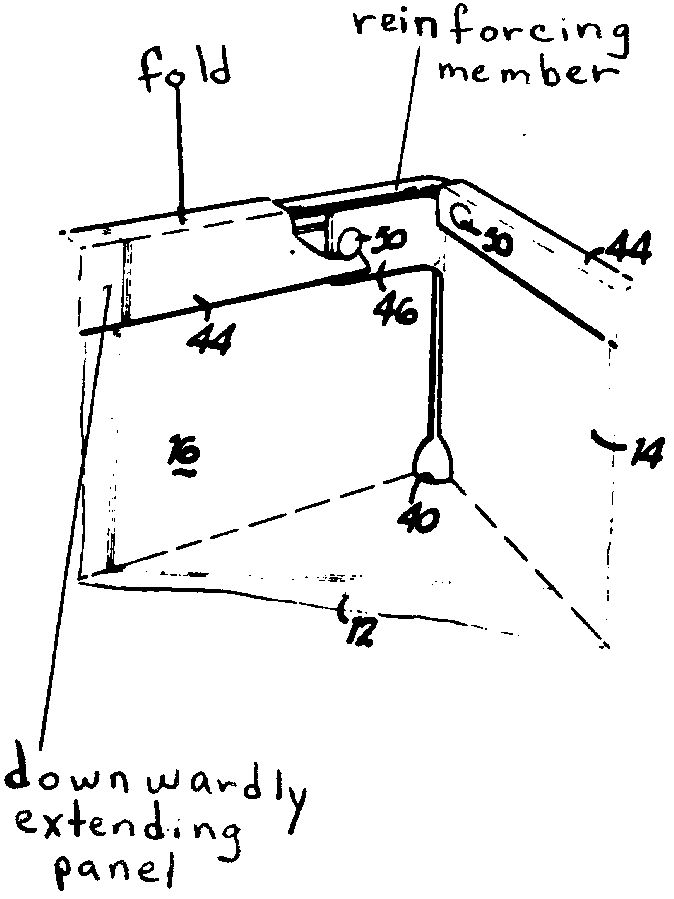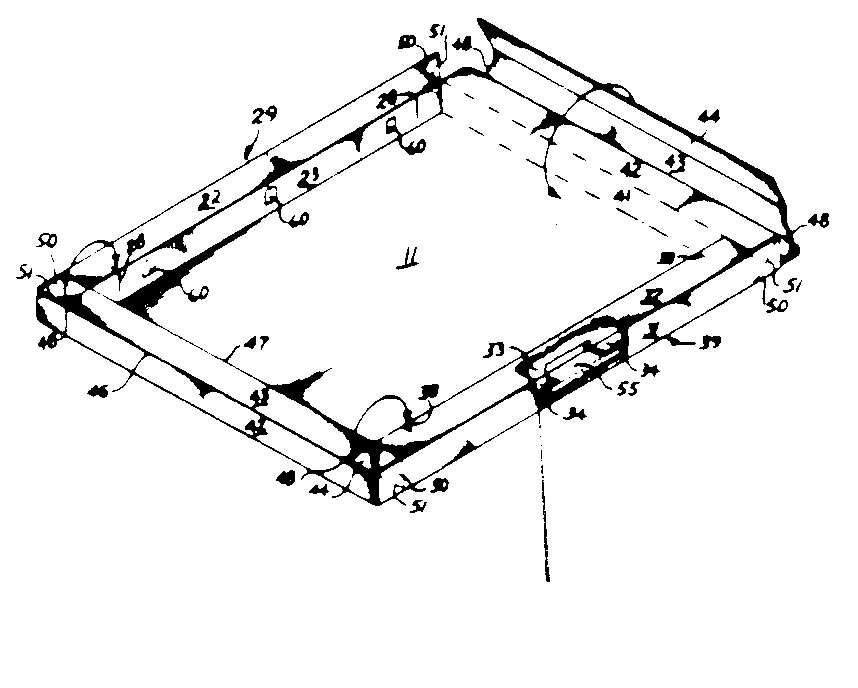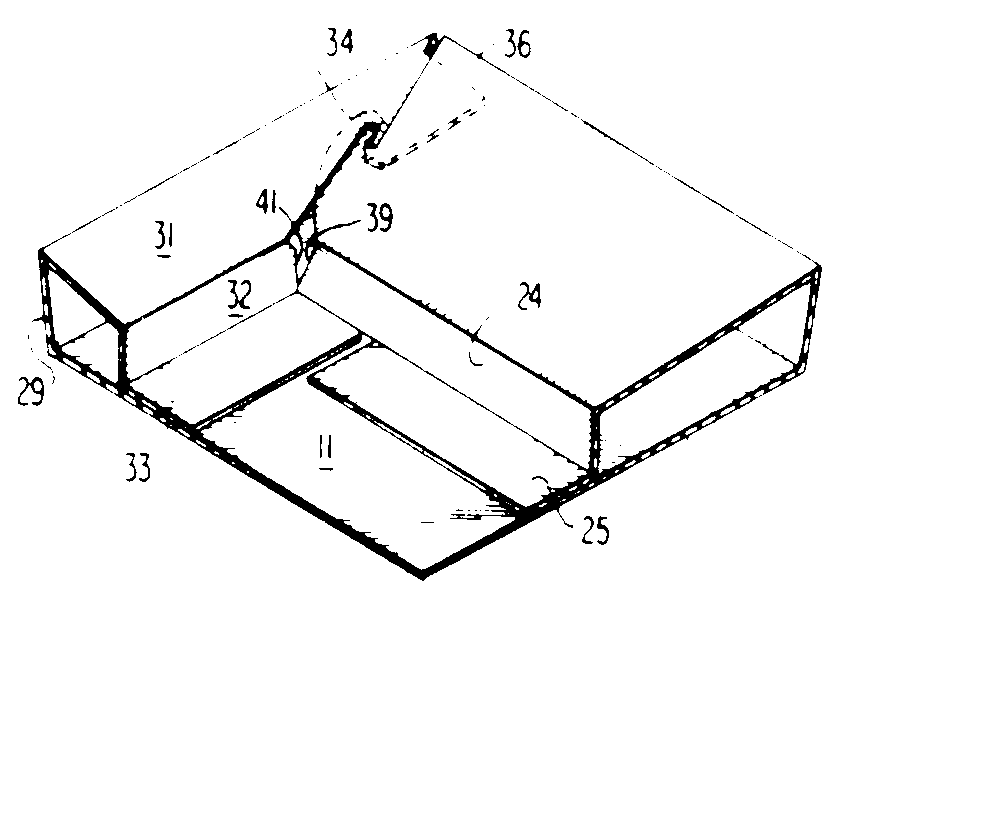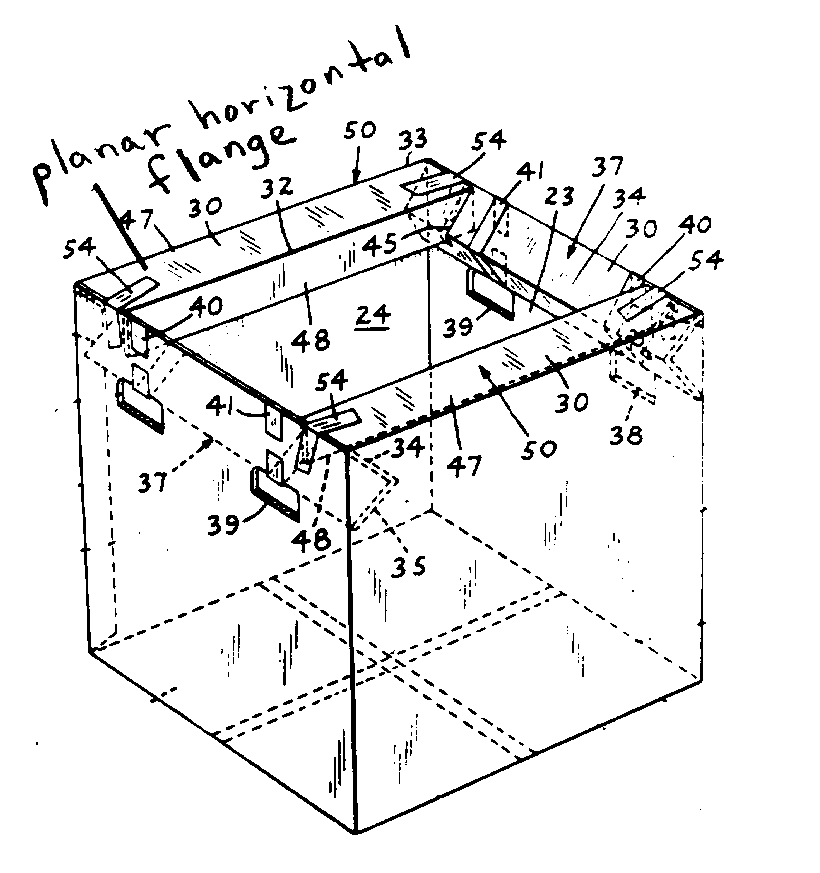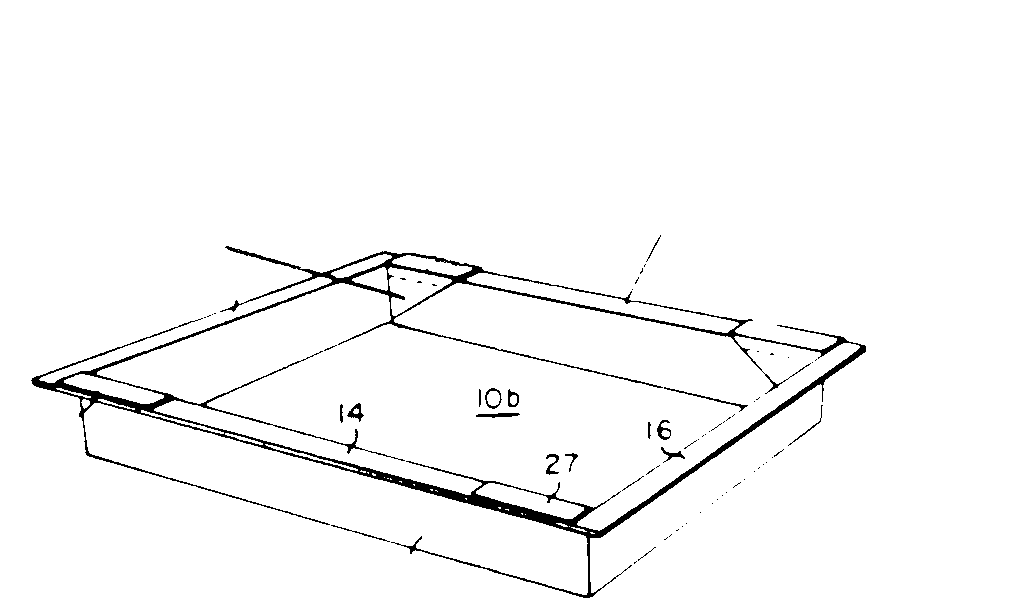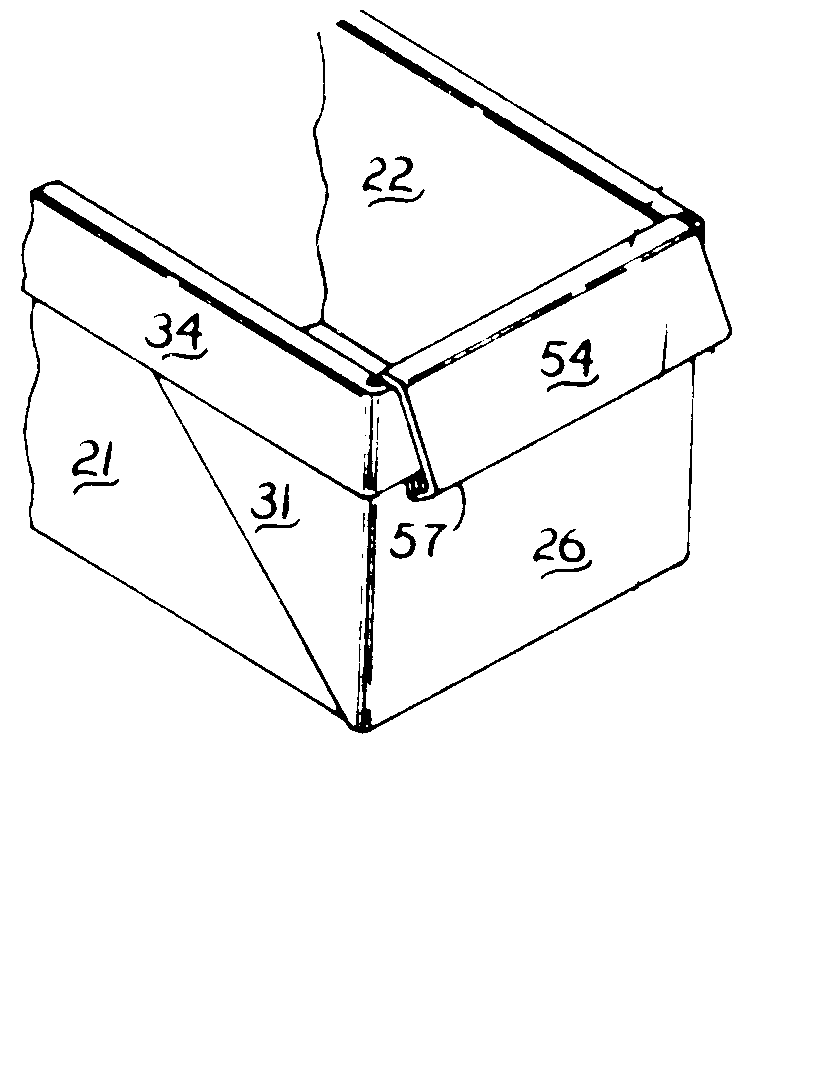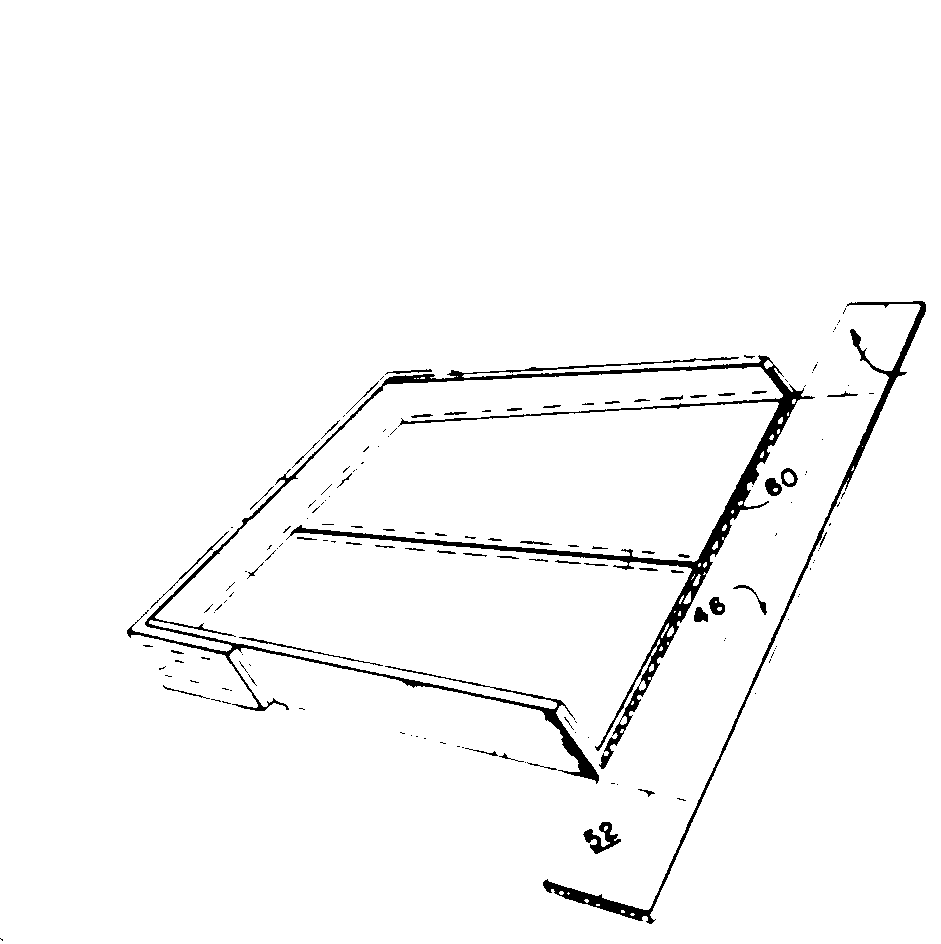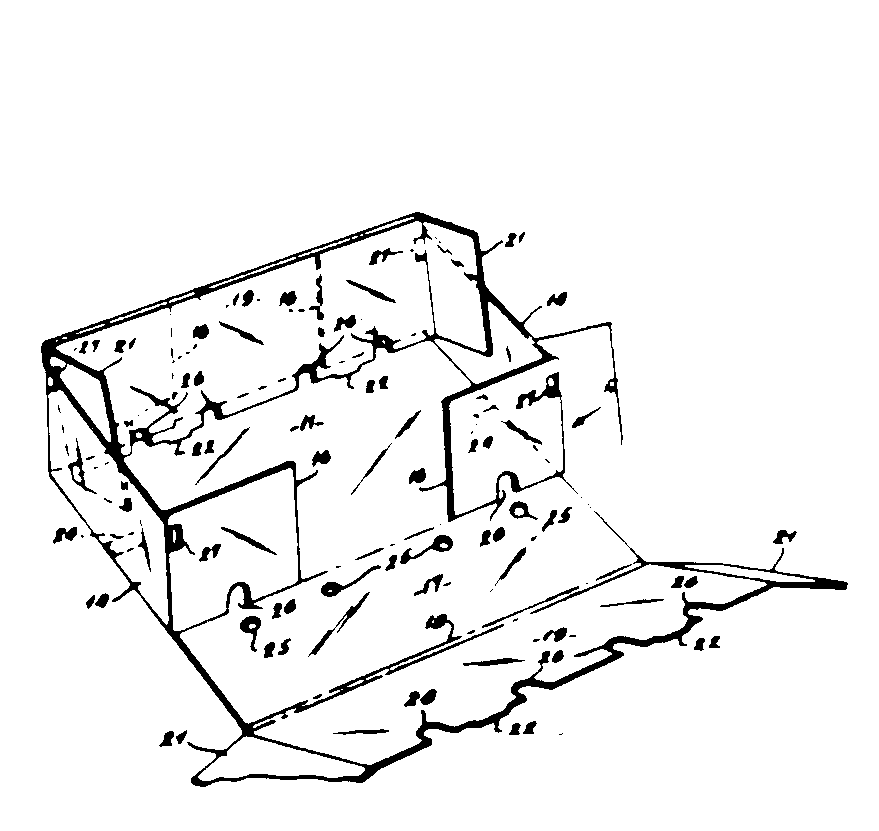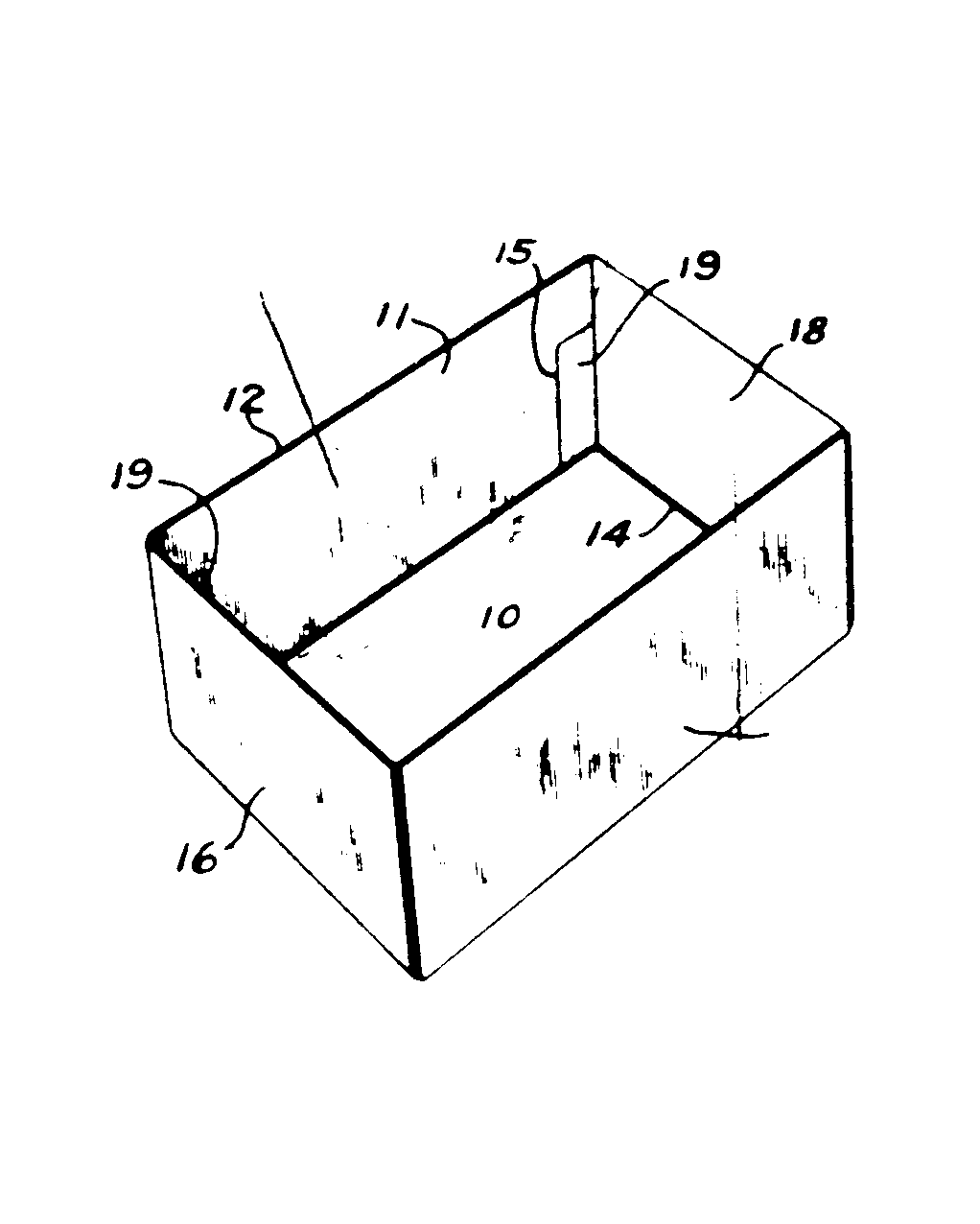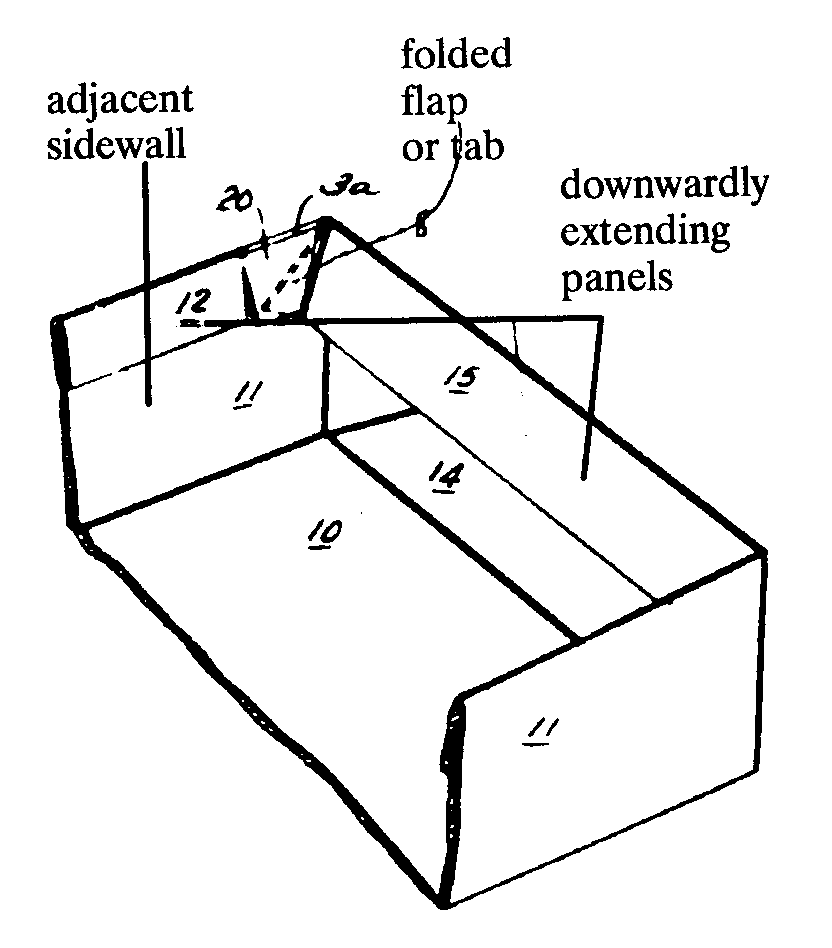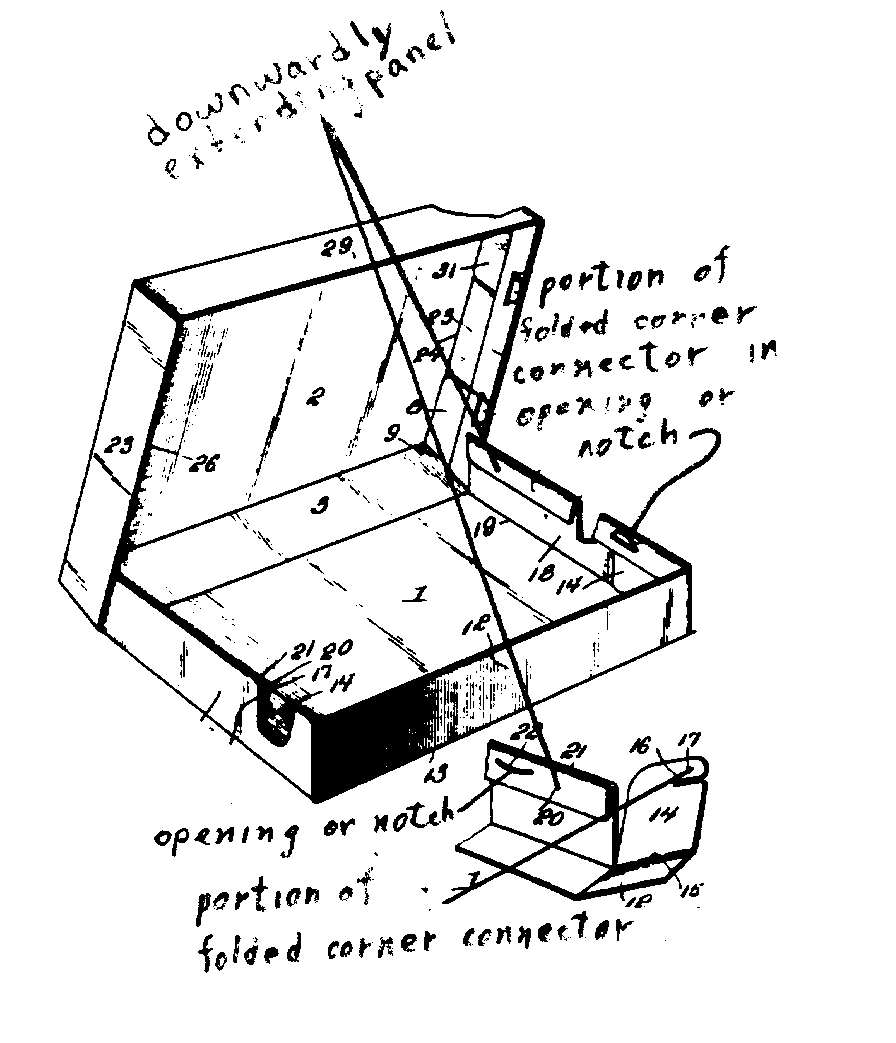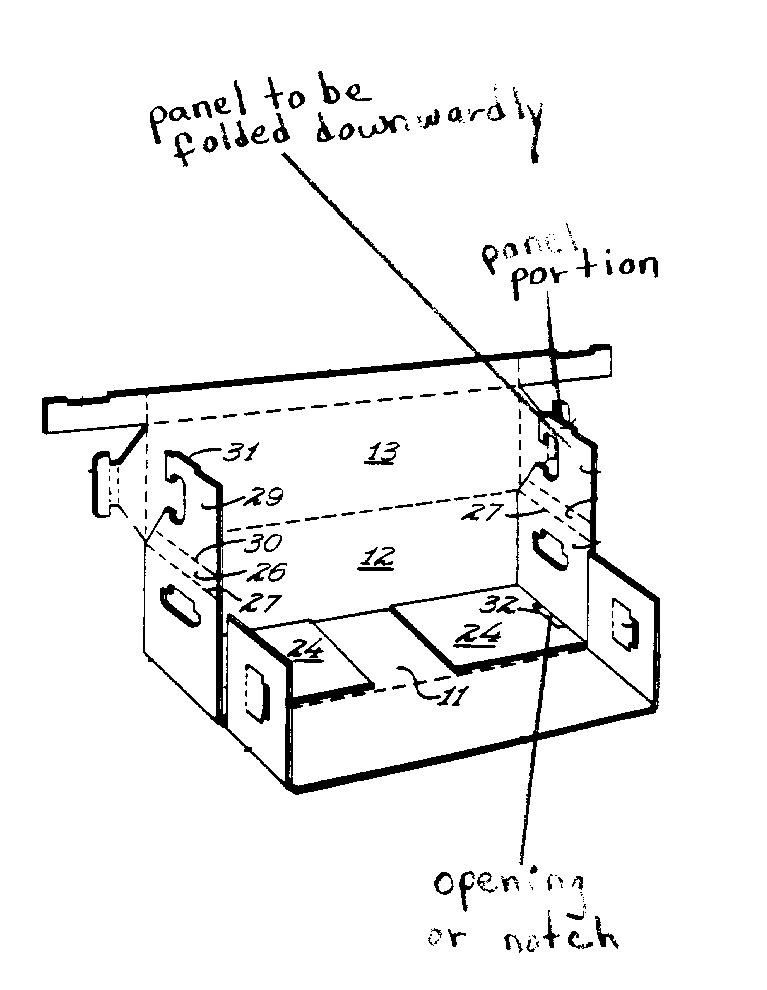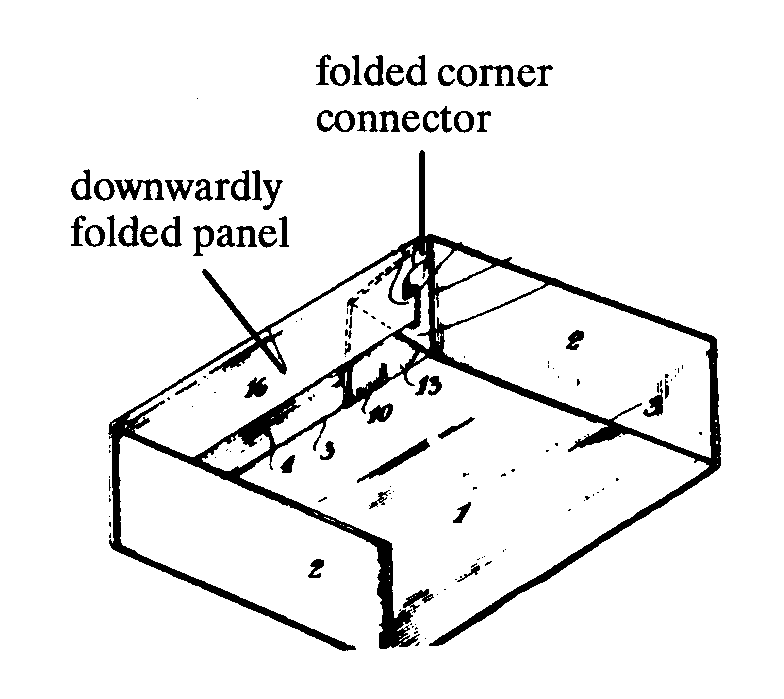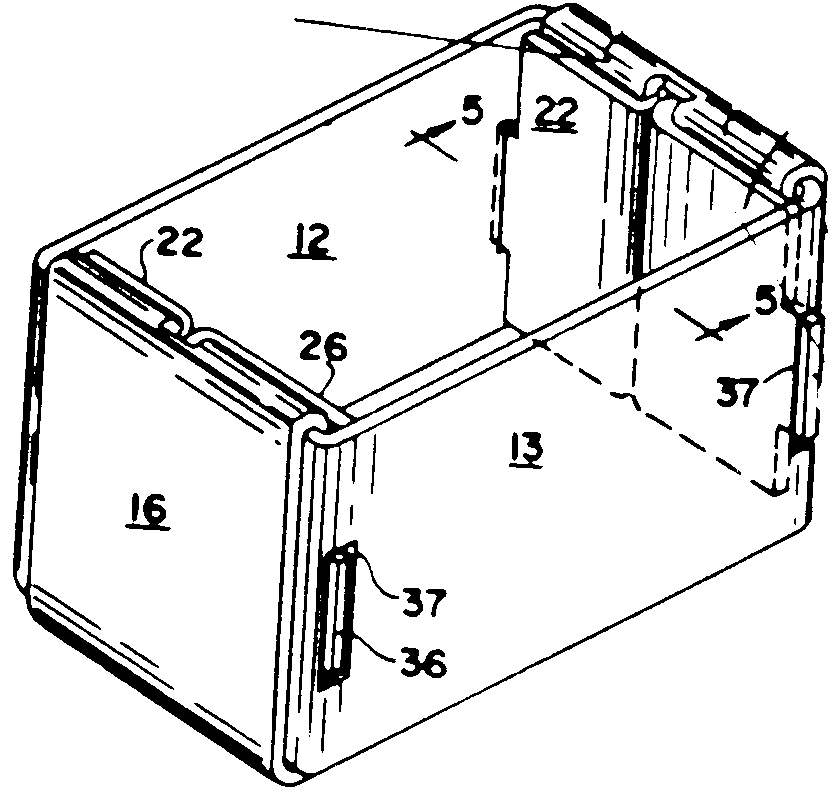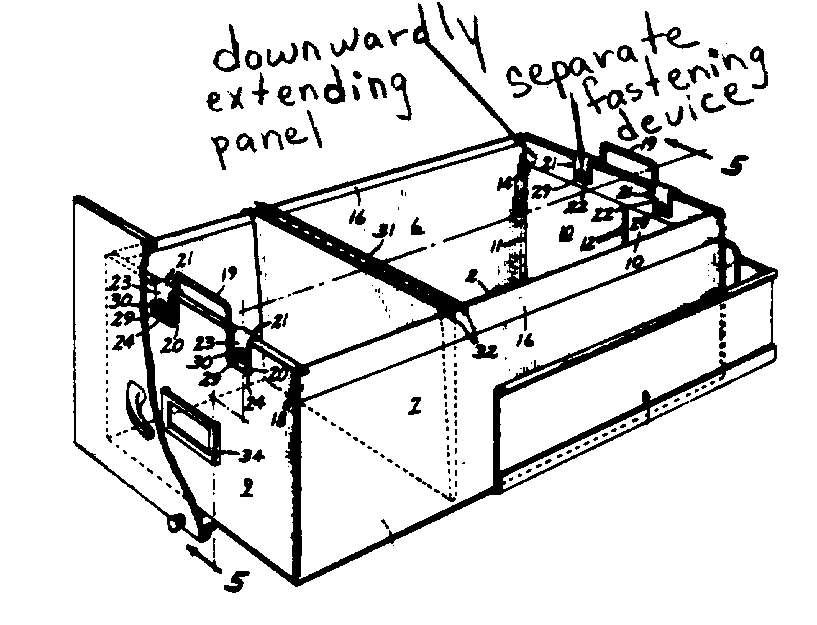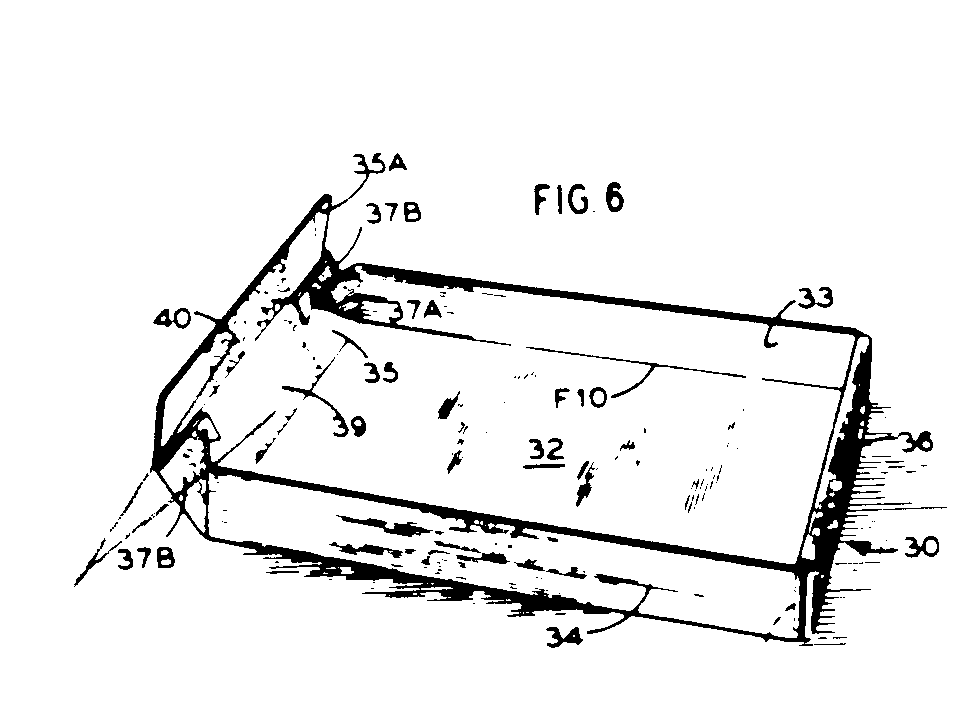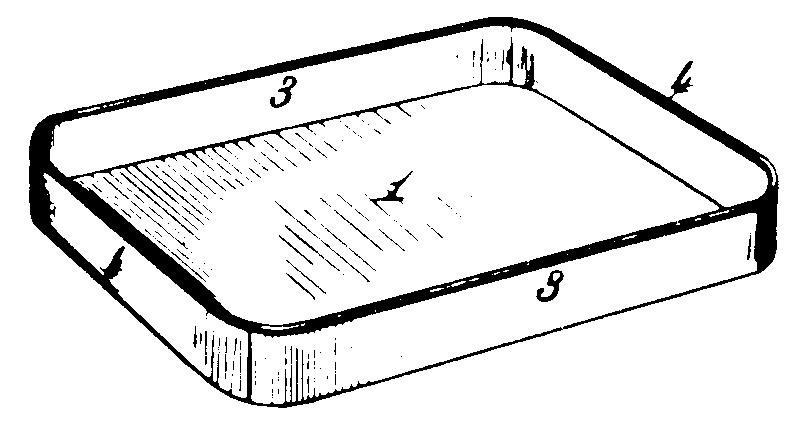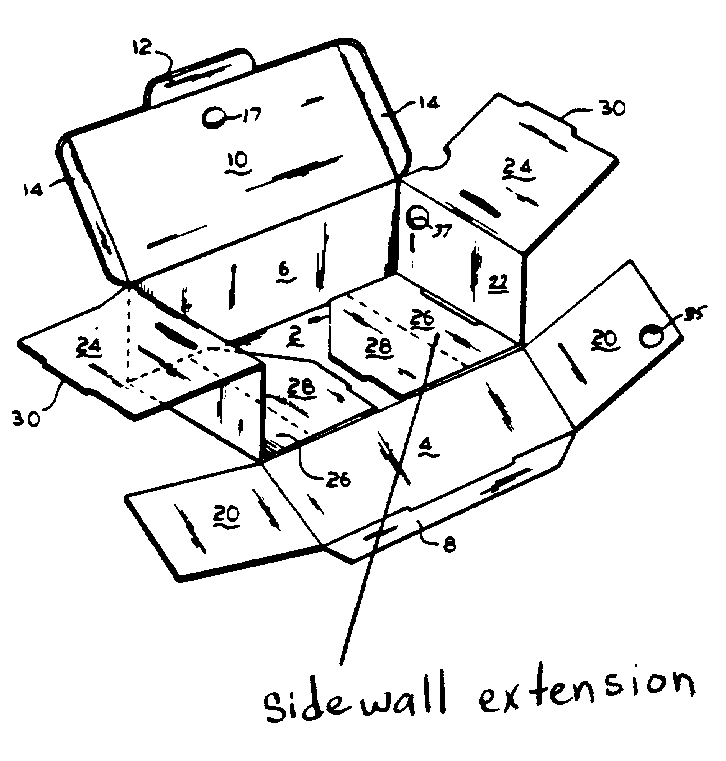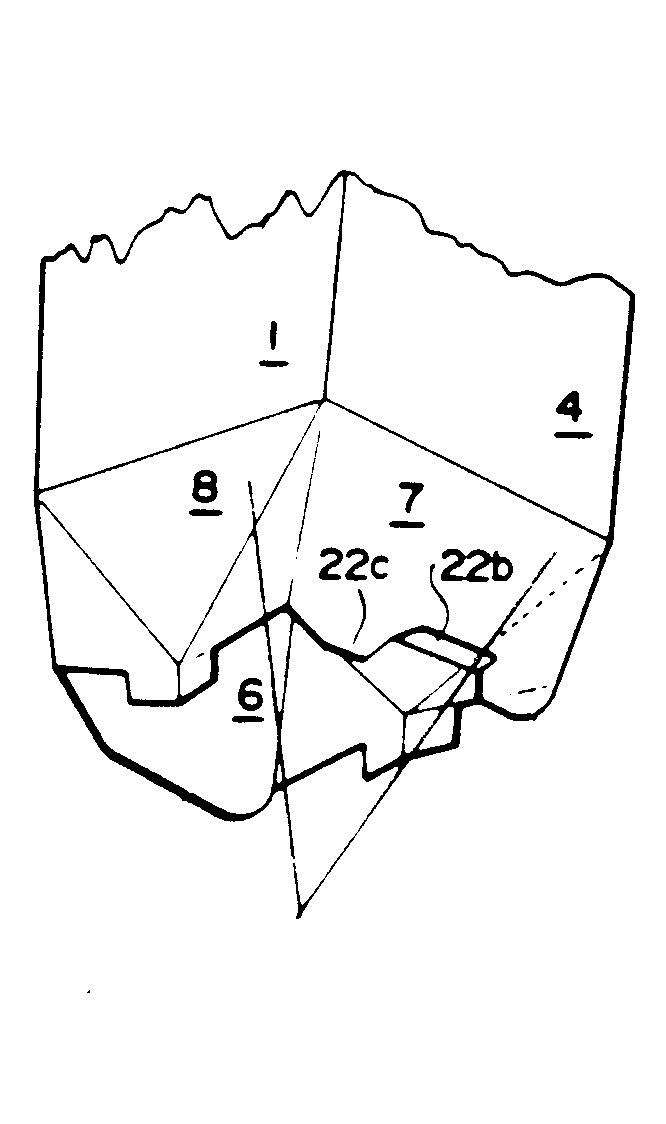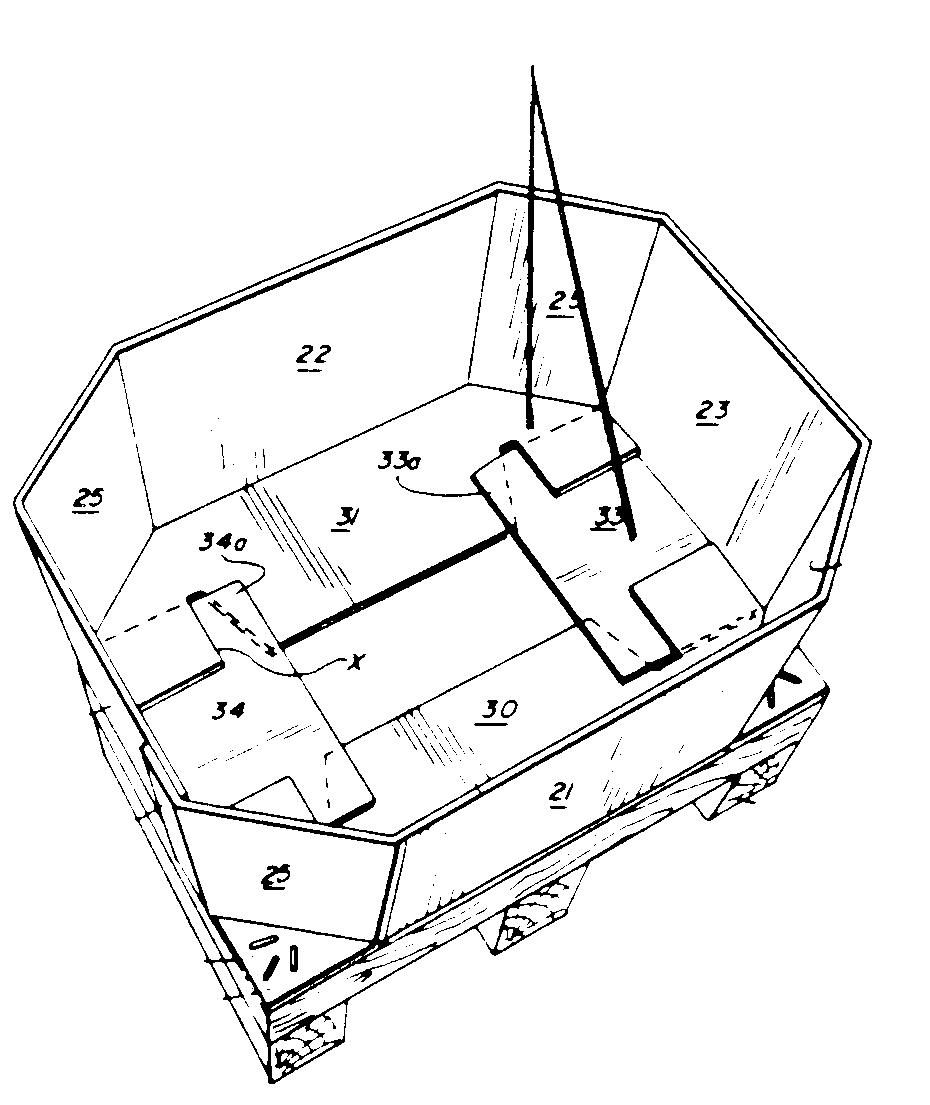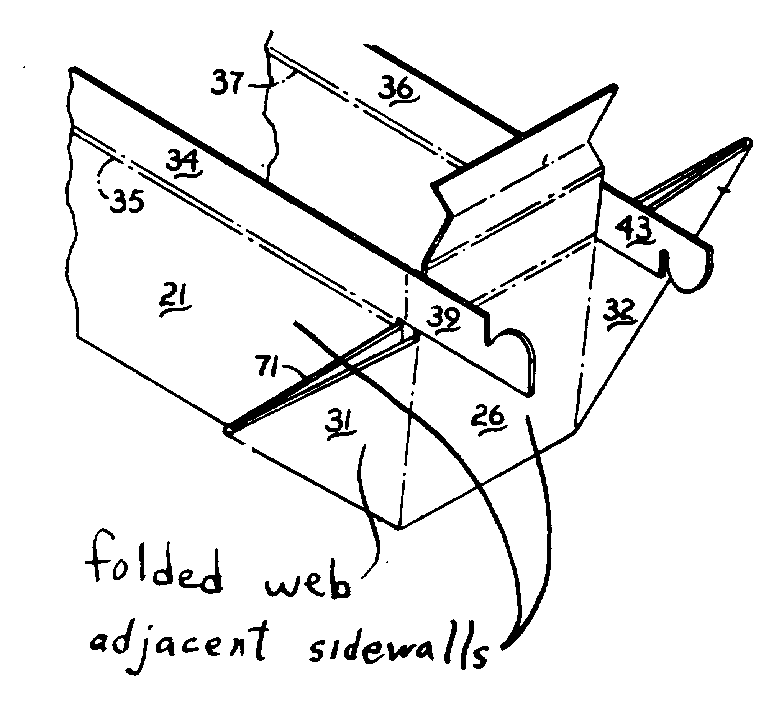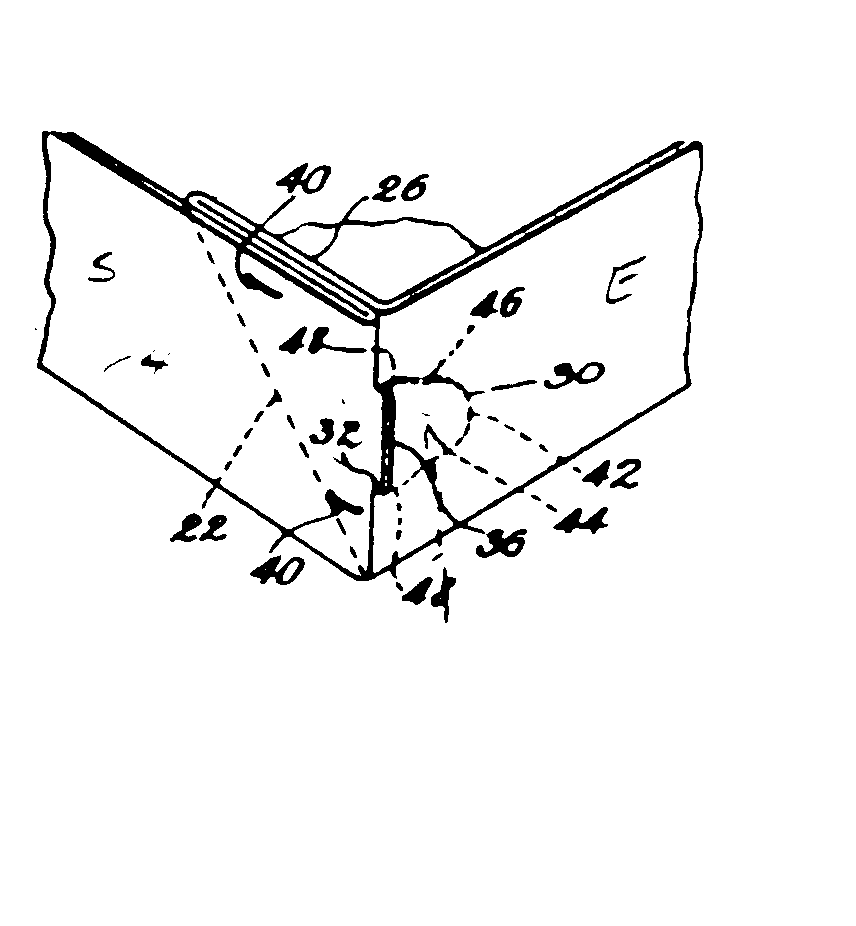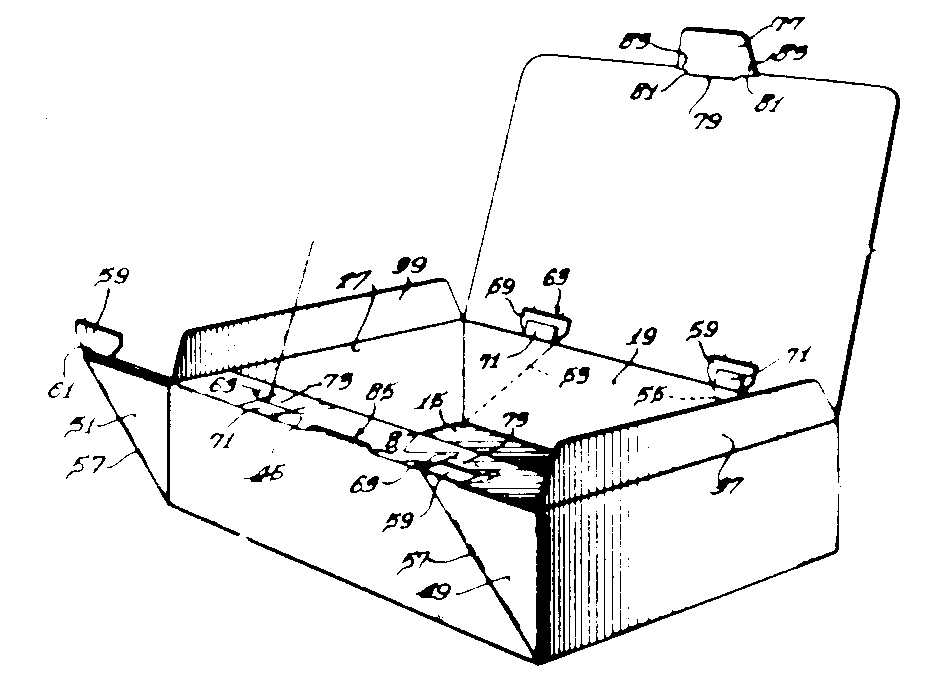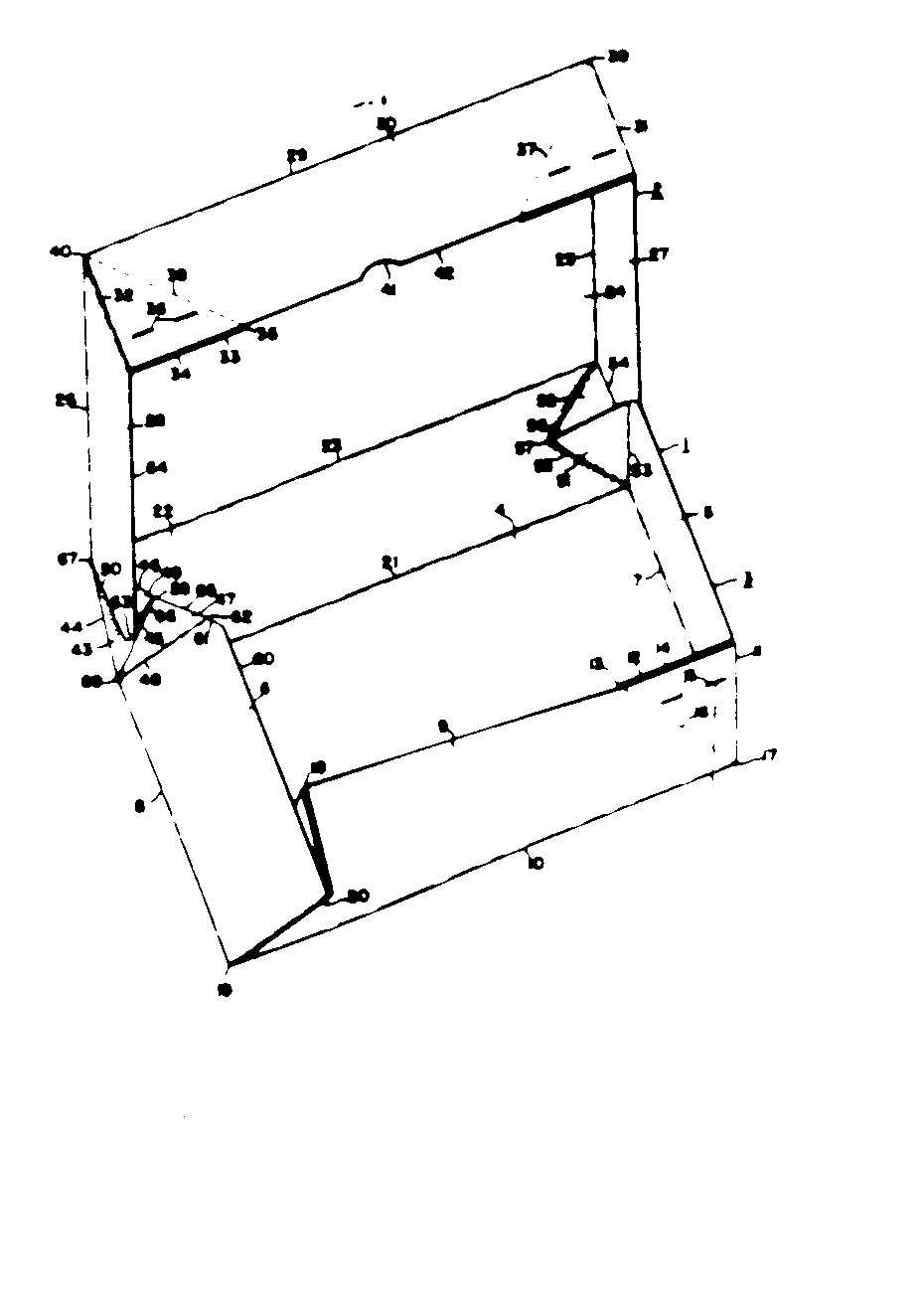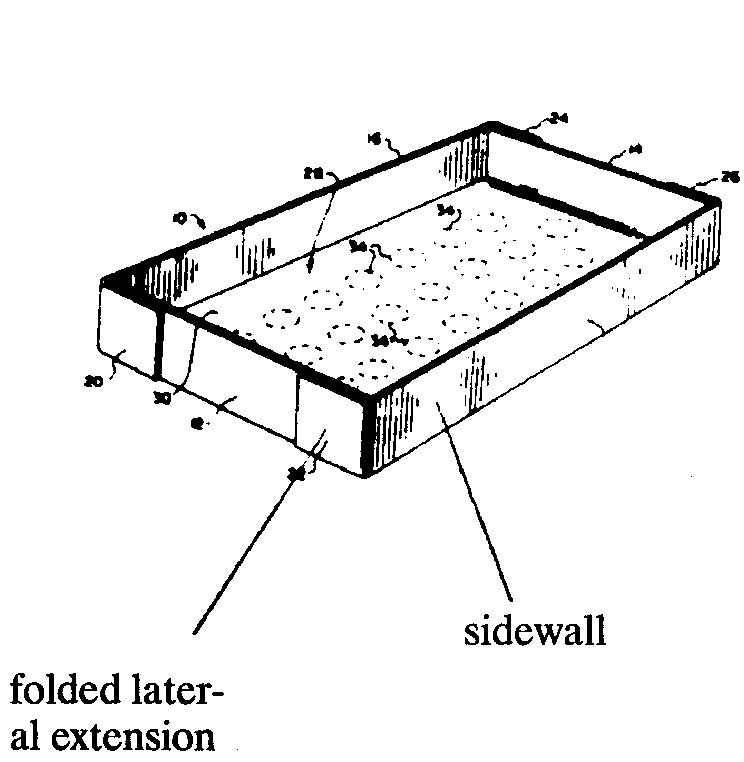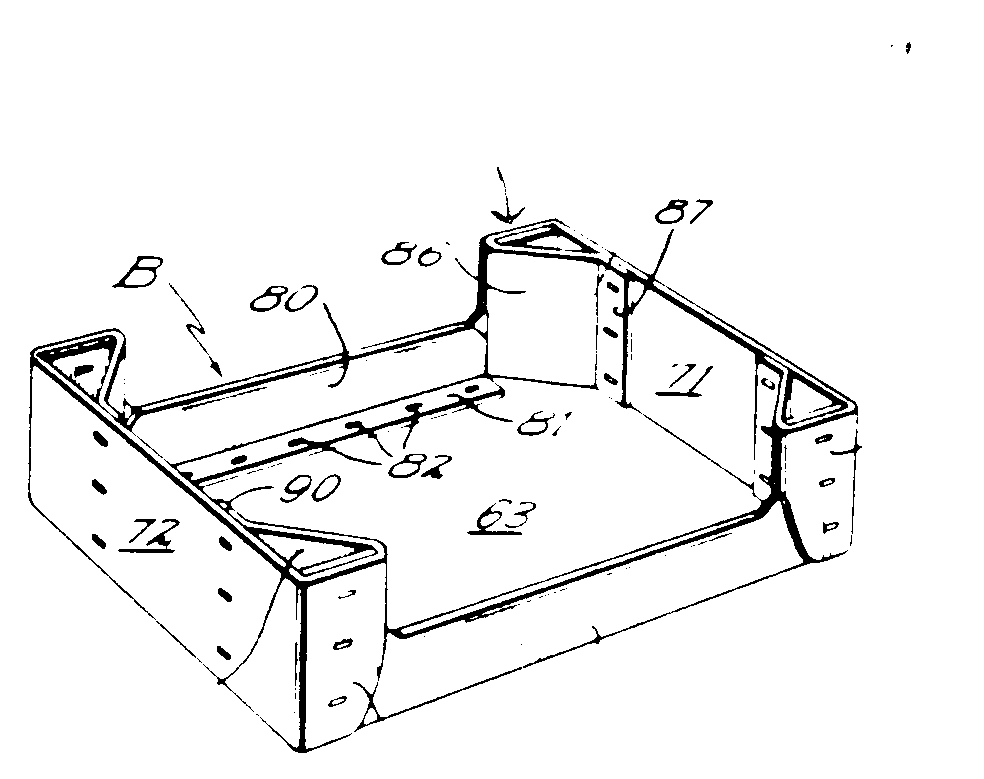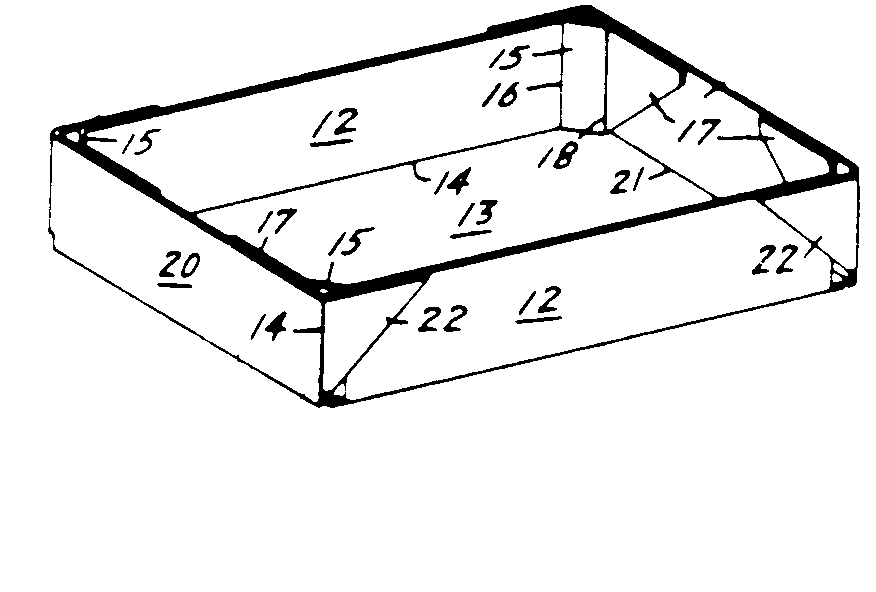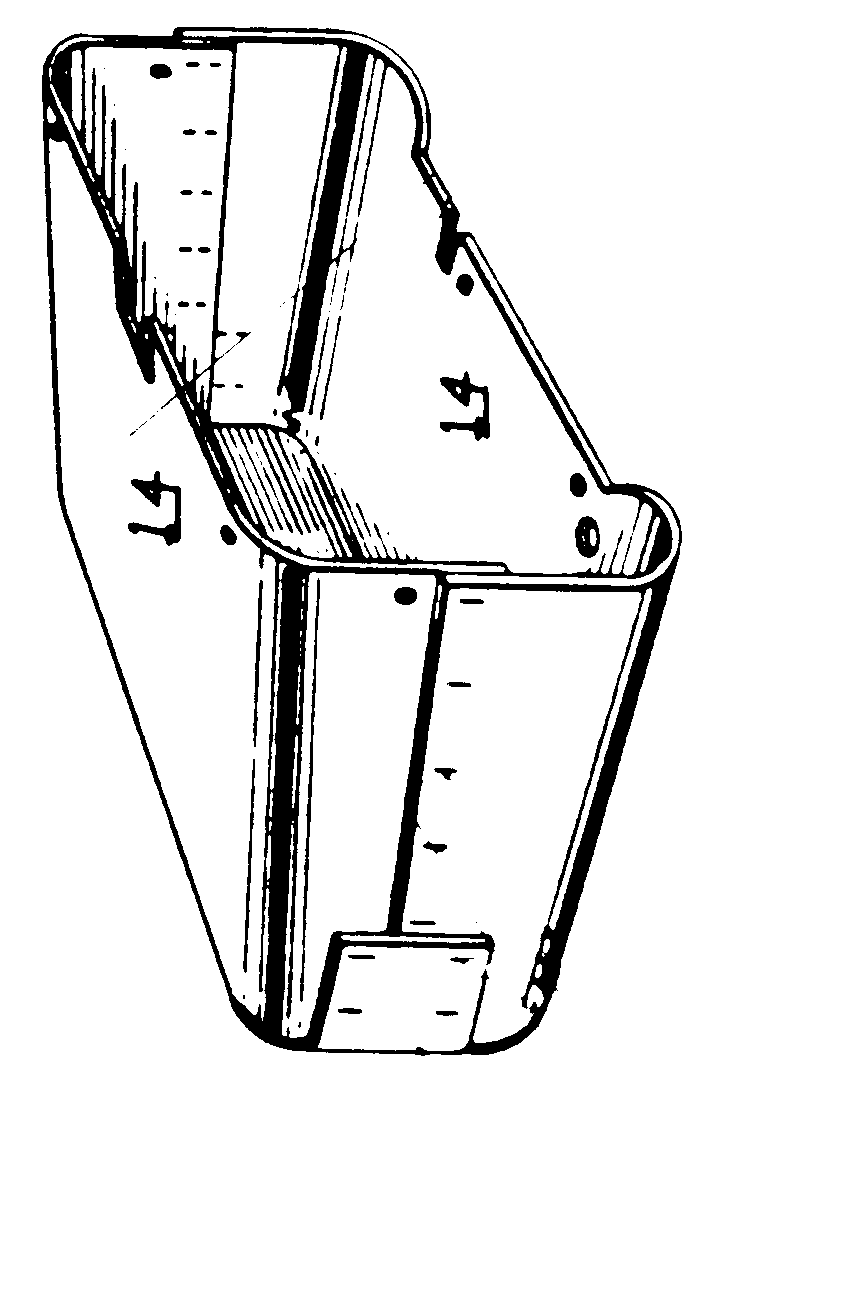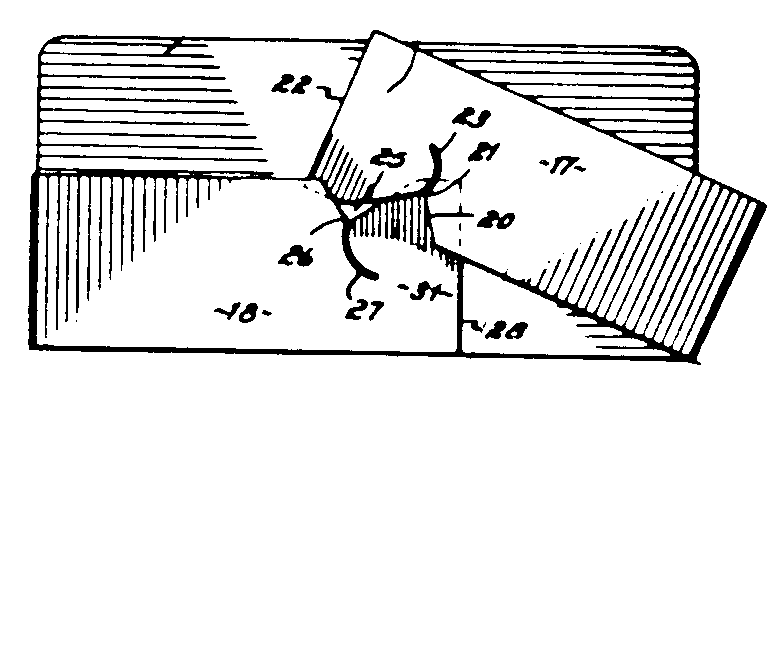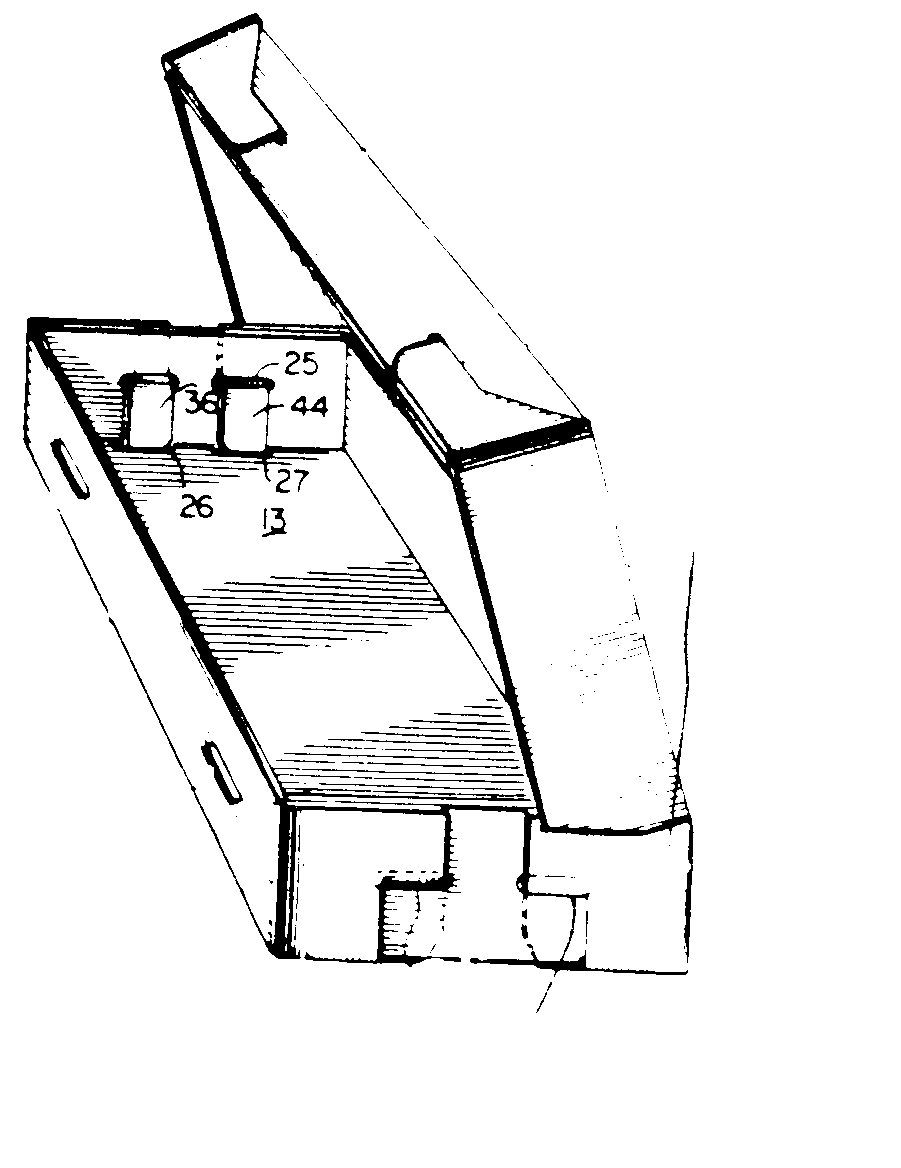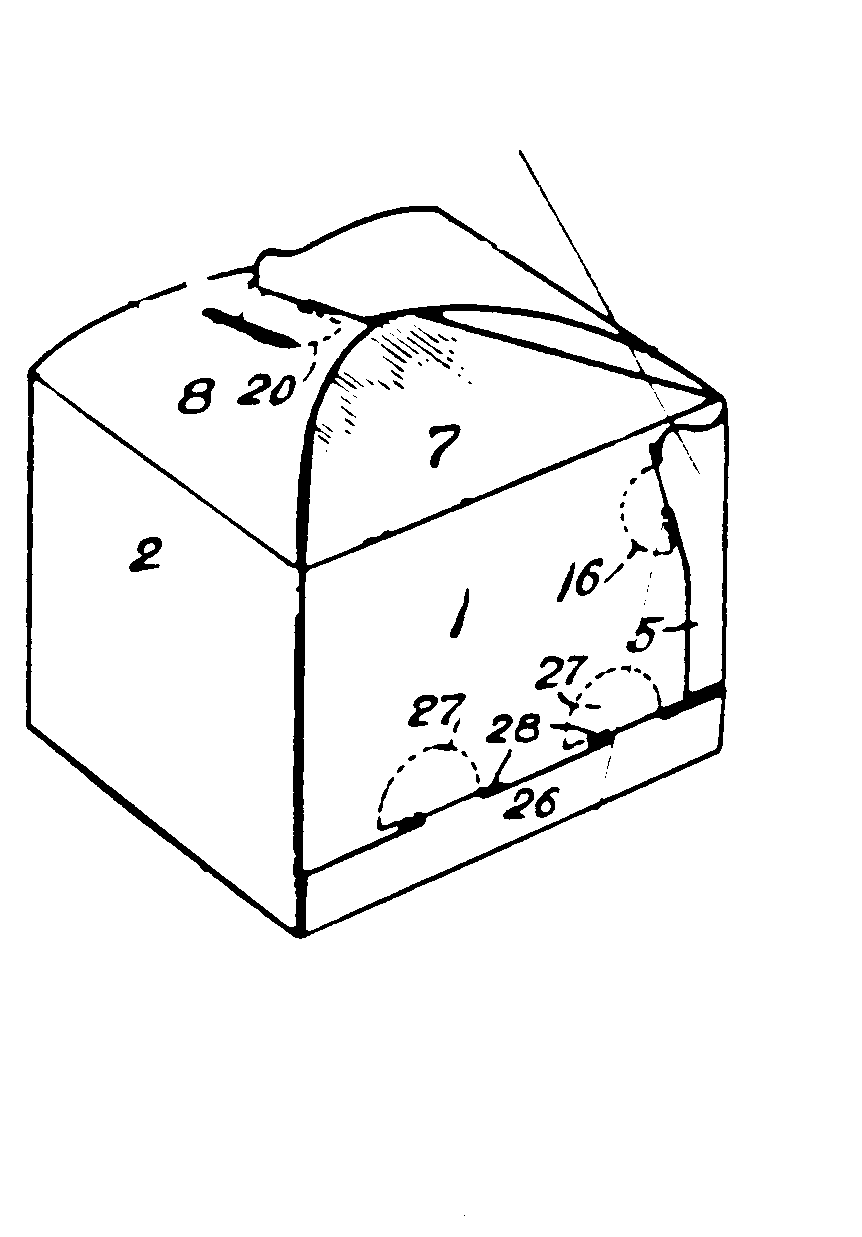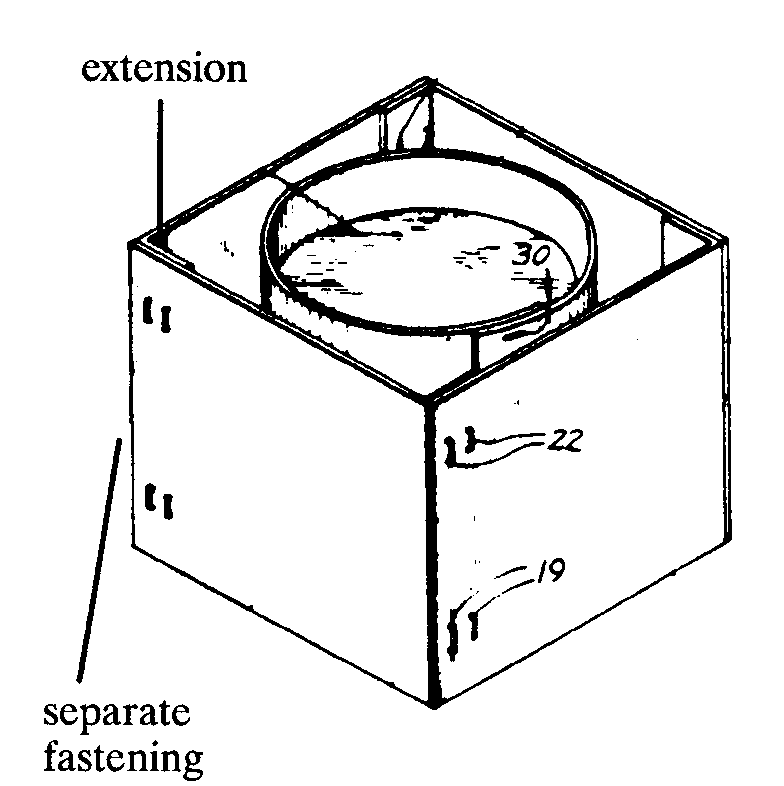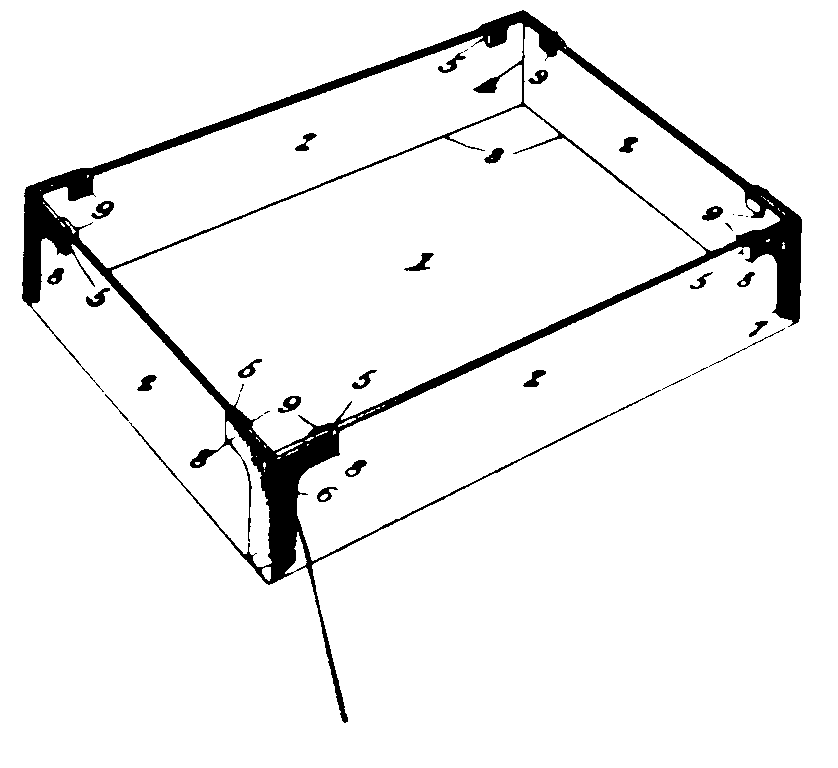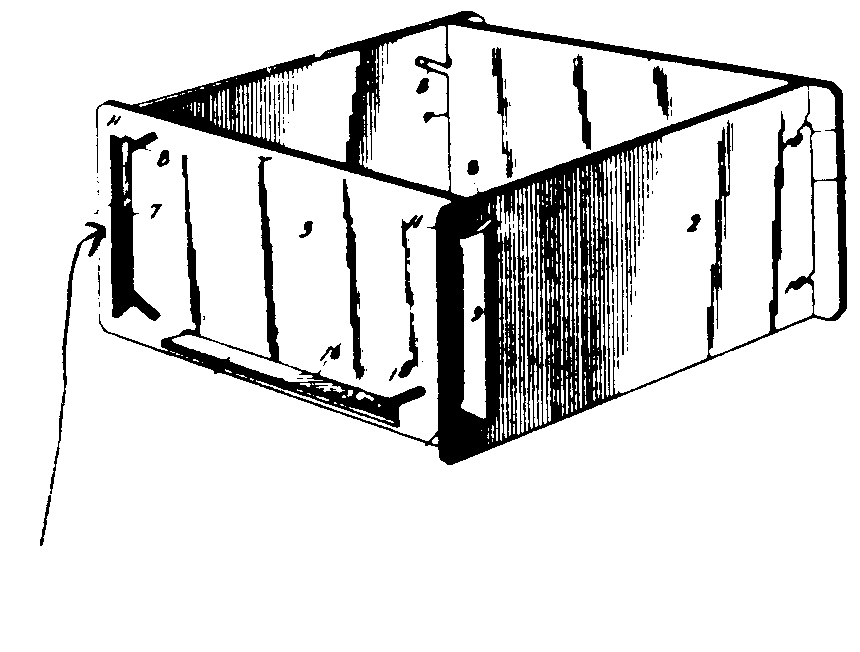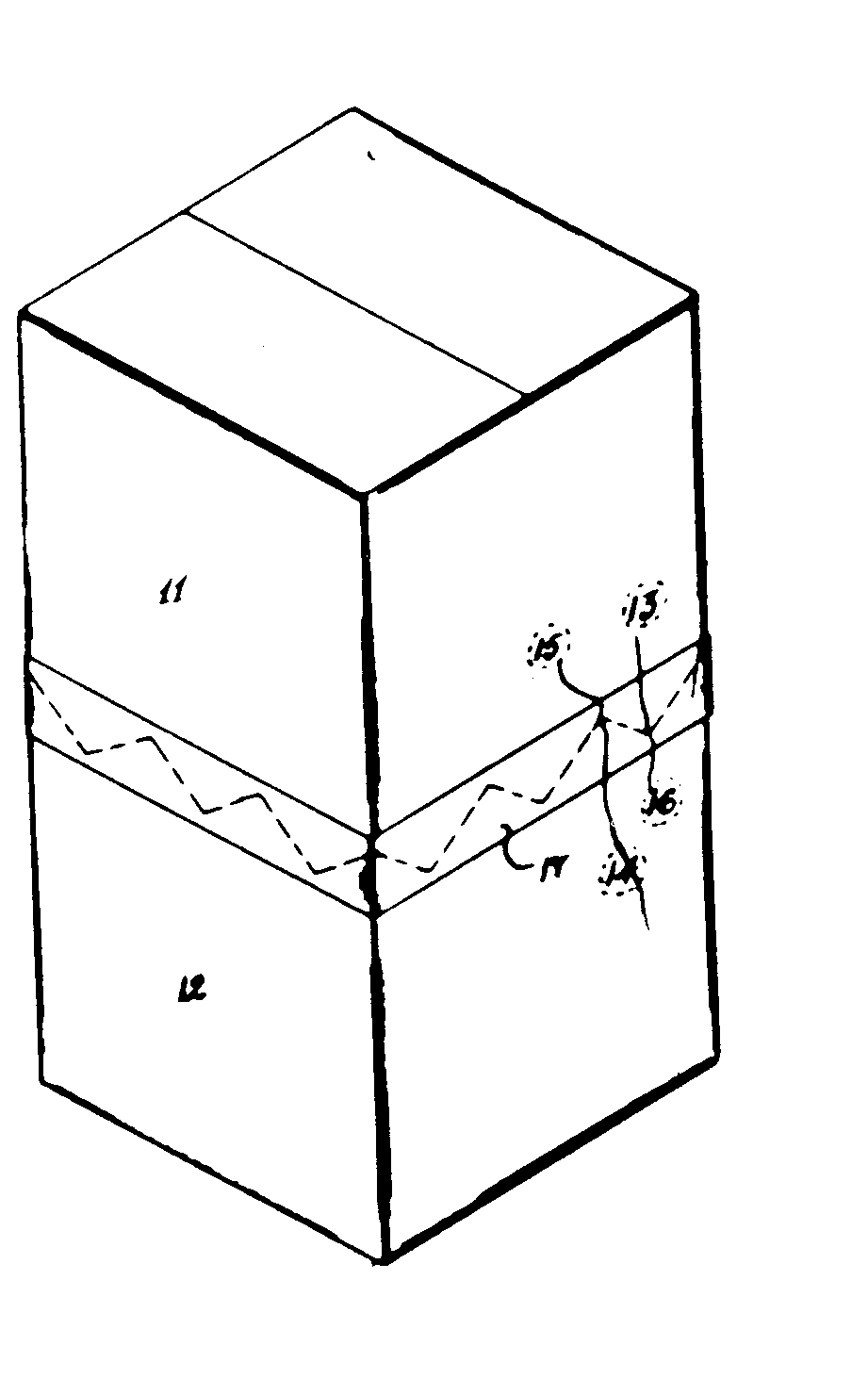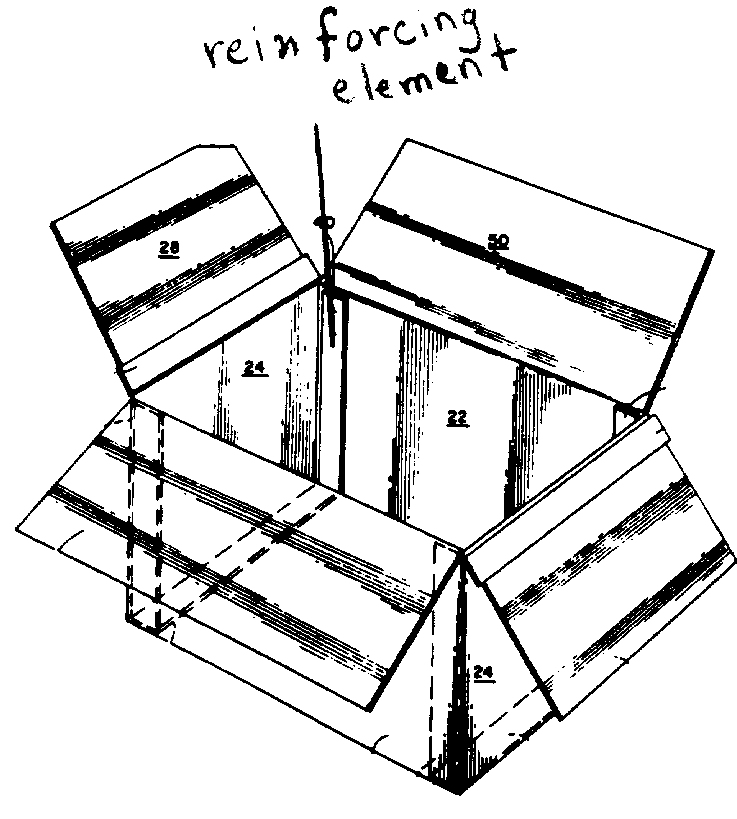![[Search a list of Patent Appplications for class 229]](../as.gif) CLASS 229, CLASS 229, | ENVELOPES, WRAPPERS, AND PAPERBOARD BOXES |
| Click here for a printable version of this file | |
SECTION I - CLASS DEFINITION
This class provides for certain special types of receptacles called Paperboard Boxes, File Folders, and Envelopes, and further provides for certain special types of articles called Postal Cards and Packets, and Wrappers for a mercantile unit.
(A) This is the class for envelope being defined as a substantially flat receptacle having two walls joined at their edges to form a pocket-like enclosure made of paper or paper substitute material, which is disclosed for enclosing a sheet-like article (e.g., document) while it is being transported (e.g., mailed).
| (1) Note. An envelope is usually made of paper or paper-like material such as a flexible sheet of cellulosic or resinous material (e.g., plastic film). |
(B) This is the class for file folders, a file folder being defined as a substantially flat receptacle having two walls connected at a bottom fold line, or to an expandable bottom wall; and which is disclosed for storing a sheet-like article (e.g., document) in a file cabinet.
| (1) Note. A file folder can have closed ends, and may be expandable to a nonflat shape. |
| (2) Note. A file folder is usually placed in a file cabinet under a heading which facilitates retrieval. |
| (3) Note. A file folder may have the secondary function of holding an article while being transported. |
(C) Wrappers- This is the class for wrappers, a wrapper being defined as a single-use covering having a structural element (e.g., fastener, seal, etc.) or a specified shape adapting it for wrapping a mercantile unit, and as being made of paper or paper-substitute material.
| (1) Note. An example of a paper-substitute material is a flexible sheet of cellulosic or resinous material (e.g., plastic film). |
| (2) Note. A mercantile unit includes means in or by which goods (article or material) are displayed, protected, packaged or arranged in a particular manner to facilitate sale, transportation in commerce, use or storage. |
| (3) Note. A "single-use" covering is one which is discarded after use. (Lines With Other Classes and Within This Class for flexible protective article covers that are reusable). |
(D) This is the class for paperboard boxes, a paperboard box being defined as a container made from material similar in composition to paper but thicker and stiffer in character, the container having a bottom portion for supporting content, peripheral wall structure for at least partially surrounding the content, and an access opening intended for the insertion or removal of content.
| (1) Note. A box made of cellulosic or resinous material (e.g., plastic) which is similar in character to paperboard, and which is manipulated in the same manner as paperboard (e.g., folded from a blank) is included here. See Lines With Other Classes and Within This Class for containers not provided for elsewhere. |
(E) This class also provides for postal cards, letter sheets, and packets, a post card being defined as a card peculiarly adapted carry information and be mailed by itself; a letter sheet being defined as a sheet peculiarly adapted to carry information, and is disclosed as being defined as a mailing sheet having an enclosure, the packet being peculiarly adapted to carry information and be mailed as a unit.
SECTION II - LINES WITH OTHER CLASSES AND WITHIN THIS CLASS
RELATION TO SUPPORT CLASSES
In general, as between the receptacle classes and the support classes, the receptacle classes provide for the combination of a receptacle plus support; except, the support classes will accept a claim to a support combined with a receptacle, wherein the claim (a) nominally recites the receptacle, or (b) recites only so much of the receptacle structure as is need to cooperate with the support, or (c) recites only those receptacle features which have been modified specifically to cooperate with the support.
Class 150, Purses, Wallets, and Protective Covers, provides for flexible protective article covers which are reusable.
Class 220, Receptacles, takes containers not provided for elsewhere.
SECTION III - SUBCLASS REFERENCES TO THE CURRENT CLASS
SEE OR SEARCH THIS CLASS, SUBCLASS:
| 923, | for the combination of a wrapper and paperboard box. |
SECTION IV - REFERENCES TO OTHER CLASSES
SEE OR SEARCH CLASS:
| 15, | Brushing, Scrubbing, and General Cleaning, subclass 257.06 for a paperboard paint tray. |
| 16, | Miscellaneous Hardware (e.g., Bushing, Carpet Fastener, Caster, Door Closer, Panel Hanger, Attachable or Adjunct Handle, Hinge, Window Sash Balance, etc.), subclasses 110+ for a handle, per se. |
| 24, | Buckles, Buttons, Clasps, etc., appropriate subclass for a fastener, per se. |
| 40, | Card, Picture, or Sign Exhibiting, subclasses 299.01+ for a check, label or tag, per se, subclass 312 for a box having a check, label or tag with indicia; and subclass 359 for a file folder with indicia. |
| 43, | Fishing, Trapping and Vermin Destroying, appropriate subclass for a box having means specialized to a use provided for in that class. |
| 47, | Plant Husbandry, subclasses 66+ for a box having means specialized to a use provided for in that class. |
| 53, | Package Making, for a method or apparatus for folding a box, particularly subclasses 381.1+ , 456, 458, 491, 565, and 566. |
| 62, | Refrigeration, appropriate subclass for a box including means to produce a refrigeration effect. |
| 86, | Ammunition and Explosive-Charge Making, subclass 11 for a method or apparatus for making paper shells. |
| 102, | Ammunition and Explosives, subclass 456 and 473+ for a paper cartridge or paper shell, respectively. |
| 108, | Horizontally Supported Planar Surfaces, appropriate subclass for a device of that class type made of paperboard. |
| 119, | Animal Husbandry, subclasses 428+ , 489+, 491+, 498+, 513+ for a box including means specialized to an animal (e.g., food support). Vent and closure structures are not considered to be means specialized to an animal. |
| 138, | Pipes and Tubular Conduits, subclasses 118 through 178for a paper tube of indefinite length to be used as stocking for making a paperboard box, and having no added structure limiting it to use as a receptacle. |
| 150, | Purses, Wallets, and Protective Covers, subclasses 154+ for a reusable flaccid/flexible protective cover which is configured to cover a specific article, and see I C (3) Note above for a description of the single use wrapper provided for in this class (229). |
| 156, | Adhesive Bonding and Miscellaneous Chemical Manufacture, for adhesive bonding in general, and particularly subclass 69 for the application of end closures to containers. |
| 190, | Trunks and Hand-Carried Luggage, appropriate subclass for a traveling container of that class type made of paperboard. |
| 206, | Special Receptacle or Package, for a box having a specialized use provided for in that class, or a box having content therein; and in particular, search the following subclasses: subclasses 44+ , for a box convertible to or from display. subclass 123+, for a matchbox utilizing gravity feed to an egress opening. subclass 139+, for a paperboard bottle carrier. subclass 256+, for a box having a compartment forming partition. subclass 265+, for a cigarette box with a closure. subclass 273+, for a cigarette box formed from a folded blank. subclass 278+, for a box for apparel. 336, for means to position content within a box. 389+, for a box for a roll or reel. subclass 418+, for a box for a light bulb. subclass 424, for a box for a book. subclass 427+, for a paperboard receptacle for plural beverage containers. 436, for a box for plural tetrahedron shaped receptacles. subclass 491+, for a folded blank for a box provided for in Class 206; subclass 521+, for a box having means to pad, brace or hold the content to protect it from a shock. subclass 551, for a box for a pastry wedge, per se; subclass 557+, for a tray type structure, comprising an open shallow container. |
| 211, | Supports: Racks, subclasses 132.1 and 195 for a foldable and/or collapsible receptacle type rack, and see Lines With Other Classes, above. |
| 217, | Wooden Receptacles, subclasses 18+ for a box provided for in that class having compartment features, particularly subclasses 26+ for an egg box divider, subclass 29 for separable partitions, and subclasses 30+ for crossed partitions. |
| 219, | Electric Heating, subclasses 725+ for a box having means specialized to microwave cooking. |
| 220, | Receptacles, subclasses 62+ for a foldable blank not made of paperboard. |
| 221, | Article Dispensing, for a paperboard box combined with a discharge assistant or with means to retard removal of successive articles from the box. For example, such means are found in subclasses 33+ and 303+ wherein the egress opening of a box is of lesser extent than the articles to be removed from the box. Thus, either the articles or the box opening must be deformed to permit removal. A box having an egress opening which is as big as an article to be removed remains in this Class 229, Envelopes, Wrappers, And Paperboard Boxes, even if the article must be lifted over a lip to be withdrawn. See the Class Definition of Class 221, Article Dispensing, section 1,C, for examples of dispensing features of that class type. This Class 229, Envelopes, Wrappers, and Paperboard Boxes, provides for boxes having an internal inclined ramp which merely utilizes gravity to urge articles toward the egress opening. |
| 222, | Dispensing, for a paperboard box combined with a dispensing feature, such as a discharge assistant, cutter or punch feature, quantity control means, collapsibility, or internal material guide means beyond a mere inclined ramp utilizing gravity. See the Class Definition of Class 222, Dispensing, for a recitation of dispensing features. Class 222, Dispensing subclasses 526+ and 566+ provide for a container having an external material flow guide (e.g., pour spout) which container is not made of paperboard. This Class 229, Envelopes, Wrappers, and Paperboard Boxes, provides for a paperboard box combined with an external material flow guide means (e.g., nozzle, spout, pouring lip, etc.) except when such guide means has a cutting or punch feature. Further, this class provides for an internal material guide means which is limited to utilizing the force of gravity to guide material contents (e.g., internal inclined ramp which utilizes gravity to urge contents toward an egress opening). |
| 225, | Severing by Tearing or Breaking, subclasses 48+ for a box having an integral severing means (e.g., serrated edge). |
| 248, | Supports, subclasses 127+ for a stand, particularly subclass 174 for a stand made of sheet material, and see Lines With Other Classes, above. |
| 249, | Static Molds, subclasses 117+ for a container type mold. |
| 294, | Handling: Hand and Hoist-like Implements, subclass 1 for a pet excreta holder. |
| 312, | Supports: Cabinet Structure, subclasses 259+ for a foldable or collapsible cabinet. |
| 356, | Optics: Measuring and Testing, subclass 61 for a portable egg receptacle used during candling of the egg. |
| 426, | Food or Edible Material: Processes, Compositions, and Products, subclasses 106+ for a box having food content therein. |
| 428, | Stock Material or Miscellaneous Articles, appropriate subclasses, and in particular subclasses 34.1+ for stock material nominally claimed as a box. |
| 428, | Stock Material or Miscellaneous Articles, appropriate subclass for stock material in form of a single or plural web or sheet. (General Statement of Class Subject Matter) |
| 454, | Ventilation, appropriate subclass for a ventilation feature, per se. |
| 493, | Manufacturing Container or Tube From Paper; or Other Manufacturing From a Sheet or Web, appropriate subclasses for a method or apparatus of that class type for making a box, and in particular subclasses 52+ for box making, a box, and subclasses 901+ for cross-reference art collections for boxes. |
| D9, | Packages and Containers for Goods, (1), subclass 346 for a compartmented box design, and subclasses 414+ for a box design. |
SUBCLASSES
![[List of Patents for class 229 subclass 4.5]](../ps.gif) 4.5 4.5 | Cylindrical or conical body, or wall structure: | ||||||||
| This subclass is indented under 100. Subject matter relating to the structure of the body or walls
of boxes of cylindrical or conical form.
SEE OR SEARCH THIS CLASS, SUBCLASS:
SEE OR SEARCH CLASS:
| |||||||||
![[List of Patents for class 229 subclass 5.5]](../ps.gif) 5.5 5.5 | End structure: | ||
| This subclass is indented under 100. Subject matter relating to the end structure of the receptacle
or in the method of attaching it to the side walls other than by
crimping or by means of separate fasteners.
SEE OR SEARCH CLASS:
| |||
![[List of Patents for class 229 subclass 5.6]](../ps.gif) 5.6 5.6 | Crimped seam: | ||||||
| This subclass is indented under subclass 5.5. Subject matter in which the end is held in place by being
rolled on the edge of the side walls, or the wall is rolled over
the end, or the two are rolled together.
SEE OR SEARCH CLASS:
| |||||||
![[List of Patents for class 229 subclass 5.7]](../ps.gif) 5.7 5.7 | Separate fastener: | ||||
| This subclass is indented under subclass 5.5. Subject matter wherein the end and body are secured together
by a separate member, as a channeled annular ring or hoop or body-reinforcements
bent over the end, etc.
SEE OR SEARCH CLASS:
| |||||
![[List of Patents for class 229 subclass 5.8]](../ps.gif) 5.8 5.8 | Pressed bottom or top: | ||
| This subclass is indented under subclass 5.5. Subject matter relating to bottoms and tops for cylindrical
or conical boxes made by pressing the material in dies.
SEE OR SEARCH THIS CLASS, SUBCLASS:
| |||
![[List of Patents for class 229 subclass 5.81]](../ps.gif) 5.81 5.81 | Box material includes a coating or a nonpaperboard lamination or is permeated with a substance: | ||||||
| This subclass is indented under subclass 100. Subject matter wherein the box or box material (1) includes
a thin layer of material which was applied to it in liquid form
or (2) includes a sheet of material bonded to it as it (the sheet
of material) is being formed, e.g., by extrusion, or (3) is impregnated
with a material, usually in liquid form.
SEE OR SEARCH THIS CLASS, SUBCLASS:
| |||||||
![[List of Patents for class 229 subclass 5.82]](../ps.gif) 5.82 5.82 | Metal foil: |
| This subclass is indented under subclass 5.81. Subject matter wherein the box or box material is coated or laminated with a thin, supple sheet of metal. | |
![[List of Patents for class 229 subclass 5.83]](../ps.gif) 5.83 5.83 | Box material coated or permeated with a lacquer (e.g., shellac, varnish): |
| This subclass is indented under subclass 5.81. Subject matter wherein a liquid organic material which dries by evaporation of a volatile constituent has been applied to the material from which the box is made. | |
![[List of Patents for class 229 subclass 5.84]](../ps.gif) 5.84 5.84 | Box material coated, laminated, or permeated with a thermoplastic material: | ||
| Subject matter under 5.81 wherein the box material is
coated, laminated, or impregnated with a material which flows when
heated and which is stable when cooled.
SEE OR SEARCH CLASS:
| |||
![[List of Patents for class 229 subclass 5.85]](../ps.gif) 5.85 5.85 | Wax: |
| This subclass is indented under subclass 5.84. Subject matter wherein the thermoplastic material comprises either (1) a material consisting essentially of high molecular weight hydrocarbons or esters of fatty acids, insoluble in water but soluble in most organic solvents or (2) a substance of mineral origin, primarily petroleum, such as ozocerite or paraffin. | |
![[List of Patents for class 229 subclass 67]](../ps.gif) 67 67 | Barrels: |
| This subclass is indented under 100. Subject matter comprising paper barrels having a curved bilge. | |
![[List of Patents for class 229 subclass 67.1]](../ps.gif) 67.1 67.1 | FILE FOLDER OR FILE ENVELOPE: | ||||||||||||||||||||
This subclass is indented under the class definition. Receptacle comprising a substantially flat receptacle having
two walls connected at a bottom fold line, or to an expandable bottom wall;
and which is disclosed for storing a sheet-like article (e.g., document)
in a file cabinet.
SEE OR SEARCH CLASS:
| |||||||||||||||||||||
![[List of Patents for class 229 subclass 67.2]](../ps.gif) 67.2 67.2 | Hanging type: | ||||||
| This subclass is indented under subclass 67.1. File folder or file envelope including structure intended
to suspend the file folder or envelope.
SEE OR SEARCH CLASS:
| |||||||
![[List of Patents for class 229 subclass 67.3]](../ps.gif) 67.3 67.3 | Expandable: | ||||
| This subclass is indented under subclass 67.1. File folder or file envelope including means to allow adjustment
of its size.
SEE OR SEARCH THIS CLASS, SUBCLASS:
SEE OR SEARCH CLASS:
| |||||
![[List of Patents for class 229 subclass 67.4]](../ps.gif) 67.4 67.4 | Including Closure: |
| This subclass is indented under subclass 67.1. File folder or file envelope including structure intended to obstruct the passage of material into or out of the folder or envelope. | |
![[List of Patents for class 229 subclass 68.1]](../ps.gif) 68.1 68.1 | ENVELOPE: | ||||||||||
This subclass is indented under the class definition. Receptacle comprising a substantially flat container having
two walls joined at their edges to form a pocket-like enclosure
made of paper or paper substitute material, which is disclosed for
enclosing a sheet-like article (e.g., document) while it is being
transported (e.g., mailed).
SEE OR SEARCH CLASS:
| |||||||||||
![[List of Patents for class 229 subclass 68.2]](../ps.gif) 68.2 68.2 | Including handle: |
| This subclass is indented under subclass 68.1. Envelope including structure intended to aid in manually holding or carrying the envelope. | |
![[List of Patents for class 229 subclass 69]](../ps.gif) 69 69 | Series: | ||
| This subclass is indented under subclass 68. Subject matter comprising two or more envelopes so connected
together as to permit their being separated without opening the
pockets.
SEE OR SEARCH THIS CLASS, SUBCLASS:
| |||
![[List of Patents for class 229 subclass 70]](../ps.gif) 70 70 | Coupon: |
| This subclass is indented under subclass 68. Envelopes having a coupon attached and intended principally for sending goods by express. | |
![[List of Patents for class 229 subclass 71]](../ps.gif) 71 71 | Display: |
| This subclass is indented under subclass 68. Envelopes having openings through which the contents may be seen. | |
![[List of Patents for class 229 subclass 72]](../ps.gif) 72 72 | Compartment: | ||
| This subclass is indented under subclass 68. Envelopes having more than one pocket, but not so formed
as to avoid any liability of opening the pockets if an attempt is
made to separate them. The envelope may be made from one blank or
more than one blank, and it is not essential that all the pockets
have closing means.
SEE OR SEARCH THIS CLASS, SUBCLASS:
| |||
![[List of Patents for class 229 subclass 74]](../ps.gif) 74 74 | Tag: |
| This subclass is indented under subclass 68. Envelopes constructed to be used in the manner of a tag for attachment to goods. | |
![[List of Patents for class 229 subclass 75]](../ps.gif) 75 75 | Blanks: |
| This subclass is indented under subclass 68. Subject matter relating to the cut and folded blank for forming an envelope. | |
![[List of Patents for class 229 subclass 76]](../ps.gif) 76 76 | Closures: |
| This subclass is indented under subclass 68. Subject matter relating to means for closing the mouth of the envelope. | |
![[List of Patents for class 229 subclass 77]](../ps.gif) 77 77 | Including a fastener: |
| This subclass is indented under subclass 76. Envelope closures provided with some special means of fastening. | |
![[List of Patents for class 229 subclass 78.1]](../ps.gif) 78.1 78.1 | Metallic: | ||
| This subclass is indented under subclass 77. Envelope wherein the fastener is made of metal.
SEE OR SEARCH CLASS:
| |||
![[List of Patents for class 229 subclass 78.2]](../ps.gif) 78.2 78.2 | Reusable: | ||
| This subclass is indented under subclass 78.1. Envelope wherein the metallic closure element can be used
to close the envelope more than once.
SEE OR SEARCH CLASS:
| |||
![[List of Patents for class 229 subclass 79]](../ps.gif) 79 79 | Seal: |
| This subclass is indented under subclass 77. Envelope closures in which the closure is effected by sealing-wax or other adhesive form of seal. Also included are those closures in which a fastener is protected by means of a seal. | |
![[List of Patents for class 229 subclass 80]](../ps.gif) 80 80 | Sealing: |
| This subclass is indented under subclass 76. Envelope closures comprising some special mode of closing the envelope by means of an ordinary gummed flap. | |
![[List of Patents for class 229 subclass 80.5]](../ps.gif) 80.5 80.5 | Releasable or frangible bond (e.g., peel seal): | ||||||
| This subclass is indented under subclass 80. Subject matter wherein two parts of the envelope (one of
which is usually a closure flap) are secured together by a peelable
or frangible adhering means (e.g., glue, heat seal, etc.) so that
the parts may be easily separated without tearing to gain access
to the interior of the envelope.
SEE OR SEARCH THIS CLASS, SUBCLASS:
SEE OR SEARCH CLASS:
| |||||||
![[List of Patents for class 229 subclass 81]](../ps.gif) 81 81 | Perforated: |
| This subclass is indented under subclass 80. Envelope closures of the gummed type, but in which there are perforations for the purpose of preventing the opening of the envelope without detection. | |
![[List of Patents for class 229 subclass 82]](../ps.gif) 82 82 | Tongues: |
| This subclass is indented under subclass 80. Envelope closures of the gummed flap form, which is provided with a tucked-in tongue. | |
![[List of Patents for class 229 subclass 83]](../ps.gif) 83 83 | Soluble dye: | ||||||
| This subclass is indented under subclass 80. Envelope closures having sealing-flaps which are printed
with or have concealed in them a soluble dye which spreads if the
envelope is tampered with by the use of water or steam.
SEE OR SEARCH CLASS:
| |||||||
![[List of Patents for class 229 subclass 84]](../ps.gif) 84 84 | Tongue: |
| This subclass is indented under subclass 76. Envelope closures wherein the closing is effected simply by a tucked-in tongue with no sealing-flap. | |
![[List of Patents for class 229 subclass 87.01]](../ps.gif) 87.01 87.01 | WRAPPER: | ||||||||||||||||||||
This subclass is indented under the class definition. Subject matter comprising a single-use covering made of
paper or paper-substitute material and having a structural element
(e.g., fastener, seal, etc.) or a specified shape adapting it for
a wrapping a mercantile unit.
SEE OR SEARCH CLASS:
| |||||||||||||||||||||
![[List of Patents for class 229 subclass 87.02]](../ps.gif) 87.02 87.02 | Shock protection: | ||
| This subclass is indented under subclass 87.01. Subject matter wherein the wrapper includes means for protecting
its contents from damage caused by a blow or an accelerating force.
SEE OR SEARCH CLASS:
| |||
![[List of Patents for class 229 subclass 87.03]](../ps.gif) 87.03 87.03 | Expansible (e.g., pleated, stretchable, etc.): | ||
| This subclass is indented under subclass 87.01. Subject matter wherein the wrapper includes means for increasing
its size.
SEE OR SEARCH CLASS:
| |||
![[List of Patents for class 229 subclass 87.04]](../ps.gif) 87.04 87.04 | With handle: | ||||
| This subclass is indented under subclass 87.01. Subject matter wherein the wrapper includes structure which
is intended to be gripped for lifting or carrying wrapped goods.
SEE OR SEARCH THIS CLASS, SUBCLASS:
SEE OR SEARCH CLASS:
| |||||
![[List of Patents for class 229 subclass 87.05]](../ps.gif) 87.05 87.05 | Including means to facilitate severing the wrapper (e.g., cutting, tearing, etc.): | ||||||
| This subclass is indented under subclass 87.01. Subject matter wherein the wrapper includes means to promote
or enable severing it for access to wrapped goods.
SEE OR SEARCH THIS CLASS, SUBCLASS:
SEE OR SEARCH CLASS:
| |||||||
![[List of Patents for class 229 subclass 87.06]](../ps.gif) 87.06 87.06 | Including transparent portion or window: | ||||||||
This subclass is indented under subclass 87.01. Subject matter wherein a section of the wrapper is provided
with means enabling wrapped goods to be viewed.
SEE OR SEARCH THIS CLASS, SUBCLASS:
SEE OR SEARCH CLASS:
| |||||||||
![[List of Patents for class 229 subclass 87.07]](../ps.gif) 87.07 87.07 | For chewing gum: | ||
| This subclass is indented under subclass 87.01. Subject matter wherein the wrapper is intended to be used
for wrapping chewing gum.
SEE OR SEARCH CLASS:
| |||
![[List of Patents for class 229 subclass 87.08]](../ps.gif) 87.08 87.08 | For food: | ||
| This subclass is indented under subclass 87.01. Subject matter wherein the wrapper is intended to be used
for wrapping food.
SEE OR SEARCH CLASS:
| |||
![[List of Patents for class 229 subclass 87.09]](../ps.gif) 87.09 87.09 | Bread wrapper: | ||
| This subclass is indented under subclass 87.08. Subject matter where in the food intended to be wrapped
is bread.
SEE OR SEARCH CLASS:
| |||
![[List of Patents for class 229 subclass 87.11]](../ps.gif) 87.11 87.11 | Meat wrapper: | ||
| This subclass is indented under subclass 87.08. Subject matter wherein the food intended to be wrapped is
meat.
SEE OR SEARCH CLASS:
| |||
![[List of Patents for class 229 subclass 87.12]](../ps.gif) 87.12 87.12 | For a single cigar or cigarette: | ||||||||||
This subclass is indented under subclass 87.01. Subject matter wherein the wrapper is for wrapping a single
roll of tobacco intended to be smoked.
SEE OR SEARCH THIS CLASS, SUBCLASS:
SEE OR SEARCH CLASS:
| |||||||||||
![[List of Patents for class 229 subclass 87.13]](../ps.gif) 87.13 87.13 | For a pack of cigarettes or cigars. | ||||||||
| This subclass is indented under subclass 87.01. Subject matter wherein the wrapper is for wrapping slender
rolls of tobacco intended to be smoked.
SEE OR SEARCH THIS CLASS, SUBCLASS:
SEE OR SEARCH CLASS:
| |||||||||
![[List of Patents for class 229 subclass 87.14]](../ps.gif) 87.14 87.14 | For tobacco: | ||||||||
| This subclass is indented under subclass 87.01. Subject matter wherein the wrapper is intended to be used
for wrapping the leaves of cultivated tobacco.
SEE OR SEARCH THIS CLASS, SUBCLASS:
SEE OR SEARCH CLASS:
| |||||||||
![[List of Patents for class 229 subclass 87.15]](../ps.gif) 87.15 87.15 | For apparel: | ||
| This subclass is indented under subclass 87.01. Subject matter wherein the wrapper is intended to be used
for wrapping clothing.
SEE OR SEARCH CLASS:
| |||
![[List of Patents for class 229 subclass 87.16]](../ps.gif) 87.16 87.16 | Glove or mitten: | ||
| This subclass is indented under subclass 87.15. Subject matter wherein the apparel intended to be wrapped
is a hand covering.
SEE OR SEARCH CLASS:
| |||
![[List of Patents for class 229 subclass 87.17]](../ps.gif) 87.17 87.17 | Shirt or blouse: | ||
| This subclass is indented under subclass 87.15. Subject matter wherein the apparel intended to be wrapped
is a garment for the upper part of the body.
SEE OR SEARCH CLASS:
| |||
![[List of Patents for class 229 subclass 87.18]](../ps.gif) 87.18 87.18 | For a paperboard box (e.g., cardboard): |
| This subclass is indented under subclass 87.01. Subject matter wherein the wrapper is intended to be used for wrapping a self-supporting container made of paperboard-type material. | |
![[List of Patents for class 229 subclass 87.19]](../ps.gif) 87.19 87.19 | Gift wrap: | ||
| This subclass is indented under subclass 87.18. Subject matter wherein the wrapper is decorative and is
intended to be used for wrapping a box containing a gift.
SEE OR SEARCH THIS CLASS, SUBCLASS:
| |||
![[List of Patents for class 229 subclass 87.2]](../ps.gif) 87.2 87.2 | Coin type: | ||
| This subclass is indented under subclass 87. Wrappers peculiarly adapted for wrapping stacked cylindrical
articles such as coins, checks, tokens, lozenges, and paper packages of
coins, etc.
SEE OR SEARCH CLASS:
| |||
![[List of Patents for class 229 subclass 87.5]](../ps.gif) 87.5 87.5 | Pocketed: |
| This subclass is indented under subclass 87. Wrappers comprising sheets and cards having pockets which may be formed either by an attachment or by folding a portion of the blank to form a pocket separated from the main inclosed space. | |
![[List of Patents for class 229 subclass 89]](../ps.gif) 89 89 | Bottle: |
| This subclass is indented under subclass 87. Wrappers comprising paper coverings fitted around bottles to prevent breakage when packed for shipment. | |
![[List of Patents for class 229 subclass 90]](../ps.gif) 90 90 | Corrugated: |
| This subclass is indented under subclass 89. Paper wrappers which are crimped, so as to produce a thick and elastic wrapping to prevent breakage. | |
![[List of Patents for class 229 subclass 91]](../ps.gif) 91 91 | Padded: |
| This subclass is indented under subclass 89. Paper wrappers for bottles, which are thickened by means of padding material placed between the layers of the wrapper. | |
![[List of Patents for class 229 subclass 92]](../ps.gif) 92 92 | Mailing sheets: |
| This subclass is indented under subclass 87. Wrappers for newspapers or for general mailing purposes. | |
![[List of Patents for class 229 subclass 92.1]](../ps.gif) 92.1 92.1 | Letter sheets: |
| This subclass is indented under subclass 87. Subject matter comprising sheets designed to receive a written or printed communication and then to be folded into a form generally resembling the conventional envelope. Devices which when folded form flat open-ended tubes are included, but not mere single-folded cards, unless some special fastening means is formed in the blank. | |
![[List of Patents for class 229 subclass 92.3]](../ps.gif) 92.3 92.3 | Window: |
| This subclass is indented under subclass 92.1. Subject matter having an opening through which written indicia can be seen. | |
![[List of Patents for class 229 subclass 92.5]](../ps.gif) 92.5 92.5 | Fastener: |
| This subclass is indented under subclass 92.1. Subject matter having special fastening means for securing the folded packet. | |
![[List of Patents for class 229 subclass 92.7]](../ps.gif) 92.7 92.7 | Closure flap: |
| This subclass is indented under subclass 92.1. Subject matter having flaps, generally resembling those of the conventional envelope, for securing the folded packet by means of an adhesive. | |
![[List of Patents for class 229 subclass 92.8]](../ps.gif) 92.8 92.8 | POSTAL CARDS OR PACKETS: |
| This subclass is indented under the class definition. Cards peculiarly adapted to be transmitted through the mails, either flat or folded, unless the invention lies in so forming the card as to provide means for holding it folded; also, packets comprising a mailing sheet and enclosures. Generally the mailing sheet bears advertising matter and the enclosure is a return card. | |
![[List of Patents for class 229 subclass 92.9]](../ps.gif) 92.9 92.9 | COIN CARDS: | ||
| This subclass is indented under the class definition. Subject matter comprising devices to receive coins and analogous
articles for transmission through the mails and prevent them from
moving in the package while in transit.
SEE OR SEARCH THIS CLASS, SUBCLASS:
| |||
![[List of Patents for class 229 subclass 93]](../ps.gif) 93 93 | Tubes, cylindrical: | ||
| This subclass is indented under 100. Subject matter comprising paper tubes having open ends and
intended generally for mailing drawings and similar articles.
SEE OR SEARCH CLASS:
| |||
![[List of Patents for class 229 subclass 100]](../ps.gif) 100 100 | PAPERBOARD BOX: | ||||||||||||||
This subclass is indented under the class definition. Subject matter comprising a receptacle made from material
similar in composition to paper but thicker and stiffer in character,
the receptacle having a bottom portion for supporting content, peripheral
wall structure for at least partially surrounding the content, and
an access opening for the insertion or removal of content.
| |||||||||||||||
![[List of Patents for class 229 subclass 101]](../ps.gif) 101 101 | Variable volume: | ||
This subclass is indented under subclass 100. Subject matter wherein means are provided for changing the
capacity of the box.
| |||
![[List of Patents for class 229 subclass 101.1]](../ps.gif) 101.1 101.1 | Plural, parallel tearing means for sequentially reducing the box volume: | ||||
| This subclass is indented under subclass 101. Subject matter wherein the box includes two or more spaced-apart
severing means, each of which extends completely around the box,
has the same orientation as each of the others, and is used in turn
to remove box material to make the box progressively smaller.
SEE OR SEARCH THIS CLASS, SUBCLASS:
| |||||
![[List of Patents for class 229 subclass 101.2]](../ps.gif) 101.2 101.2 | Tearing provides a reclosable box having reduced volume when reclosed: | ||||
| This subclass is indented under subclass 101. Subject matter wherein tearing the box material forms a
box which has a reclosing means and which is smaller than the original
unopened box after it is reclosed.
SEE OR SEARCH THIS CLASS, SUBCLASS:
| |||||
![[List of Patents for class 229 subclass 102]](../ps.gif) 102 102 | Tamper indicating: | ||||
| This subclass is indented under subclass 100. Subject matter wherein the box includes means which reveals
when unauthorized entry has been attempted.
SEE OR SEARCH CLASS:
| |||||
![[List of Patents for class 229 subclass 102.5]](../ps.gif) 102.5 102.5 | Having fixed upwardly extending display card: |
| This subclass is indented under subclass 100. A container including substantially immobile panel for exhibiting indicia. | |
![[List of Patents for class 229 subclass 103]](../ps.gif) 103 103 | Convertible: | ||||
| This subclass is indented under subclass 100. Subject matter wherein the box is disclosed as being transformable
into a nonbox device.
SEE OR SEARCH CLASS:
| |||||
![[List of Patents for class 229 subclass 103.1]](../ps.gif) 103.1 103.1 | Combined with drinking tube (e.g., straw): | ||||||
| This subclass is indented under subclass 100. Subject matter wherein the box includes a hollow element
used for imbibing its contents.
SEE OR SEARCH CLASS:
| |||||||
![[List of Patents for class 229 subclass 103.11]](../ps.gif) 103.11 103.11 | Thermally Insulated: | ||||
| This subclass is indented under subclass 100. Subject matter wherein the box includes means for impeding
the flow of heat between the inside and outside of the box.
SEE OR SEARCH THIS CLASS, SUBCLASS:
SEE OR SEARCH CLASS:
| |||||
![[List of Patents for class 229 subclass 103.2]](../ps.gif) 103.2 103.2 | Wrapper type (i.e., box formed around content): | ||||||||||
This subclass is indented under subclass 100. Subject matter wherein the box is folded and secured in
its containing configuration only after the contents are in position.
SEE OR SEARCH THIS CLASS, SUBCLASS:
SEE OR SEARCH CLASS:
| |||||||||||
![[List of Patents for class 229 subclass 103.3]](../ps.gif) 103.3 103.3 | Top or bottom wall includes four folded flaps or panels: | ||||
| This subclass is indented under subclass 103.2. Subject matter wherein the uppermost or lowermost wall of
the completed wrapper is formed from four segments of box material which
are hingedly attached to the rest of the wrapper and which overlie
the contents when closed.
SEE OR SEARCH THIS CLASS, SUBCLASS:
| |||||
![[List of Patents for class 229 subclass 104]](../ps.gif) 104 104 | Elevated bottom wall included in a one-piece box construction: |
| This subclass is indented under subclass 100. Subject matter wherein the box includes a bottom wall which
is held above an external support surface by structure which is
part of the same piece of material as the box bottom and remainder
of the box.
| |
![[List of Patents for class 229 subclass 105]](../ps.gif) 105 105 | Edges of rectangular bottom wall are at 45 degrees to edges of rectangular stock material: |
| This subclass is indented under subclass 100. Subject matter wherein a piece of rectangular stock material
is disclosed as having fold lines connecting the side walls to the
bottom rectangular wall of a box to be formed, and the fold line
are oriented at 45° to the edges of the stock material.
| |
![[List of Patents for class 229 subclass 106]](../ps.gif) 106 106 | Including a polygonal bottom wall and a curved sidewall: | ||
| This subclass is indented under subclass 100. Subject matter wherein the bottom wall is a closed planar
figure bounded by straight edges; and a cross section through the
peripheral wall structure comprises a curved cross section, usually
circular or oval, spaced from the bottom wall.
SEE OR SEARCH CLASS:
| |||
![[List of Patents for class 229 subclass 107]](../ps.gif) 107 107 | Including a sector-shaped wall (e.g., pie-shaped, semicircular, etc.): | ||||
This subclass is indented under subclass 100. Subject matter wherein the box has a wall which has the
shape of a geometrical figure bounded by two radii and the included
arc of a circle.
SEE OR SEARCH CLASS:
| |||||
![[List of Patents for class 229 subclass 108]](../ps.gif) 108 108 | Including a polygonal, nonrectangular wall: | ||||||
This subclass is indented under subclass 100. Subject matter wherein a wall of the box (bottom, top or
a side wall) is a planar figure bounded by straight edges.
SEE OR SEARCH CLASS:
| |||||||
![[List of Patents for class 229 subclass 108.1]](../ps.gif) 108.1 108.1 | Collapsible along supplemental fold line: | ||||||||||||||||
This subclass is indented under subclass 108. Subject matter wherein the box includes one or more fold
lines which are in addition to the usual fold lines (which give
the box its in-use form or shape, e.g., those which form corners, etc.)
and which additional fold line or lines facilitate folding the box
to a nonuse configuration without damaging it.
SEE OR SEARCH THIS CLASS, SUBCLASS:
SEE OR SEARCH CLASS:
| |||||||||||||||||
![[List of Patents for class 229 subclass 109]](../ps.gif) 109 109 | Octagonal: |
| This subclass is indented under subclass 108. Subject matter wherein the wall has exactly eight edges.
| |
![[List of Patents for class 229 subclass 110]](../ps.gif) 110 110 | Hexagonal: |
| This subclass is indented under subclass 108. Subject matter wherein the wall has exactly six edges.
| |
![[List of Patents for class 229 subclass 111]](../ps.gif) 111 111 | Trapezium-shaped: | ||
This subclass is indented under subclass 108. Subject matter wherein the edges of the wall form a quadrilateral
having only two parallel sides.
| |||
![[List of Patents for class 229 subclass 112]](../ps.gif) 112 112 | Trapezoidal: |
| This subclass is indented under subclass 108. Subject matter wherein the edges of the wall form a quadrilateral
having only two parallel sides.
| |
![[List of Patents for class 229 subclass 113]](../ps.gif) 113 113 | Three or more trapezoidal walls (e.g., truncated pyramid-shaped box): |
| This subclass is indented under subclass 112. Subject matter wherein the box includes at least three walls
which are of trapezoidal shape.
| |
![[List of Patents for class 229 subclass 114]](../ps.gif) 114 114 | Including a sidewall which slants upwardly and outwardly: |
| This subclass is indented under subclass 113. Subject matter wherein one of the side walls flares outwardly
from the bottom wall toward the top of the box.
| |
![[List of Patents for class 229 subclass 115]](../ps.gif) 115 115 | Triangular: | ||
| This subclass is indented under subclass 108. Subject matter wherein the wall has exactly three edges.
SEE OR SEARCH CLASS:
| |||
![[List of Patents for class 229 subclass 116]](../ps.gif) 116 116 | Three or more triangular walls (e.g., pyramid-shaped box): |
| This subclass is indented under subclass 115. Subject matter wherein the box includes at least three triangular
walls.
| |
![[List of Patents for class 229 subclass 116.1]](../ps.gif) 116.1 116.1 | Decoration or novelty feature: | ||||||||||||
| This subclass is indented under subclass 100. Subject matter wherein the box includes either a) means
for enhancing its appearance or b) means for providing it with an
unusual appearance.
SEE OR SEARCH THIS CLASS, SUBCLASS:
SEE OR SEARCH CLASS:
| |||||||||||||
![[List of Patents for class 229 subclass 116.2]](../ps.gif) 116.2 116.2 | Heart-shaped box: | ||||
| This subclass is indented under subclass 116.1. Subject matter wherein the box is configured to resemble
a conventional representation of a heart (i.e., has rounded sidewalls
which meet in a point at one location and curve inward to a cusp
at a location opposite the point).
SEE OR SEARCH CLASS:
| |||||
![[List of Patents for class 229 subclass 116.3]](../ps.gif) 116.3 116.3 | Including a representation of an animate being: | ||||||
This subclass is indented under subclass 116.1. Subject matter wherein at least a portion of the box has
the appearance of a person or animal.
SEE OR SEARCH CLASS:
| |||||||
![[List of Patents for class 229 subclass 116.4]](../ps.gif) 116.4 116.4 | Including a representation of a vehicle or building: | ||||||
This subclass is indented under subclass 116.1. Subject matter wherein at least a portion of the box has
the appearance of a a) means of transportation or b) static structure,
including walls and roof, used for dwelling, working, etc.
SEE OR SEARCH CLASS:
| |||||||
![[List of Patents for class 229 subclass 116.5]](../ps.gif) 116.5 116.5 | Decorative wrapping or lamination (e.g., gift wrap): | ||||||||||
Subject matter under subclasses 116.1+ wherein
the box includes a covering which enhances the appearance of the
box.
SEE OR SEARCH THIS CLASS, SUBCLASS:
SEE OR SEARCH CLASS:
| |||||||||||
![[List of Patents for class 229 subclass 117]](../ps.gif) 117 117 | Automatic bottom (i.e., multipart bottom wall forms automatically during erection of collapsed box): | ||
| This subclass is indented under subclass 100. Subject matter wherein the bottom wall includes two or more
relatively movable sections which are forced into their wall forming positions
by the movement of other box parts, and without manipulation by
a person or machine, when the box is changed from its collapsed
or flattened configuration to its set-up, receptacle configuration.
SEE OR SEARCH THIS CLASS, SUBCLASS:
| |||
![[List of Patents for class 229 subclass 117.01]](../ps.gif) 117.01 117.01 | Collapsible along supplemental fold line: | ||||||||||||||||
This subclass is indented under subclass 100. Subject matter wherein the box includes one or more fold
lines which are in addition to the usual fold lines (which give
the box its in-use form or shape, e.g., those which form corners, etc.)
and which additional fold line or lines facilitate folding the box
to a nonuse configuration without damaging it.
SEE OR SEARCH THIS CLASS, SUBCLASS:
SEE OR SEARCH CLASS:
| |||||||||||||||||
![[List of Patents for class 229 subclass 117.02]](../ps.gif) 117.02 117.02 | Separate end cap contains the sidewalls in collapsed configuration: | ||
| This subclass is indented under subclass 117.01. Subject matter wherein the box includes a separate top and/or
separate bottom element that has an end wall with a vertically extending
peripheral lip, which top or bottom element is dimensioned to contain
the side walls of the box when they are folded into a nonuse shape.
SEE OR SEARCH THIS CLASS, SUBCLASS:
| |||
![[List of Patents for class 229 subclass 117.03]](../ps.gif) 117.03 117.03 | Including anticollapse feature: | ||
| This subclass is indented under subclass 117.01. Subject matter wherein the box includes structure which
prevents it from collapsing unintentionally.
SEE OR SEARCH CLASS:
| |||
![[List of Patents for class 229 subclass 117.04]](../ps.gif) 117.04 117.04 | Flat anticollapse element overlies supplemental fold line: |
| This subclass is indented under subclass 117.03. Subject matter wherein the structure which prevents the
box from collapsing unintentionally is planar and overlaps a supplemental
fold line in a box wall.
| |
![[List of Patents for class 229 subclass 117.05]](../ps.gif) 117.05 117.05 | Two opposed sidewalls and the bottom wall fold upon themselves: |
| This subclass is indented under subclass 117.01. Subject matter wherein the box has supplemental fold lines
which permit two upwardly extending box walls, which are on opposite
sides of the box, and the bottom wall to be doubled-over upon themselves.
| |
![[List of Patents for class 229 subclass 117.06]](../ps.gif) 117.06 117.06 | Bottom wall collapses outwardly: |
| This subclass is indented under subclass 117.05. Subject matter wherein the bottom wall, when doubled-over
upon itself, extends downwardly from the box.
| |
![[List of Patents for class 229 subclass 117.07]](../ps.gif) 117.07 117.07 | Two opposed sidewalls fold inwardly and downwardly: |
| This subclass is indented under subclass 117.01. Subject matter having supplemental fold lines, wherein each
of two upwardly extending box walls, which are on opposite sides
of the box, can be folded into the box toward the bottom wall.
| |
![[List of Patents for class 229 subclass 117.08]](../ps.gif) 117.08 117.08 | Two other opposed sidewalls fold outwardly and downwardly: |
| This subclass is indented under subclass 117.07. Subject matter wherein the box has two additional upwardly
extending box walls, which are on opposite sides of the box, which can
be folded out of the box toward its bottom plane.
| |
![[List of Patents for class 229 subclass 117.09]](../ps.gif) 117.09 117.09 | Lifting or suspending element (e.g., handle): | ||||||||||||||||||
This subclass is indented under subclass 100. Subject matter wherein the box includes structure designed
to cooperate directly with an unclaimed extraneous support for the
purpose of pendently supporting the box on said support.
SEE OR SEARCH CLASS:
| |||||||||||||||||||
![[List of Patents for class 229 subclass 117.11]](../ps.gif) 117.11 117.11 | Element portion or extension crosses all or part of the box bottom: | ||||
This subclass is indented under subclass 117.09. Subject matter wherein either (1) part of the lifting or
suspending element or (2) a member secured to the lifting or suspending element,
extends across at least some of the box bottom.
SEE OR SEARCH CLASS:
| |||||
![[List of Patents for class 229 subclass 117.12]](../ps.gif) 117.12 117.12 | One-piece with the box: | ||||
This subclass is indented under subclass 117.09. Subject matter wherein the lifting or suspending element
is of one-piece construction with the box.
SEE OR SEARCH CLASS:
| |||||
![[List of Patents for class 229 subclass 117.13]](../ps.gif) 117.13 117.13 | Box includes hand-receiving aperture: | ||||||||
This subclass is indented under subclass 117.12. Subject matter wherein the box includes an opening in the
box material which is intended to receive a hand.
SEE OR SEARCH THIS CLASS, SUBCLASS:
SEE OR SEARCH CLASS:
| |||||||||
![[List of Patents for class 229 subclass 117.14]](../ps.gif) 117.14 117.14 | Handle elements or portions located above the box top include aligned, hand-receiving apertures: | ||
| This subclass is indented under subclass 117.13. Subject matter wherein there are a plurality of handles
or portions of handles having holes which are, or can be, relatively
positioned such that all handles may be gripped simultaneously with
one hand, and which are all located above the top of the box when
they are being gripped.
SEE OR SEARCH CLASS:
| |||
![[List of Patents for class 229 subclass 117.15]](../ps.gif) 117.15 117.15 | A handle element or portion extends through a hole or gap in the box: | ||||
This subclass is indented under subclass 117.14. Subject matter wherein the handle or a portion of the handle
extends through an opening or break in the box material.
SEE OR SEARCH THIS CLASS, SUBCLASS:
| |||||
![[List of Patents for class 229 subclass 117.16]](../ps.gif) 117.16 117.16 | Hand-receiving aperture extends through a box sidewall: |
| This subclass is indented under subclass 117.13. Subject matter wherein the box material which extends upwardly
from the box bottom has a hole therethrough intended to receive a
hand.
| |
![[List of Patents for class 229 subclass 117.17]](../ps.gif) 117.17 117.17 | Apertured sidewall includes a downwardly folded extension of itself: | ||
| This subclass is indented under subclass 117.16. Subject matter wherein the apertured side wall includes
a portion which has been doubled-over so as to extend toward the
bottom of the box.
SEE OR SEARCH THIS CLASS, SUBCLASS:
| |||
![[List of Patents for class 229 subclass 117.18]](../ps.gif) 117.18 117.18 | Box includes aperture for rodlike support: | ||||||
| This subclass is indented under subclass 117.12. Subject matter wherein the box material has an opening therethrough
which is intended to receive a slender, elongated, cylindrically-shaped
support or similar element.
SEE OR SEARCH THIS CLASS, SUBCLASS:
SEE OR SEARCH CLASS:
| |||||||
![[List of Patents for class 229 subclass 117.19]](../ps.gif) 117.19 117.19 | Detachable: | ||||||
This subclass is indented under subclass 117.09. Subject matter including means permitting the lifting or
suspending element to be separated from the box without damaging
the box.
SEE OR SEARCH CLASS:
| |||||||
![[List of Patents for class 229 subclass 117.21]](../ps.gif) 117.21 117.21 | Wire: | ||||
| This subclass is indented under subclass 117.09. Subject matter wherein the lifting or suspending element
is made of metal in the form of a usually flexible, slender rod.
SEE OR SEARCH CLASS:
| |||||
![[List of Patents for class 229 subclass 117.22]](../ps.gif) 117.22 117.22 | With provision for positioning element in a nonuse location: | ||||||
| This subclass is indented under subclass 117.09. Subject matter wherein the box or the lifting or suspending
element is provided with specified means which can function to maintain
the lifting or suspending element in a given position or configuration
from which (or out of which) it must be at least partially moved
or removed before it can function as a handle.
SEE OR SEARCH THIS CLASS, SUBCLASS:
SEE OR SEARCH CLASS:
| |||||||
![[List of Patents for class 229 subclass 117.23]](../ps.gif) 117.23 117.23 | Single lifting or suspending element: | ||
| This subclass is indented under subclass 117.09. Subject matter wherein the box includes only one lifting
or suspending element.
SEE OR SEARCH CLASS:
| |||
![[List of Patents for class 229 subclass 117.24]](../ps.gif) 117.24 117.24 | Element extends through a hole or gap in the box: | ||||
| This subclass is indented under subclass 117.23. Subject matter wherein the lifting or suspending element
or portion thereof extends through an opening or break in the box
material.
SEE OR SEARCH THIS CLASS, SUBCLASS:
SEE OR SEARCH CLASS:
| |||||
![[List of Patents for class 229 subclass 117.25]](../ps.gif) 117.25 117.25 | Element extends through a hole in each of two opposed sidewalls: | ||
| This subclass is indented under subclass 117.24. Subject matter wherein the lifting or suspending element,
or a portion thereof extends through an opening in each of two upwardly
extending box walls which are on opposite sides of the box.
SEE OR SEARCH CLASS:
| |||
![[List of Patents for class 229 subclass 117.26]](../ps.gif) 117.26 117.26 | Element secured to opposed sidewalls: | ||
| This subclass is indented under subclass 117.23. Subject matter wherein the lifting or suspending element
is attached to two upwardly extending box walls which are on opposite
sides of the box.
SEE OR SEARCH CLASS:
| |||
![[List of Patents for class 229 subclass 117.27]](../ps.gif) 117.27 117.27 | With inner flexible or flaccid bag liner: | ||||||||
This subclass is indented under subclass 100. Subject matter wherein a receptacle formed from pliant
material is located inside the box and serves as a substitute inner
surface for the box.
SEE OR SEARCH THIS CLASS, SUBCLASS:
SEE OR SEARCH CLASS:
| |||||||||
![[List of Patents for class 229 subclass 117.28]](../ps.gif) 117.28 117.28 | Including a paperboard liner: | ||
This subclass is indented under subclass 117.27. Subject matter wherein the box includes an interior layer
of paperboard in addition to the bag liner.
| |||
![[List of Patents for class 229 subclass 117.29]](../ps.gif) 117.29 117.29 | Means for venting air trapped between the liner and the box: | ||
| This subclass is indented under subclass 117.27. Subject matter including means which facilitates exhausting
air which is located between the liner exterior and the box interior.
SEE OR SEARCH CLASS:
| |||
![[List of Patents for class 229 subclass 117.3]](../ps.gif) 117.3 117.3 | Bag interior accessible through aperture in box material: | ||
| This subclass is indented under subclass 117.27. Subject matter wherein the material from which the box is
made has an opening through which contents can be inserted into,
or removed from, the liner.
SEE OR SEARCH CLASS:
| |||
![[List of Patents for class 229 subclass 117.31]](../ps.gif) 117.31 117.31 | Means for tearing or cutting box and bag material simultaneously to form aperture: | ||||
| This subclass is indented under subclass 117.3. Subject matter wherein structure is provided for either
rupturing or severing both the box material and the bag material
at the same time in order to form an access opening.
SEE OR SEARCH THIS CLASS, SUBCLASS:
| |||||
![[List of Patents for class 229 subclass 117.32]](../ps.gif) 117.32 117.32 | Movable box and bag portions secured together for simultaneous movement (e.g., bag opens automatically when flattened box is squared up): |
| This subclass is indented under subclass 117.27. Subject matter wherein part of the box and part of the bag are attached to each other such that movement of one causes movement of the other. | |
![[List of Patents for class 229 subclass 117.33]](../ps.gif) 117.33 117.33 | Including means for securing the bag walls together in closed configuration: |
| This subclass is indented under subclass 117.27. Subject matter including means for fastening the bag walls in face-to-face contact at or near the bag mouth in order to close the bag. | |
![[List of Patents for class 229 subclass 117.34]](../ps.gif) 117.34 117.34 | Bag securing means is part of, or attached to, the box: | ||
This subclass is indented under subclass 117.33. Subject matter wherein the structure which is used to secure
the bag in its closed condition is either secured to or is of unitary construction
with the box.
| |||
![[List of Patents for class 229 subclass 117.35]](../ps.gif) 117.35 117.35 | Removable bag: | ||||
| This subclass is indented under subclass 117.27. Subject matter wherein the bag liner can be taken out of
the box.
SEE OR SEARCH CLASS:
| |||||
![[List of Patents for class 229 subclass 118]](../ps.gif) 118 118 | With detachable product-information band: |
| This subclass is indented under subclass 100. Subject matter wherein the box includes an elongated, relatively
narrow piece of material removably secured to it, which piece of
material carries markings which identify or otherwise relate to
the intended contents of the box.
| |
![[List of Patents for class 229 subclass 119]](../ps.gif) 119 119 | With drainage feature: |
| This subclass is indented under subclass 100. Subject matter wherein the box includes means for facilitating
the gravitational escape of fluent material.
| |
![[List of Patents for class 229 subclass 120]](../ps.gif) 120 120 | With venting or ventilation means: | ||||
| This subclass is indented under subclass 100. Subject matter wherein the box comprises either (a) means
for relieving positive or negative pressure inside the box or (b)
means which allows circulation of fluid (e.g., air) into and out
of the box.
SEE OR SEARCH CLASS:
| |||||
![[List of Patents for class 229 subclass 120.01]](../ps.gif) 120.01 120.01 | Plural: | ||||
| This subclass is indented under subclass 100. Subject matter comprising two or more independently usable
boxes.
SEE OR SEARCH THIS CLASS, SUBCLASS:
| |||||
![[List of Patents for class 229 subclass 120.011]](../ps.gif) 120.011 120.011 | Severably attached boxes (i.e., the boxes include means which facilitate severing a connecting element or box material uniting them): | ||
| This subclass is indented under subclass 120.01. Subject matter wherein two or more boxes which are secured
to one another include means which enable parting of box material
or securing means for the purpose of separating the boxes.
SEE OR SEARCH CLASS:
| |||
![[List of Patents for class 229 subclass 120.012]](../ps.gif) 120.012 120.012 | Including means which facilitate severing by a sharp-edged cutting implement: | ||||||
| This subclass is indented under subclass 120.011. Subject matter wherein the boxes include structure which
expedites their separation by a keen-edged instrument.
SEE OR SEARCH THIS CLASS, SUBCLASS:
SEE OR SEARCH CLASS:
| |||||||
![[List of Patents for class 229 subclass 120.02]](../ps.gif) 120.02 120.02 | Compartmented: | ||||||
This subclass is indented under subclass 100. Subject matter wherein the box includes one or more elements
(e.g., "partitions") which provide two or more
separate content holding sections.
SEE OR SEARCH CLASS:
| |||||||
![[List of Patents for class 229 subclass 120.03]](../ps.gif) 120.03 120.03 | Including independently operable closures for at least two compartments: |
| This subclass is indented under subclass 120.02. Subject matter wherein the box includes plural content-holding
sections, and at least two of said sections have a closure capable
of opening or closing its respective section without opening or
closing the other.
| |
![[List of Patents for class 229 subclass 120.04]](../ps.gif) 120.04 120.04 | A closure includes a folded flange which forms a partition when the box is closed: |
| This subclass is indented under subclass 120.03. Subject matter wherein a portion of one closure is folded
so that it will extend into the box and function as a partition
when the closure is in its closed position.
| |
![[List of Patents for class 229 subclass 120.05]](../ps.gif) 120.05 120.05 | Partition includes securing means for a closure: | ||||
| This subclass is indented under subclass 120.02. Subject matter wherein the partition includes structure
which maintains a box closure in closed position.
SEE OR SEARCH THIS CLASS, SUBCLASS:
| |||||
![[List of Patents for class 229 subclass 120.06]](../ps.gif) 120.06 120.06 | Partition detached from box blank: |
| This subclass is indented under subclass 120.02. Subject matter wherein the partition is initially of one-piece
construction with the box blank and subsequently is severed from
the blank and utilized to divide the erected box into compartments.
| |
![[List of Patents for class 229 subclass 120.07]](../ps.gif) 120.07 120.07 | Partition made of plastic: |
| This subclass is indented under subclass 120.02. Subject matter wherein the partition is made from a synthetic
resin (i.e. plastic).
| |
![[List of Patents for class 229 subclass 120.08]](../ps.gif) 120.08 120.08 | Partition unitary (i.e., of one-piece construction) with and folded from a box wall: |
| This subclass is indented under subclass 120.02. Subject matter wherein the box includes a partition which
is of one-piece construction with the box and is attached to it along
a fold line.
| |
![[List of Patents for class 229 subclass 120.09]](../ps.gif) 120.09 120.09 | Relatively movable compartments: |
| This subclass is indented under subclass 120.08. Subject matter wherein the relative orientation of two content-holding
sections of the box can be changed while they remain in set-up configuration.
| |
![[List of Patents for class 229 subclass 120.1]](../ps.gif) 120.1 120.1 | Live animal shipping box (e.g., chick box, etc.): | ||
| This subclass is indented under subclass 120. Subject matter wherein the box is disclosed for holding
living animals while being transported from one location to another.
SEE OR SEARCH CLASS:
| |||
![[List of Patents for class 229 subclass 120.11]](../ps.gif) 120.11 120.11 | Partition includes adjoining walls of tubular box sections: | ||||
| This subclass is indented under subclass 120.08. Subject matter wherein the box is formed of at least two
adjacent, hollow, elongated elements, adjacent walls of which combine
to form a partition.
SEE OR SEARCH THIS CLASS, SUBCLASS:
| |||||
![[List of Patents for class 229 subclass 120.12]](../ps.gif) 120.12 120.12 | Oblique partition: | ||
| This subclass is indented under subclass 120.08. Subject matter wherein the partition defines either an acute
or an obtuse angle with a box wall or with another partition.
SEE OR SEARCH THIS CLASS, SUBCLASS:
| |||
![[List of Patents for class 229 subclass 120.13]](../ps.gif) 120.13 120.13 | Partition folded from a downwardly extending sidewall extension: | ||
| This subclass is indented under subclass 120.08. Subject matter wherein the partition is of one-piece construction
with the box, and attached along a fold line to an elongation of
an upwardly extending box wall, which elongation has been folded
into side-by-side relationship with the box wall.
SEE OR SEARCH THIS CLASS, SUBCLASS:
| |||
![[List of Patents for class 229 subclass 120.14]](../ps.gif) 120.14 120.14 | Partition cut and folded from a box wall: | ||||
This subclass is indented under subclass 120.08. Subject matter wherein the partition is formed by severing
part of the box wall material and folding that part out of the plane
of the box wall.
SEE OR SEARCH CLASS:
| |||||
![[List of Patents for class 229 subclass 120.15]](../ps.gif) 120.15 120.15 | Sidewall: |
| This subclass is indented under subclass 120.14. Subject matter wherein the partition has been severed from
a generally upwardly extending box wall.
| |
![[List of Patents for class 229 subclass 120.16]](../ps.gif) 120.16 120.16 | Bottom wall: |
| This subclass is indented under subclass 120.14. Subject matter wherein the partition has been severed from
the lowermost wall of the box.
| |
![[List of Patents for class 229 subclass 120.17]](../ps.gif) 120.17 120.17 | Partition folded from bottom wall: | ||
| This subclass is indented under subclass 120.08. Subject matter wherein the partition is attached to the
lowermost wall of the box along a fold line.
SEE OR SEARCH CLASS:
| |||
![[List of Patents for class 229 subclass 120.18]](../ps.gif) 120.18 120.18 | Partition folded from a sidewall: |
| This subclass is indented under subclass 120.08. Subject matter wherein the partition is attached to an upwardly
extending wall of the box along a fold line.
| |
![[List of Patents for class 229 subclass 120.19]](../ps.gif) 120.19 120.19 | Including a nonunitary horizontal partition (i.e., in addition to the unitary partition): | ||
| This subclass is indented under subclass 120.18. Subject matter wherein the box includes an additional partition
which is not of one-piece construction with the box and which extends
parallel to the box bottom and divides the box into upper and lower
compartments.
SEE OR SEARCH THIS CLASS, SUBCLASS:
| |||
![[List of Patents for class 229 subclass 120.21]](../ps.gif) 120.21 120.21 | Unitary partition is horizontal: |
| This subclass is indented under subclass 120.18. Subject matter wherein the partition is parallel to the
bottom of the box and divides the box into upper and lower compartments.
| |
![[List of Patents for class 229 subclass 120.22]](../ps.gif) 120.22 120.22 | Curved partition: |
| This subclass is indented under subclass 120.02. Subject matter wherein the box includes a partition which
has an arcuate shape.
| |
![[List of Patents for class 229 subclass 120.23]](../ps.gif) 120.23 120.23 | Oblique partitions folded from a single sheet of material: | ||||||
This subclass is indented under subclass 120.02. Subject matter wherein the box includes at least two partitions
which are formed by folding a unitary sheet of material and which
define either an acute or an obtuse angle with a wall of the box.
SEE OR SEARCH THIS CLASS, SUBCLASS:
| |||||||
![[List of Patents for class 229 subclass 120.24]](../ps.gif) 120.24 120.24 | Parallel partitions folded from a single sheet of material: | ||||||
This subclass is indented under subclass 120.02. Subject matter wherein the box includes at least two partitions
which are formed by folding a unitary sheet of material and which
are everywhere equidistant from one another.
SEE OR SEARCH THIS CLASS, SUBCLASS:
SEE OR SEARCH CLASS:
| |||||||
![[List of Patents for class 229 subclass 120.25]](../ps.gif) 120.25 120.25 | Including a nonunitary transverse partition (i.e., not of one-piece construction with the parallel partitions): |
| This subclass is indented under subclass 120.24. Subject matter wherein the box includes a partition which
defines an angle with the parallel partitions but is part of a different
piece of material.
| |
![[List of Patents for class 229 subclass 120.26]](../ps.gif) 120.26 120.26 | Including a transverse partition which is part of the single sheet of material: | ||
| This subclass is indented under subclass 120.24. Subject matter wherein the box includes a partition which
defines an angle with the parallel partitions and is part of the same
piece of material.
SEE OR SEARCH THIS CLASS, SUBCLASS:
| |||
![[List of Patents for class 229 subclass 120.27]](../ps.gif) 120.27 120.27 | The parallel partitions are cut and folded from the transverse partition: | ||||
This subclass is indented under subclass 120.26. Subject matter wherein each parallel partition is formed
by severing part of the transverse partition and folding that part
out of the plane of the transverse partition.
SEE OR SEARCH THIS CLASS, SUBCLASS:
| |||||
![[List of Patents for class 229 subclass 120.28]](../ps.gif) 120.28 120.28 | The transverse partition is horizontal: |
| This subclass is indented under subclass 120.26. Subject matter wherein the transverse partition is parallel
to the bottom of the box.
| |
![[List of Patents for class 229 subclass 120.29]](../ps.gif) 120.29 120.29 | Perpendicular partitions are part of a single sheet of material: | ||||
This subclass is indented under subclass 120.02. Subject matter wherein the box includes at least two partitions
which are formed by folding a unitary sheet of material and which
extend at a right angle to one another.
SEE OR SEARCH THIS CLASS, SUBCLASS:
| |||||
![[List of Patents for class 229 subclass 120.31]](../ps.gif) 120.31 120.31 | Collapsible compartments formed by partitions permanently attached to each other: | ||
| This subclass is indented under subclass 120.02. Subject matter wherein two or more partitions are secured
together in such a way that (1) they cannot be separated without
tearing or cutting them and (2) they are configured so as to be
readily foldable into a relatively compact nonuse arrangement.
SEE OR SEARCH THIS CLASS, SUBCLASS:
| |||
![[List of Patents for class 229 subclass 120.32]](../ps.gif) 120.32 120.32 | Horizontal partition: | ||
| This subclass is indented under subclass 120.02. Subject matter wherein the box includes a partition which
extends parallel to the box bottom and divides the box into upper and
lower compartments.
SEE OR SEARCH THIS CLASS, SUBCLASS:
| |||
![[List of Patents for class 229 subclass 120.33]](../ps.gif) 120.33 120.33 | Including partition retaining means which is not unitary with the partition: |
| This subclass is indented under subclass 120.02. Subject matter wherein the box includes means for maintaining
the partition in position, which means are part of a different piece
of material than the partition.
| |
![[List of Patents for class 229 subclass 120.34]](../ps.gif) 120.34 120.34 | Retaining means includes channels or grooves for ends of the partition: | ||
This subclass is indented under subclass 120.33. Subject matter wherein the box includes structure in the
form of a depression, trough, or gap in the box material for receiving the
ends of a partition and maintaining them in position.
| |||
![[List of Patents for class 229 subclass 120.35]](../ps.gif) 120.35 120.35 | Oblique partition: | ||
| This subclass is indented under subclass 120.02. Subject matter wherein the box includes a partition which
defines either an acute or an obtuse angle with a box wall or with
another partition.
SEE OR SEARCH THIS CLASS, SUBCLASS:
| |||
![[List of Patents for class 229 subclass 120.36]](../ps.gif) 120.36 120.36 | Nonunitary, intersecting partitions: | ||
| This subclass is indented under subclass 120.02. Subject matter wherein the box includes two individual partitions
which meet and cross one another.
SEE OR SEARCH CLASS:
| |||
![[List of Patents for class 229 subclass 120.37]](../ps.gif) 120.37 120.37 | Self-sustaining container-like compartment-forming structure: | ||||||
This subclass is indented under subclass 120.02. Subject matter wherein one of the compartments of the box
is formed by a separate construction which remains in erected, compartment-forming
condition of its own accord, and has a substantially continuous peripheral
wall which will surround its contents.
SEE OR SEARCH THIS CLASS, SUBCLASS:
| |||||||
![[List of Patents for class 229 subclass 120.38]](../ps.gif) 120.38 120.38 | Partition folded from an entire sheet of material separate from the box: | ||||||
| This subclass is indented under subclass 120.02. Subject matter wherein the box includes at least one partition
which is formed by folding a sheet of material which is used only
to form that partition, and which material is not one-piece with
the box material.
SEE OR SEARCH THIS CLASS, SUBCLASS:
| |||||||
![[List of Patents for class 229 subclass 121]](../ps.gif) 121 121 | Including two or more separate access openings: | ||
This subclass is indented under subclass 100. Subject matter wherein the box includes at least two different
access openings usable individually for insertion or removal of
content.
| |||
![[List of Patents for class 229 subclass 122]](../ps.gif) 122 122 | Including an access opening in a sidewall intended to permit lateral insertion or removal of content: | ||||||
This subclass is indented under subclass 100. Subject matter wherein the peripheral wall structure of
the box includes an opening which is intended to permit insertion
or removal of content in a generally horizontal direction.
| |||||||
![[List of Patents for class 229 subclass 122.1]](../ps.gif) 122.1 122.1 | Contents gravity-fed to access opening: | ||
| This subclass is indented under subclass 122. Subject matter wherein the access opening is constructed
to facilitate the flow of content outwardly therethrough due to
pull of gravity.
SEE OR SEARCH CLASS:
| |||
![[List of Patents for class 229 subclass 122.2]](../ps.gif) 122.2 122.2 | Including an access opening in the box bottom: |
| This subclass is indented under subclass 100. Subject matter wherein the box includes a bottom wall and
the bottom wall includes an opening which is used for insertion
or removal of contents.
| |
![[List of Patents for class 229 subclass 122.21]](../ps.gif) 122.21 122.21 | Box includes two side walls which are not formed from the same piece of box material: | ||
This subclass is indented under subclass 100. Subject matter wherein none of the material of one of
two upwardly extending box walls is attached to any of the material
of the other upwardly extending box wall prior to assembling the
box.
| |||
![[List of Patents for class 229 subclass 122.22]](../ps.gif) 122.22 122.22 | One of the walls is made of wood, metal, or rigid thermoplastic material: | ||||||||
| This subclass is indented under subclass 122.21. Subject matter wherein one of the box walls is made substantially
entirely from wood, metal, or relatively inflexible material which flows
when heated and which is stable when cooled.
SEE OR SEARCH THIS CLASS, SUBCLASS:
SEE OR SEARCH CLASS:
| |||||||||
![[List of Patents for class 229 subclass 122.23]](../ps.gif) 122.23 122.23 | Each of two pieces of box material folded into a "U" shape to form a pair of opposed box walls connected by an intermediate wall panel (e.g., "crossed blanks"): | ||||
This subclass is indented under subclass 122.21. Subject matter wherein each of two pieces of box material,
when folded into erected condition, forms a pair of generally parallel
box walls which are attached to opposite ends of a wall panel located
between the box walls.
SEE OR SEARCH CLASS:
| |||||
![[List of Patents for class 229 subclass 122.24]](../ps.gif) 122.24 122.24 | First and second opposed side walls and the bottom wall formed from a single piece of material, and third and fourth opposed side walls formed from two other pieces of material (e.g., "Bliss box" type): | ||
| This subclass is indented under subclass 122.21. Subject matter wherein the box is formed from at least three
separate pieces of material, one of the pieces forming a pair of generally
parallel, upstanding box walls which are attached along fold lines
to opposite ends of the bottom wall, the other two pieces forming two
other upstanding box walls.
SEE OR SEARCH THIS CLASS, SUBCLASS:
| |||
![[List of Patents for class 229 subclass 122.25]](../ps.gif) 122.25 122.25 | The third and fourth walls framed by lengths of rigid material (e.g., wood, metal, rigid thermoplastic): | ||||||||
| This subclass is indented under subclass 122.24. Subject matter wherein the third and fourth walls have attached
continuously around their perimeters one or more sections of relatively
inflexible material.
SEE OR SEARCH THIS CLASS, SUBCLASS:
SEE OR SEARCH CLASS:
| |||||||||
![[List of Patents for class 229 subclass 122.26]](../ps.gif) 122.26 122.26 | Each of the third and fourth walls includes at least one folded flap which is attached to the single piece of material: | ||
| This subclass is indented under subclass 122.24. Subject matter wherein each of the two other upstanding
box walls is secured to an adjacent upstanding wall or to the bottom
wall by means of at least one foldably attached segment of material.
SEE OR SEARCH THIS CLASS, SUBCLASS:
| |||
![[List of Patents for class 229 subclass 122.27]](../ps.gif) 122.27 122.27 | Rectangular box having a bottom wall initially separate from all of the side walls: | ||||
| This subclass is indented under subclass 100. Subject matter wherein the box is rectangular and none
of the material from which the bottom wall is made is attached to
any of the material from which the side walls are made prior to
assembling the box.
SEE OR SEARCH THIS CLASS, SUBCLASS:
| |||||
![[List of Patents for class 229 subclass 122.28]](../ps.gif) 122.28 122.28 | Bottom wall hingedly attached to a side wall so that the box can be folded flat along its side wall fold lines: | ||||
| This subclass is indented under subclass 122.27. Subject matter wherein the bottom wall is secured to a side
wall such that it can be folded into a position which will allow
the box to be collapsed along hinge lines located between side walls.
SEE OR SEARCH THIS CLASS, SUBCLASS:
SEE OR SEARCH CLASS:
| |||||
![[List of Patents for class 229 subclass 122.29]](../ps.gif) 122.29 122.29 | The bottom wall and a side wall interconnected by means of a portion of one extending through an aperture in the other (e.g., tabs on the bottom wall extend through slots in a side wall): |
| This subclass is indented under subclass 122.27. Subject matter wherein the bottom wall and a side wall are held together by at least one part of one projecting through a hole in the other. | |
![[List of Patents for class 229 subclass 122.3]](../ps.gif) 122.3 122.3 | The bottom wall includes upwardly extending flanges which overlap the side walls on the outside of the box: | ||
| This subclass is indented under subclass 122.27. Subject matter wherein the bottom wall has upwardly projecting
elements which are adjacent to exterior portions of the side walls.
SEE OR SEARCH THIS CLASS, SUBCLASS:
| |||
![[List of Patents for class 229 subclass 122.31]](../ps.gif) 122.31 122.31 | The bottom wall is spaced upwardly from the bottom edges of the side walls: |
| This subclass is indented under subclass 122.27. Subject matter wherein the bottom wall is above the bottom of the side walls. | |
![[List of Patents for class 229 subclass 122.32]](../ps.gif) 122.32 122.32 | Multi-layer side or bottom wall having two or more layers of paperboard which are initially separate from each other and are coextensive with each other throughout substantially the entire extent of the wall: | ||||
| This subclass is indented under subclass 100. Subject matter wherein at least one of the side walls
or the bottom wall is made from at least two sections of paperboard
which are unattached to one another prior to forming the box and
wherein the sections of paperboard form layers which are adjacent
one another in a face-to-face relationship and which are substantially the
same size as the wall.
SEE OR SEARCH THIS CLASS, SUBCLASS:
| |||||
![[List of Patents for class 229 subclass 122.33]](../ps.gif) 122.33 122.33 | Including a vertically extending open-ended tube: |
| This subclass is indented under subclass 122.32. Subject matter wherein one of the layers of paperboard is provided by an upright hollow structure having open ends. | |
![[List of Patents for class 229 subclass 122.34]](../ps.gif) 122.34 122.34 | Including a multilayer bottom wall: |
| This subclass is indented under subclass 122.32. Subject matter wherein at least the bottom wall is made from at least two sections of paperboard arranged in facing relationship which are not attached to one another prior to forming the box. | |
![[List of Patents for class 229 subclass 123]](../ps.gif) 123 123 | Tiltable sidewall provides enlarged access opening in box top: | ||||
This subclass is indented under subclass 100. Subject matter wherein a box includes a generally upright
wall which is pivotable outwardly and downwardly to increase the
size of the access opening to facilitate insertion or removal of
content through the top of the box.
SEE OR SEARCH THIS CLASS, SUBCLASS:
| |||||
![[List of Patents for class 229 subclass 123.1]](../ps.gif) 123.1 123.1 | Nonunitary, peelable closure or securing element (i.e., not of one-piece construction with the box): | ||||||
This subclass is indented under subclass 100. Subject matter wherein the box includes an individual element
which is not of one-piece construction with the box and which is
either (1) a closing means which is openable by means of a releasable
bond or (2) an element which maintains a closing means in closed position
and which is removable by means of a releasable bond.
SEE OR SEARCH THIS CLASS, SUBCLASS:
| |||||||
![[List of Patents for class 229 subclass 123.2]](../ps.gif) 123.2 123.2 | Including tearing or breaking means for opening a nonunitary closure or releasing a nonunitary securing element (i.e., the closure or securing element is not of one-piece construction with the box): | ||||
This subclass is indented under subclass 100. Subject matter wherein the box includes either (1) an individual
closing means (i.e., not of one-piece construction with the box)
which includes means for rupturing it to gain access to the box
or (2) an individual element which maintains a closing means in
closed position and which has means for rupturing it to facilitate
opening the closing means and gaining access to the contents of
the box.
SEE OR SEARCH THIS CLASS, SUBCLASS:
| |||||
![[List of Patents for class 229 subclass 123.3]](../ps.gif) 123.3 123.3 | Tearing or breaking provides hinged reclosure element: | ||
| This subclass is indented under subclass 123.2. Subject matter wherein the act of rupturing the closure
results in a closure element which pivots about an axis and is usable
to reclose the box.
SEE OR SEARCH THIS CLASS, SUBCLASS:
| |||
![[List of Patents for class 229 subclass 124]](../ps.gif) 124 124 | With closure for an access opening: | ||||||||||
This subclass is indented under subclass 100. Subject matter wherein the box includes means for blocking
the insertion of removal of content through an access opening.
SEE OR SEARCH THIS CLASS, SUBCLASS:
SEE OR SEARCH CLASS:
| |||||||||||
![[List of Patents for class 229 subclass 125]](../ps.gif) 125 125 | With means for securing closure element in an open configuration: |
| This subclass is indented under subclass 124. Subject matter wherein the box includes means for holding
a closure element in its open condition.
Closure element; Securing means | |
![[List of Patents for class 229 subclass 125.01]](../ps.gif) 125.01 125.01 | Nonunitary closure (i.e., not of one-piece construction with the box): | ||||||
This subclass is indented under subclass 124. Subject matter wherein the box includes a closure element
which is not unitary with the box (i.e., not of one-piece construction
with the box).
SEE OR SEARCH CLASS:
| |||||||
![[List of Patents for class 229 subclass 125.015]](../ps.gif) 125.015 125.015 | Transparent: | ||
| This subclass is indented under subclass 125.01. A container wherein the closure is made of a see-through
material.
SEE OR SEARCH THIS CLASS, SUBCLASS:
| |||
![[List of Patents for class 229 subclass 125.02]](../ps.gif) 125.02 125.02 | With means to bias closure into closed position: | ||
| This subclass is indented under subclass 125.01. Subject matter wherein the nonunitary closure includes means
which tend to force it to move toward, or to remain in, its closed
condition.
SEE OR SEARCH THIS CLASS, SUBCLASS:
| |||
![[List of Patents for class 229 subclass 125.03]](../ps.gif) 125.03 125.03 | Closure has secondary use (e.g., as an eating utensil): |
| This subclass is indented under subclass 125.01. Subject matter wherein the nonunitary closure is disclosed
as having a use in addition to its use as a closing means.
| |
![[List of Patents for class 229 subclass 125.04]](../ps.gif) 125.04 125.04 | Pour spout: | ||||
| This subclass is indented under subclass 125.03. Subject matter wherein the nonunitary closure is disclosed
as being used to guide the flow of contents when they are poured
or dumped from the box.
SEE OR SEARCH THIS CLASS, SUBCLASS:
| |||||
![[List of Patents for class 229 subclass 125.05]](../ps.gif) 125.05 125.05 | Separately operable, superposed closures for one access opening: | ||
| This subclass is indented under subclass 125.01. Subject matter including two closures which are (1) nonunitary
with the box, (2) large enough to individually close the box, (3)
positioned in overlying relationship, and (4) manipulated individually
during opening or closing of the box.
SEE OR SEARCH CLASS:
| |||
![[List of Patents for class 229 subclass 125.06]](../ps.gif) 125.06 125.06 | Closure adjustable for different size access openings: | ||
| This subclass is indented under subclass 125.01. Subject matter wherein the nonunitary closure includes means
for modifying it to enable it to close access openings of different sizes.
SEE OR SEARCH CLASS:
| |||
![[List of Patents for class 229 subclass 125.07]](../ps.gif) 125.07 125.07 | Closure mounted for compound movement: | ||
| This subclass is indented under subclass 125.01. Subject matter wherein the nonunitary closure is attached
to the box by means which permit opening movement along two or more different
lines or planes of travel or about two or more axes of rotation,
or a combination thereof.
SEE OR SEARCH CLASS:
| |||
![[List of Patents for class 229 subclass 125.08]](../ps.gif) 125.08 125.08 | Closure mounted for swinging movement (e.g., hinged): | ||||||
| This subclass is indented under subclass 125.01. Subject matter wherein the nonunitary closure is mounted
to the box by means which permit it to rotate about an axis between
its opened and closed positions.
separate closure hingedly attached here SEE OR SEARCH THIS CLASS, SUBCLASS:
SEE OR SEARCH CLASS:
| |||||||
![[List of Patents for class 229 subclass 125.09]](../ps.gif) 125.09 125.09 | Plug-type closure: | ||||||
| This subclass is indented under subclass 125.08. Subject matter wherein the nonunitary closure extends into
the access opening in the box and sealingly engages the box material around
substantially the entire periphery of the opening.
SEE OR SEARCH THIS CLASS, SUBCLASS:
SEE OR SEARCH CLASS:
| |||||||
![[List of Patents for class 229 subclass 125.11]](../ps.gif) 125.11 125.11 | Including a nonunitary hinge (i.e., not of one-piece construction with the box or closure): |
| This subclass is indented under subclass 125.08. Subject matter wherein the mounting means is an individual
piece of material (i.e., not part of either the box or the closure).
| |
![[List of Patents for class 229 subclass 125.12]](../ps.gif) 125.12 125.12 | Laterally slidable closure element (i.e., slides across access opening): | ||||||
| This subclass is indented under subclass 125.01. Subject matter wherein the nonunitary closure includes a
part which, during opening and closing of the box, moves in a plane
which is generally parallel to the plane of the access opening.
SEE OR SEARCH THIS CLASS, SUBCLASS:
SEE OR SEARCH CLASS:
| |||||||
![[List of Patents for class 229 subclass 125.125]](../ps.gif) 125.125 125.125 | Sleevelike closure element: |
| This subclass is indented under subclass 125.12. Subject matter wherein the laterally slidable closure element is an opened-ended shell which extends around the box and covers the access opening. | |
![[List of Patents for class 229 subclass 125.13]](../ps.gif) 125.13 125.13 | Closure secured to open box end by frame or ring: |
| This subclass is indented under subclass 125.01. Subject matter wherein the box includes an access opening
formed by an initially open end, the access opening being closed
by a nonunitary closure, the closure being maintained in position
by an element which is in the shape of a closed geometrical figure
which conforms to the shape of the periphery of the box end.
| |
![[List of Patents for class 229 subclass 125.14]](../ps.gif) 125.14 125.14 | For an access opening extending through a nonunitary box end-closing element (i.e., the element is not of one-piece construction with the box): | ||||||
| This subclass is indented under subclass 125.01. Subject matter wherein the box includes an initially open
end which is closed by a nonunitary element, the nonunitary element
including an access opening which is closed by the nonunitary closure.
separate box end-closing element
SEE OR SEARCH THIS CLASS, SUBCLASS:
| |||||||
![[List of Patents for class 229 subclass 125.15]](../ps.gif) 125.15 125.15 | For an access opening formed by a cut-out in a box wall: | ||||||
| This subclass is indented under subclass 125.01. Subject matter wherein the nonunitary closure closes an
access opening which has been formed by the removal of box material from
a box wall.
SEE OR SEARCH THIS CLASS, SUBCLASS:
| |||||||
![[List of Patents for class 229 subclass 125.16]](../ps.gif) 125.16 125.16 | Including a gasket: | ||||
| This subclass is indented under subclass 125.01. Subject matter wherein the nonunitary closure includes an
element which is made from flexible material and which aids in the formation
of a fluid-tight seal between the closure and the box.
gasket SEE OR SEARCH CLASS:
| |||||
![[List of Patents for class 229 subclass 125.17]](../ps.gif) 125.17 125.17 | Plug-type closure: | ||||||
| This subclass is indented under subclass 125.01. Subject matter wherein the nonunitary closure extends into
the access opening and sealingly engages the box material around
substantially the entire periphery of the opening.
plug-type closure SEE OR SEARCH THIS CLASS, SUBCLASS:
SEE OR SEARCH CLASS:
| |||||||
![[List of Patents for class 229 subclass 125.18]](../ps.gif) 125.18 125.18 | Tethered closure: | ||||
| This subclass is indented under subclass 125.01. Subject matter wherein the nonunitary closure is secured
to the box by a flexible attaching means which allows limited movement
of the closure away from the box without complete detachment.
SEE OR SEARCH CLASS:
| |||||
![[List of Patents for class 229 subclass 125.19]](../ps.gif) 125.19 125.19 | Closure includes a depending flange or tab which extends along an adjacent box wall: | ||||||
| This subclass is indented under subclass 125.01. Subject matter wherein the nonunitary closure includes a
downwardly extending element which, when the closure is in its closed position,
overlies all or part of a box wall bordering the access opening.
closure; depending flange
SEE OR SEARCH THIS CLASS, SUBCLASS:
| |||||||
![[List of Patents for class 229 subclass 125.21]](../ps.gif) 125.21 125.21 | With a nonunitary securing element (i.e., not of one-piece construction with the box): | ||||||
| This subclass is indented under subclass 125.19. Subject matter wherein the nonunitary closure is maintained
in closed position by an element which is not of one-piece construction with
either the box or the closure.
SEE OR SEARCH THIS CLASS, SUBCLASS:
SEE OR SEARCH CLASS:
| |||||||
![[List of Patents for class 229 subclass 125.22]](../ps.gif) 125.22 125.22 | String, cord, or ribbon: | ||||
| This subclass is indented under subclass 125.21. Subject matter wherein the nonunitary securing element is
an elongated, slender, flexible element.
SEE OR SEARCH THIS CLASS, SUBCLASS:
| |||||
![[List of Patents for class 229 subclass 125.23]](../ps.gif) 125.23 125.23 | Nonunitary securing element on closure engages nonunitary securing element on box (i.e., securing elements are not of one-piece construction with the box): | ||
| This subclass is indented under subclass 125.21. Subject matter wherein the box includes a means attached
to one of its walls and a means attached to the nonunitary closure which
means, when the box is closed, interengage with one another to maintain
the closure in its closed position.
SEE OR SEARCH THIS CLASS, SUBCLASS:
| |||
![[List of Patents for class 229 subclass 125.24]](../ps.gif) 125.24 125.24 | Threaded: | ||||
| This subclass is indented under subclass 125.19. Subject matter wherein the flange extends around the circumference
of the nonunitary closure and has screw threads which engage with
mating screw threads on the box when the box is closed.
SEE OR SEARCH CLASS:
| |||||
![[List of Patents for class 229 subclass 125.25]](../ps.gif) 125.25 125.25 | Flange or tab overlaps rolled container rim or bead: |
| This subclass is indented under subclass 125.19. Subject matter wherein the top edge of the peripheral wall of the box is curved outwardly and downwardly and engages the flange or tab of the nonunitary closure when the box is closed. | |
![[List of Patents for class 229 subclass 125.26]](../ps.gif) 125.26 125.26 | Flange or tab interlocks with downwardly extending flange of tab on box: |
| This subclass is indented under subclass 125.19. Subject matter wherein the top edge of the box has attached
to it an angularly related element which overlies all or part of
a box wall and which physically interconnects with the closure flange
or tab to maintain the nonunitary closure in closed position.
| |
![[List of Patents for class 229 subclass 125.27]](../ps.gif) 125.27 125.27 | Flange or tab interlocks with horizontal flange or tab on box: | ||
| This subclass is indented under subclass 125.19. Subject matter wherein the top edge of the box wall has
attached to it a horizontally extending element which physically
interconnects with the closure flange or tab to maintain the nonunitary
closure in its closed position.
SEE OR SEARCH THIS CLASS, SUBCLASS:
| |||
![[List of Patents for class 229 subclass 125.28]](../ps.gif) 125.28 125.28 | Flange or tab extends through opening in box material: |
| This subclass is indented under subclass 125.19. Subject matter wherein the box material includes a slit
or aperture for receiving the closure flange or tab of the nonunitary
closure.
| |
![[List of Patents for class 229 subclass 125.29]](../ps.gif) 125.29 125.29 | Closure includes slit or aperture to receive a projection from a box wall: | ||
| This subclass is indented under subclass 125.19. Subject matter wherein the nonunitary closure has an opening
in it which accepts a protrusion from a wall of the box for maintaining
the closure in its closed position.
SEE OR SEARCH THIS CLASS, SUBCLASS:
| |||
![[List of Patents for class 229 subclass 125.31]](../ps.gif) 125.31 125.31 | Flange or tab extends between two layers of box material: | ||
| This subclass is indented under subclass 125.19. Subject matter wherein the flange or tab lies between two
thickness of box material when the nonunitary closure is in its
closed position.
SEE OR SEARCH THIS CLASS, SUBCLASS:
| |||
![[List of Patents for class 229 subclass 125.32]](../ps.gif) 125.32 125.32 | Flange or tab extends into box interior: | ||
| This subclass is indented under subclass 125.19. Subject matter wherein the flange or tab lies inside the
box when the closure is in its closed position.
closure; flange SEE OR SEARCH THIS CLASS, SUBCLASS:
| |||
![[List of Patents for class 229 subclass 125.33]](../ps.gif) 125.33 125.33 | Closure bonded to box: |
| This subclass is indented under subclass 125.01. Subject matter wherein the nonunitary closure is adhesively
secured or welded to the box.
| |
![[List of Patents for class 229 subclass 125.34]](../ps.gif) 125.34 125.34 | Including a flexible sheet bonded to one or more closure flaps: | ||||
| This subclass is indented under subclass 125.33. Subject matter wherein the nonunitary closure is a separate
sheet of flexible material which is secured to one or more box wall extensions.
SEE OR SEARCH THIS CLASS, SUBCLASS:
| |||||
![[List of Patents for class 229 subclass 125.35]](../ps.gif) 125.35 125.35 | Bonded to box rim or adjacent flange: |
| This subclass is indented under subclass 125.33. Subject matter wherein the nonunitary closure is adhesively
secured or welded to the box material which surrounds the access
opening.
closure; box flange | |
![[List of Patents for class 229 subclass 125.36]](../ps.gif) 125.36 125.36 | Closure interlocks with horizontal flange on box: | ||
| This subclass is indented under subclass 125.01. Subject matter wherein the top edges of the box walls have
attached to them horizontally extending elements which physically interconnect
with the nonunitary closure to maintain the closure in its closed
position.
SEE OR SEARCH THIS CLASS, SUBCLASS:
| |||
![[List of Patents for class 229 subclass 125.37]](../ps.gif) 125.37 125.37 | Including a nonunitary securing element for a closure (i.e., element is not of one-piece construction with the box): | ||
| This subclass is indented under subclass 124. Subject matter wherein the closure is maintained in closed
position by an element which is not of one-piece construction with
the box.
| |||
![[List of Patents for class 229 subclass 125.38]](../ps.gif) 125.38 125.38 | String, cord, or ribbon: | ||||
| This subclass is indented under subclass 125.37. Subject matter wherein the nonunitary securing element is
an elongated, slender, flexible element.
ribbon SEE OR SEARCH THIS CLASS, SUBCLASS:
| |||||
![[List of Patents for class 229 subclass 125.39]](../ps.gif) 125.39 125.39 | For securing two or more closure flaps in place: | ||
| This subclass is indented under subclass 125.37. Subject matter wherein the box closure includes at least
two wall extensions which overlie the access opening and wherein the
nonunitary securing element maintains them in position when the
box is closed.
securing elements, closure flaps SEE OR SEARCH THIS CLASS, SUBCLASS:
| |||
![[List of Patents for class 229 subclass 125.41]](../ps.gif) 125.41 125.41 | Securing element extends through the outer of two overlapping closure flaps: |
| This subclass is indented under subclass 125.39. Subject matter wherein a first closure flap overlies a second
closure flap and the securing element projects through the first
closure flap.
| |
![[List of Patents for class 229 subclass 125.42]](../ps.gif) 125.42 125.42 | One-piece box construction includes a closure useable as a pour spout (e.g., gable-top carton): | ||||||
| This subclass is indented under subclass 124. Subject matter wherein the box includes a unitary closure
(i.e., of one-piece construction with the box) which, in its open
configuration, acts as a flow guide for dispensing the contents of
the box.
SEE OR SEARCH THIS CLASS, SUBCLASS:
SEE OR SEARCH CLASS:
| |||||||
![[List of Patents for class 229 subclass 126]](../ps.gif) 126 126 | Foldable wall extension (e.g., closure flap): | ||||
| This subclass is indented under subclass 124. Subject matter wherein the closure comprises a unitary elongation
of a wall, (i.e., of one-piece construction with the wall) which
elongation is hingedly attached to the wall along a fold line.
closure movable to pour spout position by unfolding only;no tearing involved SEE OR SEARCH THIS CLASS, SUBCLASS:
| |||||
![[List of Patents for class 229 subclass 127]](../ps.gif) 127 127 | Two opposed extensions have folded confronting flanges: |
| This subclass is indented under subclass 126. Subject matter wherein each of two opposite box walls has
a foldable wall extension hingedly attached to it and wherein (a)
each extension projects only partway across the access opening when
it is closed and (b) each extension has either an inwardly or outwardly projecting
foldable element which faces the corresponding foldable element
of the opposed extension.
| |
![[List of Patents for class 229 subclass 128]](../ps.gif) 128 128 | Including means for biasing extension into closed position: | ||
| This subclass is indented under subclass 126. Subject matter wherein the box includes means which tend
to force the extension to move toward, or to remain, in its closed
condition.
SEE OR SEARCH THIS CLASS, SUBCLASS:
| |||
![[List of Patents for class 229 subclass 129]](../ps.gif) 129 129 | Telescoping closure formed from plural extensions: |
| This subclass is indented under subclass 126. Subject matter wherein portions of wall extensions are connected
together to form a cap-like closure which is guided in reciprocating
movement to open and close the access opening.
| |
![[List of Patents for class 229 subclass 129.1]](../ps.gif) 129.1 129.1 | Slide-operated closure flap: | ||
| This subclass is indented under subclass 126. Subject matter wherein a closure flap is connected to an
element which is mounted for movement along the surface of the box
and which can be operated to move the closure flap between open
and closed positions.
SEE OR SEARCH THIS CLASS, SUBCLASS:
| |||
![[List of Patents for class 229 subclass 130]](../ps.gif) 130 130 | Including stop to limit opening movement of closure: |
| This subclass is indented under subclass 126. Subject matter including means to prevent the closure from
opening past a given position.
| |
![[List of Patents for class 229 subclass 131]](../ps.gif) 131 131 | Closed extension includes fixed and movable portions joined at a hinge line: |
| This subclass is indented under subclass 126. Subject matter wherein the extension, in closed condition,
includes a first part which remains immobilized with respect to
the box wall to which it is attached and a second part, which is pivotally
attached to the first part along a fold line.
| |
![[List of Patents for class 229 subclass 131.1]](../ps.gif) 131.1 131.1 | Access opening cut out of a foldable wall extension: | ||||
| This subclass is indented under subclass 126. Subject matter wherein a foldable wall extension includes
an access opening formed by removal of material.
SEE OR SEARCH THIS CLASS, SUBCLASS:
| |||||
![[List of Patents for class 229 subclass 132]](../ps.gif) 132 132 | Overlapping extensions bonded together: |
| This subclass is indented under subclass 126. Subject matter wherein the closure includes two or more
extensions which overlie one another and are adhesively secured
or welded to one another.
overlapping extensions | |
![[List of Patents for class 229 subclass 133]](../ps.gif) 133 133 | Including a sealing web formed by partial delamination of a wall extension: | ||
This subclass is indented under subclass 132. Subject matter wherein the closure includes a lamina of
box material which has been partially torn from a wall extension,
formerly part of its thickness, and which aids in the prevention
of leakage along at least part of the perimeter of the across opening.
| |||
![[List of Patents for class 229 subclass 134]](../ps.gif) 134 134 | Including embossing or scoring to enhance the bond: | ||
This subclass is indented under subclass 132. Subject matter wherein at least one of the extensions includes
an indentation to facilitate or enhance the bonding of the extensions
to one another.
| |||
![[List of Patents for class 229 subclass 135]](../ps.gif) 135 135 | Including means to restrain inward movement of inner extensions during bonding: |
| This subclass is indented under subclass 132. Subject matter wherein means are provided to limit the inward
movement of the inner extension while it is being bonded to the
outer extension.
| |
![[List of Patents for class 229 subclass 136]](../ps.gif) 136 136 | Extensions bonded by means of a cohesive or pressure sensitive type adhesive: |
| This subclass is indented under subclass 132. Subject matter wherein a portion of one of the extensions
has a coating of material which causes the extensions to adhere
together when overlapped in response to pressure, or each extension
has a coating of material which sticks to itself upon contact when
the extensions are overlapped.
| |
![[List of Patents for class 229 subclass 137]](../ps.gif) 137 137 | Extensions of adjacent box walls hingedly attached together: | ||
| This subclass is indented under subclass 132. Subject matter wherein the closure includes extensions of
two walls that are next to each other, which extensions are attached
to one another along a fold line.
adjacent extensions SEE OR SEARCH THIS CLASS, SUBCLASS:
| |||
![[List of Patents for class 229 subclass 138]](../ps.gif) 138 138 | Extensions of adjacent box walls hingedly attached together: | ||||
| This subclass is indented under subclass 126. Subject matter wherein the closure includes extensions of
two walls that are next to each other, which extensions are attached
to one another along a fold line.
SEE OR SEARCH THIS CLASS, SUBCLASS:
| |||||
![[List of Patents for class 229 subclass 139]](../ps.gif) 139 139 | Three extensions form a pocket to receive fourth extension: | ||
| This subclass is indented under subclass 138. Subject matter wherein three hingedly connected extensions
are foldable to form a partially enclosed recess which will accept insertion
of a fourth extension.
SEE OR SEARCH THIS CLASS, SUBCLASS:
| |||
![[List of Patents for class 229 subclass 140]](../ps.gif) 140 140 | One extension extends along an adjacent box wall: |
| This subclass is indented under subclass 138. Subject matter wherein, when the access opening is closed,
one of the hingedly attached extensions overlies a box wallwhich
borders the access opening.
| |
![[List of Patents for class 229 subclass 141]](../ps.gif) 141 141 | Extension includes a depending flange or tab which extends along an adjacent box wall: | ||||||
| This subclass is indented under subclass 126. Subject matter wherein the extension includes a foldable
element which, when the extension is in its closed position, overlies
all or part of a box wall bordering the access opening.
SEE OR SEARCH THIS CLASS, SUBCLASS:
| |||||||
![[List of Patents for class 229 subclass 142]](../ps.gif) 142 142 | Two or more extensions include a depending flange or tab: |
| This subclass is indented under subclass 141. Subject matter wherein the closure includes at least two
extensions having a depending flange or tab.
two extensions, depending flanges | |
![[List of Patents for class 229 subclass 143]](../ps.gif) 143 143 | Each of two opposed extensions includes flanges or tabs depending from two opposite edges: |
| This subclass is indented under subclass 142. Subject matter wherein the closure includes (a) two extensions
which are attached to opposing box walls, and (b) at least two flanges
or tabs attached to opposing edges of each extension.
flanges or tabs, opposed extensions | |
![[List of Patents for class 229 subclass 144]](../ps.gif) 144 144 | Flange connected to two box walls by a foldable web: |
| This subclass is indented under subclass 141. Subject matter wherein the extensions includes a depending
flange which is attached to two side walls by means of a segment
of box material which is unitary with all three elements and is
folded upon itself when the box is closed.
two box walls, flange, foldable web | |
![[List of Patents for class 229 subclass 145]](../ps.gif) 145 145 | Plural flanges interconnected to form a skirt: |
| This subclass is indented under subclass 141. Subject matter wherein the extension includes two or more
depending flanges, each of which is connected to the flange or flanges
which are adjacent to it to form a border which overlaps the box
walls.
plural interconnected flanges | |
![[List of Patents for class 229 subclass 146]](../ps.gif) 146 146 | Box wall or portion thereof pivots with extension during opening of the box: |
| This subclass is indented under subclass 145. Subject matter wherein at least a portion of the wall to
which the extension is attached remains movable with respect to
it when the box is closed, and pivots when the extension is moved to
an open position.
pivoting box wall portion | |
![[List of Patents for class 229 subclass 147]](../ps.gif) 147 147 | Flange or tab folded to extend along two or more box walls: | ||
This subclass is indented under subclass 141. Subject matter wherein the extension includes a depending
flange which is folded to overlie at least two box walls.
| |||
![[List of Patents for class 229 subclass 148]](../ps.gif) 148 148 | Flange or tab includes slit or aperture to receive a projection from a box wall: | ||
| This subclass is indented under subclass 141. Subject matter wherein a depending flange or tab has an
opening in it disclosed for accepting a protrusion from a wall of
the box to aid in maintaining the closure in its closed position.
SEE OR SEARCH THIS CLASS, SUBCLASS:
| |||
![[List of Patents for class 229 subclass 149]](../ps.gif) 149 149 | Flange or tab extends through opening in box material: | ||||||
| This subclass is indented under subclass 141. Subject matter wherein the box material includes a slit
or aperture disclosed for receiving the flange or tab which depends
from the extension.
SEE OR SEARCH THIS CLASS, SUBCLASS:
| |||||||
![[List of Patents for class 229 subclass 150]](../ps.gif) 150 150 | Opening extends through a wall extension: |
| This subclass is indented under subclass 149. Subject matter wherein the slit or aperture is located in
and extends through an extension of a box wall.
| |
![[List of Patents for class 229 subclass 151]](../ps.gif) 151 151 | Flange or tab extends between two layers of box material: | ||
| This subclass is indented under subclass 141. Subject matter wherein the flange or tab lies between two
thicknesses of stock material when the access opening is closed.
SEE OR SEARCH THIS CLASS, SUBCLASS:
| |||
![[List of Patents for class 229 subclass 152]](../ps.gif) 152 152 | Flange or tab extends into box interior: | ||||||||
| This subclass is indented under subclass 141. Subject matter wherein the flange or tab lies inside the
box when the access opening is closed.
SEE OR SEARCH THIS CLASS, SUBCLASS:
| |||||||||
![[List of Patents for class 229 subclass 153]](../ps.gif) 153 153 | Including means for securing flange or tab in closed position: |
| This subclass is indented under subclass 152. Subject matter including means which tend to resist the
removal of the flange or tab from the box when the access opening
is closed.
flange or tab, securing means | |
![[List of Patents for class 229 subclass 154]](../ps.gif) 154 154 | Extension includes two or more depending flanges or tabs: |
| This subclass is indented under subclass 141. Subject matter wherein the foldable wall extension has at
least two flanges or tabs depending from it.
| |
![[List of Patents for class 229 subclass 155]](../ps.gif) 155 155 | Plural extensions mechanically interlocked with each other: | ||||||||
| This subclass is indented under subclass 126. Subject matter wherein two or more extensions are physically
interconnected in such a manner that movement of each extension
is constrained by at least one of the others, even in the absence
of a bond or separate fastener.
SEE OR SEARCH THIS CLASS, SUBCLASS:
| |||||||||
![[List of Patents for class 229 subclass 156]](../ps.gif) 156 156 | One extension interlocks with at least two others: |
| This subclass is indented under subclass 155. Subject matter wherein one extension is physically interconnected
with two or more other extensions.
| |
![[List of Patents for class 229 subclass 157]](../ps.gif) 157 157 | The one extension projects through an opening in each of the others: | ||
| This subclass is indented under subclass 156. Subject matter wherein the interconnection is formed by
a portion or portions of the one extension extending through a slit
or aperture in each of the other extensions.
SEE OR SEARCH THIS CLASS, SUBCLASS:
| |||
![[List of Patents for class 229 subclass 158]](../ps.gif) 158 158 | One extension projects through two separate openings in another extension: | ||
| This subclass is indented under subclass 155. Subject matter wherein the interconnection is formed by
at least a portion of one extension extending through two spaced
openings (an opening being either a slit or an aperture) in another
extension.
separate openings, one extension SEE OR SEARCH THIS CLASS, SUBCLASS:
| |||
![[List of Patents for class 229 subclass 159]](../ps.gif) 159 159 | Extension formed of two or more thicknesses of box material: |
| This subclass is indented under subclass 126. Subject matter wherein the extension is formed of at least
two layers of stock material.
| |
![[List of Patents for class 229 subclass 160]](../ps.gif) 160 160 | Access opening includes a rim for supporting a wall extension: | ||
| This subclass is indented under subclass 126. Subject matter wherein the box includes a ledge which extends
around a portion of the perimeter of the opening and upon which
the foldable wall extension rests when it is in its closed position.
SEE OR SEARCH THIS CLASS, SUBCLASS:
| |||
![[List of Patents for class 229 subclass 160.1]](../ps.gif) 160.1 160.1 | Hinged closure includes material cut from a box sidewall (e.g., cigarette box): | ||||
| This subclass is indented under subclass 124. Subject matter wherein the box includes a closure which
rotates between its open and closed positions and which is made
in part from box material which forms part of a box side wall when
the box is closed.
hinged closure, material cut from sidewalls; sidewalls
SEE OR SEARCH THIS CLASS, SUBCLASS:
| |||||
![[List of Patents for class 229 subclass 160.2]](../ps.gif) 160.2 160.2 | Including means to facilitate the application of an opening force to the closure (e.g. pulltab, thumb notch, etc.): | ||
| This subclass is indented under subclass 124. Subject matter wherein the closure includes means which
make it easier to apply a force to the closure to move it from its
closed position to an open position.
closure,pull tab SEE OR SEARCH THIS CLASS, SUBCLASS:
| |||
![[List of Patents for class 229 subclass 161]](../ps.gif) 161 161 | A box wall includes box material cut from another box wall: | ||||||||
| This subclass is indented under subclass 100. Subject matter wherein a section of box material is at least
partially severed from one box wall, and has been moved out of the
plane of said one box wall and into a position to form part of a
different box wall.
bottom wall cut and folded from sidewalls
SEE OR SEARCH THIS CLASS, SUBCLASS:
| |||||||||
![[List of Patents for class 229 subclass 162.1]](../ps.gif) 162.1 162.1 | Window or transparent portion: | ||||||||||
This subclass is indented under subclass 100. Subject matter wherein a receptacle wall is provided
with means for viewing a portion of the receptacle s content.
SEE OR SEARCH THIS CLASS, SUBCLASS:
SEE OR SEARCH CLASS:
| |||||||||||
![[List of Patents for class 229 subclass 162.2]](../ps.gif) 162.2 162.2 | Having index marking: | ||
| This subclass is indented under subclass 162.1. Subject matter wherein the receptacle includes a visual
marking to indicate the quantity of content within the receptacle.
SEE OR SEARCH CLASS:
| |||
![[List of Patents for class 229 subclass 162.3]](../ps.gif) 162.3 162.3 | Having portion to selectively or temporarily obstruct the view through the window or transparent portion: | ||
This subclass is indented under subclass 162.1. Subject matter wherein the receptacle includes means
to preferentially block the view of the interior of the receptacle.
| |||
![[List of Patents for class 229 subclass 162.4]](../ps.gif) 162.4 162.4 | Window extends around entire perimeter of box: |
| This subclass is indented under subclass 162.1. Subject matter wherein the means for viewing a portion
of the receptacle s content extends uninterrupted around an entire
outer surface of the receptacle.
Receptacle having a window extending around the entireperimeter. | |
![[List of Patents for class 229 subclass 162.5]](../ps.gif) 162.5 162.5 | On a curved surface: | ||
| This subclass is indented under subclass 162.1. Subject matter wherein the means for viewing a portion
of the receptacle s content is located on a continuously bending
surface.
SEE OR SEARCH THIS CLASS, SUBCLASS:
| |||
![[List of Patents for class 229 subclass 162.6]](../ps.gif) 162.6 162.6 | Multiple viewing windows: | ||
| This subclass is indented under subclass 162.1. Subject matter wherein there are more than one means
for viewing a portion of the receptacle s content.
SEE OR SEARCH CLASS:
| |||
![[List of Patents for class 229 subclass 162.7]](../ps.gif) 162.7 162.7 | Contiguous window common to multiple surfaces: | ||
| This subclass is indented under subclass 162.1. Subject matter wherein the means for viewing the content
of the receptacle extends contiguously over more than one wall structure
of the receptacle.
SEE OR SEARCH CLASS:
| |||
![[List of Patents for class 229 subclass 163]](../ps.gif) 163 163 | Horizontal, outwardly extending bottom flange: |
| This subclass is indented under subclass 100. Subject matter wherein a relatively flat segment of box
material extends laterally outwardly from the bottom of a box side
wall.
bottom flanges | |
![[List of Patents for class 229 subclass 164]](../ps.gif) 164 164 | Different height sidewalls: |
| This subclass is indented under subclass 100. Subject matter wherein the box includes two upwardly extending
sidewalls having different vertical dimensions.
different height side walls | |
![[List of Patents for class 229 subclass 164.1]](../ps.gif) 164.1 164.1 | Flexible or flaccid external covering formed from an initially separate sheet of material (e.g., wrapper): | ||||||||||||||
| This subclass is indented under subclass 100. Subject matter wherein the box has an external layer of
pliant material that is formed separately from the box material
and is subsequently attached to the box or the box material.
SEE OR SEARCH THIS CLASS, SUBCLASS:
| |||||||||||||||
![[List of Patents for class 229 subclass 164.2]](../ps.gif) 164.2 164.2 | Flexible or flaccid, internal, nonbag lining formed from an initially separate sheet of material: | ||||||||
This subclass is indented under subclass 100. Subject matter wherein the box includes an inner layer
of pliant material that is formed separately from the box material
and is subsequently attached to the box material or inserted into
the box.
SEE OR SEARCH THIS CLASS, SUBCLASS:
| |||||||||
![[List of Patents for class 229 subclass 165]](../ps.gif) 165 165 | A sidewall includes a horizontally or downwardly extending panel attached along a horizontal fold line which is spaced above the box bottom: | ||||||||
| This subclass is indented under subclass 100. Subject matter wherein the box includes a flap which projects
laterally or downwardly from a wall and is connected to the wall
along a laterally extending fold line which is located above the
bottom of the box.
horizontal fold line; downwardly extending panel
SEE OR SEARCH THIS CLASS, SUBCLASS:
| |||||||||
![[List of Patents for class 229 subclass 166]](../ps.gif) 166 166 | Separate reinforcing member located within fold: | ||
| This subclass is indented under subclass 165. Subject matter wherein a strengthening element lies adjacent
the fold line between the side wall and the panel.
SEE OR SEARCH THIS CLASS, SUBCLASS:
| |||
![[List of Patents for class 229 subclass 167]](../ps.gif) 167 167 | Panel forms a hollow sidewall or sidewall portion: |
| This subclass is indented under subclass 165. Subject matter wherein the panel forms a double layer side
wall or sidewall section having a significant air space between
layers.
| |
![[List of Patents for class 229 subclass 168]](../ps.gif) 168 168 | Hollow sidewall has a nonrectangular cross section: |
| This subclass is indented under subclass 167. Subject matter wherein the panels forming the periphery
of the hollow side wall provide it with a nonrectangular cross section.
nonrectangular hollow wall | |
![[List of Patents for class 229 subclass 169]](../ps.gif) 169 169 | Panel forms planar, horizontal flange or flap spaced from box bottom: | ||
| This subclass is indented under subclass 165. Subject matter wherein the panel extends laterally from
the side wall to which it is connected.
SEE OR SEARCH THIS CLASS, SUBCLASS:
| |||
![[List of Patents for class 229 subclass 170]](../ps.gif) 170 170 | Flange or flap includes a portion of a folded corner connector (i.e., "corner fold" or "corner flap"): | ||
This subclass is indented under subclass 169. Subject matter wherein the laterally extending panel includes
a horizontal portion of a corner connector, the vertical portion
of the corner connector joining a sidewall along a vertical fold
line.
| |||
![[List of Patents for class 229 subclass 171]](../ps.gif) 171 171 | Panel is located outside the box: |
| This subclass is indented under subclass 165. Subject matter wherein the panel is located on the exterior
of box.
downwardly extending panel | |
![[List of Patents for class 229 subclass 172]](../ps.gif) 172 172 | Panel includes a folded flap or tab which overlaps an adjacent box wall (e.g., sidewall or bottom wall): |
| This subclass is indented under subclass 165. Subject matter wherein the panel includes a hinged portion
which overlies a box wall which adjoins the sidewall from which
the panel extends.
downwardly extensions panel; folded flap or tab; adjacentbox wall | |
![[List of Patents for class 229 subclass 173]](../ps.gif) 173 173 | One or more flaps combine to cover entire bottom wall: |
| This subclass is indented under subclass 172. Subject matter wherein one or more hinged portions of one
or more panels combine to completely cover all of the bottom wall.
folded flaps or tab; downwardly extending panels | |
![[List of Patents for class 229 subclass 174]](../ps.gif) 174 174 | Flap or tab overlaps an adjacent sidewall: |
| This subclass is indented under subclass 172. Subject matter wherein the box wall which the flap or tab
overlaps is a side wall which adjoins the sidewall from which the
panels extends.
downwardly extending panel; folded flap; adjacent side wall | |
![[List of Patents for class 229 subclass 175]](../ps.gif) 175 175 | Flap or tab is coplanar with a downwardly extending panel of the adjacent sidewall: | ||
This subclass is indented under subclass 174. Subject matter wherein the flap or tab lies in the same
plane as a downwardly folded extension of the adjoining sidewall.
| |||
![[List of Patents for class 229 subclass 176]](../ps.gif) 176 176 | Flap or tab underlies a downwardly extending panel of the adjacent sidewall: |
| This subclass is indented under subclass 174. Subject matter wherein the flap or tab lies between the
adjoining side wall and a downwardly folded extension of the adjoining
sidewall.
adjacent sidewall; folded flap or tab; downwardly extendingpanels | |
![[List of Patents for class 229 subclass 177]](../ps.gif) 177 177 | Panel has opening or notch to receive a portion of a folded corner connector (i.e., "corner fold" or "corner flap"): | ||||||||
This subclass is indented under subclass 165. Subject matter wherein at least a part of a laterally folded
extension of an adjacent sidewall extends through a slit or cut-out
in the panel.
SEE OR SEARCH THIS CLASS, SUBCLASS:
| |||||||||
![[List of Patents for class 229 subclass 178]](../ps.gif) 178 178 | Panel or panel portion projects into an opening or notch in the box material: | ||
This subclass is indented under subclass 165. Subject matter wherein at least a portion of the panel extends
through a slit or a cutout in the box material.
| |||
![[List of Patents for class 229 subclass 179]](../ps.gif) 179 179 | Opening or notch located in folded corner connector (i.e., "corner fold" or "corner flap"): | ||||||
This subclass is indented under subclass 178. Subject matter wherein the slit or cutout extends through
a laterally folded extension of an adjacent sidewall.
SEE OR SEARCH THIS CLASS, SUBCLASS:
| |||||||
![[List of Patents for class 229 subclass 180]](../ps.gif) 180 180 | Panel or panel portion is located between two layers of box material: |
| This subclass is indented under subclass 165. Subject matter wherein at least a portion of the panel extends
between two thicknesses of box material.
downwardly folded panel; two layers of box material | |
![[List of Patents for class 229 subclass 181]](../ps.gif) 181 181 | Panel secured in folded position by a separate fastening device (e.g., adhesive tape, staple, etc.): | ||
| This subclass is indented under subclass 165. Subject matter wherein the panel is fixed in its final location
by an attached fastener.
SEE OR SEARCH THIS CLASS, SUBCLASS:
| |||
![[List of Patents for class 229 subclass 182]](../ps.gif) 182 182 | Panel secured in folded position by a heat weld or adhesive, per se: |
| This subclass is indented under subclass 165. Subject matter wherein the panel is fixed in its final location
by means of adhesive or a thermoplastic weld (e.g., as between two
layers of paperboard coated with a thermoplastic material).
panel to be folded downwardly; adhesive | |
![[List of Patents for class 229 subclass 182.1]](../ps.gif) 182.1 182.1 | Box includes straight sidewalls and rounded corners: |
| This subclass is indented under subclass 100. Subject matter wherein at least two of the box sidewalls
are of linear extent and at least two of the corners are curved.
| |
![[List of Patents for class 229 subclass 183]](../ps.gif) 183 183 | Bottom wall includes a folded extension of a sidewall: | ||||
| This subclass is indented under subclass 100. Subject matter wherein the box includes a bottom wall which
is formed at least in part from a unitary elongation of a sidewall,
which elongation is connected to the sidewall along a fold line.
SEE OR SEARCH THIS CLASS, SUBCLASS:
| |||||
![[List of Patents for class 229 subclass 184]](../ps.gif) 184 184 | Extensions of adjacent sidewalls foldably attached together: |
| This subclass is indented under subclass 183. Subject matter wherein the bottom includes elongations of
two sidewalls that are next to each other, which elongations are
attached to one another along a fold line.
adjacent sidewalls; folded attached extensions | |
![[List of Patents for class 229 subclass 185]](../ps.gif) 185 185 | Plural extensions mechanically interlocked with each other: | ||||
| This subclass is indented under subclass 183. Subject matter wherein two or more extensions are physically
interconnected in such a manner that movement of each extension
is constrained by at least one of the others.
SEE OR SEARCH THIS CLASS, SUBCLASS:
| |||||
![[List of Patents for class 229 subclass 185.1]](../ps.gif) 185.1 185.1 | Single piece of paperboard folded to form a box having four or more multilayer walls: | ||
| This subclass is indented under subclass 100. Subject matter wherein the box is folded from a single
blank of paperboard which is folded such that each of at least four
of the box walls includes two or more layers of paperboard.
SEE OR SEARCH THIS CLASS, SUBCLASS:
| |||
![[List of Patents for class 229 subclass 186]](../ps.gif) 186 186 | Adjacent sidewalls connected by a folded web unitary with both (i.e., "corner fold"): |
| This subclass is indented under subclass 100. Subject matter wherein two adjoining sidewalls are attached
together by means of segment of box material which is an extension
of both walls and which is doubled upon itself along a fold line
when the box is in erected condition.
| |
![[List of Patents for class 229 subclass 187]](../ps.gif) 187 187 | And by a laterally folded extension which is unitary with only one of the sidewalls (i.e., corner flap): |
| This subclass is indented under subclass 186. Subject matter wherein the same two sidewalls are additionally
attached together by an elongation which is connected to only one
of the walls along a folded line and overlies and is secured to
the other wall.
folded web; laterally folded extension | |
![[List of Patents for class 229 subclass 188]](../ps.gif) 188 188 | Tablike member on web extends through opening in box material: |
| This subclass is indented under subclass 186. Subject matter wherein the folded web includes a projection
which extends through a slit or aperture in part of the box.
tablike opening; opening | |
![[List of Patents for class 229 subclass 189]](../ps.gif) 189 189 | Web secured in folded position by a separate fastening device (e.g., adhesive tape, staple, etc.): |
| This subclass is indented under subclass 186. Subject matter wherein the web is fixed in its final location
by an attached fastener.
separate fastening device | |
![[List of Patents for class 229 subclass 190]](../ps.gif) 190 190 | A sidewall includes a folded lateral extension of an adjacent sidewall (e.g., "corner flap"): |
| This subclass is indented under subclass 100. Subject matter wherein an elongation of a first, generally
upright box wall forms at least a part of an adjoining, generally
upright box wall, the elongation being joined to the first wall
along a fold line.
folded lateral extension; sidewall | |
![[List of Patents for class 229 subclass 191]](../ps.gif) 191 191 | Extension forms hollow, upstanding corner element: |
| This subclass is indented under subclass 190. Subject matter wherein the extension is folded to form,
either by itself or with the two adjoining box walls, a generally
vertical and substantially empty box part.
hollow element; extension | |
![[List of Patents for class 229 subclass 192]](../ps.gif) 192 192 | Each of two adjacent sidewalls has a folded lateral extension where they join: |
| This subclass is indented under subclass 190. Subject matter wherein each of the adjoining sidewalls has
an extension which overlaps at least part of the other wall where
they come together.
extensions | |
![[List of Patents for class 229 subclass 193]](../ps.gif) 193 193 | Folded extensions of opposed sidewalls overlap one another: |
| This subclass is indented under subclass 190. Subject matter wherein each of the two sidewalls, which
form opposite sides of the box, has a laterally folded extension
which extends toward and overlies the other extension.
opposed sidewalls; overlapping extensions | |
![[List of Patents for class 229 subclass 194]](../ps.gif) 194 194 | And are mechanically interlocked with each other: | ||
| This subclass is indented under subclass 193. Subject matter wherein the overlapped extensions are physically
interconnected in such a manner that movement of each extension
is constrained by the other even in the absence of a bond or separate
fastener.
SEE OR SEARCH THIS CLASS, SUBCLASS:
| |||
![[List of Patents for class 229 subclass 195]](../ps.gif) 195 195 | Extension projects into an opening in the box material: |
| This subclass is indented under subclass 190. Subject matter wherein at least a portion of the extension
extends through a slit or a cutout in the stock material.
extension; opening | |
![[List of Patents for class 229 subclass 196]](../ps.gif) 196 196 | Extension projects into two or more separate openings: |
| This subclass is indented under subclass 195. Subject matter wherein the extension extends through at
least two spaced opening (e.g., slits or cutouts) in the box material.
extension; openings | |
![[List of Patents for class 229 subclass 197]](../ps.gif) 197 197 | Extension includes a downwardly opening slit or notch: |
| This subclass is indented under subclass 195. Subject matter wherein the extension includes a cut line
or cutout which has box material above it and on two sides of it,
but not below it, and is laterally bounded by two downwardly extending
free edges of box.
extension; downwardly opening notch | |
![[List of Patents for class 229 subclass 198]](../ps.gif) 198 198 | Extension secured in folded position by a separate fastening device (e.g., adhesive tape, staple, etc.): |
| This subclass is indented under subclass 190. Subject matter wherein the extension is fixed in its final
location by an attached fastener.
extension; separate fastening device | |
![[List of Patents for class 229 subclass 198.1]](../ps.gif) 198.1 198.1 | Adjacent sidewalls connected only by a separate securing element: | ||||||||
| This subclass is indented under subclass 100. Subject matter wherein two adjoining, upwardly extending
box walls are attached together by a device which is not of one-piece construction
with the box, and which is the only connection between them.
SEE OR SEARCH THIS CLASS, SUBCLASS:
SEE OR SEARCH CLASS:
| |||||||||
![[List of Patents for class 229 subclass 198.2]](../ps.gif) 198.2 198.2 | Miscellaneous joint construction: | ||||||||||||||||||||||||
| This subclass is indented under subclass 100. Subject matter wherein the box includes means, not classified
elsewhere, for connecting two box parts together.
SEE OR SEARCH THIS CLASS, SUBCLASS:
SEE OR SEARCH CLASS:
| |||||||||||||||||||||||||
![[List of Patents for class 229 subclass 198.3]](../ps.gif) 198.3 198.3 | Including separate securing element: | ||
This subclass is indented under subclass 198.2. Subject matter wherein the connecting means includes an
element which is not of one-piece construction with the box.
| |||
![[List of Patents for class 229 subclass 199]](../ps.gif) 199 199 | Separate reinforcing element: | ||||
This subclass is indented under subclass 100. Subject matter wherein either: (a) the box material includes
structure which has been added to it at a selected location to strengthen
it (e.g., strand of wire or cord, slat of stiff material such as
wood or plastic) or (b) a brace extends between wall panels to prevent
bulging.
SEE OR SEARCH THIS CLASS, SUBCLASS:
| |||||
![[List of Patents for class 229 subclass 199.1]](../ps.gif) 199.1 199.1 | Wooden reinforcing element: | ||||||||
| This subclass is indented under subclass 199. Subject matter wherein the reinforcing element is made
from wood.
SEE OR SEARCH THIS CLASS, SUBCLASS:
SEE OR SEARCH CLASS:
| |||||||||
![[List of Patents for class 229 subclass 200]](../ps.gif) 200 200 | Having means to facilitate opening the box by severing (e.g., tearing, cutting, piercing, etc.) box material or outer wrapper: | ||||||||||||||||||||||||||||||
This subclass is indented under subclass 100. Box which includes means that expedite or enable parting
of box material or flaccid exterior covering to gain access to the
box interior to insert or remove content.
SEE OR SEARCH THIS CLASS, SUBCLASS:
SEE OR SEARCH CLASS:
| |||||||||||||||||||||||||||||||
![[List of Patents for class 229 subclass 201]](../ps.gif) 201 201 | Box includes a curved sidewall (e.g., cylindrical, conical, etc.): | ||||||
| This subclass is indented under subclass 237. Subject matter wherein the box sidewall is arcuate in shape.
SEE OR SEARCH THIS CLASS, SUBCLASS:
SEE OR SEARCH CLASS:
| |||||||
![[List of Patents for class 229 subclass 202]](../ps.gif) 202 202 | Helical severing path: |
| This subclass is indented under subclass 201. Subject matter wherein the box is severed along a spiral-shaped path during the opening process. | |
![[List of Patents for class 229 subclass 203]](../ps.gif) 203 203 | Box includes flexible outer wrapper: | ||||
| This subclass is indented under subclass 200. Subject matter wherein the box is covered by an external
sheet of flaccid material.
SEE OR SEARCH THIS CLASS, SUBCLASS:
SEE OR SEARCH CLASS:
| |||||
![[List of Patents for class 229 subclass 204]](../ps.gif) 204 204 | Combined with, or modified for opening by, a sharp-edged cutting implement or a piercing implement: | ||||||||||||||
| This subclass is indented under subclass 200. Subject matter wherein the box is combined with, or modified
for opening by, an instrument having a keen edge or a sharp point.
SEE OR SEARCH THIS CLASS, SUBCLASS:
SEE OR SEARCH CLASS:
| |||||||||||||||
![[List of Patents for class 229 subclass 205]](../ps.gif) 205 205 | Tearing facilitated by specified fiber or molecular orientation: | ||||||
| This subclass is indented under subclass 200. Subject matter wherein the box material includes either
filaments or molecules arranged in a particular way to make it easier
to tear open the box.
SEE OR SEARCH THIS CLASS, SUBCLASS:
SEE OR SEARCH CLASS:
| |||||||
![[List of Patents for class 229 subclass 206]](../ps.gif) 206 206 | Including a coating or lamination (e.g., adhesive tape) covering a line of weakness: |
| This subclass is indented under subclass 200. Subject matter wherein the box material includes a line of reduced strength which is overlain by a layer of material. | |
![[List of Patents for class 229 subclass 207]](../ps.gif) 207 207 | Tearing means includes offset score lines in opposite faces of a layer of box material: |
| This subclass is indented under subclass 200. Subject matter wherein a layer of box material includes a groove or slit extending only partially through it from one side of the material and another generally parallel groove or slit extending only partially through it from the obverse side of the material and wherein the two slits or grooves are spaced from one another in a direction parallel to the surface of the layer. | |
![[List of Patents for class 229 subclass 208]](../ps.gif) 208 208 | Surface portion of box material stripped away during opening (e.g., delaminating, tearing surface fibers, etc.): |
| This subclass is indented under subclass 200. Subject matter wherein tearing through less than the entire thickness of box material occurs during the opening process. | |
![[List of Patents for class 229 subclass 209]](../ps.gif) 209 209 | Coating of adhesive-repelling material adjacent the surface portion: | ||
| This subclass is indented under subclass 208. Subject matter wherein the surface of the box material next
to the surface portion to be stripped includes a coating or layer
of material which diminishes or eliminates the ability of the box
material to form a bond.
SEE OR SEARCH THIS CLASS, SUBCLASS:
| |||
![[List of Patents for class 229 subclass 210]](../ps.gif) 210 210 | Tearing provides reusable closure: | ||||
| This subclass is indented under subclass 200. Subject matter wherein tearing the box material frees a
portion of the box, which portion is used to reclose the box.
SEE OR SEARCH THIS CLASS, SUBCLASS:
| |||||
![[List of Patents for class 229 subclass 211]](../ps.gif) 211 211 | Reusable closure includes an initially separate box closure: | ||||
This subclass is indented under subclass 210. Subject matter wherein the reusable closure includes a closure
which was unattached to the box prior to closing it for the first
time.
SEE OR SEARCH THIS CLASS, SUBCLASS:
| |||||
![[List of Patents for class 229 subclass 212]](../ps.gif) 212 212 | Including a releasable or frangible bond (e.g., peel seal) for securing the reusable closure in position prior to tearing: | ||||||||
| This subclass is indented under subclass 210. Subject matter wherein a peelable or frangible adhering
means (e.g., glue, heat seal, etc.) is provided between two box
parts to help retain the reusable closure in position before the
box is torn open.
SEE OR SEARCH THIS CLASS, SUBCLASS:
SEE OR SEARCH CLASS:
| |||||||||
![[List of Patents for class 229 subclass 213]](../ps.gif) 213 213 | Gable-top box (e.g., milk carton): | ||
| This subclass is indented under subclass 210. Subject matter wherein the box has a gabled top (i.e., two
opposing sides of the receptacle terminate in upwardly and inwardly
extending portions which meet to form triangles which face two other
opposing sides of the box).
SEE OR SEARCH THIS CLASS, SUBCLASS:
| |||
![[List of Patents for class 229 subclass 214]](../ps.gif) 214 214 | Pour spout: | ||||||
| This subclass is indented under subclass 213. Subject matter wherein the reusable closure is disclosed
as being used to guide the flow of contents when they are poured
or dumped from the receptacle.
SEE OR SEARCH THIS CLASS, SUBCLASS:
| |||||||
![[List of Patents for class 229 subclass 215]](../ps.gif) 215 215 | Pour spout: | ||||||
| This subclass is indented under subclass 210. Subject matter wherein the reusable closure is disclosed
as being used to guide the flow of contents when they are poured
or dumped from the receptacle.
SEE OR SEARCH THIS CLASS, SUBCLASS:
| |||||||
![[List of Patents for class 229 subclass 216]](../ps.gif) 216 216 | Pour spout formed by tearing a sealing fin: |
| This subclass is indented under subclass 210. Subject matter wherein the pour spout is formed by tearing the material of a seam formed by adhering to one another the inside surfaces of two opposing edge portions of the box. | |
![[List of Patents for class 229 subclass 217]](../ps.gif) 217 217 | Pour spout includes at least part of the top wall: |
| This subclass is indented under subclass 215. Subject matter wherein the pour spout includes a portion of the top wall of the box. | |
![[List of Patents for class 229 subclass 218]](../ps.gif) 218 218 | Pour spout located in top wall at the intersection of only two sidewalls: |
| This subclass is indented under subclass 217. Subject matter wherein the pour spout is positioned in a corner of the upper-most receptacle wall above a corner formed by two upwardly extending receptacle walls and does not extend laterally past any other corner of the receptacle. | |
![[List of Patents for class 229 subclass 219]](../ps.gif) 219 219 | Pour spout includes joined parts of two or more overlapped closure flaps: |
| This subclass is indented under subclass 217. Subject matter wherein the pour spout includes secured portions of two segments of box material which are hingedly attached to two or more upwardly extending box walls before the box is torn open. | |
![[List of Patents for class 229 subclass 220]](../ps.gif) 220 220 | Reusable slide closure: | ||
| This subclass is indented under subclass 210. Subject matter wherein the reusable closure is an element
which, during reclosing and reopening of the box, moves in a plane
that is generally parallel to the plane of the access opening.
SEE OR SEARCH THIS CLASS, SUBCLASS:
| |||
![[List of Patents for class 229 subclass 221]](../ps.gif) 221 221 | Reusable hinged closure: | ||||
| This subclass is indented under subclass 210. Subject matter wherein the reusable closure rotates between
its open and closed positions about an axis (usually a fold line).
SEE OR SEARCH THIS CLASS, SUBCLASS:
SEE OR SEARCH CLASS:
| |||||
![[List of Patents for class 229 subclass 222]](../ps.gif) 222 222 | Reusable hinged closure includes interlocking closure flaps hingedly attached to opposite box walls: | ||
| This subclass is indented under subclass 221. Subject matter wherein the reusable closure includes two
segments of box material which are foldably attached to opposing
box walls and which can be physically interconnected in such a manner
that movement of each is constrained by the other, even in the absence
of a bond or a separate fastener.
SEE OR SEARCH THIS CLASS, SUBCLASS:
| |||
![[List of Patents for class 229 subclass 223]](../ps.gif) 223 223 | Reusable hinged closure provides an access opening which is coextensive with the entire top wall of the box: | ||||
| This subclass is indented under subclass 221. Subject matter wherein the reusable closure includes all
of the uppermost wall of the box.
SEE OR SEARCH THIS CLASS, SUBCLASS:
SEE OR SEARCH CLASS:
| |||||
![[List of Patents for class 229 subclass 224]](../ps.gif) 224 224 | Reusable hinged closure includes three depending flanges or tabs: | ||||
| This subclass is indented under subclass 223. Subject matter wherein the reusable closure includes three
downwardly extending segments of box material.
SEE OR SEARCH THIS CLASS, SUBCLASS:
| |||||
![[List of Patents for class 229 subclass 225]](../ps.gif) 225 225 | Each flange or tab is detachably secured to a sidewall prior to tearing: | ||||||
This subclass is indented under subclass 224. Subject matter wherein each flange or tab is removably attached
to an upwardly extending box wall before the box is torn open.
SEE OR SEARCH THIS CLASS, SUBCLASS:
SEE OR SEARCH CLASS:
| |||||||
![[List of Patents for class 229 subclass 226]](../ps.gif) 226 226 | Including a segment of box material bonded to a sidewall and severably attached to a flange or tab prior to tearing: | ||
| This subclass is indented under subclass 225. Subject matter wherein an extension of at least one flange
or tab secured to a box sidewall and separated from the flange or
tab by at least one tear line.
SEE OR SEARCH CLASS:
| |||
![[List of Patents for class 229 subclass 227]](../ps.gif) 227 227 | Segment severably attached via a removable strip of box material (i.e., tear strip): | ||||||||
| This subclass is indented under subclass 226. Subject matter wherein the segment is separated from flange
or tab by two spaced-apart lines of weakening which define section
of box material which is torn off when the box is opened.
SEE OR SEARCH THIS CLASS, SUBCLASS:
SEE OR SEARCH CLASS:
| |||||||||
![[List of Patents for class 229 subclass 228]](../ps.gif) 228 228 | Only one of the flanges or tabs is detachably secured to a sidewall prior to tearing: | ||
| This subclass is indented under subclass 224. Subject matter wherein only one of the downwardly extending
segments of box material is attached to a sidewall before the box
is opened.
SEE OR SEARCH CLASS:
| |||
![[List of Patents for class 229 subclass 229]](../ps.gif) 229 229 | Reusable hinged closure provides an access opening which is coextensive with only a portion of the top wall: | ||
| This subclass is indented under subclass 221. Subject matter wherein the access opening formed by tearing
open the box to provide the reusable closure is smaller than the
top wall of the box.
SEE OR SEARCH THIS CLASS, SUBCLASS:
| |||
![[List of Patents for class 229 subclass 230]](../ps.gif) 230 230 | Hinge line located in a sidewall and spaced from the top wall: | ||
| This subclass is indented under subclass 229. Subject matter wherein the axis of rotation of the reusable
closure is located in an upwardly extending box wall and below the
top wall.
SEE OR SEARCH THIS CLASS, SUBCLASS:
| |||
![[List of Patents for class 229 subclass 231]](../ps.gif) 231 231 | Reusable hinged closure includes two or more downwardly depending tabs or flanges: | ||||
| This subclass is indented under subclass 229. Subject matter wherein the reusable closure includes at
least two downwardly extending segments of box material.
SEE OR SEARCH THIS CLASS, SUBCLASS:
| |||||
![[List of Patents for class 229 subclass 232]](../ps.gif) 232 232 | Reusable hinged closure includes only one depending tab or flange: | ||
| This subclass is indented under subclass 229. Subject matter wherein the reusable hinged closure includes
only one downwardly extending segment of box material.
SEE OR SEARCH THIS CLASS, SUBCLASS:
| |||
![[List of Patents for class 229 subclass 233]](../ps.gif) 233 233 | Reusable hinged closure includes bonded segments of two overlapped flaps which are attached to the sidewalls by fold lines prior to tearing (e.g., plug-type): | ||
| This subclass is indented under subclass 232. Subject matter wherein the reusable hinged closure includes
adhered portions of two segments of box material which are hingedly attached
to two upwardly extending box walls before the box is torn open.
SEE OR SEARCH THIS CLASS, SUBCLASS:
| |||
![[List of Patents for class 229 subclass 234]](../ps.gif) 234 234 | Reusable hinged closure includes bonded segments of two overlapped flaps which are attached to the sidewalls by fold lines prior to tearing (e.g., plug-type): | ||
| This subclass is indented under subclass 229. Subject matter wherein the closure includes adhered portions
of box wall extensions which are hingedly attached to two upwardly
extending box walls before the box is torn open.
SEE OR SEARCH THIS CLASS, SUBCLASS:
| |||
![[List of Patents for class 229 subclass 235]](../ps.gif) 235 235 | Tearing means completely encompasses the box (i.e., the box is in two parts after it is torn open): | ||
| This subclass is indented under subclass 200. Subject matter wherein the means which facilitates or enables
severing of box material extends around the entire periphery of
the box.
SEE OR SEARCH THIS CLASS, SUBCLASS:
| |||
![[List of Patents for class 229 subclass 236]](../ps.gif) 236 236 | Tearing allows box to unfold to generally planar form: | ||
| This subclass is indented under subclass 200. Subject matter wherein severing of the box material permits
the box sidewall to be unfolded to lie in the same plane as the
bottom wall.
SEE OR SEARCH THIS CLASS, SUBCLASS:
| |||
![[List of Patents for class 229 subclass 237]](../ps.gif) 237 237 | Specified detail of a score or perforation (e.g., size, spacing, etc.): | ||
This subclass is indented under subclass 200. Subject matter wherein a claim recites a particular characteristic
of a component part of a line of weakness (i.e. a slit or groove
which extends only part way through the box material or a slit or
aperture which extends completely through the box material).
| |||
![[List of Patents for class 229 subclass 238]](../ps.gif) 238 238 | Box includes a separate tearing element which is gripped and pulled to open the box: | ||||||||
| This subclass is indented under subclass 200. Subject matter wherein the tearing means includes a member
which is not of one-piece construction with the box but is attached
to it and is manually grasped and drawn away from the box during
tearing.
SEE OR SEARCH THIS CLASS, SUBCLASS:
SEE OR SEARCH CLASS:
| |||||||||
![[List of Patents for class 229 subclass 239]](../ps.gif) 239 239 | Thread, string, cord, or wire: | ||||||||
| This subclass is indented under subclass 238. Subject matter wherein the separate tearing element is a
slender, flexible, filament-like element.
SEE OR SEARCH THIS CLASS, SUBCLASS:
SEE OR SEARCH CLASS:
| |||||||||
![[List of Patents for class 229 subclass 240]](../ps.gif) 240 240 | Nonreclosable box having a section of box material which is completely separated from the box during tearing (e.g., tear strip): | ||||||
| This subclass is indented under subclass 200. Subject matter wherein the box is torn open by totally removing
a portion of box material and is not intended to be reclosed.
SEE OR SEARCH THIS CLASS, SUBCLASS:
| |||||||
![[List of Patents for class 229 subclass 241]](../ps.gif) 241 241 | Separated section includes bonded segments of two overlapped closure flaps: | ||
| This subclass is indented under subclass 240. Subject matter wherein the separated section includes portions
of two box wall extensions which have been secured together in overlying relationship
to initially close the box.
SEE OR SEARCH THIS CLASS, SUBCLASS:
| |||
![[List of Patents for class 229 subclass 242]](../ps.gif) 242 242 | Tearing forms an access opening bounded by entire torn edge: |
| This subclass is indented under subclass 240. Subject matter wherein the edge of the access opening includes all of the torn edge of box material. | |
![[List of Patents for class 229 subclass 243]](../ps.gif) 243 243 | Nonreclosable box includes means for tearing it open without completely removing box material: | ||
| This subclass is indented under subclass 200. Subject matter wherein the box includes means which facilitates
or enables the box to be opened by severing box material but without completely
detaching the severed material from the box.
SEE OR SEARCH THIS CLASS, SUBCLASS:
| |||
![[List of Patents for class 229 subclass 244]](../ps.gif) 244 244 | Including a line of weakness in a closure flap: | ||
| This subclass is indented under subclass 243. Subject matter wherein the severing means includes a line
of reduced strength located in a box wall extension which is used
to initially close the box.
SEE OR SEARCH THIS CLASS, SUBCLASS:
| |||
![[List of Patents for class 229 subclass 245]](../ps.gif) 245 245 | Releasable or frangible bond between box parts provides means for opening the box (e.g., peel seal): | ||||||||||||||
| This subclass is indented under subclass 100. Subject matter wherein at least two segments of box material
are secured together by a peelable or frangible adhering means (e.g.,
glue, heat seal, etc.) so that the segments may be easily separated,
without tearing box material to gain access to the contents of the
box.
SEE OR SEARCH THIS CLASS, SUBCLASS:
SEE OR SEARCH CLASS:
| |||||||||||||||
![[List of Patents for class 229 subclass 246]](../ps.gif) 246 246 | Including means for reducing the effectiveness of the bonding material (e.g., adhesive repellent, "resist" material, etc.): |
| This subclass is indented under subclass 245. Subject matter wherein one or more of the box parts include one or more areas coated with material which diminishes the strength of the connection between those parts. | |
![[List of Patents for class 229 subclass 247]](../ps.gif) 247 247 | Reusable closure: | ||
| This subclass is indented under subclass 245. Subject matter wherein opening the box by separating the
releasably bonded parts frees a portion of the box to be used to
reclose the box.
SEE OR SEARCH THIS CLASS, SUBCLASS:
| |||
![[List of Patents for class 229 subclass 248]](../ps.gif) 248 248 | Pour spout: | ||||||
| This subclass is indented under subclass 247. Subject matter wherein the reusable closure is disclosed
as being used to guide the flow of contents when they are poured
or dumped from the box.
SEE OR SEARCH THIS CLASS, SUBCLASS:
| |||||||
![[List of Patents for class 229 subclass 249]](../ps.gif) 249 249 | Gable-top box (e.g., milk carton): | ||
| This subclass is indented under subclass 248. Subject matter wherein two opposing sides of the receptacle
terminate in upwardly and inwardly extending portions which meet
to form triangles which face two other opposing sides of the receptacle.
SEE OR SEARCH THIS CLASS, SUBCLASS:
| |||
![[List of Patents for class 229 subclass 300]](../ps.gif) 300 300 | Including remailing means (e.g., envelope, postcard, address label, etc.): |
| This subclass is indented under subclass 68. Subject matter wherein the envelope is provided with structure which is part of the envelope, attached to the envelope, or inside the envelope and which is usable to remail the entire envelope, part of the envelope, an insert, or another envelope. | |
![[List of Patents for class 229 subclass 301]](../ps.gif) 301 301 | Remailable envelope: | ||
This subclass is indented under subclass 300. Subject matter wherein the remailing means is an envelope.
| |||
![[List of Patents for class 229 subclass 302]](../ps.gif) 302 302 | Having original and remail closure flaps attached to opposite walls of the original envelope: |
| This subclass is indented under subclass 301. Subject matter wherein the original envelope includes a first closure flap attached to one wall for sealing the envelope during the original mailing and a second closure flap attached to an opposed wall for sealing the envelope when it is remailed. | |
![[List of Patents for class 229 subclass 303]](../ps.gif) 303 303 | Including an address window: |
| This subclass is indented under subclass 301. Subject matter wherein either the original envelope or the remailable envelope includes an opening for displaying an address. | |
![[List of Patents for class 229 subclass 304]](../ps.gif) 304 304 | Including means for removing the window- containing portion of an envelope: |
| This subclass is indented under subclass 303. Subject matter wherein the envelope which has the address window includes means (e.g., perforations) for separating the window containing portion from the rest of the envelope. | |
![[List of Patents for class 229 subclass 305]](../ps.gif) 305 305 | Including means for removing at least part of the original mailing address from the original envelope: |
| This subclass is indented under subclass 301. Subject matter wherein the original envelope includes a modification which permits separation of a portion of the original address from the original envelope. | |
![[List of Patents for class 229 subclass 306]](../ps.gif) 306 306 | Including means for concealing at least part of the original mailing address when remailed (e.g., reversible envelope): |
| This subclass is indented under subclass 301. Subject matter wherein the original envelope includes means which permit it to be modified for use as a remailable envelope by hiding at least some of the original address from view. | |
![[List of Patents for class 229 subclass 307]](../ps.gif) 307 307 | Having means to facilitate opening the envelope by severing it (e.g., tearing, cutting, piercing, etc.): | ||||
| This subclass is indented under subclass 68. Subject matter wherein the envelope includes means which
enables splitting of the envelope material to gain access to the
envelope interior to insert or remove content.
SEE OR SEARCH CLASS:
| |||||
![[List of Patents for class 229 subclass 308]](../ps.gif) 308 308 | Combined with, or modified for opening by, a sharp-edged cutting implement or a piercing implement: | ||||||
| This subclass is indented under subclass 307. Subject matter wherein the envelope is combined with, or
modified for opening by, an instrument having a keen edge or a fine
point.
SEE OR SEARCH THIS CLASS, SUBCLASS:
SEE OR SEARCH CLASS:
| |||||||
![[List of Patents for class 229 subclass 309]](../ps.gif) 309 309 | Envelope includes a separate tearing element which is gripped and pulled to open the envelope: | ||||||||
| This subclass is indented under subclass 307. Subject matter wherein the opening means includes a member
which is not of one-piece construction with the envelope but is
attached to it and is manually grasped and drawn away from the envelope
during tearing.
SEE OR SEARCH THIS CLASS, SUBCLASS:
SEE OR SEARCH CLASS:
| |||||||||
![[List of Patents for class 229 subclass 310]](../ps.gif) 310 310 | Gripped portion of tearing element secured to envelope exterior: |
| This subclass is indented under subclass 309. Subject matter wherein the portion of the tearing element that is grasped during the tearing process is attached to the outer side of the envelope. | |
![[List of Patents for class 229 subclass 311]](../ps.gif) 311 311 | Cord, string, wire, or thread: | ||||||||
| This subclass is indented under subclass 309. Subject matter wherein the separate tearing element is a
slender, flexible, filament-like element.
SEE OR SEARCH THIS CLASS, SUBCLASS:
SEE OR SEARCH CLASS:
| |||||||||
![[List of Patents for class 229 subclass 312]](../ps.gif) 312 312 | Extends along envelope side edge: | ||
| This subclass is indented under subclass 311. Subject matter wherein the cord, string, wire, or thread
is positioned at a lateral margin of the envelope.
SEE OR SEARCH THIS CLASS, SUBCLASS:
| |||
![[List of Patents for class 229 subclass 313]](../ps.gif) 313 313 | Line of weakness: | ||||
| This subclass is indented under subclass 307. Subject matter wherein the opening means includes a line
of reduced strength.
SEE OR SEARCH CLASS:
| |||||
![[List of Patents for class 229 subclass 314]](../ps.gif) 314 314 | Lines of weakness in opposed walls form removable envelope portion: | ||
| This subclass is indented under subclass 313. Subject matter wherein two walls which are on opposite sides
of the envelope include lines of reduced strength which cooperate
to provide an envelope section which can be completely separated
from the remainder of the envelope by tearing.
SEE OR SEARCH THIS CLASS, SUBCLASS:
| |||
![[List of Patents for class 229 subclass 315]](../ps.gif) 315 315 | Including means to prevent contents from extending into the removable portion: |
| This subclass is indented under subclass 314. Subject matter wherein the envelope includes a modification which keeps the envelope contents completely within the remainder of the envelope prior to the removable envelope portion being separated from the remainder. | |
![[List of Patents for class 229 subclass 316]](../ps.gif) 316 316 | Line of weakness extends along or adjacent envelope side edge: | ||
| This subclass is indented under subclass 313. Subject matter wherein the line of reduced strength is located
at or near, and is generally parallel with, a lateral margin of
the envelope.
SEE OR SEARCH THIS CLASS, SUBCLASS:
| |||
![[List of Patents for class 229 subclass 400]](../ps.gif) 400 400 | PAPER OR PAPERBOARD CUP: | ||||||
This subclass is indented under the class definition. Receptacle comprising a small hand-held paper or paperboard
container having curved wall structure and intended to be used as
a drinking utensil or to hold food.
SEE OR SEARCH THIS CLASS, SUBCLASS:
SEE OR SEARCH CLASS:
| |||||||
![[List of Patents for class 229 subclass 401]](../ps.gif) 401 401 | With attached spoon: | ||||
| This subclass is indented under subclass 400. Cup combined with a connected eating utensil having a handle
and a small depression for scooping.
SEE OR SEARCH CLASS:
| |||||
![[List of Patents for class 229 subclass 402]](../ps.gif) 402 402 | Including handle: | ||||
| This subclass is indented under subclass 400. Cup including structure intended to aid in manually holding
the cup.
SEE OR SEARCH THIS CLASS, SUBCLASS:
SEE OR SEARCH CLASS:
| |||||
![[List of Patents for class 229 subclass 403]](../ps.gif) 403 403 | Insulated: | ||
| This subclass is indented under subclass 400. Cup wherein the cup includes structure intended to reduce
heat transfer through the cup wall.
SEE OR SEARCH CLASS:
| |||
![[List of Patents for class 229 subclass 404]](../ps.gif) 404 404 | Including closure: | ||
| This subclass is indented under subclass 400. Cup including structure intended to obstruct the passage
of material into or out of the cup.
SEE OR SEARCH THIS CLASS, SUBCLASS:
| |||
![[List of Patents for class 229 subclass 405]](../ps.gif) 405 405 | Collapsible cup: | ||||
| This subclass is indented under subclass 400. Cup including means which permit the cup to assume a configuration
of reduced dimension or to be compressed into a compact form.
SEE OR SEARCH THIS CLASS, SUBCLASS:
SEE OR SEARCH CLASS:
| |||||
![[List of Patents for class 229 subclass 406]](../ps.gif) 406 406 | MOLDED OR PRESSED CONTAINER: | ||||||
This subclass is indented under the class definition. Receptacle wherein the receptacle is 1) shaped while in
a plastic or molten state or 2) compressed into a particular form
or shape.
SEE OR SEARCH THIS CLASS, SUBCLASS:
| |||||||
![[List of Patents for class 229 subclass 407]](../ps.gif) 407 407 | Tray-type: | ||||
| This subclass is indented under subclass 406. Receptacle comprising a generally flat shallow container.
SEE OR SEARCH CLASS:
| |||||
![[List of Patents for class 229 subclass 800]](../ps.gif) 800 800 | MISCELLANEOUS: |
| This subclass is indented under the class definition. Subject matter not provided for elsewhere. | |
CROSS-REFERENCE ART COLLECTIONS
![[List of Patents for class 229 subclass 900]](../ps.gif) 900 900 | INCLUDING MEANS TO FACILITATE HANDLING BY A MECHANICAL APPARATUS DURING MANUFACTURING OR FILLING: |
| This subclass is indented under the class definition. Subject matter wherein the box includes structure which enhances the ability of a machine to engage or manipulate the box during the making, set up, or insertion of contents into the box. | |
![[List of Patents for class 229 subclass 901]](../ps.gif) 901 901 | BOX STRUCTURE ALTERNATIVELY USEABLE AS A CONTAINER OR A LID: |
| This subclass is indented under the class definition. Subject matter wherein a box element is disclosed as being usable either as a content-holding device or as a closure for a container. | |
![[List of Patents for class 229 subclass 902]](../ps.gif) 902 902 | BOX FOR PREPARED OR PROCESSED FOOD: |
| This subclass is indented under the class definition. Subject matter wherein the box is used to hold matter intended to be consumed by animals. | |
![[List of Patents for class 229 subclass 903]](../ps.gif) 903 903 | Ovenable (i.e., disclosed to be placed in an oven): |
| This subclass is indented under subclass 902. Subject matter wherein the box is used for holding food in an oven during the heating process. | |
![[List of Patents for class 229 subclass 904]](../ps.gif) 904 904 | Compartmented fast food holder or lap tray: |
| This subclass is indented under subclass 902. Subject matter wherein the box has a partition of similar structure which defines separate areas into which foods or beverages can be placed, usually for ease of transporting the food or supporting it on the lap of a user. | |
![[List of Patents for class 229 subclass 904.1]](../ps.gif) 904.1 904.1 | Candy: |
| This subclass is indented under subclass 902. Subject matter wherein the food is confectionery. | |
![[List of Patents for class 229 subclass 905]](../ps.gif) 905 905 | Frozen food: |
| This subclass is indented under subclass 902. Subject matter wherein the box is for the reception of food which has been or will subsequently be frozen. | |
![[List of Patents for class 229 subclass 906]](../ps.gif) 906 906 | Baked goods: |
| This subclass is indented under subclass 902. Subject matter wherein the box is for the reception of food which has been prepared by heating it in an oven. | |
![[List of Patents for class 229 subclass 906.1]](../ps.gif) 906.1 906.1 | CUP LID WITH MEANS FOR FORMING A DRINKING OPENING: | ||||
This subclass is indented under the class definition. Subject matter comprising a closure for a drinking cup,
the closure including means for forming a drinking aperture therein.
SEE OR SEARCH CLASS:
| |||||
![[List of Patents for class 229 subclass 907]](../ps.gif) 907 907 | TRASH BOX: |
| This subclass is indented under the class definition. Subject matter wherein the box is used to receive discarded items. | |
![[List of Patents for class 229 subclass 908]](../ps.gif) 908 908 | PAINT TRAY: |
| This subclass is indented under the class definition. Subject matter wherein the box is used to hold paint and receive a roller-type applicator. | |
![[List of Patents for class 229 subclass 909]](../ps.gif) 909 909 | CIGAR BOX: |
| This subclass is indented under the class definition. Subject matter wherein the box is used to hold cigars. | |
![[List of Patents for class 229 subclass 910]](../ps.gif) 910 910 | BUCKET OR PAIL TYPE (I.E., LIQUID PROOF CONTAINER WITH HANDLE): |
| This subclass is indented under the class definition. Subject matter wherein the construction of a box provides structure which prevents the escape of liquid or semi-liquid content, and which includes a handle which is attached to opposite sides of the box and extends over the box mouth. | |
![[List of Patents for class 229 subclass 911]](../ps.gif) 911 911 | With closure: |
| This subclass is indented under subclass 910. Subject matter wherein the box includes means for blocking the insertion or removal of content through the box access opening. | |
![[List of Patents for class 229 subclass 912]](../ps.gif) 912 912 | Separate element: |
| This subclass is indented under subclass 911. Subject matter wherein the closure includes an element which is not a unitary part of the box material. | |
![[List of Patents for class 229 subclass 913]](../ps.gif) 913 913 | DRAWER-TYPE: |
| This subclass is indented under the class definition. Subject matter wherein the box is disclosed as being a drawer for use with a cabinet or other similar structure. | |
![[List of Patents for class 229 subclass 914]](../ps.gif) 914 914 | BASKET-TYPE WITH HANDLE: |
| This subclass is indented under the class definition. Subject matter wherein the box is a generally rectangular, relatively shallow container having rounded corners, and also having an inverted U-shaped handle which extends over the top of the box and is centrally attached to two opposite sides of the box. | |
![[List of Patents for class 229 subclass 915]](../ps.gif) 915 915 | STACKING FEATURE: | ||
| This subclass is indented under the class definition. Subject matter wherein the box includes means for enhancing
its containing function while in a stack.
SEE OR SEARCH CLASS:
| |||
![[List of Patents for class 229 subclass 915.1]](../ps.gif) 915.1 915.1 | Gable-top box: | ||
This subclass is indented under subclass 915. Subject matter including means to enhance the stackability
of a gable-top box (i.e., a box having two opposing sides which
terminate in upwardly and inwardly extending portions which meet
to form triangles which face two other opposing sides of the box).
| |||
![[List of Patents for class 229 subclass 916]](../ps.gif) 916 916 | Means for ventilating while stacked: |
| This subclass is indented under subclass 915. Subject matter wherein the box includes means which facilitates the circulation of air either through it or between it and another adjacent stacked box or boxes while in a stacked configuration. | |
![[List of Patents for class 229 subclass 917]](../ps.gif) 917 917 | Stacking of collapsed container or blank: |
| This subclass is indented under subclass 915. Subject matter wherein the box includes means which facilitate its stacking while it is in either blank form or collapsed configuration. | |
![[List of Patents for class 229 subclass 918]](../ps.gif) 918 918 | Corner construction: |
| This subclass is indented under subclass 915. Subject matter wherein the structure of the corners of the box enhances its stackability, usually by the inclusion or strengthening means which support the load of the stack. | |
![[List of Patents for class 229 subclass 919]](../ps.gif) 919 919 | Reinforced wall: |
| This subclass is indented under subclass 915. Subject matter wherein one or more of the box walls includes a strengthening means to prevent buckling while in a stack. | |
![[List of Patents for class 229 subclass 920]](../ps.gif) 920 920 | STRESS RELIEF: |
| This subclass is indented under the class definition. Subject matter wherein the box includes means for preventing strains from occurring or means for distributing strains to prevent tearing of the box material. | |
![[List of Patents for class 229 subclass 921]](../ps.gif) 921 921 | WITH MAILING INDICIA: |
| This subclass is indented under the class definition. Subject matter wherein the box includes means for enhancing its appearance. | |
![[List of Patents for class 229 subclass 922]](../ps.gif) 922 922 | WITH DECORATIVE FEATURE: |
| This subclass is indented under the class definition. Subject matter wherein the box includes markings which facilitate its being sent through the mail. | |
![[List of Patents for class 229 subclass 923]](../ps.gif) 923 923 | Gift wrapped: | ||
| This subclass is indented under subclass 922. Subject matter wherein the decorative feature is an outer
covering of sheet material and/or a ribbon or bow.
SEE OR SEARCH THIS CLASS, SUBCLASS:
| |||
![[List of Patents for class 229 subclass 924]](../ps.gif) 924 924 | MEANS TO FACILITATE GRIPPING A TEAR STRIP: |
| This subclass is indented under the class definition. Subject matter comprising a receptacle having a tear strip which includes structure which makes it easier to grasp. | |
![[List of Patents for class 229 subclass 925]](../ps.gif) 925 925 | Finger opening (e.g., slit, aperture, etc.): |
| This subclass is indented under subclass 924. Subject matter wherein the means to facilitate gripping is an aperture that is large enough to receive at least one finger. | |
![[List of Patents for class 229 subclass 926]](../ps.gif) 926 926 | Pull tab located in a seam: |
| This subclass is indented under subclass 924. Subject matter wherein the means to facilitate gripping is a small projection which is positioned within a joint of a receptacle. | |
![[List of Patents for class 229 subclass 927]](../ps.gif) 927 927 | MEANS FOR TEARING OR BREAKING RIGID OR SEMIRIGID THERMOPLASTIC CONTAINER: |
| This subclass is indented under the class definition. Subject matter wherein a receptacle made of relatively stiff thermoplastic material includes a modification which facilitates forcibly separating the receptacle material to open it. | |
![[List of Patents for class 229 subclass 928]](../ps.gif) 928 928 | EXPANDABLE ENVELOPE: | ||||||
| This subclass is indented under the class definition. Envelope including means to adjust its size.
SEE OR SEARCH THIS CLASS, SUBCLASS:
SEE OR SEARCH CLASS:
| |||||||
![[List of Patents for class 229 subclass 929]](../ps.gif) 929 929 | VENTED ENVELOPE: | ||||
| This subclass is indented under the class definition. Envelope including means to facilitate or enable entrapped
air to escape.
SEE OR SEARCH THIS CLASS, SUBCLASS:
SEE OR SEARCH CLASS:
| |||||
![[List of Patents for class 229 subclass 930]](../ps.gif) 930 930 | FOLD DETAIL: |
| This subclass is indented under the class definition. Subject matter wherein a particular physical characteristic or structure of a receptacle crease is claimed. | |
![[List of Patents for class 229 subclass 931]](../ps.gif) 931 931 | Fold includes slit or aperture: |
| This subclass is indented under subclass 930. Subject matter wherein the fold is characterized by one or more cuts or openings in the receptacle material. | |
![[List of Patents for class 229 subclass 932]](../ps.gif) 932 932 | ICE CREAM CONE CARRIER: | ||
| This subclass is indented under the class definition. Subject matter including structure intended to facilitate
transporting one or more ice cream cones.
SEE OR SEARCH CLASS:
| |||
![[List of Patents for class 229 subclass 933]](../ps.gif) 933 933 | MATING CONTAINER BLANKS: |
| This subclass is indented under the class definition. Subject matter comprising two or more blanks of stock material which are used to form one or more receptacles and are relatively positioned to make optimal use of the stock material and to minimize waste. | |
![[List of Patents for class 229 subclass 934]](../ps.gif) 934 934 | Compartmented bottle carrier: | ||||||
| This subclass is indented under subclass 933. Blanks configured so that when erected they form a partitioned
container to transport bottle-type receptacles.
SEE OR SEARCH CLASS:
| |||||||
![[List of Patents for class 229 subclass 935]](../ps.gif) 935 935 | No waste (i.e., edge-to-edge blanks): |
| This subclass is indented under subclass 933. Blanks located edge-to-edge and configured to totally eliminate leftover stock material. | |
![[List of Patents for class 229 subclass 936]](../ps.gif) 936 936 | Three or more blanks with alternating orientations: |
| This subclass is indented under subclass 933. Blanks comprising three or more blanks which are delineated in series on the stock material such that every other blank in the series is facing in the same direction and adjacent blanks are facing in a different direction. | |
![[List of Patents for class 229 subclass 937]](../ps.gif) 937 937 | Plural blanks for making a single container: | ||
| This subclass is indented under subclass 933. Blanks wherein at least two blanks are needed to make a
single receptacle.
SEE OR SEARCH THIS CLASS, SUBCLASS:
| |||
![[List of Patents for class 229 subclass 938]](../ps.gif) 938 938 | SANDWICH HOLDER: | ||
| This subclass is indented under the class definition. Subject matter comprising a receptacle having structure
which is intended to support or grip a edible product comprising
plural slices or surfaces of bread or a bread-like substance with
an edible filling (e.g., peanut butter, jelly, meat, cheese, fish,
etc.).
SEE OR SEARCH CLASS:
| |||
![[List of Patents for class 229 subclass 939]](../ps.gif) 939 939 | CONTAINER MADE OF CORRUGATED PAPER OR PAPERBOARD: | ||
| This subclass is indented under the class definition. Subject matter comprising a receptacle made of paper or
paperboard which has parallel ridges and grooves forming a wavy
surface.
SEE OR SEARCH CLASS:
| |||
![[List of Patents for class 229 subclass 940]](../ps.gif) 940 940 | CONTAINER MATERIAL WITH SPECIFIED GRAIN DIRECTION: | ||||||
| This subclass is indented under the class definition. Paperboard box made from paper or paperboard material which
has a particular fiber orientation.
SEE OR SEARCH THIS CLASS, SUBCLASS:
SEE OR SEARCH CLASS:
| |||||||
![[List of Patents for class 229 subclass 941]](../ps.gif) 941 941 | BOX HAVING JOINT STRUCTURE FOR PREVENTING LEAKAGE: |
| This subclass is indented under the class definition. Subject matter comprising a box which includes means for precluding box contents from escaping through a seam in the box. | |
![[List of Patents for class 229 subclass 942]](../ps.gif) 942 942 | NON-REUSABLE BOX HAVING MEANS TO FACILITATE COLLAPSING OR DISASSEMBLING FOR DISPOSAL OR FOR RECYCLING OF THE BOX MATERIAL (E.G., "KNOCKDOWN" TYPE): |
| This subclass is indented under the class definition. Subject matter comprising a box which is intended to be used only once and which includes means for allowing it to be folded or broken down into a compact form prior to being thrown out or recycled. | |
The definitions below correspond to abolished subclasses from which these collections were formed. See the Foreign Art Collection Schedule of this Class for specific correspondences. [Note: the titles and definitions for indented art collections include all the details of the one(s) that are hierarchically superior.] | |||
| FOR 100 | Multiple: | ||
| Foreign art collections including folded-blank boxes made up of more than one blank. The blanks are generally placed crosswise of each other and may or may not be secured together. | |||
| FOR 101 | Multiple bottom: | ||
| This foreign art collection is indented under FOR 100. | |||
| FOR 102 | Crossed blanks: | ||
| This foreign art collection is indented under FOR 100. | |||
| FOR 103 | Telescoping: | ||
| This foreign art collection is indented under FOR 100. | |||
| FOR 104 | Wood reinforced: | ||
| This foreign art collection is indented under FOR 100. | |||
| FOR 105 | LIQUID PROOFED: | ||
| Foreign art collections including receptacles coated with some composition to render them impervious to liquid. There may be modifications of a box to adapt it to a specific waterproofing composition or application of the composition to a paper box. | |||
| FOR 106 | MATERIAL: | ||
| Foreign art collections including subject matter in which a particular material is used in a special way, in which there is special adaptation of the material to form a paper box or in which there is modification of a box to adapt it to the use of the material (for reinforcing or other purpose). | |||
| FOR 107 | Metal foil: | ||
| This foreign art collection is indented under FOR 106. | |||
| FOR 108 | Window or transparent portion: | ||
Foreign art collection wherein a box wall is provided
with means for viewing a portion of the box content.
| |||
